
[Sunday] Resurrect Forgiveness, Most Certainly True
The Creed reveals the Church’s heartbeat is the forgiveness of sins, a gift which replaces our darkness with God's light and leads us to the ultimate feast of the resurrection.
The Creed reveals the Church’s heartbeat is the forgiveness of sins, a gift which replaces our darkness with God's light and leads us to the ultimate feast of the resurrection.
Questions for the Week: Most Certainly True: Resurrect Forgiveness
In the Large Catechism, Luther says that all functions of the Christian community focus on the forgiveness of sins (pg. 75). Do you tend to think of church primarily as a place for forgiveness, or do you view it more as a place for learning morals, socializing, or doing good works? How does shifting the focus to forgiveness change your perspective?
Read Matthew 18:21-35. In the parable, the King forgives a debt the servant could never hope to pay. If we truly realized the size of the "debt" Jesus paid for us on the cross, how would that change the way we react to the small hurts or annoyances we experience with others this week?
Why is it dangerous for us to try to keep a "scorecard" of how many times we’ve forgiven someone? How does that scorecard prevent us from "walking in the light"? (See 1 John 1:5-10)
Read Isaiah 25:6-9. Isaiah describes God’s kingdom as a feast of "rich food and well-aged wine." How does knowing that God's ultimate plan is a physical party (resurrection), not just a spiritual state, give you hope today?
What Had happened at Grace this week.
The Week | Lent Teaching Series
"From 'Let there be light' to the light of the empty tomb.
From 'Let there be light' to the light of the empty tomb
Reading Plan
Read around the readings for Sunday
2/18/26 - Ash Wednesday - Formless and void
Genesis 1:1-2
2 Corinthians 5:20b–6:10
Luke 4:1-13
2/22/26 - Palm Sunday Let there be Light
Genesis 1:3-5
Ephesians 5:6-15
Luke 19:35-44
3/1/26 The Temple and the separation of the waters
Genesis 1:6-8
1 Cor 14:26-33a
Matthew 21:12-17
3/8/26 - The fig tree and land from waters
Genesis 1:9-13
Colossians 1:9-14
Matthew 21:18-24
3/15/26 - No one knows the hour and Sun, Moon, Stars
Genesis 1:14-19
Matthew 24:29-31
Matthew 25:1-12
3/22/26 - The Birds of the Air and the Fish of the servants waters.
Genesis 1:20-23
Colossians 3:12-17
John 13:1-11, 31-35
3/29/26 Created from the ground and returned
Genesis 1:24-31
Colossians 2:9-15
Matthew 27:45-54
4/5/26 - Easter Rest
Genesis 2:1-4
Colossians 1:15-20
Luke 24:1-12
4/12/26 - The New Creation
Genesis 2:15-25
Revelation 21:1-7
John 20:1-18
Dublin The Fun March 8th 4pm
Why just have fun when you can Dublin it.
March 8th
March 8th 4PM
Our next event “Dublin The Fun”
Sunday, March 8th from 4 PM
There will be All Kinds of Good Irish Fun.
Sign up to bring an Irish Dish!
Photos of from last year
Amos Chapters 3-5 Class 3 - Bible Study
During our February 11, 2026, study, we explored Amos chapters 3-5, where God challenges Israel's hypocrisy, condemning their social injustice and empty religious rituals while calling them to let justice and righteousness flow like a mighty stream.
Amos Chapters 3-5
This is our 3rd class on Amos
This is an AI Recap of the class.
Some things may be incorrect.
Short Summary of the Whole Class
On February 11, 2026, our Bible study covered Amos chapters 3-5, exploring God's profound disappointment with Israel. We discussed how their special covenant relationship led to greater accountability, not immunity, as God condemned their social injustice, oppression of the poor, and idolatry. The group analyzed the prophet's sharp critique of Israel's empty religious performances, noting how God sent a series of escalating calamities as warnings, all of which were ignored. We concluded by focusing on God's ultimate desire, expressed in the powerful call to "let justice run down like water, and righteousness like a mighty stream," contrasting it with the solemn final warning: "Prepare to meet your God."
Detailed Class Summary
Here is a breakdown of our discussion from the Bible study on February 11, 2026.
A Message to Israel: Accountability and Consequences (Amos 3)
We began our study in Amos chapter 3, which establishes why God is judging Israel so harshly. Recapping chapters 1 and 2, we noted how the focus narrows from the surrounding nations to God's own chosen people. Cris pointed out the principle that a great calling brings great responsibility and, therefore, great consequences. God reminds Israel of their unique covenant, established at the Exodus, which holds them to a higher standard. They had become as corrupt as the nations around them and could not expect to escape judgment.
Amos then uses a series of cause-and-effect questions (vv. 3-8) to show that God's judgment is the logical and obvious result of their sin. Just as a lion's roar signals danger, the prophet's words signal impending divine doom. We discussed how Israel was ignoring these clear warnings. The chapter ends with a stark vision of their destruction, symbolized by a shepherd rescuing only "two legs or a piece of an ear" from a lion—a meager, useless remnant serving only as a token of what was lost. Their great wealth and false altars at Bethel would be utterly destroyed.
Summary of This Section: We discussed how God, in Amos 3, establishes that Israel's special covenant relationship meant greater accountability for their sins. Using self-evident truths, Amos declares that God's judgment is an unavoidable consequence of their rebellion, prophesying a near-total destruction where only useless fragments would remain.
Bible Verses: Amos 1-2 (Recap), Amos 3.
Stories/Themes: The Exodus from Egypt; comparisons to Romans 1-2 and the book of Job.
The Cows of Bashan and Ignored Warnings (Amos 4)
Moving to chapter 4, the tone becomes even more direct. We examined the shocking address, "Hear this word, you cows of Bashan," aimed at the wealthy, complacent women of Samaria who oppressed the poor to fund their luxurious lifestyles. Their punishment is described as being led away into exile with fishhooks. The conversation then shifted to the powerful sarcasm in Amos 4:4-5, where the prophet mockingly invites the Israelites to "Come to Bethel and transgress," condemning their hypocritical, performative worship. They made a great public show of their piety, boasting about sacrifices and tithes, while their hearts were far from God.
God then lists the escalating calamities He sent to warn them: famine, drought, blight, plague, and war. After each disaster, the heartbreaking refrain is repeated: "Yet you have not returned to me." Because they ignored every warning, the chapter culminates in one of the most sobering lines in Scripture: "Prepare to meet your God, O Israel." This was no longer a call for attention but a final, solemn declaration that judgment was unavoidable.
Summary of This Section: We analyzed Amos 4's harsh condemnation of the wealthy elite ("cows of Bashan") and their empty religious rituals. God recounts a series of disasters sent as warnings, each ignored by Israel. Having exhausted all warnings, God summons them to a final, unavoidable confrontation, telling them to "prepare to meet your God."
Bible Verses: Amos 4:4-5, Amos 4:10, Amos 4:12-13.
Stories/Themes: The Plagues of Egypt during the Exodus; Moses and the golden calf incident.
True Worship vs. Empty Rituals (Amos 5)
Our discussion concluded with Amos chapter 5, where God pleads with Israel, "Seek me and live," but warns them against their corrupt religious centers. God expresses his hatred for their religious festivals and songs because they are a hypocritical cover for systemic injustice. Their worship was rejected because it was detached from righteousness. We compared this to Paul's frustration with the Corinthian church's abuse of communion and Jesus cleansing the temple, where religious systems were used to exploit the marginalized.
The core message, we concluded, is found in Amos 5:24: "But let justice run down like water, and righteousness like a mighty stream." This is the true purpose of the worship that God desires. Genuine faith must result in a community defined by justice and compassion. We contrasted this with Israel's self-serving attitude, which had twisted its divine mission. The chapter serves as a powerful call to choose Christ's way of justice and servant leadership over the world's systems of oppressive power.
Summary of This Section: We concluded that in Amos 5, God desires justice and righteousness above hollow religious performance. The core problem identified was the human tendency to build systems of exploitation and then sanctify them with religious language. The solution is found in the call to let justice and righteousness flow, which is the true fruit of genuine worship.
Bible Verses: Amos 5:4-6, Amos 5:14, Amos 5:21-24.
Stories/Themes: Paul's rebuke of the Corinthian church; Jesus cleansing the temple; Jesus at Caesarea Philippi.
Final Summary
In our Bible study on February 11, 2026, we delved into Amos chapters 3-5, examining God's case against the northern kingdom of Israel. We began with chapter 3, where God reminds Israel of their unique, chosen status, which brings a higher level of accountability. Their covenant relationship meant their sins of injustice and idolatry were a deep betrayal. Amos uses a series of rhetorical questions to illustrate that the coming judgment is an inevitable consequence of their rebellion.
In chapter 4, the prophecy intensifies with a provocative attack on the wealthy women of Samaria, the "cows of Bashan," who live in luxury sustained by oppression. God then recounts the series of corrective judgments He sent—famine, drought, and war—each one failing to bring repentance, underscored by the haunting refrain, "Yet you have not returned to me." Since all warnings were ignored, the prophecy climaxes with the solemn command to "prepare to meet your God."
Finally, in chapter 5, God rejects their empty religious rituals, declaring, "I hate, I despise your feast days." Their worship is meaningless because it is divorced from social justice. The study culminated in identifying the heart of God's desire in Amos 5:24: "But let justice run down like water, and righteousness like a mighty stream." This powerful verse encapsulates the true worship God seeks—a faith demonstrated through active compassion and justice for all.
Main Points
Greater Calling, Greater Accountability: Israel’s special covenant with God meant they were held to a higher standard than other nations.
Cause and Effect: God's judgment is not random but a direct and logical consequence of Israel's sin.
Condemnation of Social Injustice: Amos fiercely condemns the wealthy elite for oppressing the poor to fund their lavish lifestyles.
Failure of Empty Religion: God rejects Israel’s religious rituals (sacrifices, festivals, songs) because they are not accompanied by justice and true repentance.
Ignored Warnings: God sent escalating disasters to call Israel back, but they stubbornly refused to return to Him.
The Final Summons vs. True Worship: Having exhausted all warnings, God calls Israel to a final confrontation, while also revealing that what He truly desires is a society where justice and righteousness flow freely.
Scriptures and Stories Mentioned
Bible Scriptures:
Amos 1-5
Romans 1-2
Genesis (mentioned as foundational)
Exodus (mentioned as foundational)
Job (thematic reference)
The book of Joel (thematic reference)
The book of James (thematic reference)
Biblical Stories and Events:
The Creation Story
The Exodus from Egypt
The stories of Abraham, Isaac, Jacob, and Joseph
The destruction of Sodom and Gomorrah
The Plagues of Egypt
Moses and the Golden Calf
Paul's rebuke of the Corinthian church's handling of the Lord's Supper
Jesus cleansing the temple
Jesus at Caesarea Philippi asking, "Who do you say I am?"
[Sunday] Gathered Christ, Most Certainly True
The Holy Spirit uses ordinary community to do what "reason and strength" never could.
The Holy Spirit uses ordinary community to do what "reason and strength" never could.
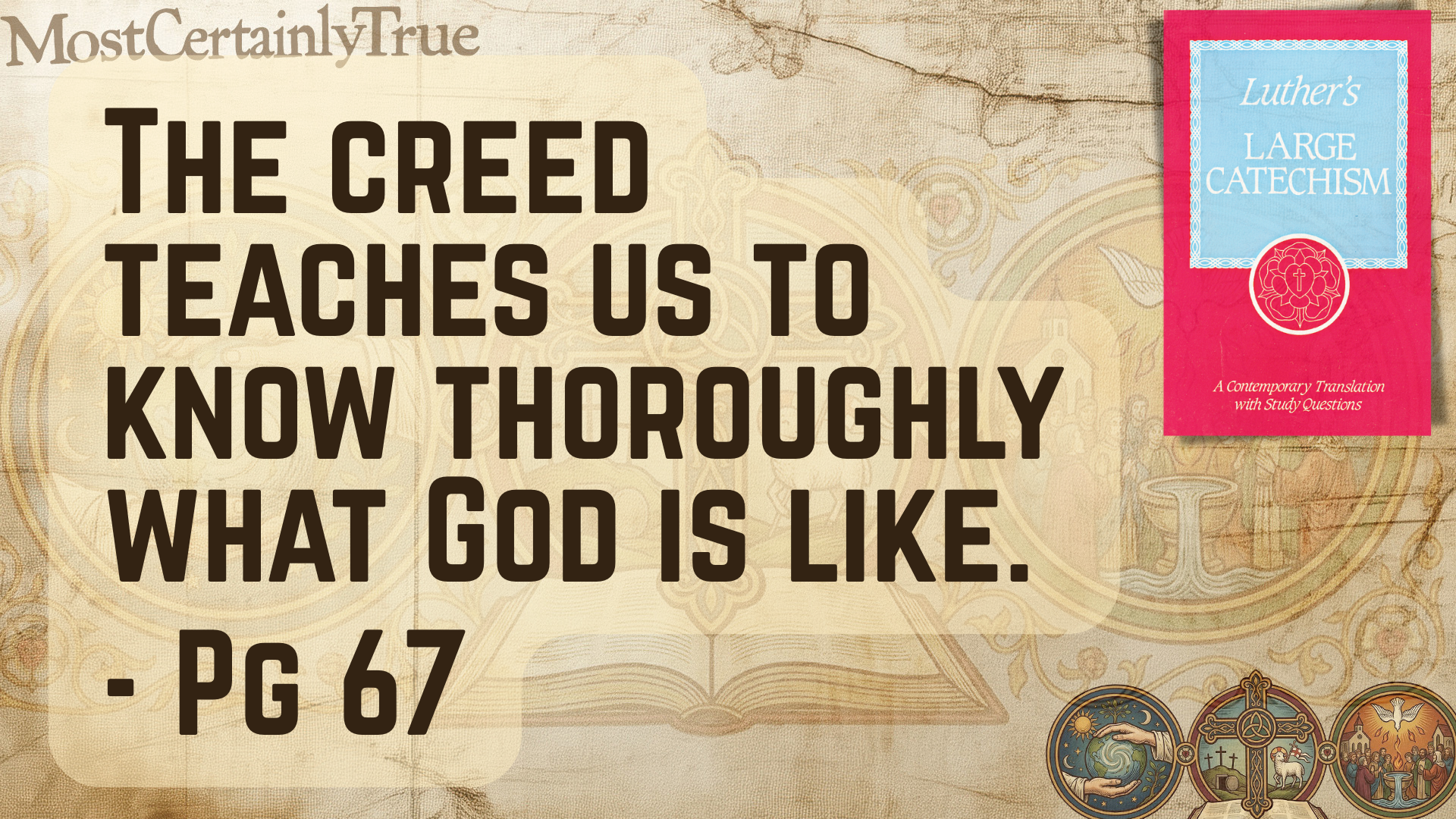
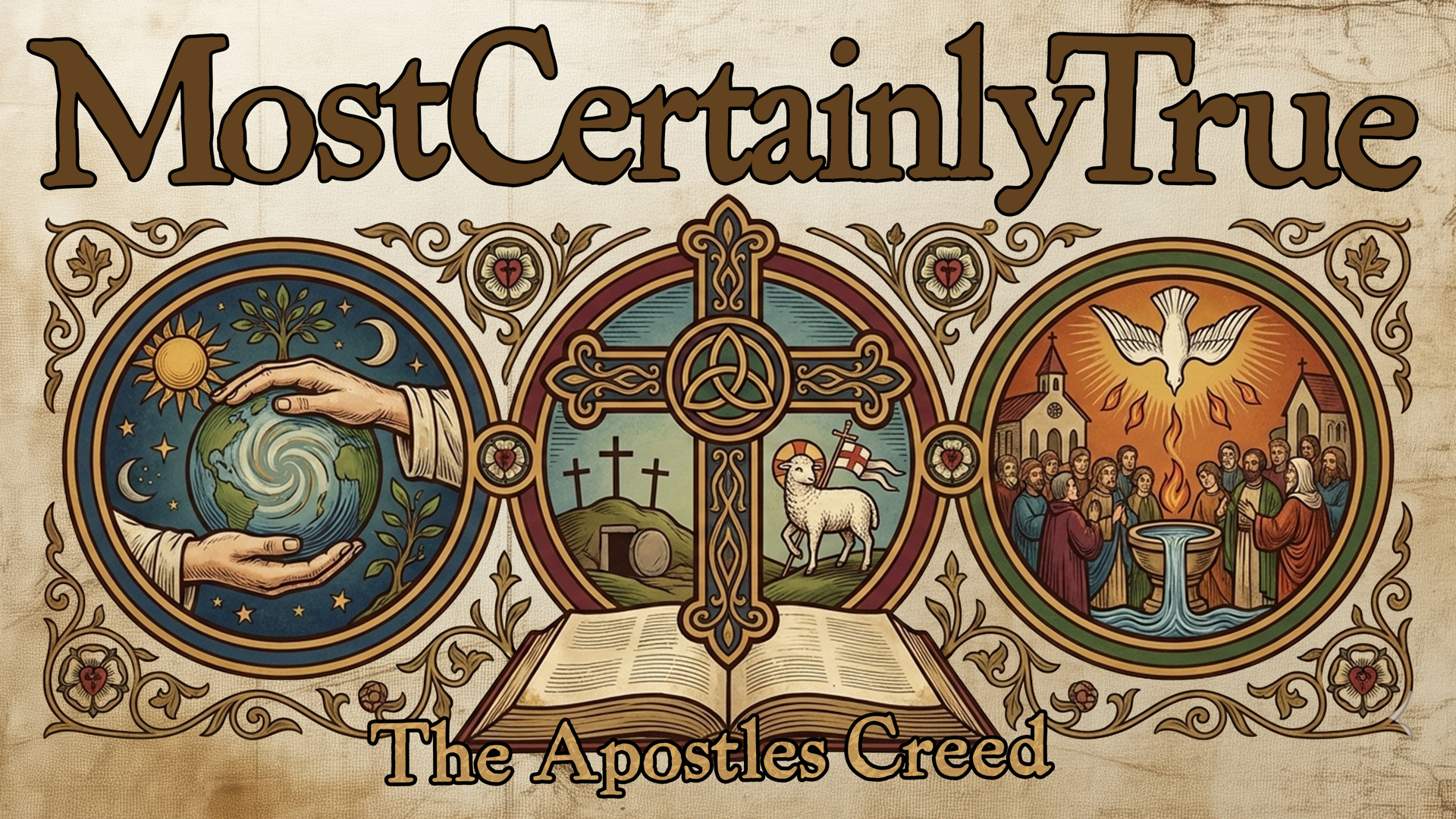
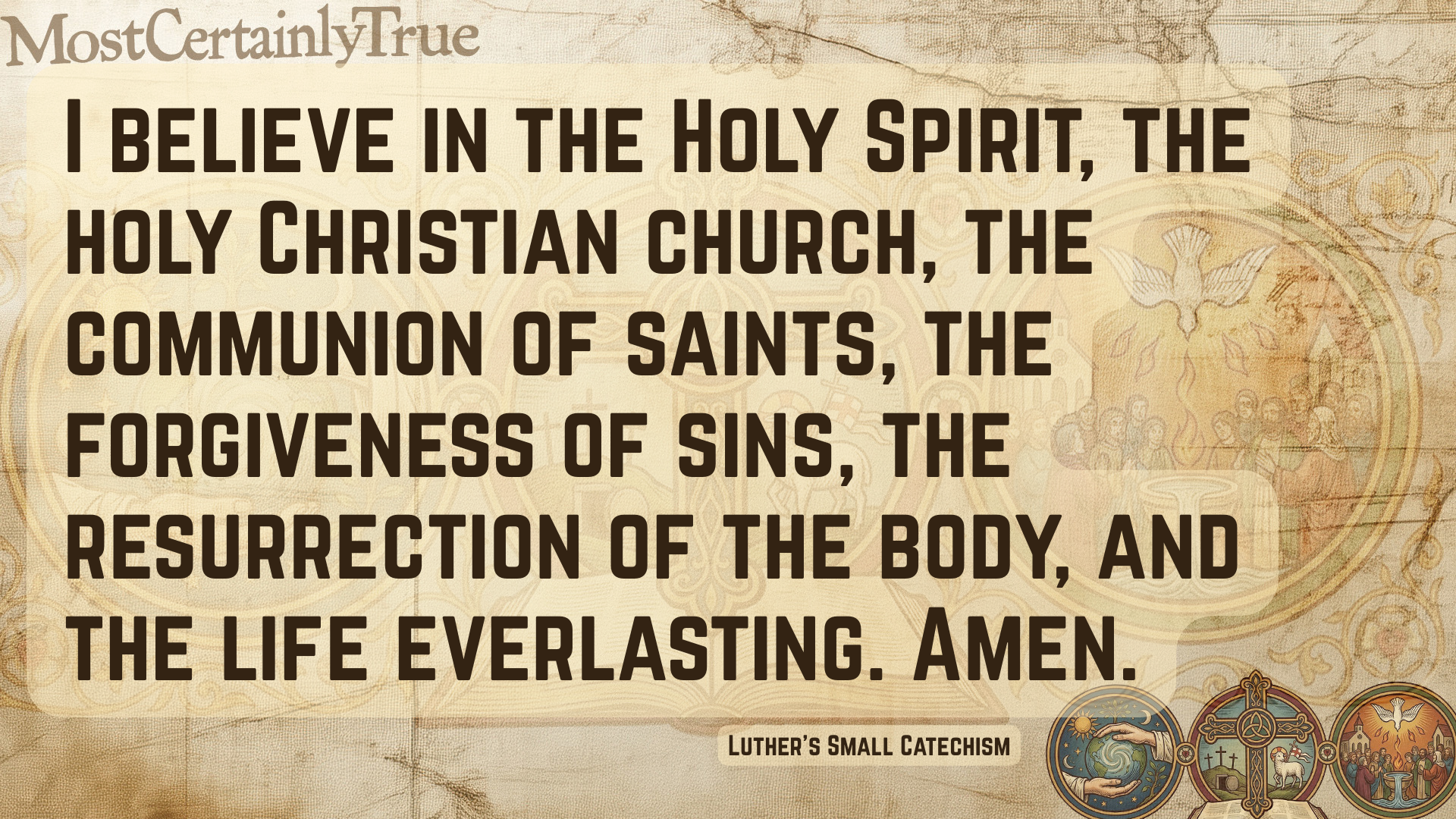
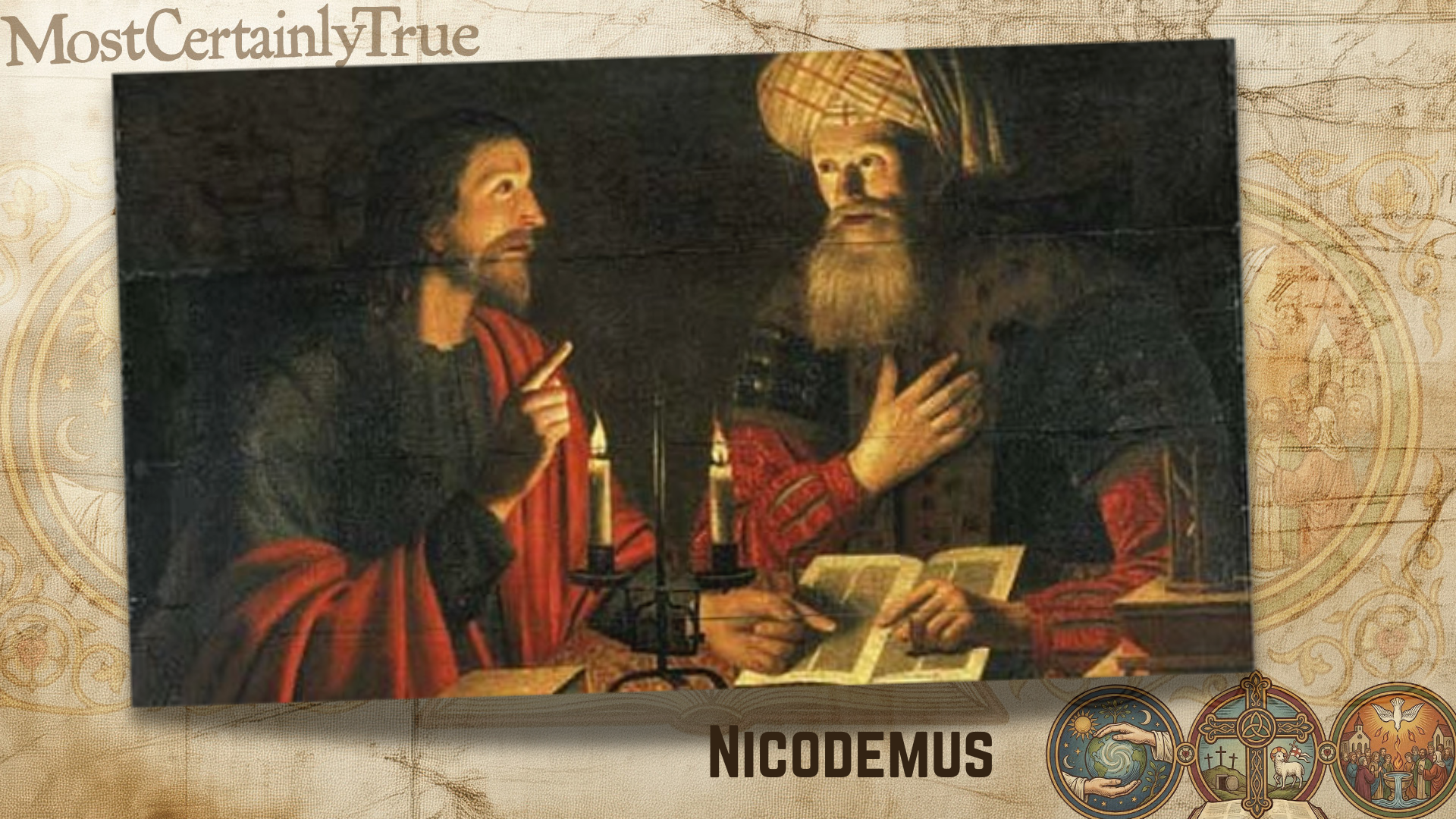
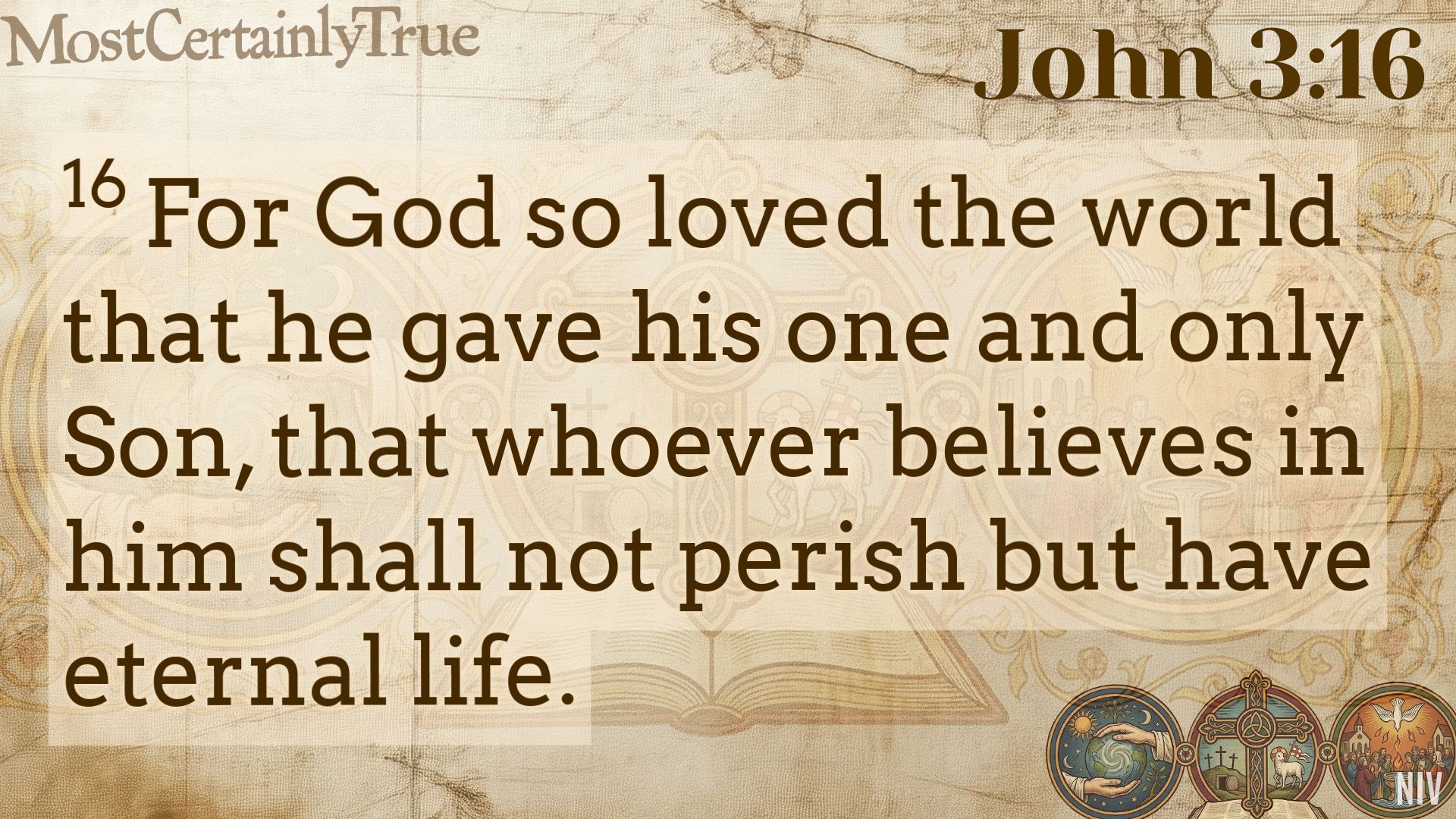
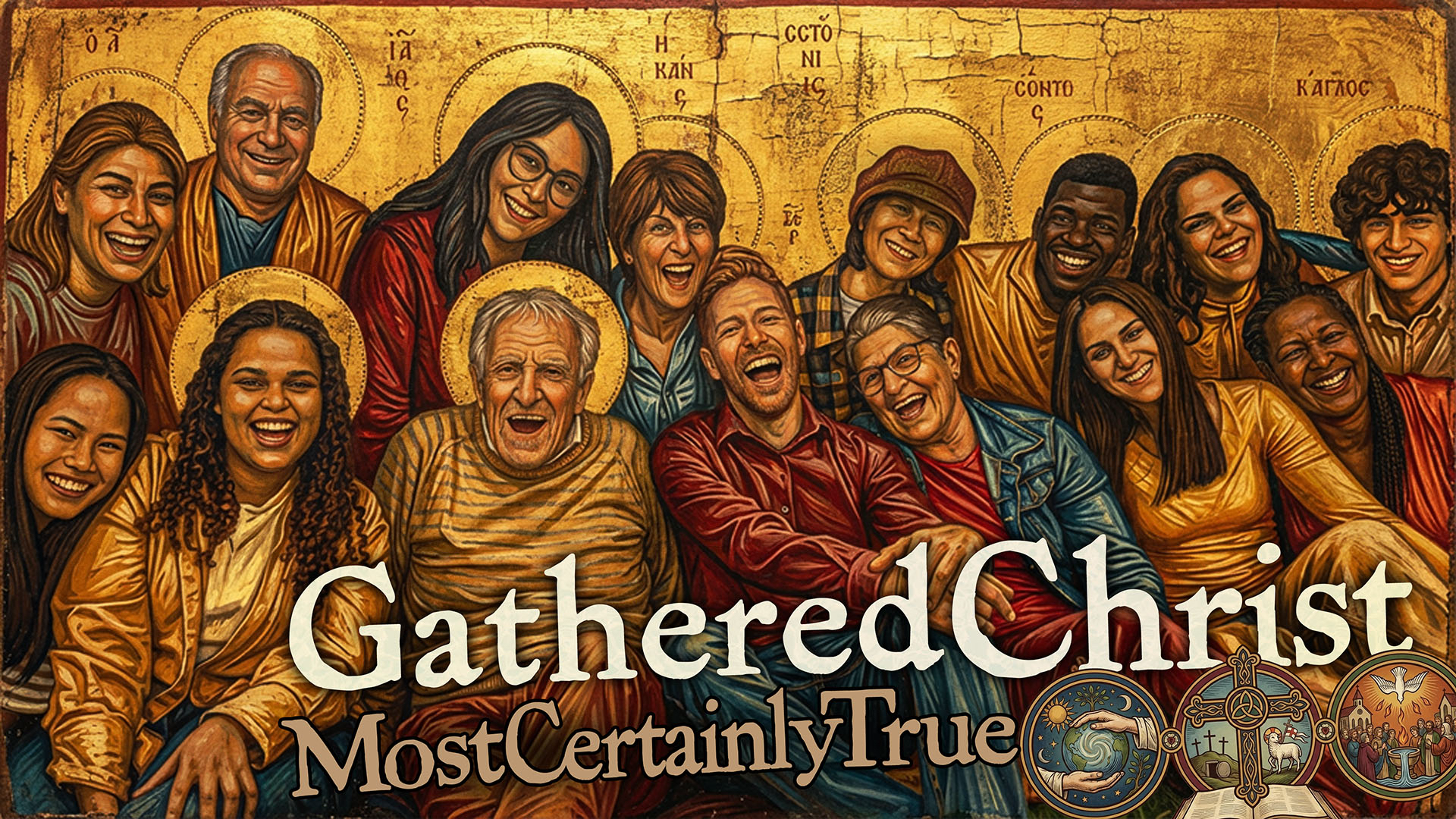
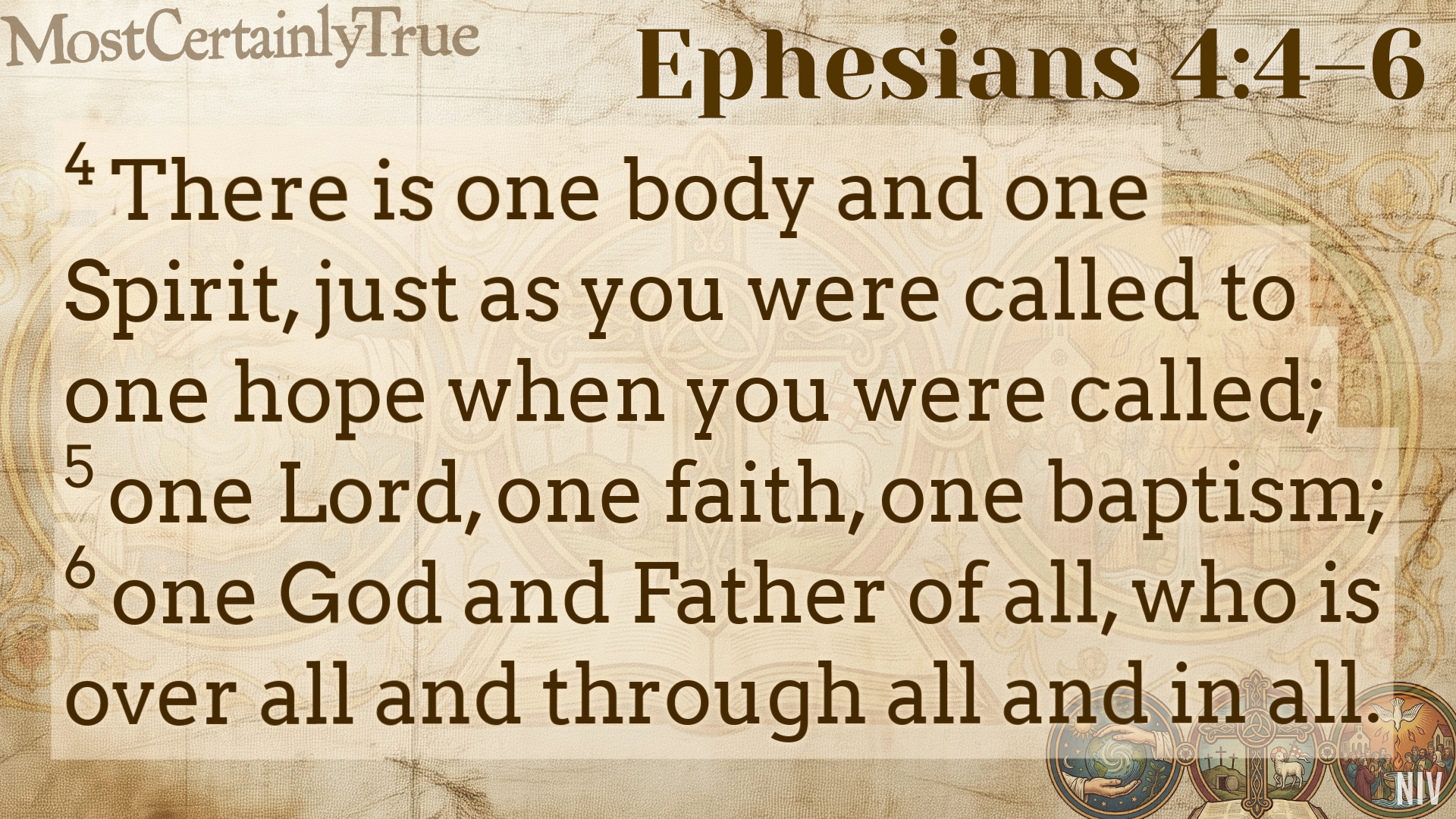
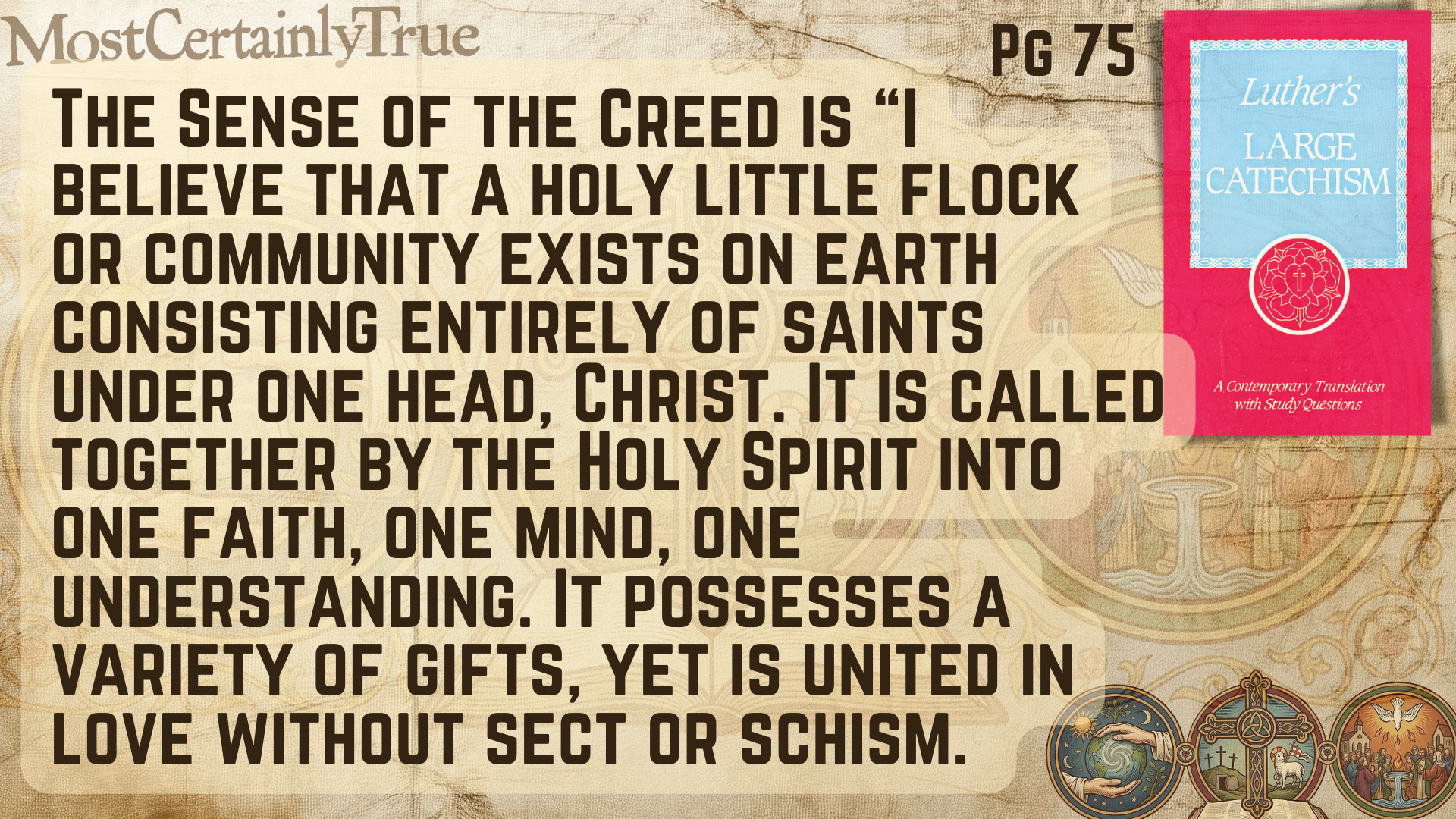
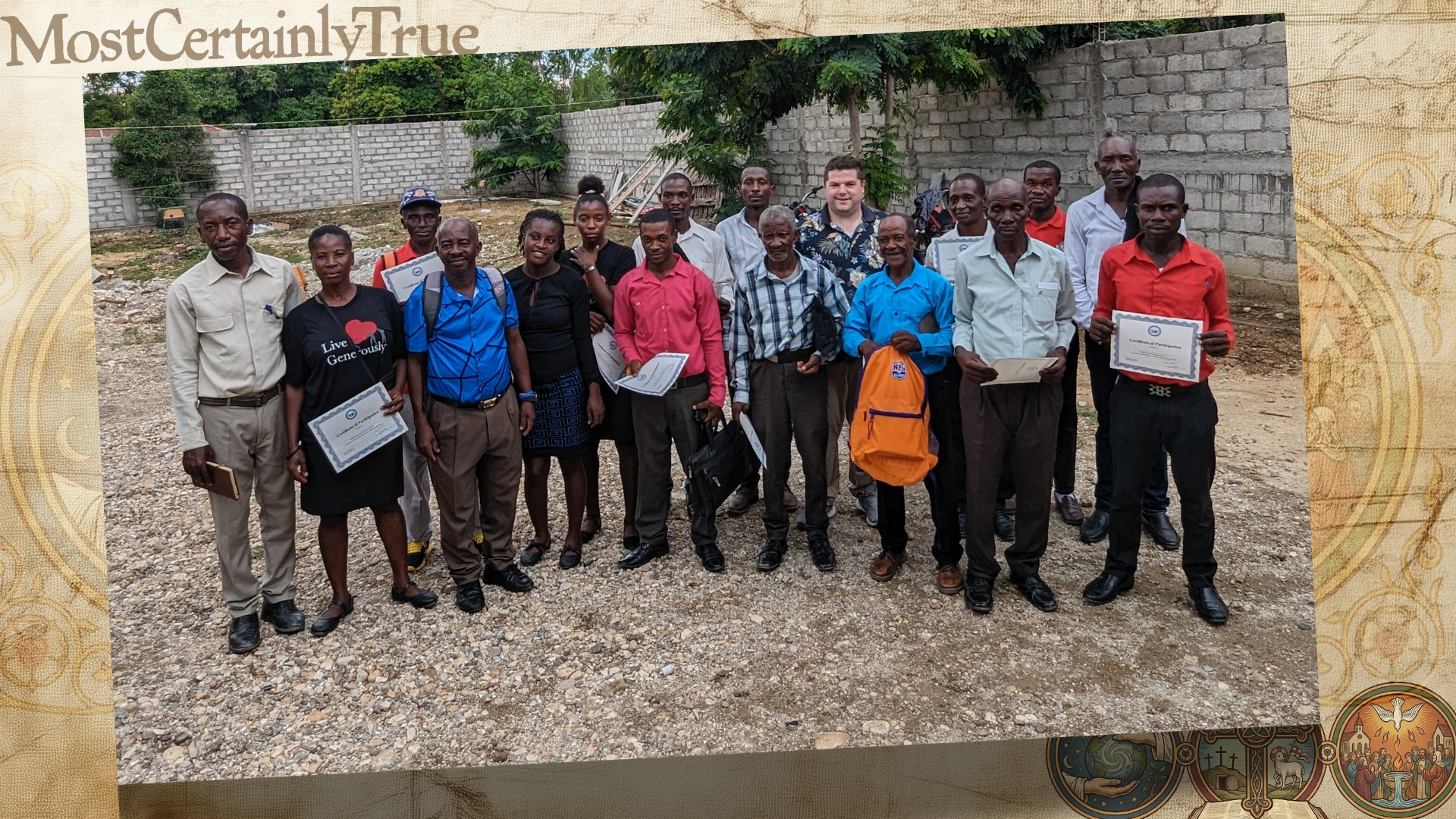
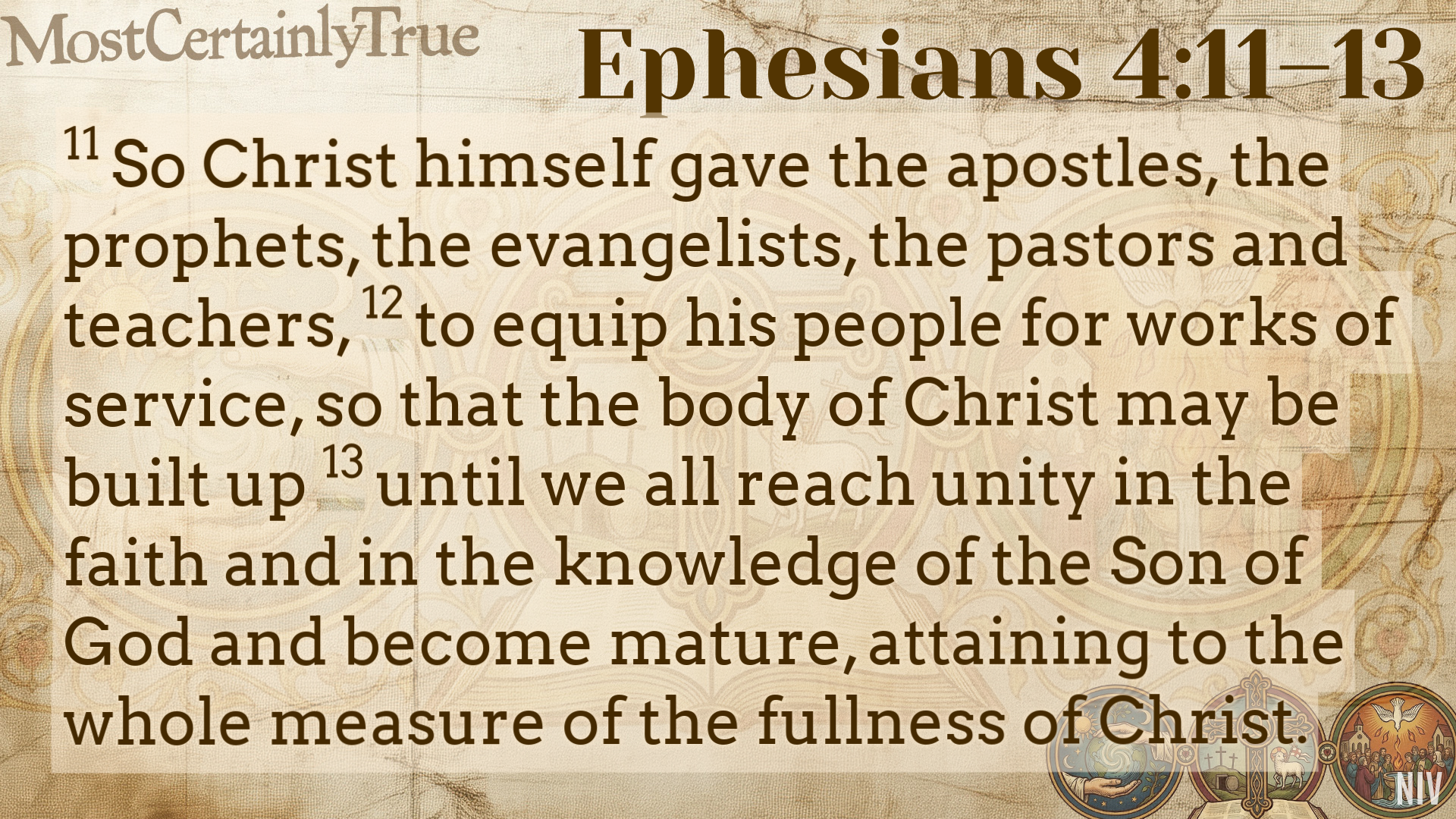
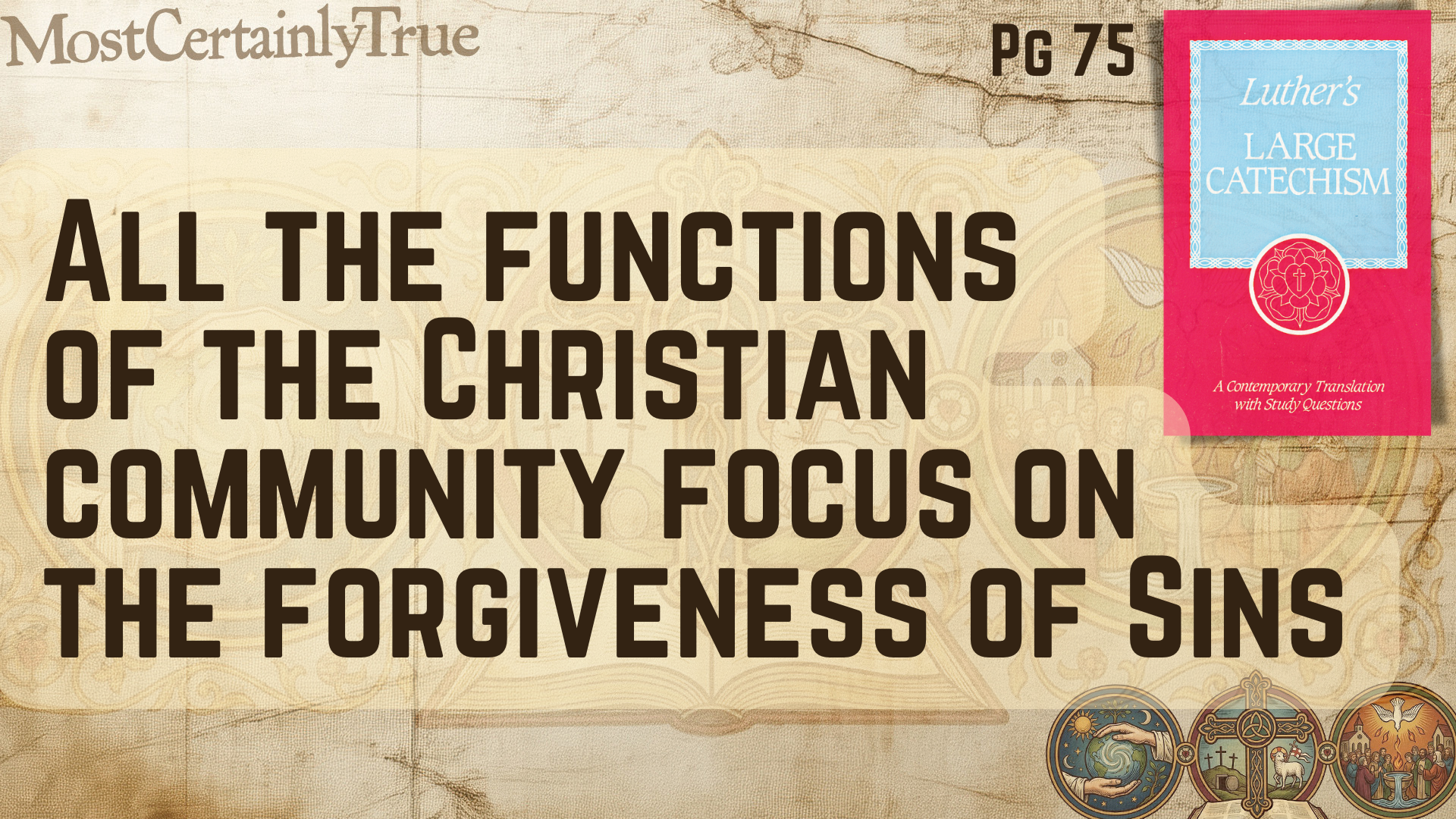
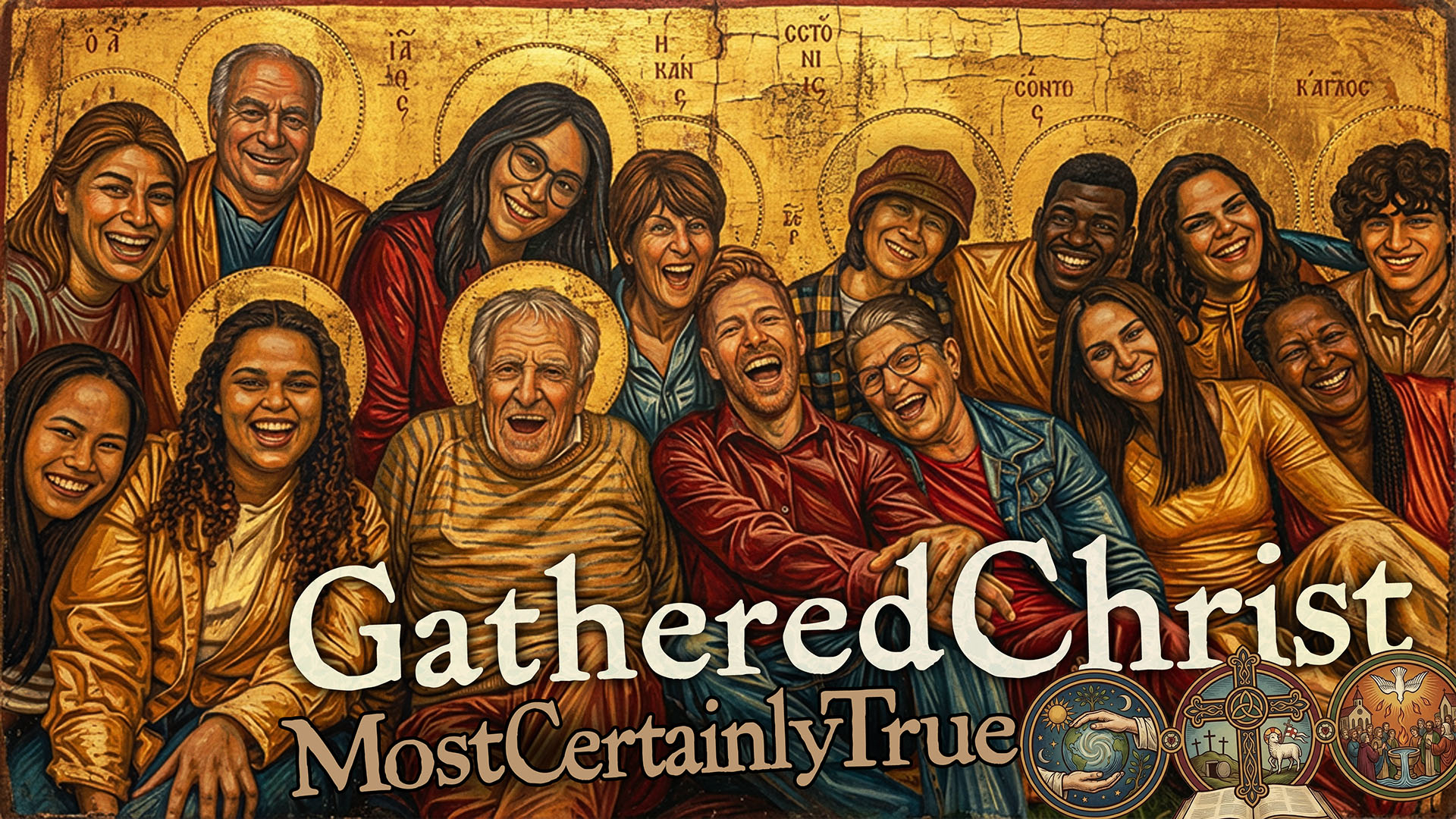
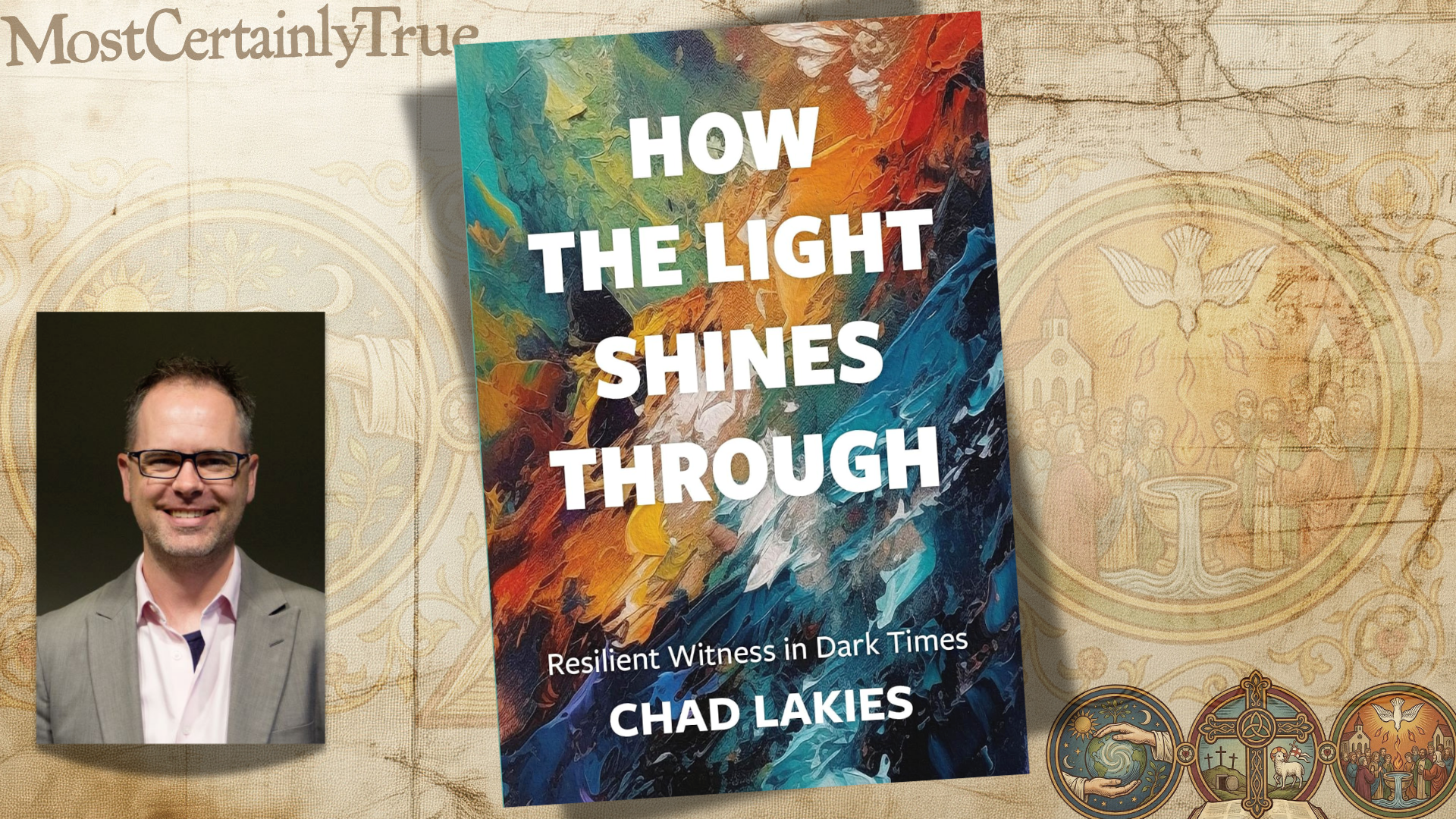
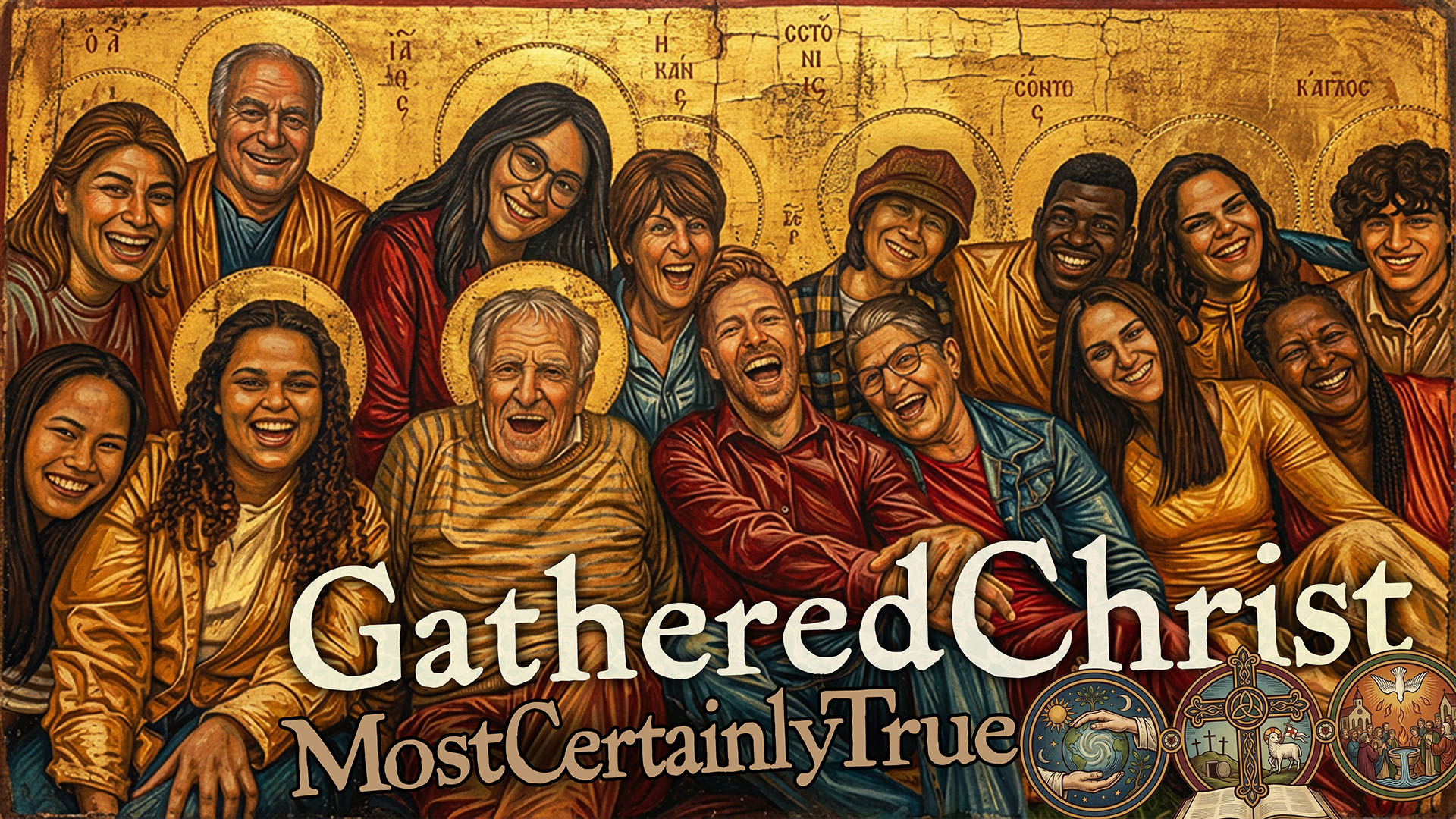
-
Introduction: The Third Article of the Creed
The sermon continues the series "Most Certainly True," an exploration of the Apostles' Creed. Martin Luther described the creed as a tool that teaches us what God is like. The creed is structured into three articles:
Article 1: God the Father, the Creator
Article 2: God the Son, the Redeemer
Article 3: God the Spirit, the Sanctifier (to make holy)
The pastor emphasizes the tangible nature of God's work. Just as creation and the life of Jesus were physical and real, the works of the Holy Spirit are also tangible actions in our lives.
The Work of the Holy Spirit
The third article of the creed states:
"I believe in the Holy Spirit, the Holy Christian Church, communion of saints, the forgiveness of sins, resurrection of the body, and the life everlasting."
Clarification: These are not just a random list of beliefs. They are the actions and creations of the Holy Spirit.
Historical Context: The phrase "Holy Christian Church" was originally "Holy Catholic Church." "Catholic" simply means "universal." The change reflects a modern-day discomfort with the word "universal," but the meaning remains: the Spirit is at work in the one, universal church.
Explanation from the Small Catechism
Luther's explanation of the third article in the Small Catechism provides the core theological point for the sermon:
"I believe that I cannot by my own reason or strength believe in Jesus Christ, my Lord, or come to Him. But the Holy Spirit has called me by the gospel, enlightened me with His gifts, sanctified and kept me in the true faith. In the same way He calls, gathers, Enlightens and sanctifies the whole Christian church on earth and keeps it with Jesus Christ... In this Christian church, He daily and richly forgives all my sins and the sins of all believers..."
Key Point: We cannot come to faith on our own. It is not an intellectual exercise or an act of willpower. Our ability to grasp and hold onto faith is a gift that comes entirely from the Holy Spirit.
Who is God and How Does He Respond?
God the Spirit Initiates Faith: The story of Nicodemus from the Gospel of John illustrates this principle. Nicodemus, a learned Pharisee, came to Jesus at night, unable to comprehend being "born again." Jesus explains that this new birth is a work of the Spirit. This conversation culminates in John 3:16: "For God so loved the world that He gave His one and only Son, that whoever believes in him shall not perish but have eternal life."Our belief is not something we generate; it is a response enabled by the Spirit.
The Spirit Works Through Community: Faith is not a solitary "me and Jesus" affair, which is a reflection of American rugged individualism. It is about "we." The Spirit gathers us into one body.
Scripture: Ephesians 4:4-6 - "There is one body, one spirit, just as you were called to one hope when you were called; one Lord, one faith, one baptism; one God and Father of all, who is over all and through all and in all."
Luther's Explanation: The creed describes a "holy little flock or a community... called together by the Holy Spirit into one faith, one mind, one understanding... united in love without sect or schism." The Spirit is what draws us together, not our ability to agree on everything.
Example (Pastor's Vicarage): A young man attended church faithfully with his wife but did not take communion because he couldn't bring himself to believe. He wanted to believe but honestly could not. Through his continued presence within the church community—hearing the preaching and experiencing the genuine love of the people—the Spirit worked. Years later, he was baptized, demonstrating that faith was nurtured and given to him through the community.
Example (Haiti Pastors' Conference): The pastor was amazed at the deep theological understanding and connections made by Haitian pastors, many of whom came from remote and impoverished areas. This showed him how the Spirit powerfully upholds and sustains the church, ensuring the truth of the Gospel is present and understood even in the most difficult circumstances.
The Spirit Equips the Church for Service:
Scripture: Ephesians 4:11-13 - Christ gave apostles, prophets, evangelists, pastors, and teachers "to equip His people for works of service, so that the body of Christ may be built up until we all reach unity in the faith and in the knowledge of the Son of God and become mature..." The Spirit works through people and their various roles to build up the entire community.
The Central Focus is Forgiveness:
Luther's Quote: "All the functions of the Christian community focus on the forgiveness of sins." This is the core of our community life and the central action of the Spirit within the church.
Example (Pastor's friend, Chad): Chad, now the head of the American division of Lutheran Hour Ministries, grew up as an agnostic. He began playing drums at a church simply because it was a paid gig. However, by being immersed in the community, he repeatedly heard the Gospel and, more importantly, experienced the genuine love of the people. They called him when he was sick and made him feel cared for. The Spirit worked through this community to bring him to faith. Chad's book, How the Light Shines Through, argues that even in a post-Christian culture, the Spirit provides glimmers of light and hope through the church community.
Who Am I and How Am I to Live?
I Am Part of a "Y'all": I cannot come to faith by my own reason or strength. My identity is not as an isolated believer, but as part of the body of Christ. The "you" in the Bible is most often a plural "you" (or "y'all"). The Spirit works through the collective "us."
I Am Called to Participate in the Community: The Spirit works through all aspects of church life, both sacred and mundane:
Listening to sermons
Coffee and fellowship
Baptism (normal water) and Communion (normal bread and wine)
Service projects (packing bags for the homeless)
Fellowship events (Bunko, St. Patrick's Day parties)
Administrative meetings (finances, parking lot repairs)
Late-night phone calls of support
I Am to Be Present for Others: We are called to "come to things." By being present, we are positioned to both receive what we need to hear and to be the person someone else needs to hear from. The community will be messy because it is full of sinners, but it is precisely in this community that we experience the forgiveness of Jesus and learn to forgive one another. As the Spirit works through "y'all," we are all made more like Him.
Closing Prayer
Lord, thank You for being with us and bringing us through. When we feel outside of Your grace, You use the community and Your Spirit to hold us together and remind us that our sins are forgiven. Help us to grab a hold of this truth. Amen.
Questions for the Week: Most Certainly True: Gathered Christ
Luther says in the Small Catechism we can't believe in Jesus by our own "reason or strength." How does it feel to know that your faith is a gift from the Spirit rather than something you have to maintain perfectly on your own?
Who is someone in your life who "belongs" to your community (friend group, neighborhood, family) but doesn't yet "believe"? How can you love them without pressure, trusting the Spirit is working?
Read Ephesians 4:1-16. There is "one body and one Spirit." We often view faith as a private matter ("just me and Jesus"). What is the benefit in Spirit gathering us together as the Church as opposed to just saving us individually?
Ephesians 4 says we are all given gifts to build each other up. What is one way you feel the Holy Spirit has equipped you to help or encourage the "holy little flock" we belong to?
What Had happened at Grace this week.
Amos Chapters 1-2 Class 2 - Bible Study
In our study of Amos, we explored God's judgment against nations for their social injustices and lack of compassion, revealing the timeless warning against seeking security in worldly power ("becoming Babylon") and the call to find our true identity in God's kingdom rather than in tribalism.
Amos Chapters 1-2
This is our 2nd class on Amos
This is an AI Recap of the class.
Some things may be incorrect.
Short Summary of the Class
Our class explored the prophecies of Amos, focusing on God's structured judgments against Israel and its neighbors. We discussed how each nation's specific sin—from breaking covenants to horrific violence—was met with a fitting punishment. The core theme was that Amos builds a case against other nations to ultimately turn the focus on Judah and Israel, whose sins of social injustice and rejecting God's law were even greater because they should have known better. We connected this to the recurring biblical temptation to "become Babylon"—relying on worldly power instead of God—and how this leads to hypocrisy and moral decay, a warning echoed by the Apostle Paul in Romans.
Detailed Class Summary
Who Was Amos?
We began our session by exploring the identity of the prophet Amos. The text describes him as a "sheep breeder of Tekoa," leading to two possible interpretations. One view portrays him as a humble shepherd who came "out of the hills" to deliver a radical message against the establishment. The other, suggested by sources like the Jewish Study Bible, is that "sheep breeder" implies he was a wealthy landowner, giving him an insider's perspective on the very systems he was critiquing. This dual possibility is interesting to hold in mind while reading, as it could mean he was either a simple farmer connected to the sacrificial system or a wealthy man witnessing the corruption of that system firsthand. We made a humorous comparison to a joke from our study of Joel about "rending your garments," imagining a special room in the temple with pre-ripped clothes for official mourning, highlighting how religious practices can become institutionalized and lose their meaning.
Summary: The class discussed the background of Amos, considering that he could have been either a simple shepherd or a wealthy landowner. This distinction changes how we might interpret his prophetic critique of the nation's social and religious corruption.
Bible Verses: Joel (mentioned in comparison)
Stories/Connections: The background of Amos as a shepherd/sheep breeder.
Judgment on the Nations: Violence and Betrayal
After our introduction, we read through the powerful, repetitive formula in Amos chapters 1 and 2: "For three transgressions of [a nation], and for four, I will not turn away its punishment." We observed God's judgment falling upon Damascus, Gaza, Tyre, Edom, Ammon, and Moab for their specific sins. A key theme we identified was that the punishment often fit the crime—a principle of reaping what you sow.
We focused on several examples. Edom was condemned for pursuing its "brother" (Israel, descended from Jacob) with the sword and "stifling all compassion," a violation of their shared ancestry. Tyre was condemned for breaking a "covenant of brotherhood" and selling entire communities into slavery, an act especially egregious since God's foundational act for Israel was freeing them from slavery in Egypt. The charge against Ammon was particularly disturbing: they "ripped open the women with child... that they might enlarge their territory," showcasing extreme violence for the sake of expansion. Finally, Moab was judged for burning "the bones of the king of Edom to lime," an act of ultimate desecration. These judgments highlighted that God holds nations accountable for their violence, inhumanity, and betrayal of relationships.
Summary: We analyzed the structure of judgment in Amos 1, where God condemns the surrounding nations for their specific crimes, including brutal violence, breaking covenants, and slave trading. We noted that the punishments often mirrored the transgressions, establishing a theme of divine justice against inhumanity.
Bible Verses: Amos 1
Stories/Connections: The brotherhood of Jacob and Esau, The Exodus from Egypt, the covenant between Hiram and David.
The Turn to Judah and Israel: Hypocrisy and Social Injustice
With the judgment on Judah, we saw the purpose of Amos's prophetic strategy. After listing the sins of the surrounding nations, he turns the lens on God's own people. Judah's sin was that they "rejected the law of the Lord," and a participant powerfully stated God's message: "Of all people, you should know better." Possessing the law made them more accountable, not superior.
This culminated in the climactic judgment on Israel. Their sins were deeply social and economic: they sold the "righteous for silver," trampled on "the heads of the poor," and denied "justice to the oppressed." We connected this to the story of Joseph, a righteous man sold for silver by his own brothers. Israel was perpetrating the very kinds of oppression from which God had saved them. Furthermore, they actively resisted God's correction. When God raised up prophets and Nazarites, Israel commanded the prophets, "Do not prophesy," and corrupted the Nazarites with wine. They silenced the truth because they were comfortable. Consequently, God declared that their earthly strength—their warriors and swift runners—would utterly fail them.
Summary: The prophecy pivots to Judah and Israel, whose sins are judged more harshly because they had received God's law. Israel, in particular, was condemned for deep-seated social injustice—oppressing the poor and valuing profit over people—and for actively silencing the prophets God sent to guide them.
Bible Verses: Amos 2
Stories/Connections: The story of Joseph being sold into slavery.
The Danger of "Becoming Babylon" and Tribalism
Our discussion broadened to a central theme: the danger of God's people trying to "become Babylon"—that is, seeking security and identity through worldly power, wealth, and might. This temptation was traced from the Tower of Babel, where humanity tried to make a name for itself, to the Roman Empire that crucified Jesus. When God’s people desire to be like these oppressive empires, they risk being consumed by the same corruption.
This "Babylon" mindset manifests today in tribalism. We discussed the "second slap" concept: a person, disillusioned with their own flawed "tribe," flees to an opposing one, only to find it is the other side of the same coin, full of the same exclusionary behavior. This reveals that true righteousness isn't found in human groups but in rejecting the pursuit of power and embracing the values of God's kingdom: love and seeing the image of God in everyone. We drew a powerful parallel between Amos's strategy and the Apostle Paul's in Romans 1-2. Both begin by listing the sins of "outsiders" before turning to God's people to expose their hypocrisy: "You who pass judgment do the same things."
Summary: We framed the lesson around the warning to not "become Babylon" by adopting the world's methods of power and control. We connected this to modern tribalism and the hypocrisy, highlighted by both Amos and Paul, of judging others for sins we also commit, reminding us to seek our identity in God's kingdom, not flawed human groups.
Bible Verses: Romans 1-2, Genesis 3 (Adam and Eve), Genesis 11 (Tower of Babel), John 19:15 ("We have no king but Caesar"), Matthew 11 / Luke 7 (John the Baptist's doubts), Joel 3:10.
Stories/Connections: The story of the Tower of Babel, Adam and Eve, John the Baptist questioning Jesus.
Overall Summary
Our Bible study on Amos delved into the prophet's fiery warnings, which we framed around the central theme of avoiding the temptation to "become Babylon"—a metaphor for seeking ultimate security and power in worldly systems and tribal identities. We began by analyzing the structured judgments against Israel's neighbors, noting how sins of brutality, betrayal, and inhumanity were met with fitting divine justice. It became clear that Amos was building a rhetorical case to get his audience to agree with these condemnations before masterfully turning the focus inward.
The lesson’s core was the judgment against Judah and, most pointedly, Israel. Their sin was not just idolatry but a profound societal sickness. They had rejected God's law, which was fundamentally about justice and compassion, and instead oppressed the poor in a way that mirrored the very slavery God had rescued them from in Egypt. We discussed how they compounded their sin by actively silencing God's messengers. Drawing a powerful parallel to Paul's argument in Romans, we emphasized that possessing God's law made them more responsible, and their hypocrisy in judging others was a grave offense. The ultimate message was a call to reject the world's currency of power and embrace the economy of God's kingdom, founded on love, mercy, and recognizing the inherent worth of all people.
Main Points
Amos's background as either a humble shepherd or a wealthy landowner provides two different lenses for understanding his prophecy.
God judges nations for specific sins related to injustice and inhumanity, such as extreme violence, breaking covenants, and especially enslaving others.
A key theme is that the punishment fits the crime; those who live by violence and oppression will be destroyed by it.
Amos's prophecy is structured to condemn surrounding nations before turning the focus on Judah and Israel to show they are not superior and, in fact, more accountable.
Israel's primary sins were internal and social: oppressing the poor, perverting justice, and commodifying human life.
Israel compounded its sin by actively silencing God's messengers, telling prophets not to prophesy and corrupting the Nazarites.
It is a recurring human temptation to seek security in worldly empires ("Babylon"), a path that leads to corruption and self-destruction.
The Bible, through prophets like Amos and apostles like Paul, warns sharply against hypocrisy, especially judging others for the same sins we commit.
The kingdom of God operates on a different currency than the world: love for others, including our enemies, rather than the pursuit of power.
Scriptures and Stories Mentioned
Bible Scriptures:
Amos 1
Amos 2
Romans 1-2
Genesis 3 (Adam and Eve)
Genesis 11 (Tower of Babel)
Joel (mentioned in comparison)
Matthew 11 / Luke 7 (John the Baptist's Doubts)
John 19:15 ("We have no king but Caesar")
1 & 2 Kings (mentioned in reference to Solomon)
Stories:
Amos's background as a shepherd/sheep breeder from Tekoa.
The judgment against the nations (Damascus, Gaza, Tyre, Edom, Ammon, Moab).
The relationship between Jacob (Israel) and Esau (Edom).
The covenant between King Hiram of Tyre and King David.
God bringing Israel out of slavery in Egypt.
The story of Joseph being sold into slavery by his brothers.
The Tower of Babel.
The story of Adam and Eve in the garden.
Solomon building the temple with slave labor.
Jesus's teaching to "turn the other cheek."
[Sunday] My Lord, Most Certainly True
The angel’s specific message to tell the disciples and Peter reveals that Jesus is the Lord who refuses to let your failures cancel His promises.
The angel’s specific message to tell the disciples and Peter reveals that Jesus is the Lord who refuses to let your failures cancel His promises.
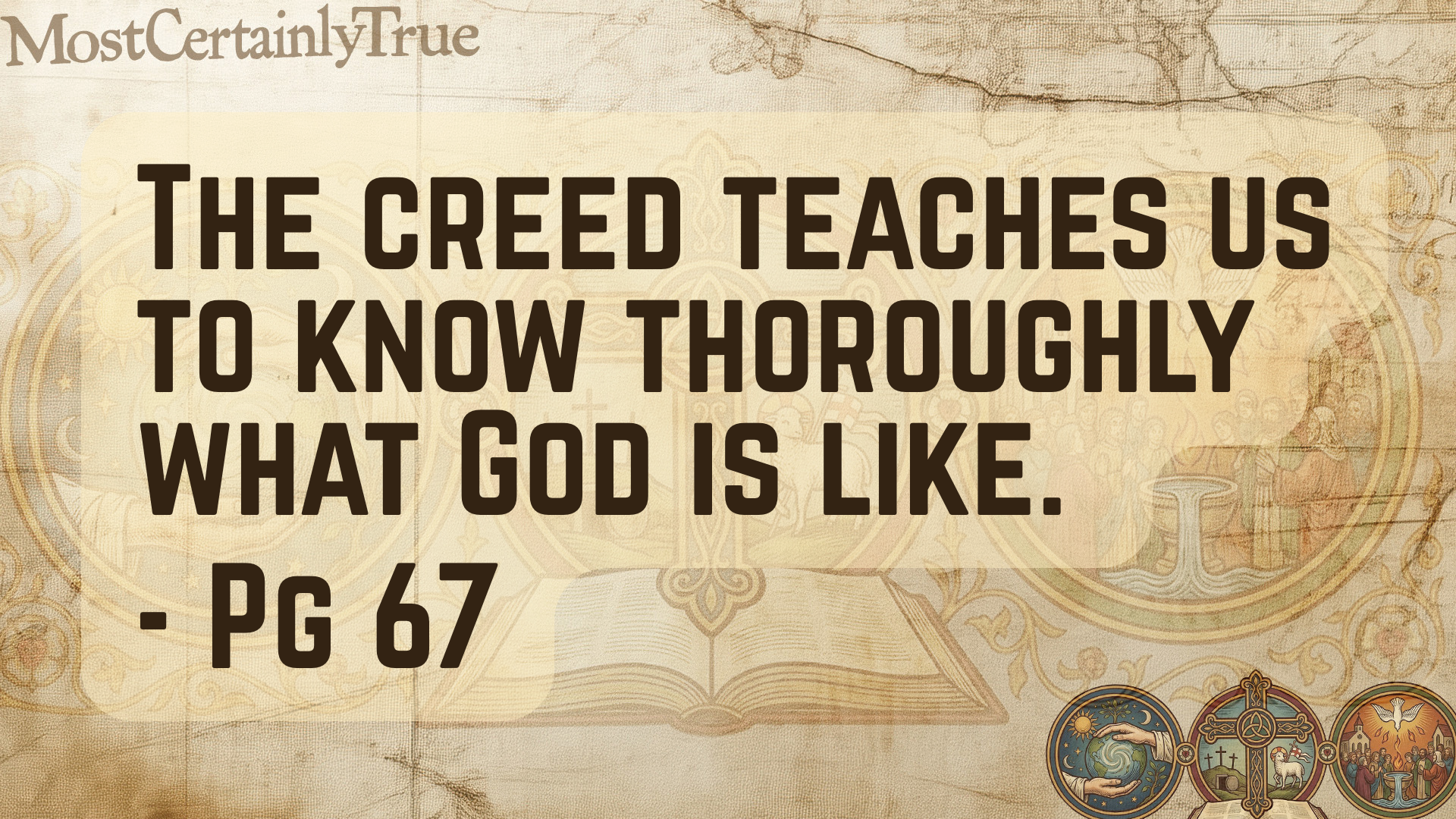
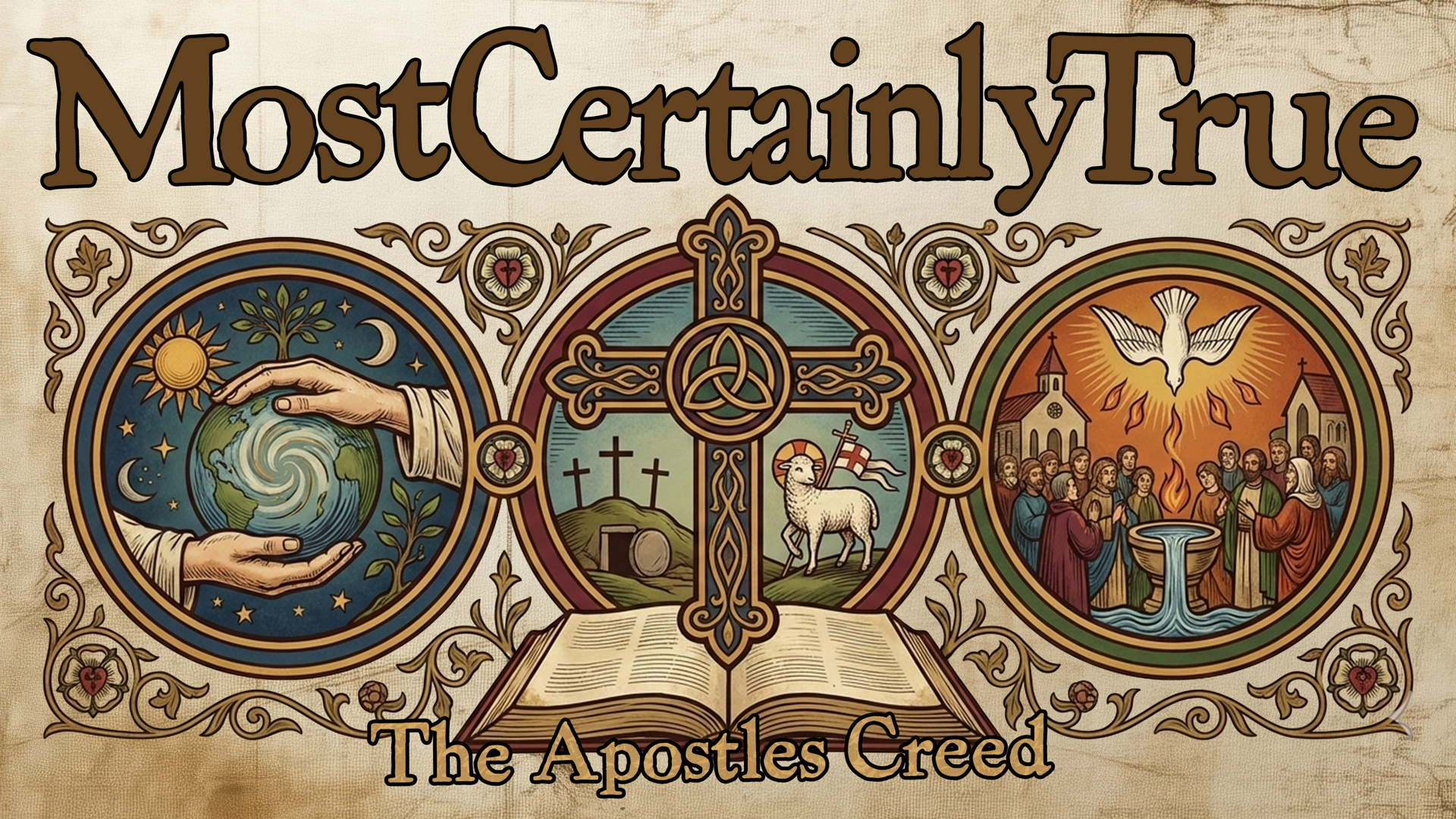
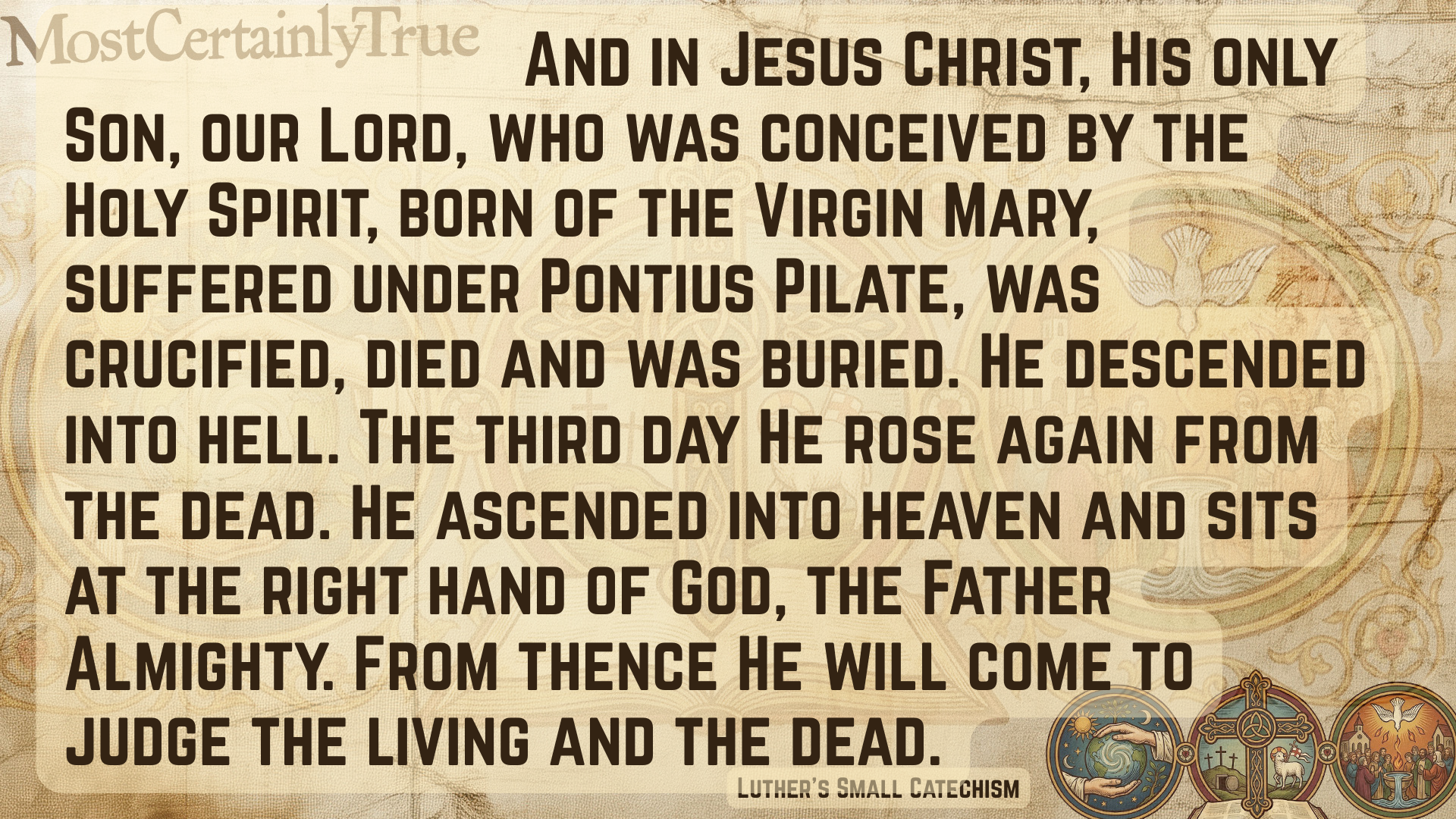
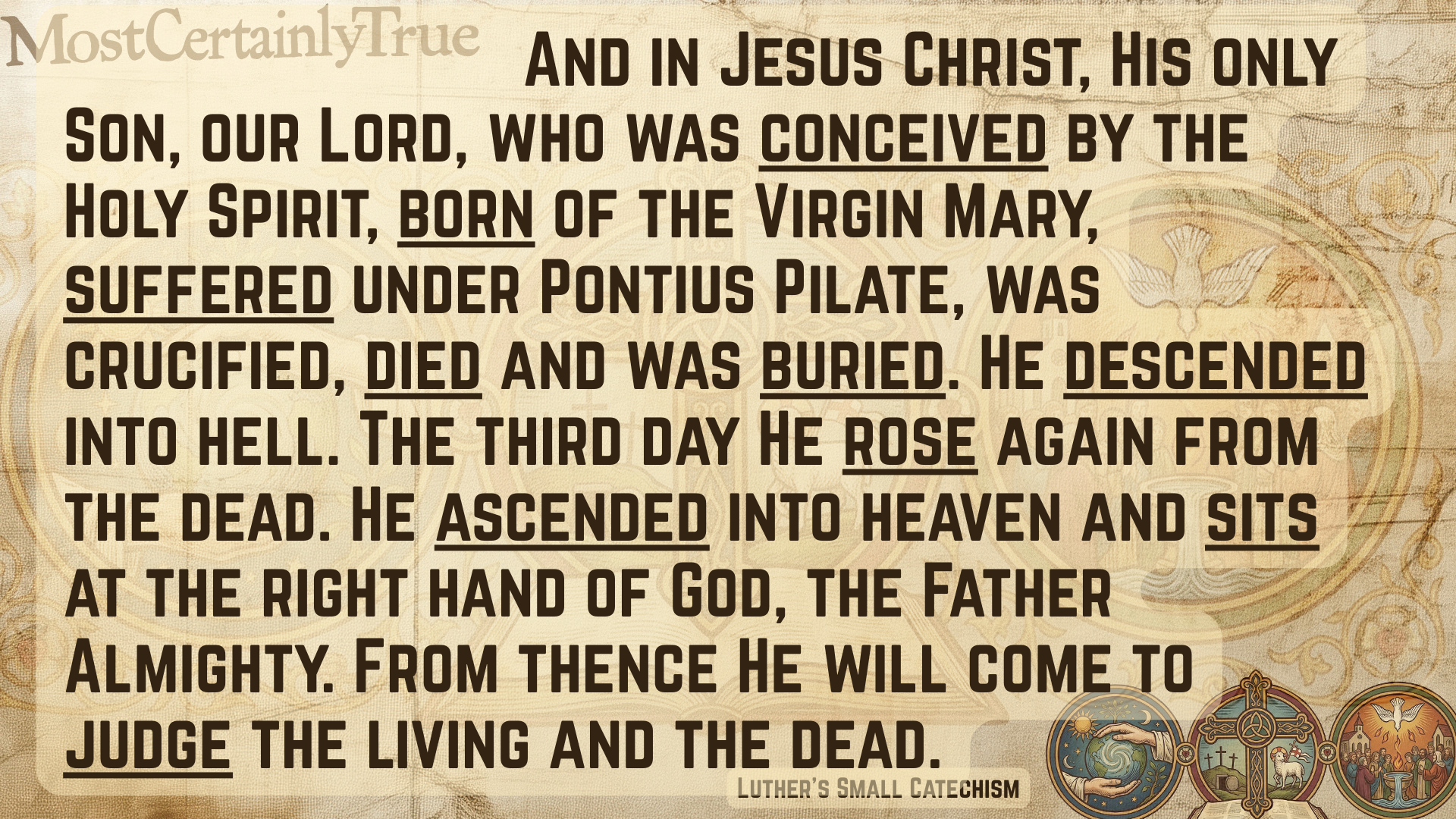
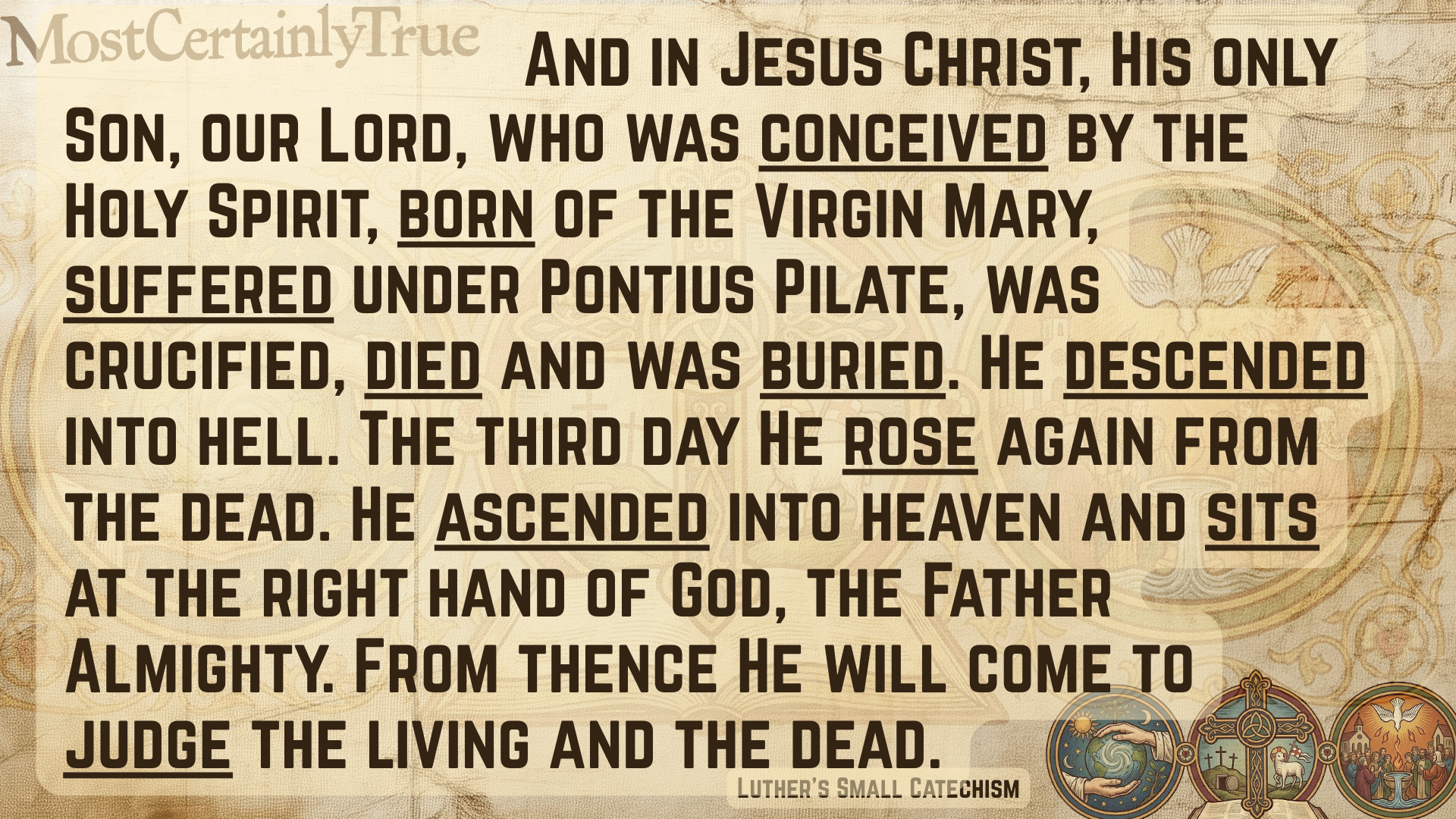
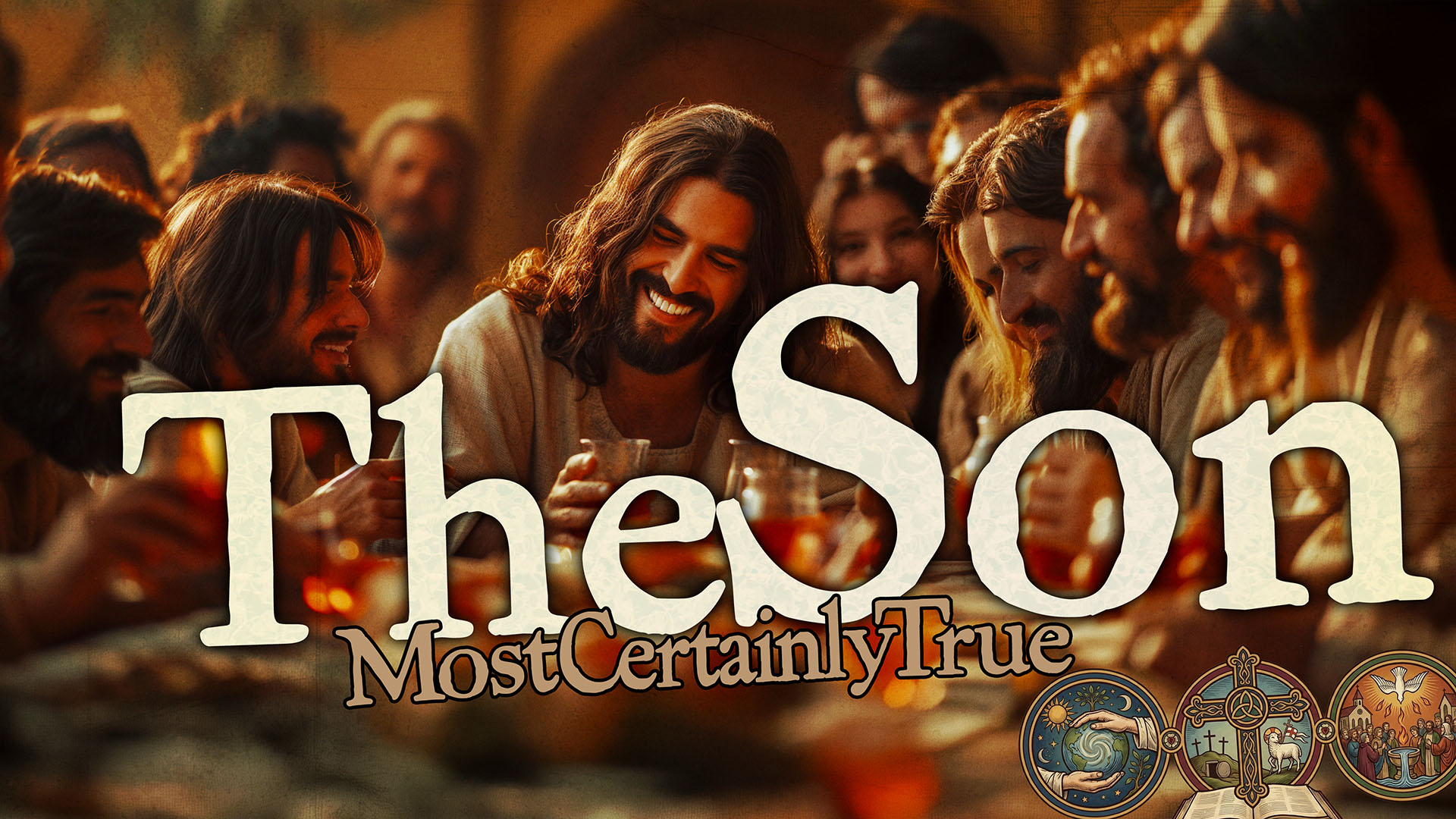
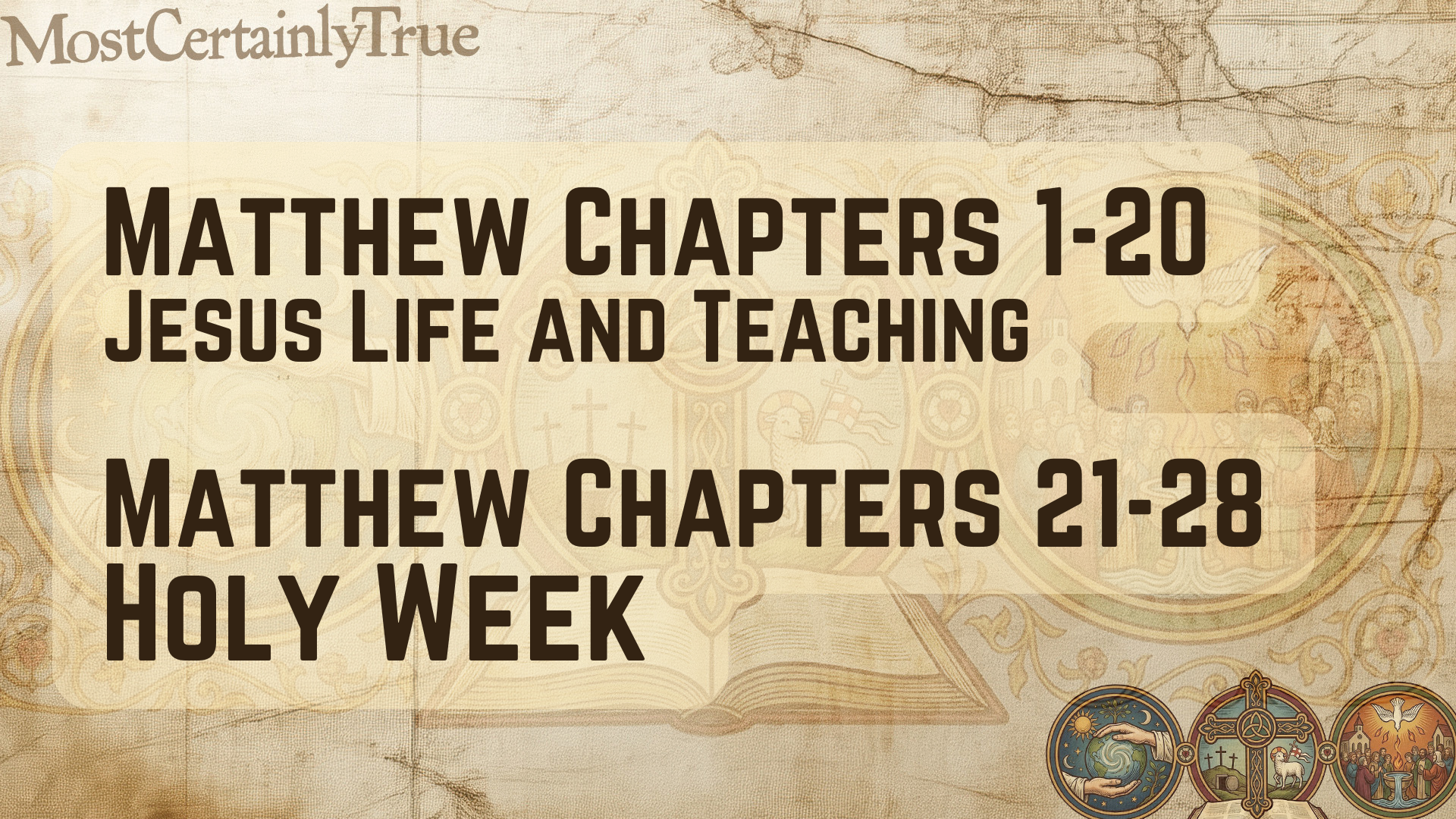
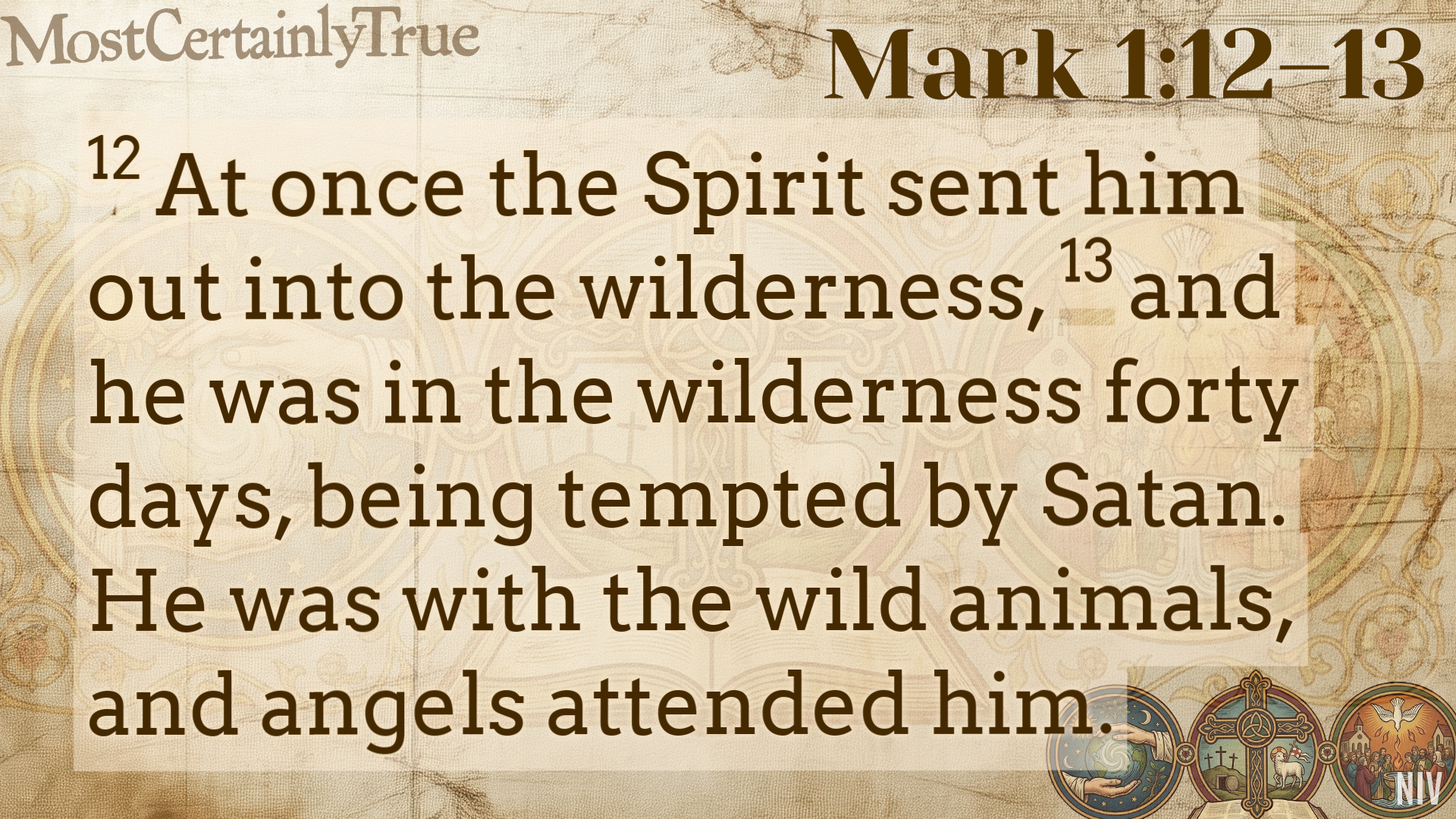
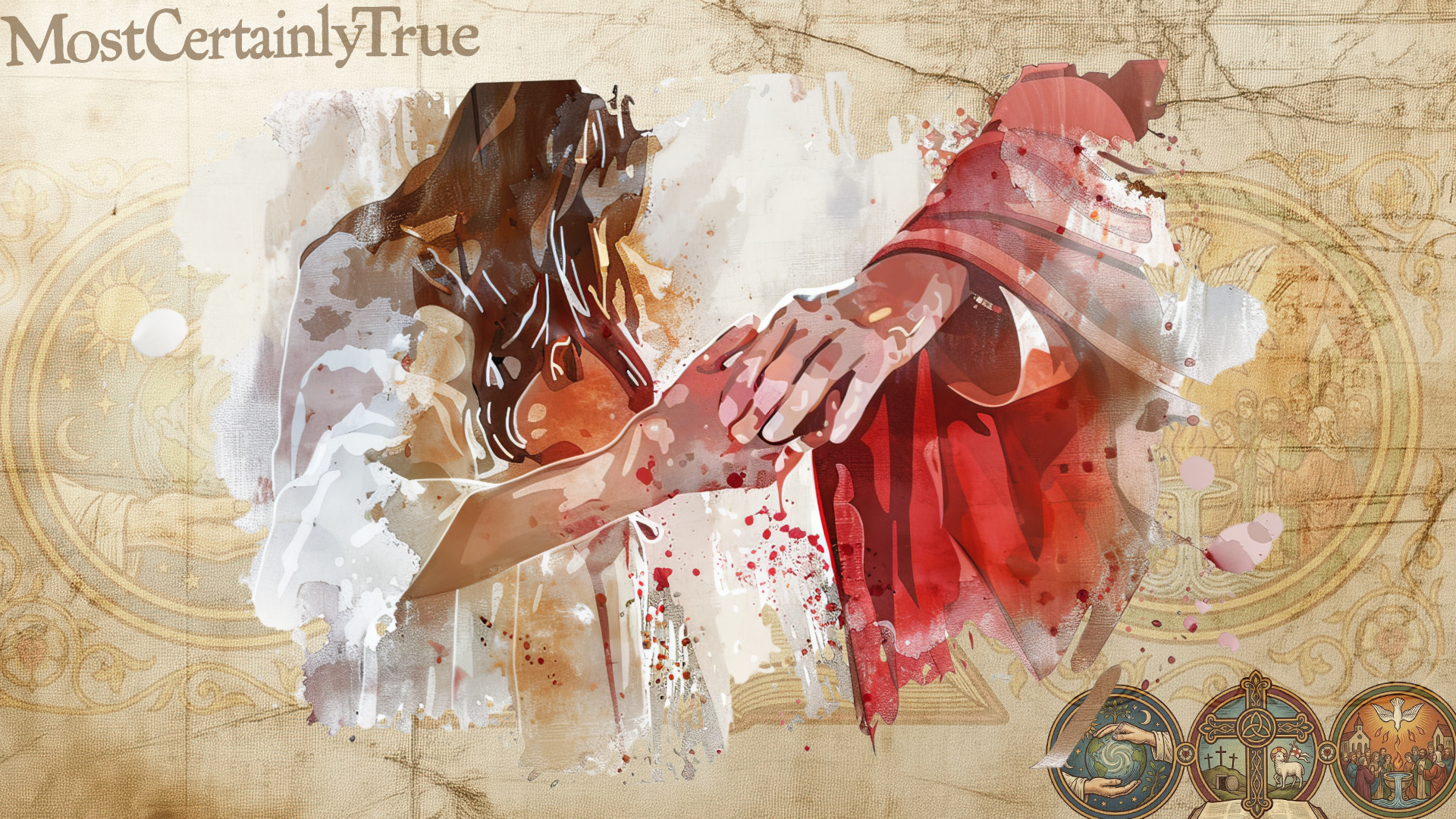
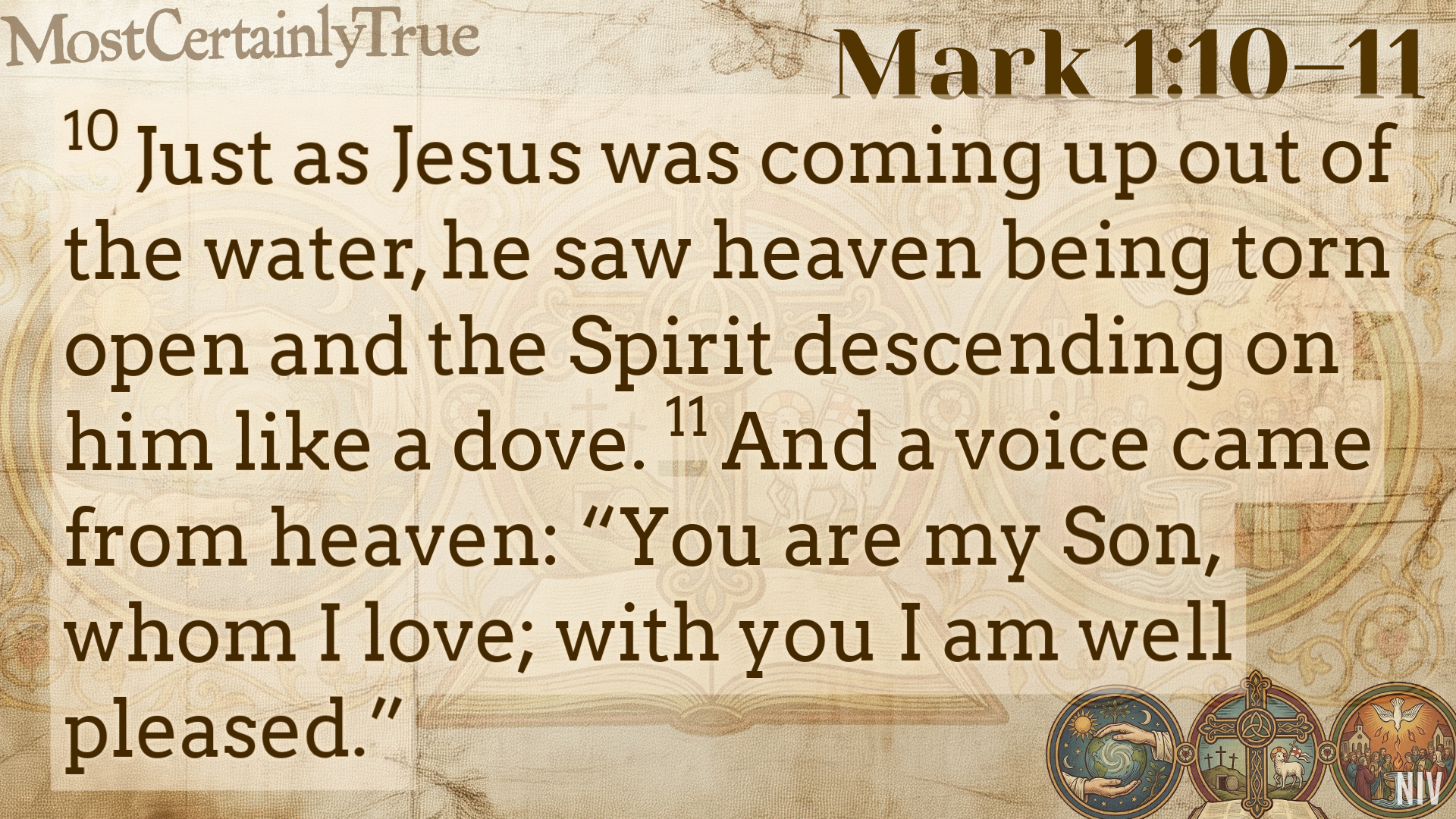
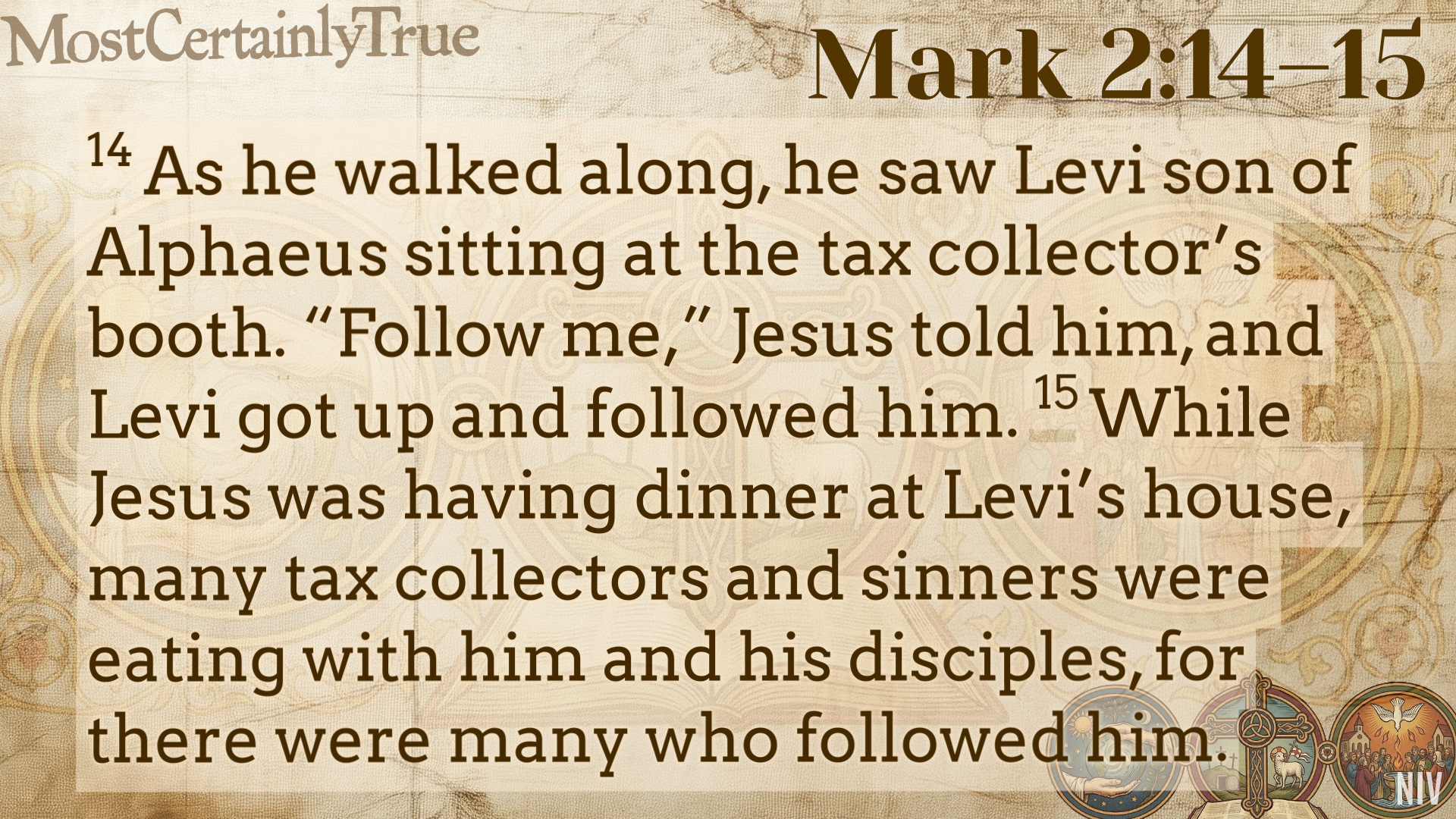
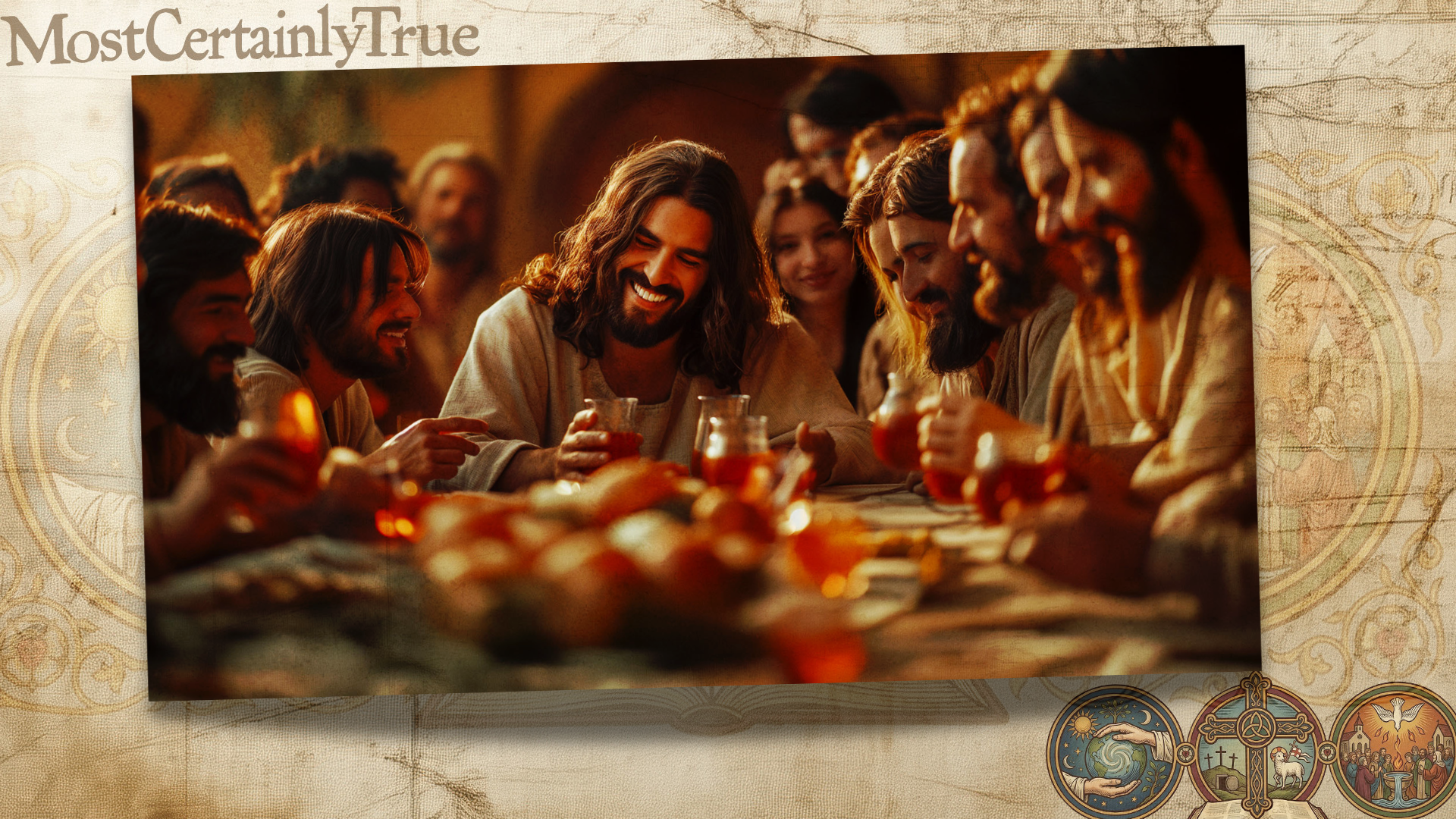
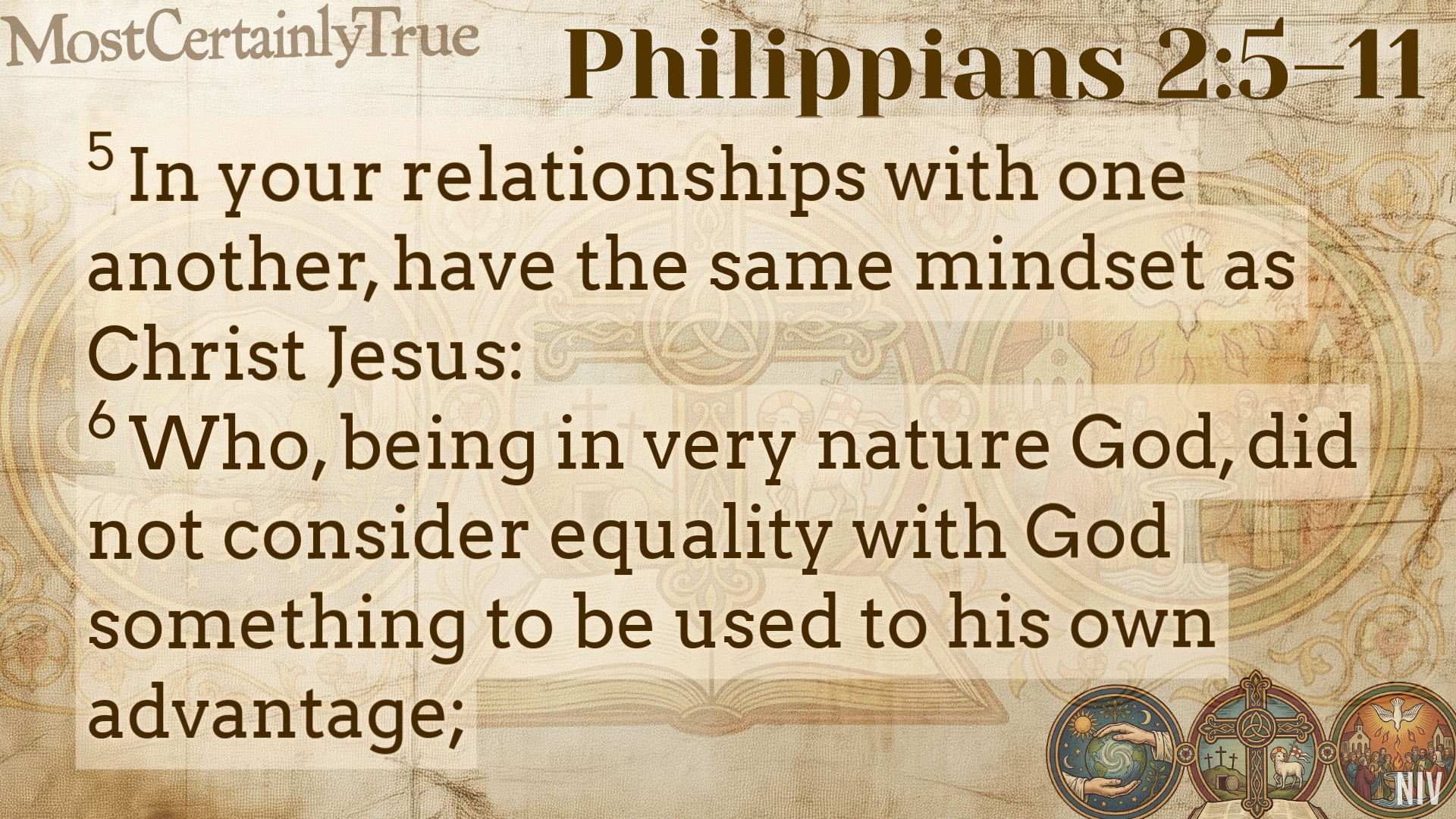
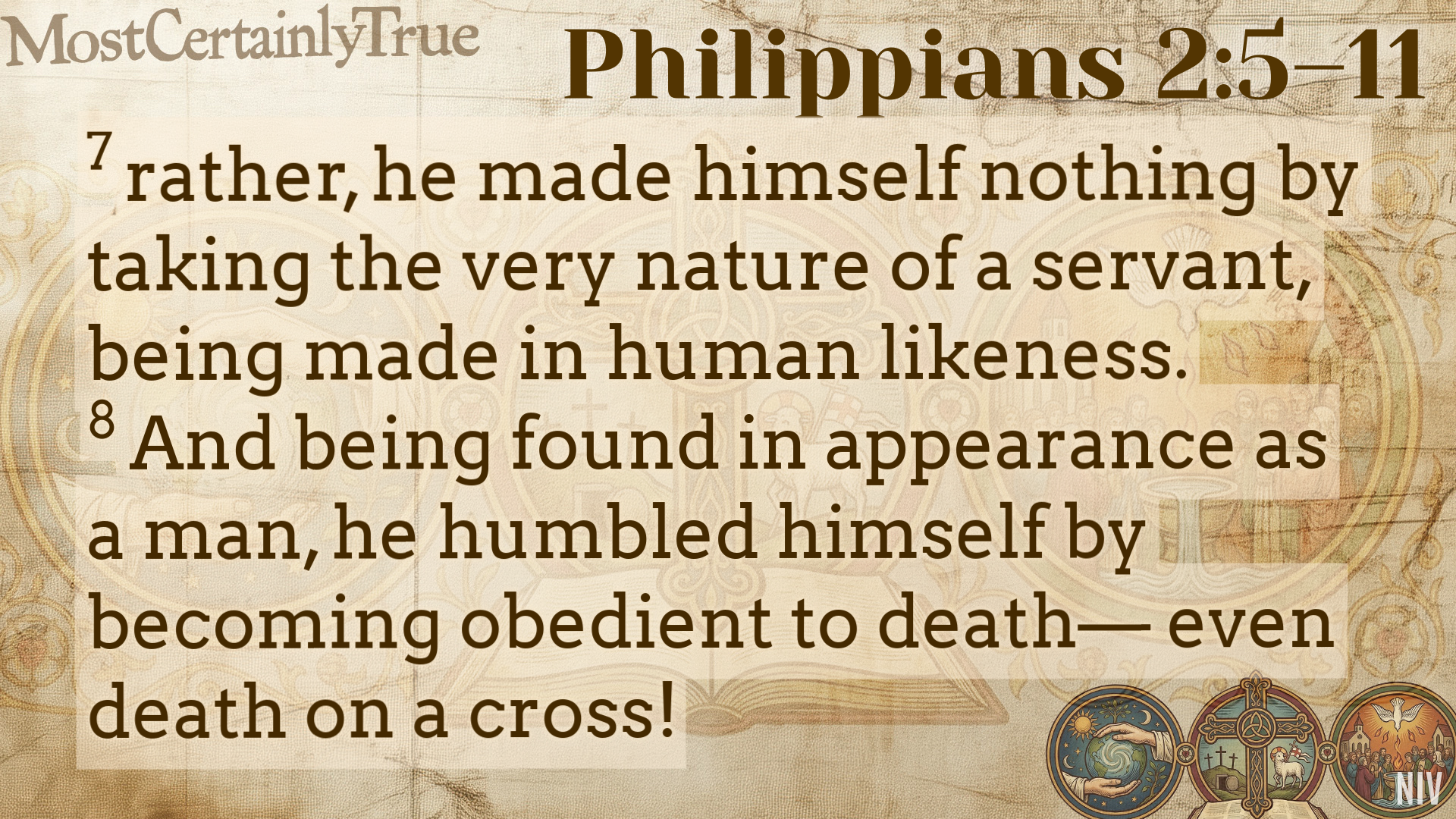
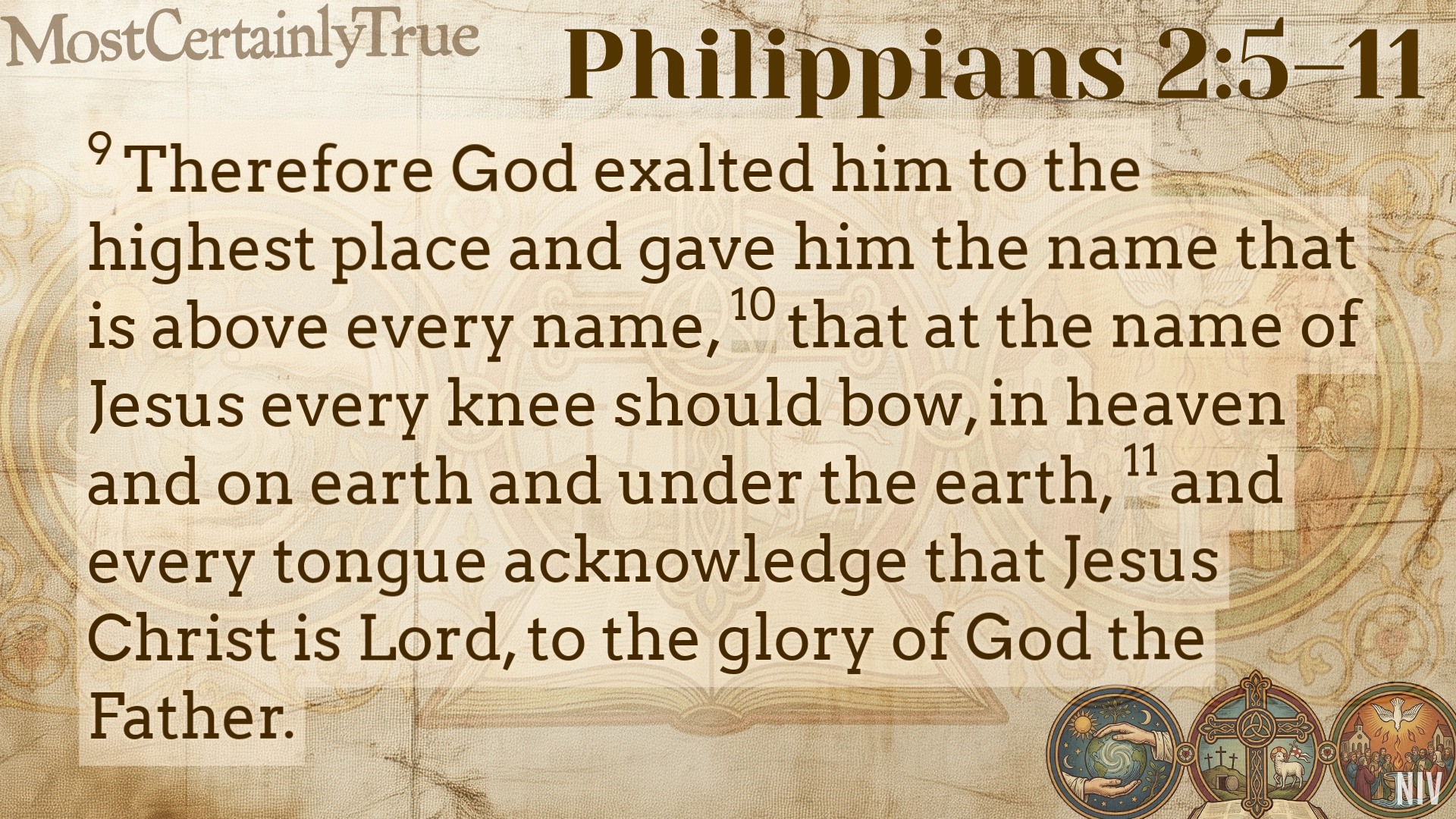
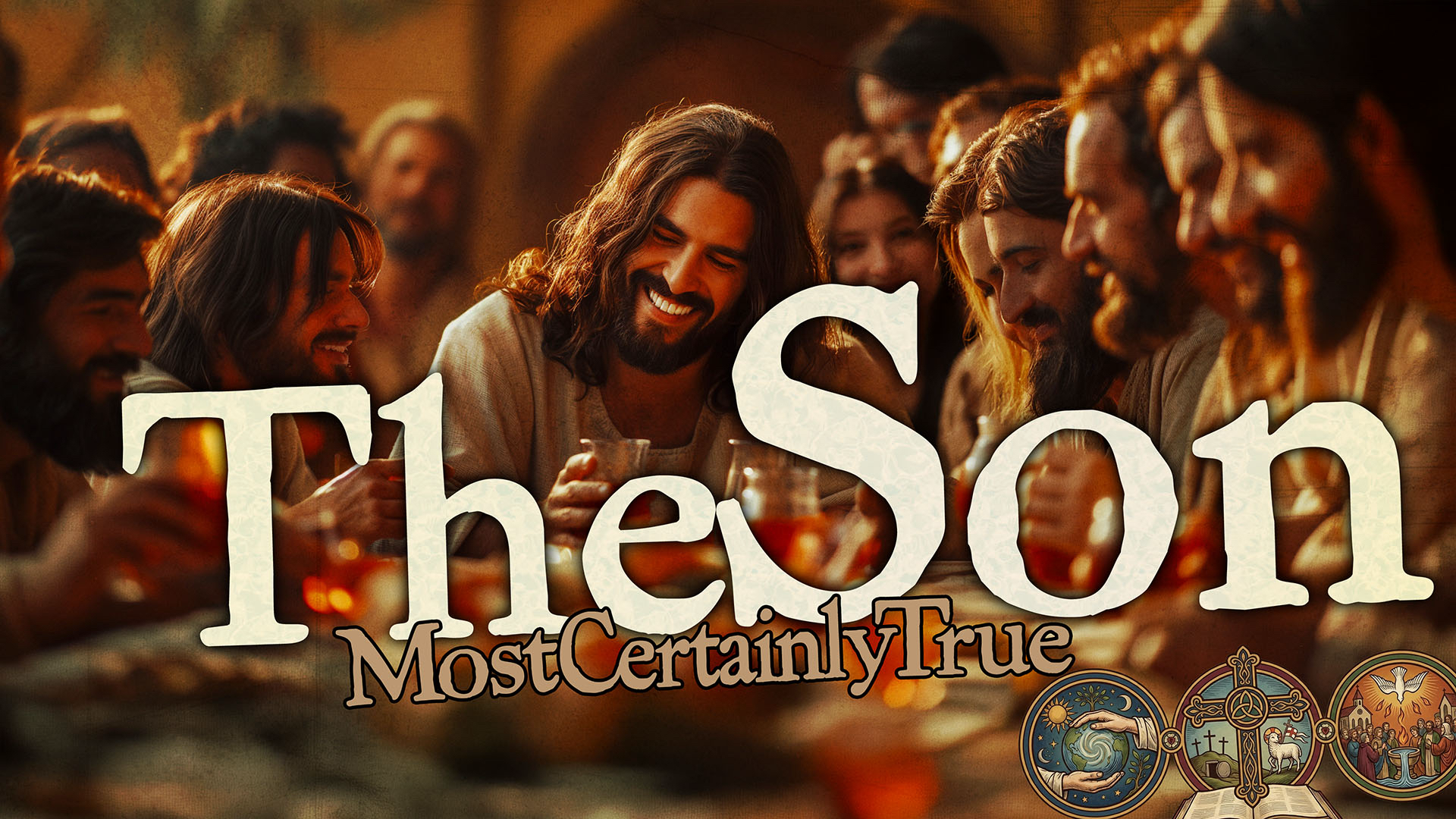
Questions for the Week: Apostles Creed: My Lord
We often hear "Jesus is Lord" as a command to obey. Luther contradicts this understanding in the Large Catechism where he writes, “What is it to ‘become my Lord?’ This means He has redeemed me from sin, from the devil, from death and from all evil. Before that, I had no Lord and King, but was held captive in the devil’s power, condemned to die, and bound up in sin and blindness.” How does Luther’s definition change the way you feel about His authority over your life?
In Genesis 12-13, we see Abraham kept trying to "give away" God's blessings (his wife, the land) out of fear or impatience. In what areas of your life do you try to take control or settle for less because you don't trust God to come through?
Read Mark 16:1-8: After Peter’s worst failure (denying Jesus), the angel specifically mentioned his name: "Tell his disciples and Peter." Why was it so important for Peter to hear his name in that moment? What does that tell you about how God views your own failures?
The Bible isn't a rulebook but a storybook of God saving people who constantly try to mess it up. How can we,"give people something to believe" this week by living out that kind of grace for others?
What Had happened at Grace this week.
Amos Overview Class 1 - Bible Study
We launched our study of Amos with an overview, read the book aloud, and discussed true worship expressed through justice and righteousness, Israel’s hypocrisy and idolatry, God’s judgment, and hope of restoration.
Amos Overview
This is our 1st class on Amos
This is an AI Recap of the class.
Some things may be incorrect.
Short Summary of the Whole Class
We previewed Amos’s themes with a BibleProject overview, then read through the book, pausing to discuss judgments on surrounding nations and Israel, the critique of social injustice and hollow religion, visions of impending judgment, and a closing promise of restoration that includes the nations. We connected Amos’s call for justice and righteousness to Jesus’s cleansing of the temple and noted the historical setting under Jeroboam II and Uzziah.
Section-by-Section Walkthrough and Summaries
Opening Setup and Goals
We introduced Amos as the next study after Joel, planned to watch the BibleProject summary, and read the entire book of Amos in one sitting (~30 minutes).
Amos was framed as a countryside shepherd-fig farmer confronting urban complacency, well-known for “Let justice roll like waters” (Amos 5:24).
We connected the prophetic emphasis to the Kingdom of God’s priority of people over wealth or ritual.
Short summary:
We set the plan to watch an overview, read Amos fully, and focus on its timeless call to prioritize people through justice and righteousness.
Stories/Scriptures mentioned:
Amos 5:24.
Broader themes referenced: Joel; Revelation; Kingdom of God.
BibleProject Video Overview
Amos’s identity: shepherd and fig farmer from Tekoa near Judah/Israel border.
Historical context: Northern Kingdom under Jeroboam II; prosperity, idolatry, neglect of the poor; links to 1 Kings 12.
Structure:
Amos 1–2: oracles against nations, culminating with Israel.
Amos 3–6: poems exposing religious hypocrisy, social injustice, idolatry; call for justice and righteousness.
Amos 7–9: visions of judgment; final hope to restore David’s house and include the nations.
Key themes: religious hypocrisy, justice (mishpat) and righteousness (tzedakah), idolatry, Day of the Lord, hope of restoration.
Short summary:
The overview highlighted Amos’s background, structure, and central message: true worship must include justice and righteousness; idolatry and injustice bring judgment, yet God promises restoration.
Stories/Scriptures mentioned:
Amos 1; Jeroboam II; Uzziah.
1 Kings 12.
Amos 5:24; Amos 5; Amos 8–9; Amos 9:11–15.
Connection to Jesus and Temple Cleansing
We drew parallels between Amos’s critique of ritual without justice and Jesus overturning temple tables.
After cleansing, Jesus welcomes the poor and the lame, restoring the temple’s purpose.
Warning against treating worship like transactional penance rather than covenant faithfulness.
Short summary:
Amos’s indictment of hollow worship aligns with Jesus’s temple cleansing, emphasizing mercy, justice, and inclusion of the marginalized.
Stories/Scriptures mentioned:
Matthew 21:12–14; Mark 11:15–17; Luke 19:45–46.
Amos 5:21–24.
Reading Amos: Oracles Against the Nations (Amos 1–2)
Time markers: “days of Uzziah king of Judah” and “Jeroboam son of Joash king of Israel,” “two years before the earthquake” (Amos 1:1).
Opening image: “The Lord roars from Zion” (Amos 1:2).
Refrain: “For three transgressions … and for four, I will not revoke the punishment.”
Nations indicted:
Damascus/Aram (Amos 1:3–5).
Gaza/Philistia (Amos 1:6–8).
Tyre (Amos 1:9–10).
Edom (Amos 1:11–12).
Ammon (Amos 1:13–15).
The sequence circles Israel to set up Israel as the central target.
Short summary:
God’s judgments begin with neighboring nations for their atrocities, signaling His universal justice and preparing the confrontation with Israel.
Stories/Scriptures mentioned:
Amos 1:1–15 (Damascus, Gaza, Tyre, Edom, Ammon).
Israel in the Crosshairs and Covenant Responsibility (Amos 2–6)
Israel’s indictment:
Selling the righteous for silver, needy for sandals; trampling the poor; corrupt courts (Amos 2:6–7).
Sexual exploitation and profaning God’s name (Amos 2:7).
Idolatry and luxurious worship disconnected from justice (Amos 4–5).
Covenant reminder: chosen to bless the nations; greater responsibility (Amos 3:1–2; echo Genesis 12).
God rejects festivals and sacrifices when injustice persists (Amos 5:21–23).
Central call: “Let justice roll like waters, and righteousness like an ever-flowing stream” (Amos 5:24).
“Seek me and live” and “Seek good, not evil” (Amos 5:4, 6, 14).
Warning of the Day of the Lord as darkness (Amos 5:18–27); exile fulfilled later by Assyria.
Short summary:
Amos confronts Israel’s systemic injustice and hollow worship, urging them to seek God through justice and righteousness, lest the Day of the Lord bring judgment.
Stories/Scriptures mentioned:
Amos 2:6–8; Amos 3:1–2; Amos 4–5; Amos 5:4, 14, 18–27.
Genesis 12 (alluded).
1 Kings 12.
Visions of Judgment and Final Hope (Amos 7–9)
Visions:
Locusts (Amos 7:1–3).
Fire (Amos 7:4–6).
Plumb line (Amos 7:7–9).
Basket of summer fruit (Amos 8:1–3).
Striking the temple; none escape (Amos 9:1–4).
Amaziah’s opposition (Amos 7:10–17).
Final hope: restoration of David’s house; inclusion of the nations; renewal of land (Amos 9:11–15).
Short summary:
Amos’s visions depict imminent judgment yet end with hope: God will restore David’s house and gather a renewed, multi-nation people under His mercy.
Stories/Scriptures mentioned:
Amos 7:1–17; Amos 8:1–3; Amos 9:1–4, 11–15.
Amaziah confronting Amos (Amos 7:10–17).
Expanded Readings: Moab, Judah, and Israel (Amos 2:1–16)
Charges against Moab for desecrating Edom’s king’s bones; Judah for despising God’s law; Israel for exploiting the poor and embracing immorality and idolatry.
God recalls past grace: defeat of the Amorites, deliverance from Egypt, prophets and Nazarites; Israel silenced His messengers.
Judgment will be inescapable; even the strong won’t survive.
Short summary:
Past grace intensifies present accountability; Moab, Judah, and especially Israel are indicted for moral corruption and oppression.
Stories/Scriptures mentioned:
Amos 2:1–16.
Amorites; Exodus; prophets; Nazarites.
Agreement with God and Prophetic Inevitability (Amos 3:1–15)
“Can two walk together unless they are agreed?” emphasizes covenant responsibility.
Images of lion, snares, trumpets: judgment has a cause—Israel’s injustice.
God reveals plans to prophets; prophetic word compels proclamation.
Witness against Samaria’s violence; adversary will plunder palaces.
Bethel’s altars destroyed; luxury homes—winter, summer, ivory—ended.
Shepherd rescuing scraps illustrates a remnant.
Short summary:
Israel’s special calling brings stricter judgment; prophetic warning is compelled by God’s word; idolatry and luxury will be torn down.
Stories/Scriptures mentioned:
Amos 3:1–15.
Palace proclamations to Ashdod and Egypt; remnant image.
“Cows of Bashan” and Counterfeit Worship (Amos 4:1–13)
Wealthy oppressors warned of exile.
God catalogues corrective judgments—famine, drought, blight, mildew, locusts, plague, warfare, near-destruction like Sodom and Gomorrah—yet Israel did not return.
Climactic call: “Prepare to meet your God,” asserting His sovereignty over creation.
Short summary:
Despite repeated corrective judgments, Israel refused to return; God summons them to meet Him, the Creator and Judge.
Stories/Scriptures mentioned:
Amos 4:1–13.
Droughts; echoes of Egypt’s plagues; Sodom and Gomorrah.
Seek the Lord and Live; Justice vs. Empty Religion (Amos 5:1–27)
Lament over Israel’s fall; call to seek the Lord, not sanctuaries (Bethel, Gilgal, Beersheba).
Condemnation of social sins: trampling the poor, taking bribes, perverting justice.
Commands: “Seek good, not evil,” “Hate evil, love good,” “Establish justice in the gate.”
Warning: the Day of the Lord is darkness for the unrepentant.
God rejects hollow worship; demands justice to roll down and righteousness to flow.
Short summary:
Life is found in seeking God with justice; the Day of the Lord brings doom for the unrepentant; God despises worship without righteousness.
Stories/Scriptures mentioned:
Amos 5:1–27.
Images of fleeing lion then bear; serpent bite at home.
Woe to Complacent Luxury; Certainty of Judgment (Amos 6:1–14)
Critique of indulgence—beds of ivory, music, bowls of wine, fine ointments—paired with indifference to “the affliction of Joseph.”
God swears to deliver the city; devastation will be comprehensive.
Parables: horses running on rocks; plowing rock—exposing the absurdity of turning justice into gall and righteousness into wormwood.
Human boasting rebuked; God will raise a nation to humble Israel.
Short summary:
Arrogant ease blinds Israel to injustice; God will overturn pride and bring pervasive judgment.
Stories/Scriptures mentioned:
Amos 6:1–14.
Calneh, Hamath, Gath; funerary scenes of silent dread.
Visions: Intercession and Conflict with Amaziah (Amos 7:1–17)
Locusts and fire visions lead Amos to intercede; God relents.
Plumb line: God measures moral straightness; declares He will no longer pass by.
Sanctuaries and house of Jeroboam face the sword.
Amaziah accuses Amos; Amos recounts his calling as shepherd and sycamore dresser; prophesies judgment on Amaziah’s household and Israel’s exile.
Short summary:
God hears intercession but ultimately judges; true prophetic calling stands firm against religious and political pressure.
Stories/Scriptures mentioned:
Amos 7:1–17.
Amos’s rural vocation; royal and priestly opposition.
Vision of Summer Fruit and a “Famine” of God’s Word (Amos 8:1–14)
Basket of summer fruit signals “the end.”
Economic exploitation: dishonest scales, selling bad wheat, buying the needy for sandals.
Cosmic signs: midday darkness; universal mourning.
A unique judgment: famine of hearing God’s word; seekers won’t find it.
Idol-swearers will fall.
Short summary:
Exploitation brings physical and spiritual catastrophe; the worst famine is the silence of God’s word.
Stories/Scriptures mentioned:
Amos 8:1–14.
Marketplace deceit; noon-day darkness; spiritual drought.
Final Vision: Inescapable Judgment and Promised Restoration (Amos 9:1–15)
God stands by the altar and commands judgment—no escape by depth, height, mountain, sea, or captivity.
God’s sovereignty over nations noted; sifting comes: sinful kingdom destroyed, but house of Jacob not utterly destroyed.
Hope: raise the fallen “booth/tabernacle of David,” include Gentiles called by His name, era of abundance—plowman overtaking reaper, mountains dripping sweet wine.
Exiles return; cities rebuilt; vineyards planted; people planted permanently.
Short summary:
Judgment is thorough yet not total; God preserves a remnant and promises messianic restoration that embraces the nations and renews the land.
Stories/Scriptures mentioned:
Amos 9:1–15.
Thresholds shaken; cosmic pursuit; agricultural overflow; rebuilding cities.
Additional Thematic Links and Notes
Amos’s humble origins (Amos 7:14); God uses unexpected people.
Parallels with Isaiah and Joel’s “Day of the Lord” imagery; Revelation’s patterns (seven churches; scales).
Amos and Job connections: creation tour rhetoric (Job 38–41).
Intercession parallels: Abraham for Sodom (Genesis 18).
Textual note flagged: “days” vs. “years” in Amos 4:4 (to be studied further).
Zacchaeus (Luke 19) referenced as an example of unexpected people God uses.
Contemporary analogy: Hunger Games’ Capitol excess illustrating exploitative luxury.
Short summary:
We noted cross-canonical echoes, Amos’s humble calling, intercessory patterns, a translation nuance, and used modern imagery to illuminate prophetic critique.
Stories/Scriptures mentioned:
Amos 7:14.
Isaiah (unspecified), Joel (unspecified).
Job 38–41.
Genesis 18.
Revelation 2–3; Revelation 6.
Luke 19.
Amos 4:4.
Medium-Length Summary of the Class
Our study journeyed through Amos’s oracles and visions, revealing a God who holds both the nations and His covenant people accountable for injustice, idolatry, and hypocrisy. After a BibleProject overview, we read the book aloud, noting the opening judgments on surrounding nations that crescendo into a focused indictment of Israel’s exploitation of the poor, corrupt courts, and luxury cloaked in religious ritual. Amos insists that true worship is inseparable from justice and righteousness, calling the people to “seek the Lord and live” and warning that the Day of the Lord will be darkness for the unrepentant. We traced the visions—from intercession and relenting (locusts, fire) to measurement and inescapable judgment (plumb line, collapsing temple)—and observed resistance from Amaziah. The study closed with hope: God will raise the fallen house of David, include the nations, and bring abundant renewal. Throughout, we connected Amos’s critique to Jesus’s cleansing of the temple, explored cross-links with Job, Joel, and Revelation, and highlighted that covenant privilege increases responsibility. Genuine faith, we concluded, is measured by how we treat people.
Main Points
Amos confronts social injustice and religious hypocrisy, especially among Israel’s wealthy and leaders.
True worship demands justice (mishpat) and righteousness (tzedakah) flowing through community life.
Israel’s covenant calling carries greater responsibility; betrayal invites judgment.
Idolatry corrodes moral life and leads to oppression and empty ritual.
The Day of the Lord brings real consequences for the unrepentant, yet God’s long-term purpose is restoration.
Jesus’s temple cleansing echoes Amos’s concern: worship must serve people and reflect God’s justice.
Prophetic visions move from intercession and relenting to measurement and certain judgment, ending with hope.
Silencing God’s word leads to a spiritual famine more devastating than physical lack.
Restoration includes the nations under the restored “house/tabernacle of David.”
Scriptures Mentioned
Amos 1:1–2
Amos 1:3–15
Amos 2:1–16
Amos 2:6–8
Amos 3:1–15
Amos 4:1–13
Amos 4:4
Amos 5:1–27
Amos 5:4, 6, 14
Amos 5:18–27
Amos 5:21–24
Amos 5:24
Amos 6:1–14
Amos 7:1–17
Amos 7:14
Amos 8:1–14
Amos 9:1–4
Amos 9:11–15
1 Kings 12
Genesis 12 (alluded)
Genesis 18
Matthew 21:12–14
Mark 11:15–17
Luke 19:45–46
Luke 19
Job 38–41 (implied parallels)
Isaiah (unspecified passages)
Joel (unspecified passages)
Revelation 2–3
Revelation 6
Stories Mentioned
Amos’s background as a shepherd and fig farmer from Tekoa (Amos 7:14).
Surrounding nations’ injustices and God’s judgments against them.
Israel’s systemic exploitation of the poor and legal corruption.
Jesus overturning the money changers’ tables and welcoming the needy into the temple.
Amos’s confrontations and visions (locusts, fire, plumb line, summer fruit, collapsing temple).
Amaziah opposing Amos.
The defeat of the Amorites and the Exodus from Egypt; prophets and Nazarites resisted.
“Cows of Bashan” (wealthy oppressors); repeated corrective calamities; echoes of Sodom and Gomorrah.
Lament imagery: fleeing a lion, meeting a bear; serpent bite at home.
Luxury and complacency—beds of ivory, music, bowls of wine—ignoring Joseph’s affliction.
Famine of hearing God’s word; marketplace deceit; noon-day darkness.
Restoration promises: raising the “house/tabernacle of David”; inclusion of the nations; agricultural abundance; rebuilding cities.
Zacchaeus (Luke 19) as an example of unexpected people God uses.
Contemporary illustration: Hunger Games’ Capitol excess as a mirror of exploitative luxury.
[Sunday] The Son, Most Certainly True
The Creed reveals a God who made His love real by becoming human to be with us in our greatest sorrows and our loudest joys.
The Creed reveals a God who made His love real by becoming human to be with us in our greatest sorrows and our loudest joys.
Questions for the Week: Apostles Creed: The Son
When you listen to the Creed, it mentions things like "suffered under Pontius Pilate" and "buried." Why do you think it’s important to our faith that Jesus was a real, physical person in a specific time in history rather than just a legendary teacher?
Read Mark 2:13-17Jesus ate with sinners and tax collectors. How does it change your view of God to think of Him enjoying a meal and having fun with people? How can we make our own meals and parties a place where Jesus is present?
Read Mark 1: 9-15. We often want to use faith to escape our problems, but God used Jesus to enter our problems. How does knowing that God is willing to get His hands dirty in your "wilderness" change how you pray during hard times?
Read Philippians 2:5-11. How can we have the same mind of Christ, having great parties with people and also times to grieve with people this month?
What Had happened at Grace this week.
Remembering Susan Becker
Remembering our Dear Friend, Mother, and Grandmother| Susan
Service Live Stream is at 11am
Susan Jean Becker, age 78, a devoted Christian, went to be with her Lord and Savior on January 2, 2026. She was born on August 28, 1947, in Ann Arbor, Michigan.
Susan was a founding and deeply active member of Grace Lutheran Church in Port St. Lucie, Florida. Her faith was the cornerstone of her life, and she joyfully served her church and community for many years. She was a proud member of the Lutheran Women’s Missionary League (LWML), organized the church’s Angel Tree ministry, and also led Vacation Bible School , touching the lives of countless children through her leadership, dedication, and love.
Susan was also passionate about mentoring and guiding young people. She served as a Girl Scout troop leader for numerous years, where she helped shape and inspire young girls.
During her children’s younger years, Susan devoted herself to being a homemaker. She later worked as a service representative for American Greetings and also spent over 20 years working as a delivery driver for Domino’s Pizza. In her free time, Susan was an avid bowler and enjoyed playing on multiple tennis leagues.
The light of Susan’s life was her family, especially her grandchildren and great-grandchildren, whom she cherished deeply.
She was preceded in death by her beloved husband of 45 years, William “Bill” Becker; her father, Donald T. Martin; her mother, Jean E. Martin; her brothers, Don Martin Jr., Douglas Martin, and James P. Martin; her son-in-law, Thomas J. Favors Sr.; and her granddaughter, Cameron T. Birtwell.
Susan is survived by her son, Todd Becker of McKinney, Texas; her daughters, Stephanie Koontz (Darin) and Kimberly Becker, both of Port St. Lucie, Florida; and her twelve grandchildren: Christine Carcano (Anthony), Courtney Sauber (Jerry), Thomas Favors Jr. (Lauren), Tiffany Becker, Cassie Birtwell, Brittany Favors, Heather Lipa (Kyle), Joseph Favors, Gannon Becker, Corey Birtwell, and Paige Becker. She is also survived by her great-grandchildren: Carson Favors, Paxton and Palmer Sauber, Riley Paige Sandman, and Wyatt Favors. She is also survived by 3 sisters, Julie McGee, Beatrice Imm (Augie), Joan Wilson (Rick) and 1 brother , Ken Martin (Kellen) and numerous nieces and nephews.
A memorial service will be held on January 24, 2026, at 11:00 a.m. at Grace Lutheran Church in Port St. Lucie, Florida.
In lieu of flowers, donations may be made to Grace Lutheran Church.
Blessings in Haiti
Earlier this year, we received an urgent request for food aid in Haiti. Thanks to your support, we provided the funds to buy rice, oil, and other essentials.
Earlier this year, we received an urgent request for food aid for Haiti. Thanks to your support, we were able to send the funds needed to buy rice, oil, and other basic necessities.
Thank you to everyone at Grace Lutheran PSL for stepping up to help. Special thanks for your continued prayers for our brothers and sisters in Haiti, as well as for Meschac and the Habitat For Children's Ministries.
Joel Chapters 2:18-3 - Bible Study
A study through Joel 2:18–3:21 explored God’s call to heartfelt repentance, His promise to restore, and His just judgment on nations that commodify and oppress people, contrasting worldly power with God’s care for the humble.
Joel Chapters 2:18-3
This is our 3nd class on Joel
This is an AI Recap of the class.
Some things may be incorrect.
Short summary of the whole class
We continued our series in Joel, recalling last week’s locust imagery as both Exodus echoes and an Assyrian invasion metaphor. We listened to Joel 2:18–3:21 (NKJV) and discussed authentic repentance—“rend your hearts, not your garments”—versus transactional religion. We traced themes of mercantilism and commodification, connected Joel’s judgment scenes to Revelation’s harvest and “grapes of wrath,” clarified that “Let the weak say, ‘I am strong’” is a taunt to the nations, and emphasized God’s justice, His shelter for His people, and the reversal of exploitative systems. We also framed Joel’s hope in “now-and-not-yet” terms, highlighting the kingdom’s true currency—people over transactions—and connections to Pentecost, Isaiah/Micah’s peace vision, and Jesus’ teaching, closing with plans to study Amos next.
Section-by-section walkthrough with summaries, verses, and stories
1) Recap and setup: Locusts, Assyria, and authentic repentance
Discussion points:
Joel’s locust imagery evokes Egypt/Exodus and symbolizes Assyria’s invasion—locusts appearing almost supernatural in their devastation.
Joel’s call: “Rend your hearts, not your garments” emphasizes real repentance over external displays.
Warning against transactional religion: using religious acts to “keep God pleased,” contrasted with Jesus’ call to love and fruit.
Verses mentioned:
Joel 2:13
Allusions to Matthew 23; John 13:35
Stories mentioned:
Job making precautionary sacrifices for his children (Job 1:5).
Short summary of section:
Joel contrasts empty religious pomp with genuine heart-turning to God, setting the stage with locusts as both historical image and prophetic metaphor.
2) Reading plan and versions
Discussion points:
We listened to Joel 2:18 through the end of the book (NKJV), noting the Jewish Study Bible’s different chapter numbering at 2:27/3:1.
Multiple translations are welcome; NKJV was used for clarity and dramatized reading.
Verses mentioned:
Joel 2:18–3:21 (NKJV); note on numbering at Joel 2:27/3:1.
Stories mentioned:
None.
Short summary of section:
The class oriented around the NKJV reading of Joel 2:18–3:21, ready to trace themes across translation nuances.
3) Joel 2:18–27: Restoration after devastation
Discussion points:
God’s pity and zeal lead to tangible restoration—grain, new wine, oil, rain, and fruitfulness—reversing locust losses.
Presence formula: “You shall know that I am in the midst of Israel.”
Verses mentioned:
Joel 2:18–27; especially 2:25, 2:27.
Stories mentioned:
None.
Short summary of section:
After judgment, God restores abundance and dignity to His people, affirming His presence among them.
4) Joel 2:28–32: Spirit outpouring and salvation for all who call
Discussion points:
Universal scope of the Spirit’s work crossing gender, age, and class.
Day of the Lord signs coupled with the real promise of salvation for all who call on the Lord’s name.
Connection to Pentecost as fulfillment.
Verses mentioned:
Joel 2:28–32; Acts 2:16–21.
Stories mentioned:
Pentecost event: the apostles accused of drunkenness, Peter’s sermon (Acts 2).
Short summary of section:
God’s future includes inclusive prophetic empowerment and accessible salvation, fulfilled and extended at Pentecost.
5) Joel 3:1–8: Indictment of nations for commodifying people
Discussion points:
God gathers the nations for judgment over scattering Israel, dividing land, casting lots for people, and trafficking boys and girls.
Mercantilism theme: buying/selling and quid pro quo exposed as false currency.
Retaliation principle: exploitation boomerangs back—“I will return your retaliation upon your own head.”
Verses mentioned:
Joel 3:1–8.
Stories mentioned:
John the Baptist’s beheading at Herod’s banquet (Matthew 14:1–12; Mark 6:17–29) as an example of corrupt, transactional power.
Short summary of section:
God indicts the nations for turning people into commodities; His justice mirrors their exploitation back upon them.
6) Joel 3:9–16: The taunt to the nations and the harvest of judgment
Discussion points:
Clarification: “Let the weak say, ‘I am strong’” is a taunt to God’s enemies—summoning the nations to muster all strength and still be judged.
Harvest and winepress imagery linked to Revelation’s “grapes of wrath.”
Contrast between weaponized pride and God’s shelter for His people.
Verses mentioned:
Joel 3:9–16; Revelation 14:14–20; Revelation 16:16.
Stories mentioned:
Revelation’s harvest and winepress scenes.
Short summary of section:
God challenges boastful nations and judges their pride; at the same time, He remains a shelter for His people in the valley of decision.
7) Joel 3:17–21: Holy Jerusalem and enduring peace
Discussion points:
Final vision: holy Jerusalem, no more invaders, flowing abundance, and a life-giving fountain from the Lord’s house.
Moral reversal: violent nations become desolate; God acquits bloodguilt and dwells with His people.
“Now-and-not-yet” frame: hope points beyond borders to the preservation of God’s people as His treasure.
Verses mentioned:
Joel 3:17–21; Romans 8:39 (for “nothing can separate us” hope); Isaiah 2:4; Micah 4:3.
Stories mentioned:
Exodus deliverance echoes in Egypt/Edom’s desolation (Exodus 14–15).
Short summary of section:
The book closes with God’s abiding presence and abundance for His people, contrasted with the desolation of oppressive powers.
8) How we read Scripture and the kingdom’s currency
Discussion points:
Three layers of reading: text (plain sense), authorial intent/literary devices, and historical context.
God’s kingdom currency is people, not transactions or borders; look for fruit and helpers even when evil’s “stench” is exposed.
Building on the rock: the church is people, not buildings; treasure heaven’s values.
Verses mentioned:
Matthew 6:19–21; Matthew 7:24–27; Matthew 16:16–23; Matthew 18:1–5; Joel 2:20.
Stories mentioned:
Child among the disciples (Matthew 18).
Exposed evil (analogy to church abuse scandals) as a picture of Joel 2:20’s “foul odor.”
Short summary of section:
Reading Joel well engages text, intent, and context; God values people over profit, grows fruit amid exposed evil, and builds His church with living stones.
9) Repentance over weaponization; Babylon as a pattern; Pentecost and heart-currency
Discussion points:
Rend hearts vs. weaponize: Joel’s “plowshares into swords” (judgment context) contrasted with Isaiah/Micah’s post-judgment peace (swords into plowshares).
“Babylon” as a recurring pattern for oppressive empires—Edom, Egypt, Rome, and beyond.
Pentecost confirms Joel’s vision: the Spirit poured out on all flesh, prioritizing the weak and overlooked.
Verses mentioned:
Joel 2:13; Joel 3:9–10; Isaiah 2:4; Micah 4:3; 1 Samuel 16:7 (theme); Acts 2:16–21; John 20:24–29; Mark 5:1–20; Mark 5:21–43.
Stories mentioned:
Gerasene demoniac delivered (Mark 5:1–20).
Jairus’s daughter and the hemorrhaging woman (Mark 5:21–43).
The risen Jesus showing scars to Thomas (John 20:24–29).
Short summary of section:
God calls His people to heart-deep repentance and fruitfulness, judges oppressive “Babylons,” and fulfills Joel at Pentecost—pouring out His Spirit on all and dignifying weakness.
Medium-length final summary
We explored Joel 2:18–3:21 through the lens of apocalyptic “now and not yet,” hearing the NKJV reading and revisiting the locust imagery as both Exodus echo and Assyrian metaphor. Joel presses for authentic repentance—“rend your hearts, not your garments”—warning against transactional religion. God responds with presence and restoration, promising to “restore the years the locust has eaten,” and to pour out His Spirit on all flesh—fulfilled at Pentecost. We focused on God’s indictment of nations that commodify people, tracing a mercantile pattern of buying, selling, and trafficking, and seeing how God reverses exploitation onto the exploiters. We clarified that “Let the weak say, ‘I am strong’” is a taunt to the nations in the judgment summons, and connected Joel’s harvest and winepress imagery to Revelation’s “grapes of wrath.” The closing vision presents holy Jerusalem, abundant life flowing from God’s presence, and judgment on violent empires—read as a hope that centers people over borders or transactions. Throughout, we practiced reading Scripture with attention to text, intent, and context, contrasted weaponization with cultivation (Isaiah/Micah’s peace vision), recognized “Babylon” as a recurring pattern of oppression, and celebrated Jesus’ kingdom where the weak are dignified and the Spirit empowers all.
Main points
Joel calls for heartfelt repentance over outward religious performance.
God promises restoration: presence, provision, and honor for His people.
The Spirit’s outpouring is inclusive and accessible to all who call on the Lord.
Nations are judged for commodifying and exploiting people.
“Let the weak say, ‘I am strong’” in Joel 3:10 is a taunt to the nations, not a believer’s mantra.
Joel’s judgment imagery aligns with Revelation’s harvest and winepress (“grapes of wrath”).
God shelters His people and establishes a holy, enduring Jerusalem.
Read Scripture with text, intent, and context; the kingdom’s currency is people, not transactions.
Repentance and cultivation (peace) are God’s path over weaponization and conquest.
“Babylon” is a recurring pattern of oppressive empire God judges; Pentecost confirms Joel’s inclusive hope.
Bible Scriptures mentioned
Joel 2:13; 2:18–27; 2:25; 2:27; 2:28–32; 3:1–8; 3:9–16; 3:17–21
Job 1:5
Matthew 6:19–21; 7:24–27; 16:16–23; 18:1–5; 23; 14:1–12
Mark 5:1–20; 5:21–43; 6:17–29
John 13:35; 20:24–29
Acts 2:16–21
Romans 8:39
1 Samuel 16:7
Isaiah 2:4
Micah 4:3
Revelation 14:14–20; 16:16
Exodus 14–15
Stories and examples referenced
Job’s precautionary sacrifices for his children (Job 1:5).
John the Baptist’s beheading after Herod’s rash banquet promise (Matthew 14:1–12; Mark 6:17–29).
Pentecost: apostles accused of drunkenness; Peter cites Joel (Acts 2:16–21).
Revelation’s harvest and winepress (“grapes of wrath”) imagery (Revelation 14:14–20; 16:16).
Child placed among the disciples (Matthew 18:1–5).
Church abuse scandal as an illustration of exposed evil (Joel 2:20’s “foul odor”).
Gerasene demoniac delivered (Mark 5:1–20).
Jairus’s daughter and the woman with the issue of blood (Mark 5:21–43).
The risen Jesus showing scars to Thomas (John 20:24–29).
Exodus deliverance: Pharaoh’s army drowned (Exodus 14–15).
Next week: Amos.
[Sunday] Creation Sustained Most Certainly True
From manna in the wilderness to the groceries in your cart, discover how God actively provides for us through Jesus and the vocation of others.
From manna in the wilderness to the groceries in your cart, discover how God actively provides for us through Jesus and the vocation of others.
Sermon Video and Slides

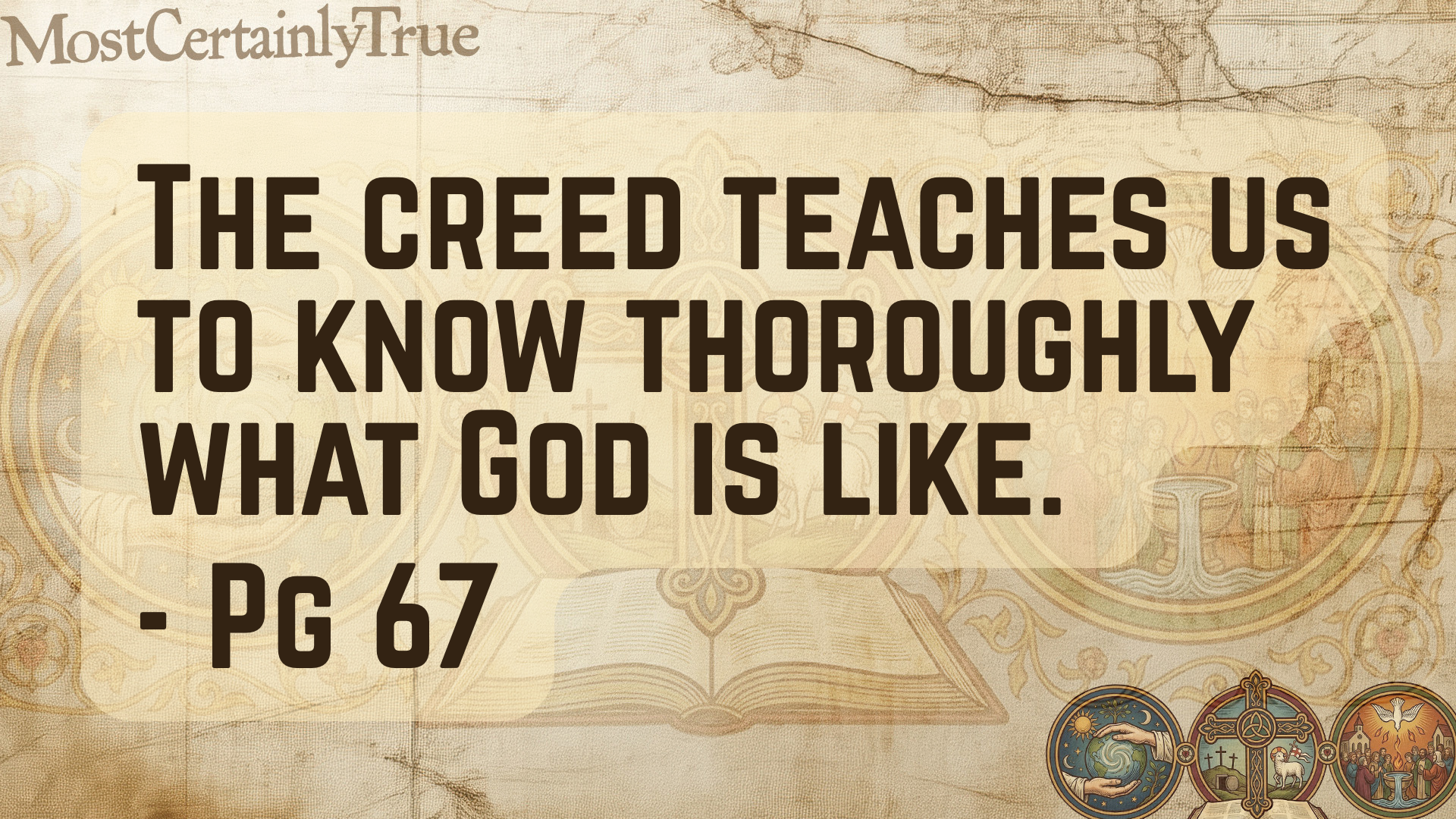
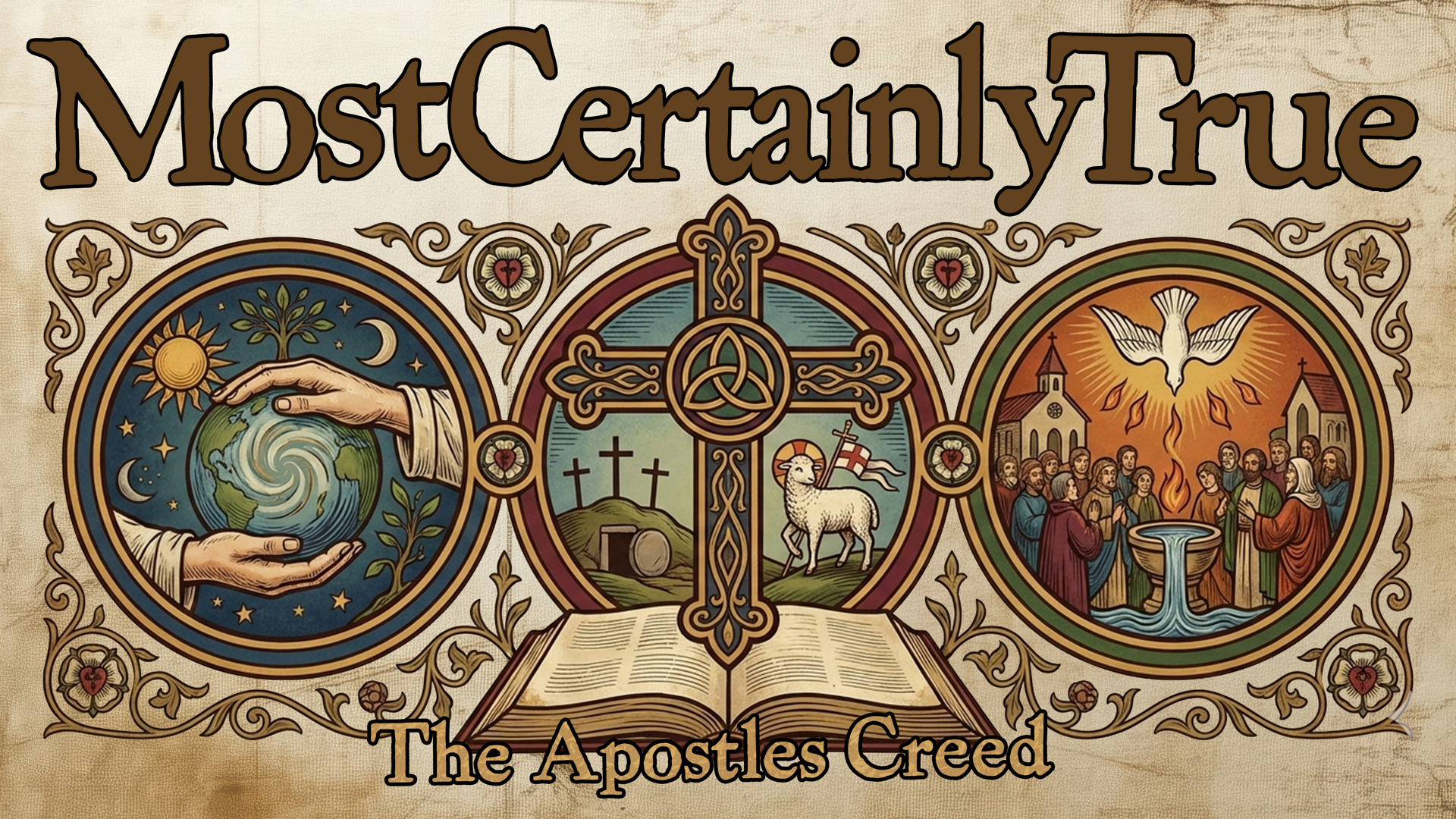
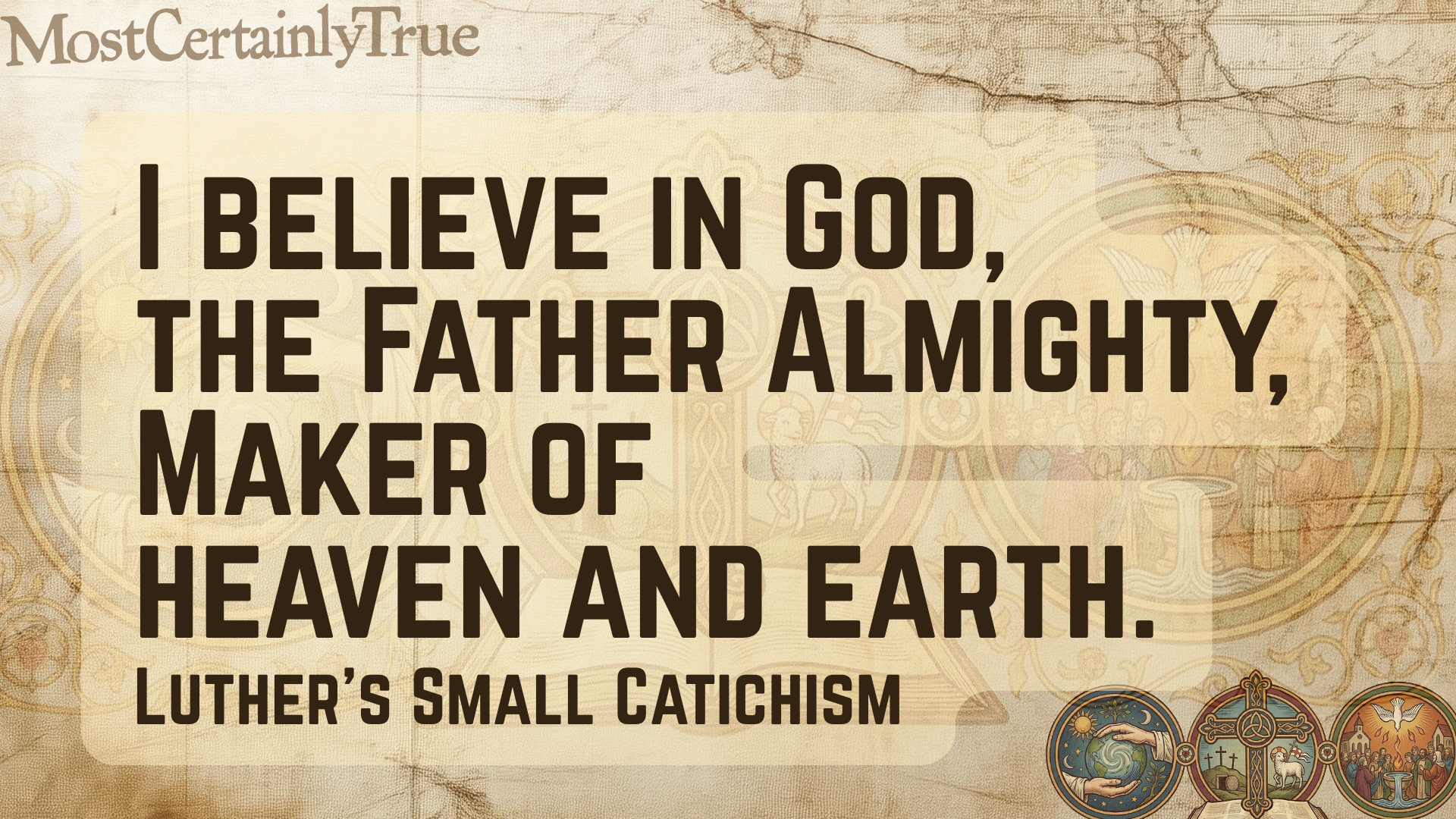
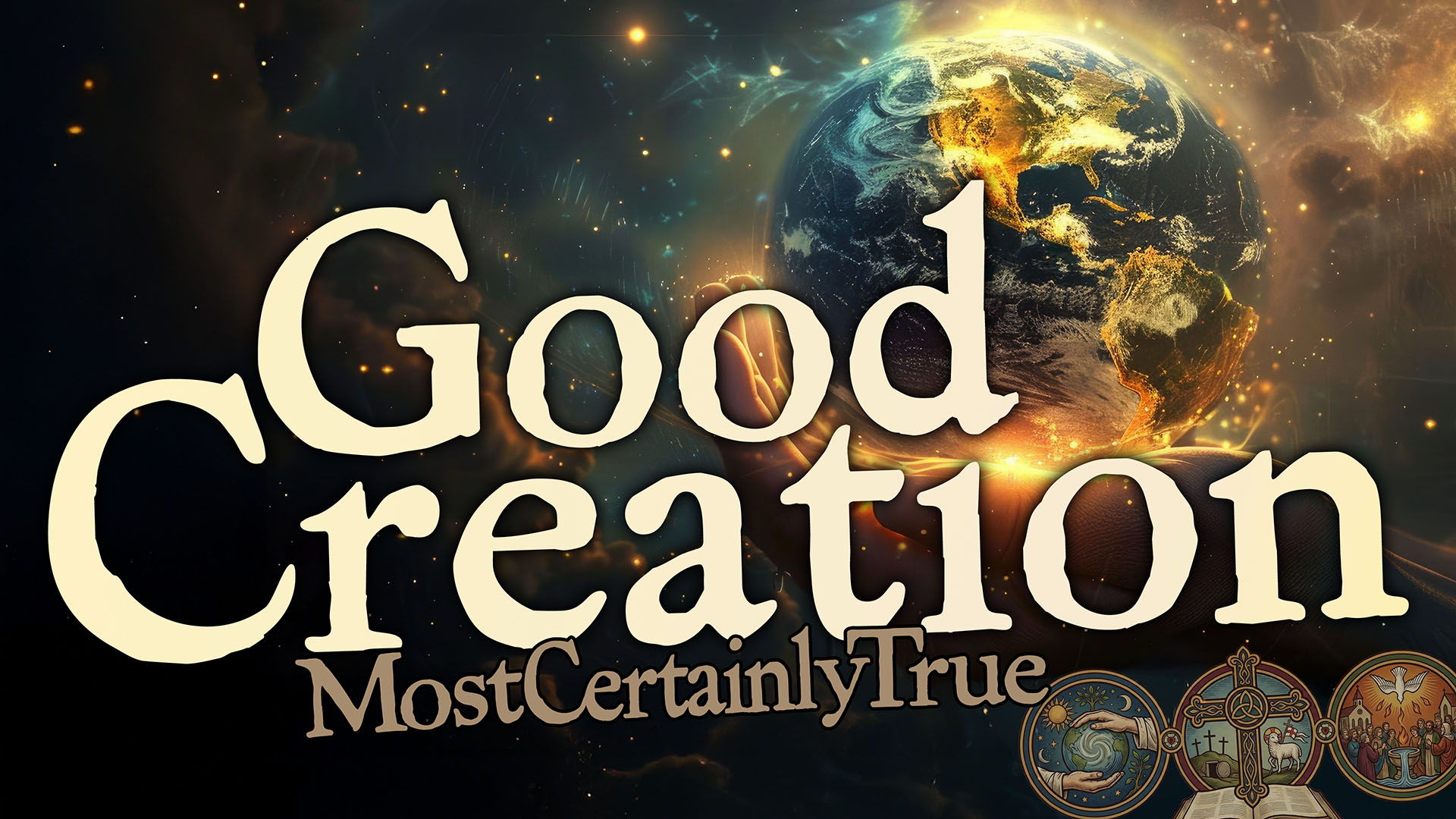

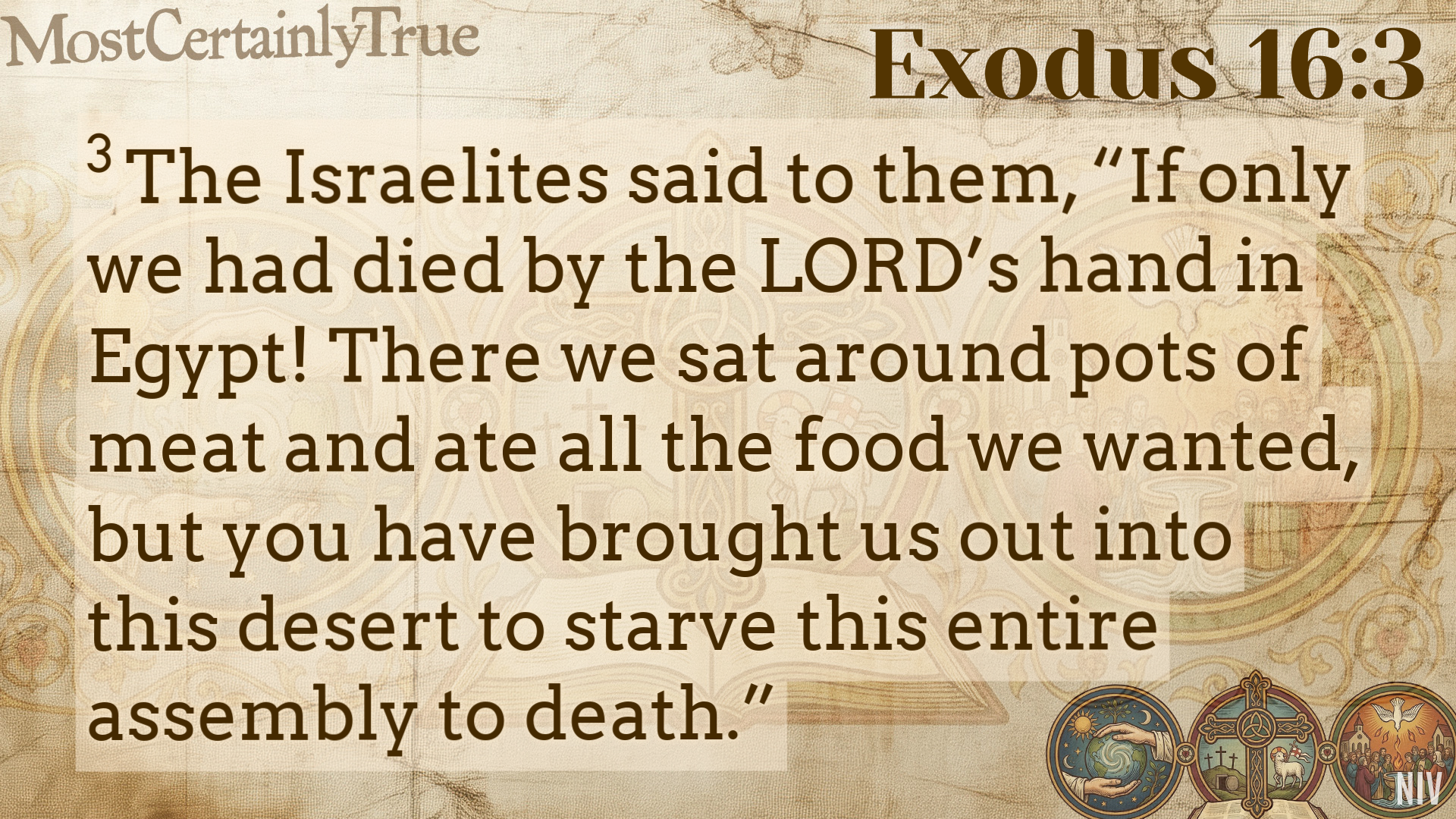
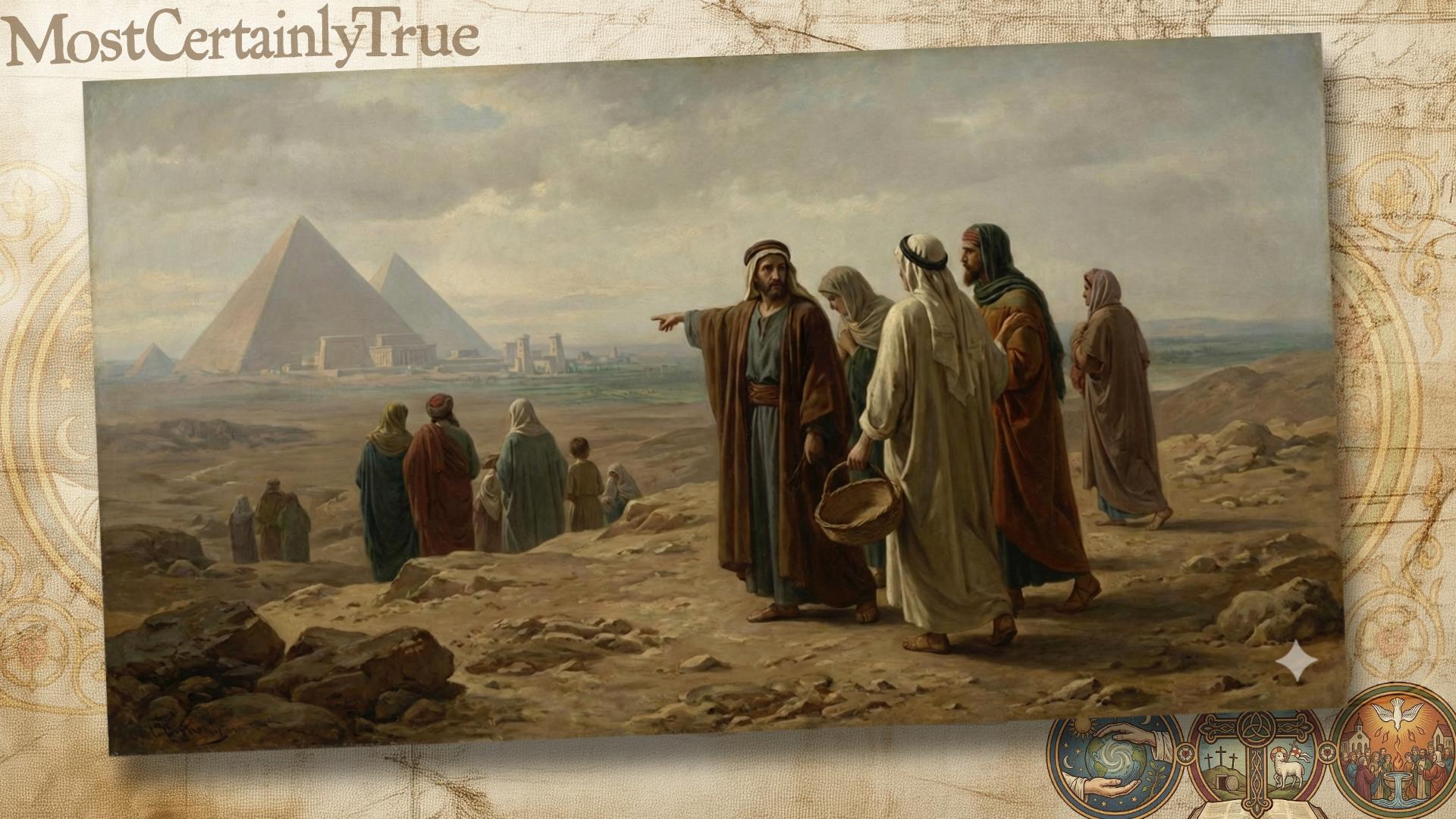
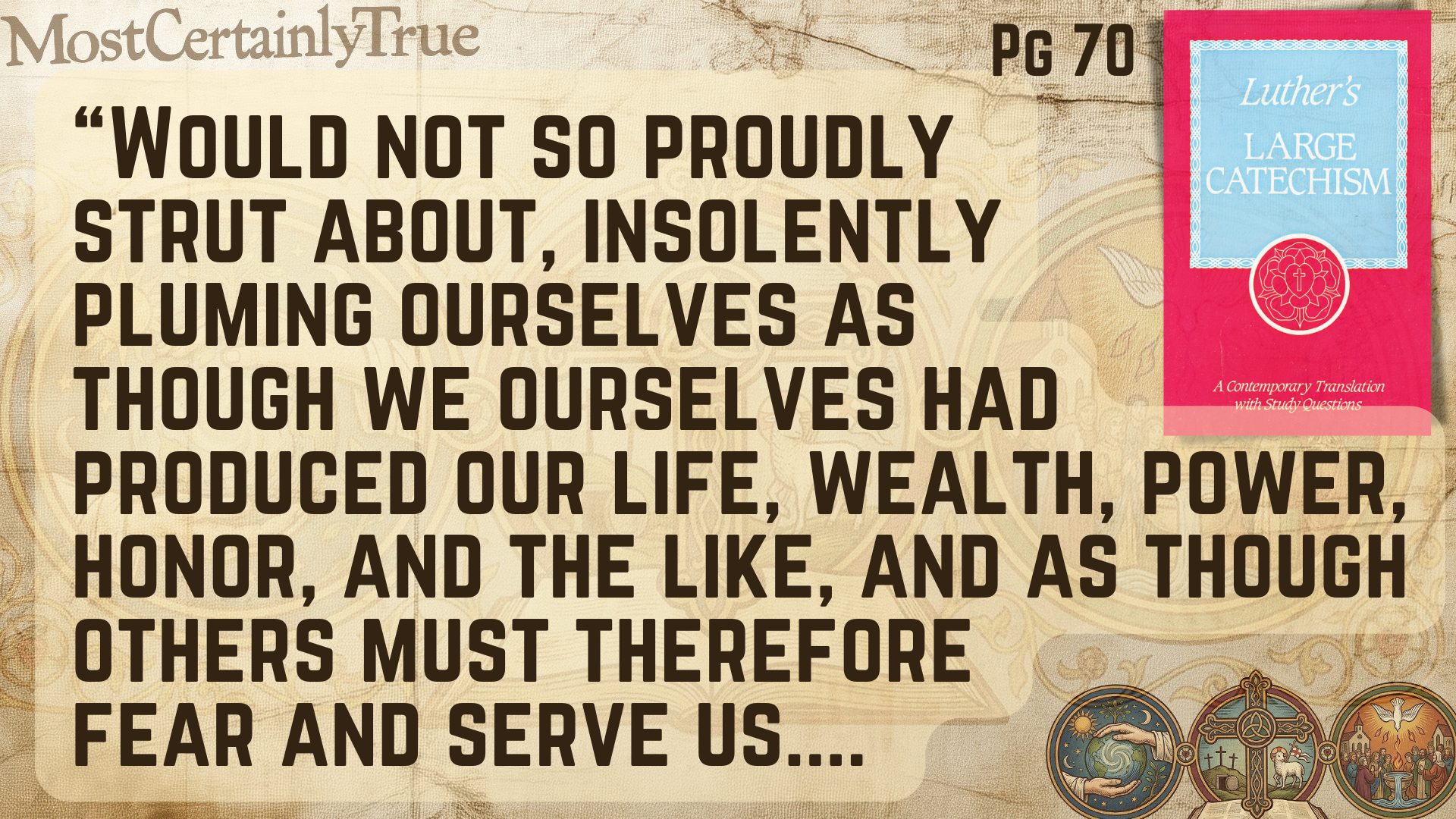
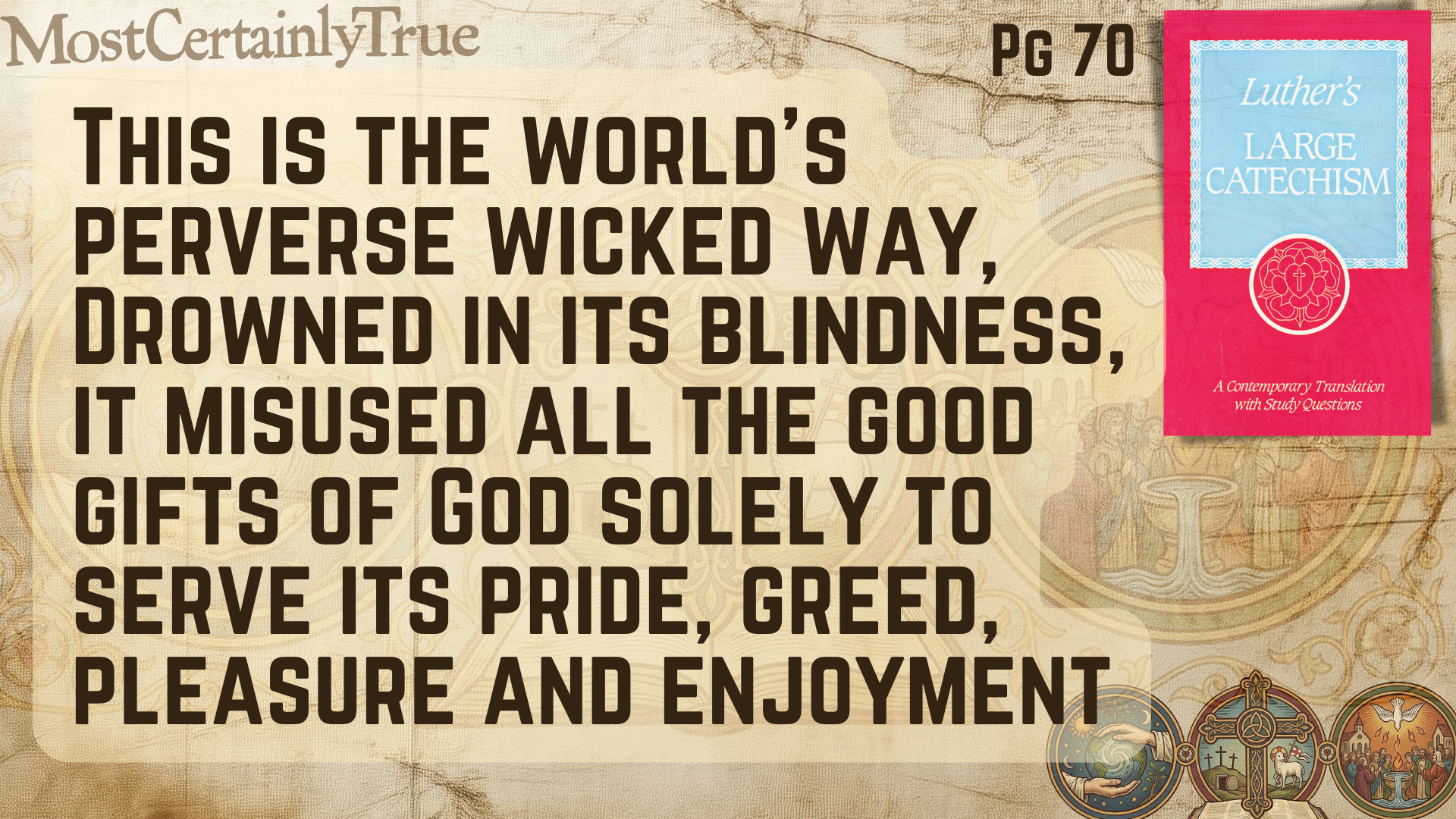
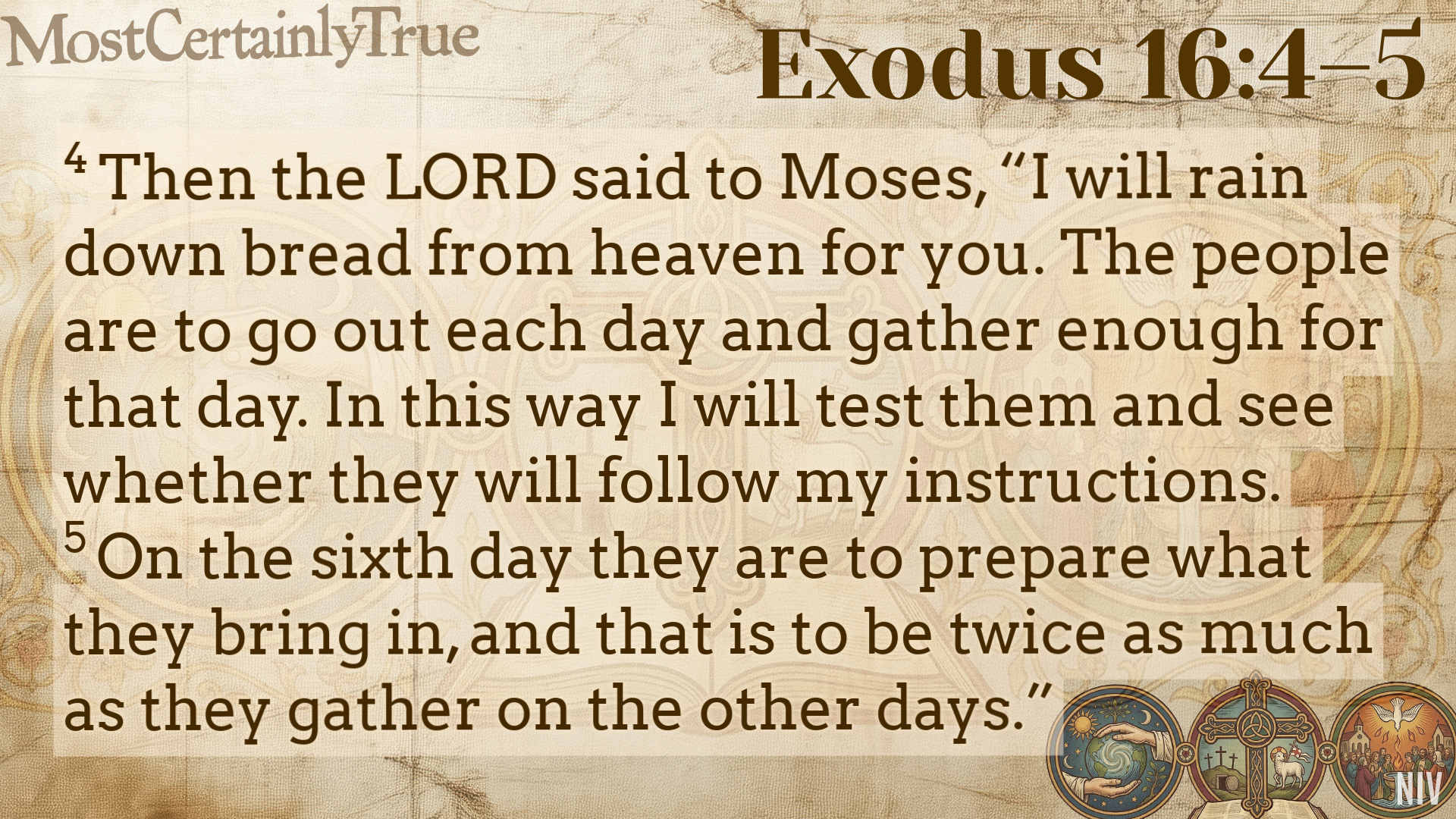

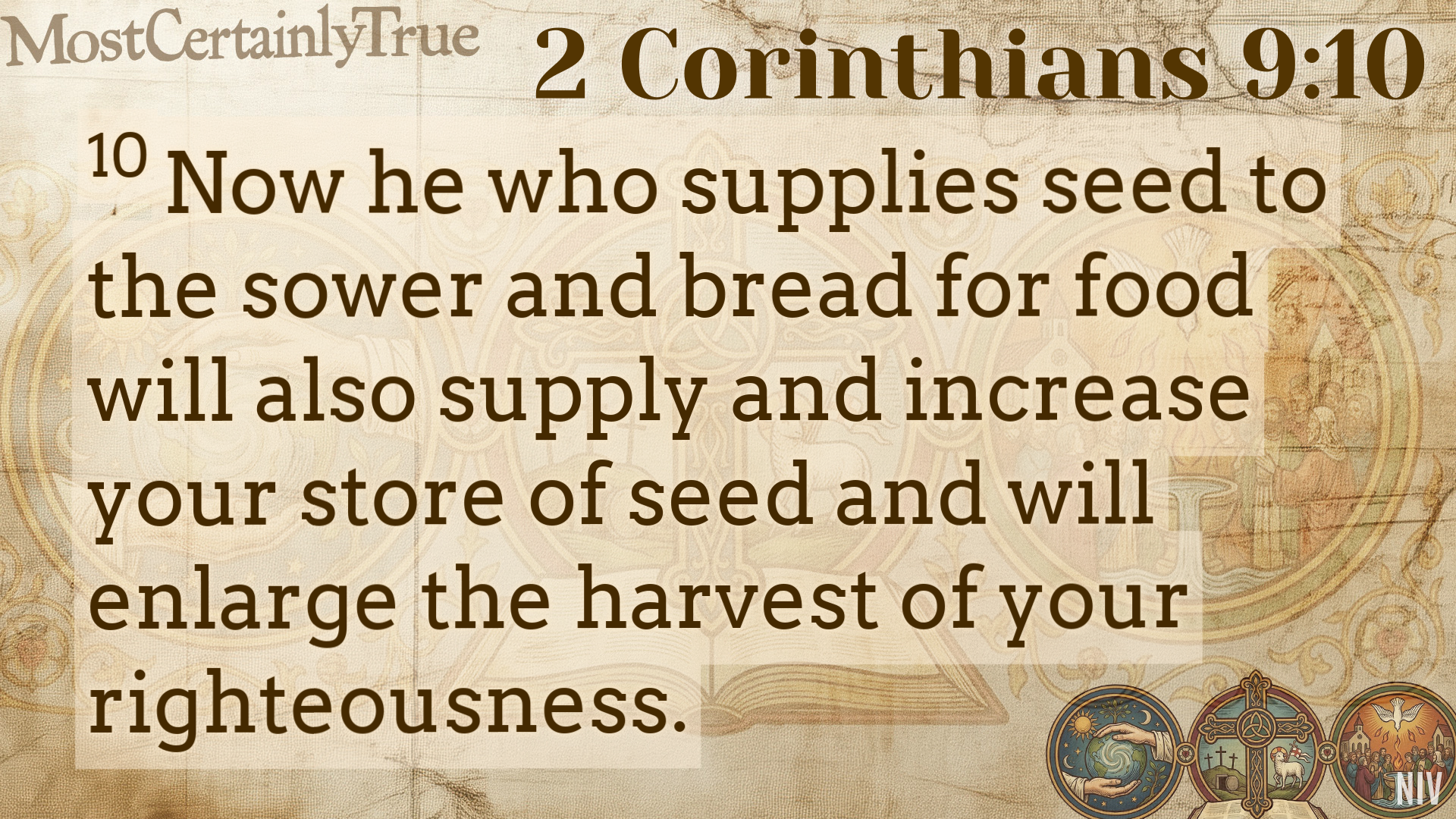
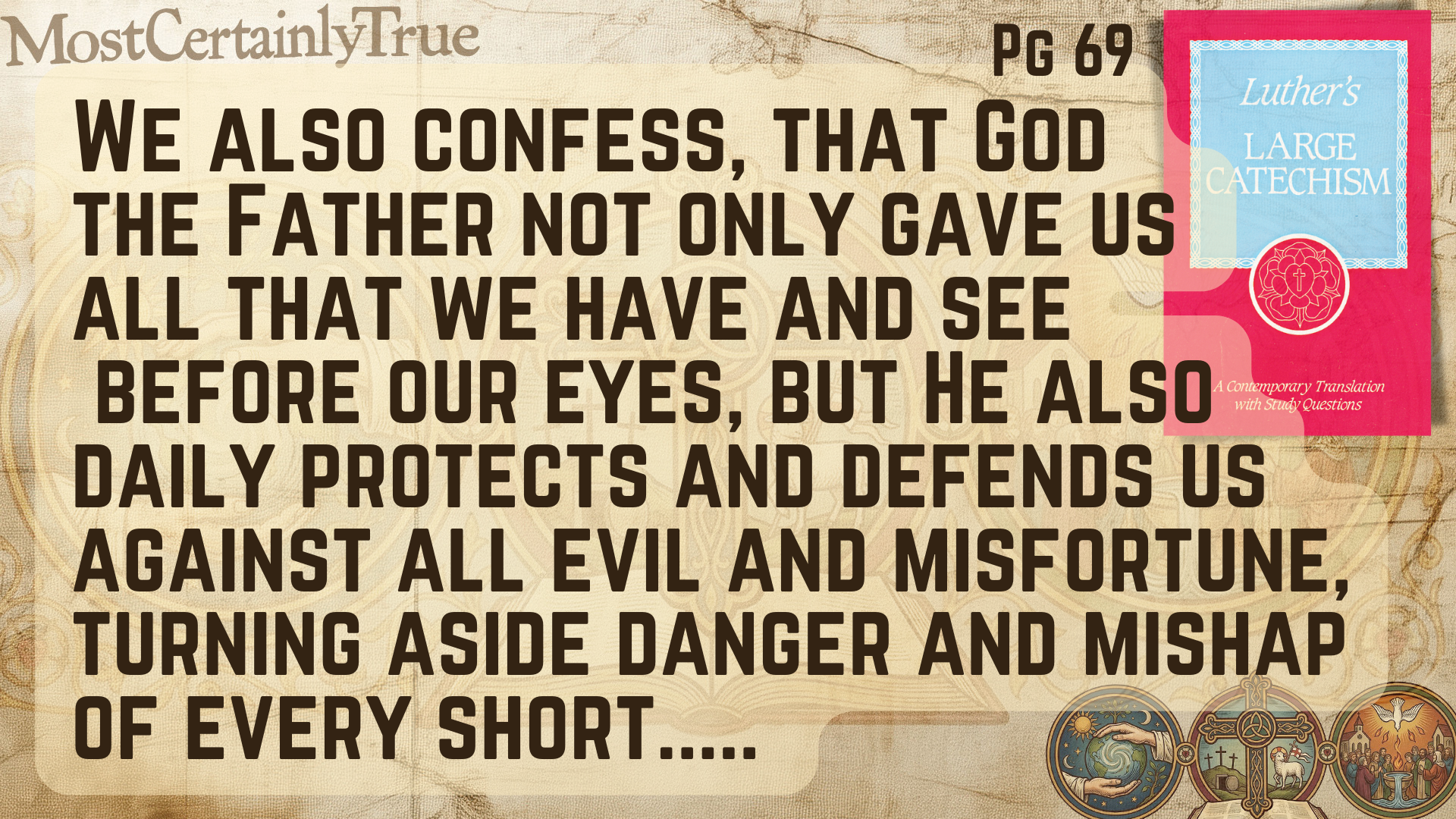
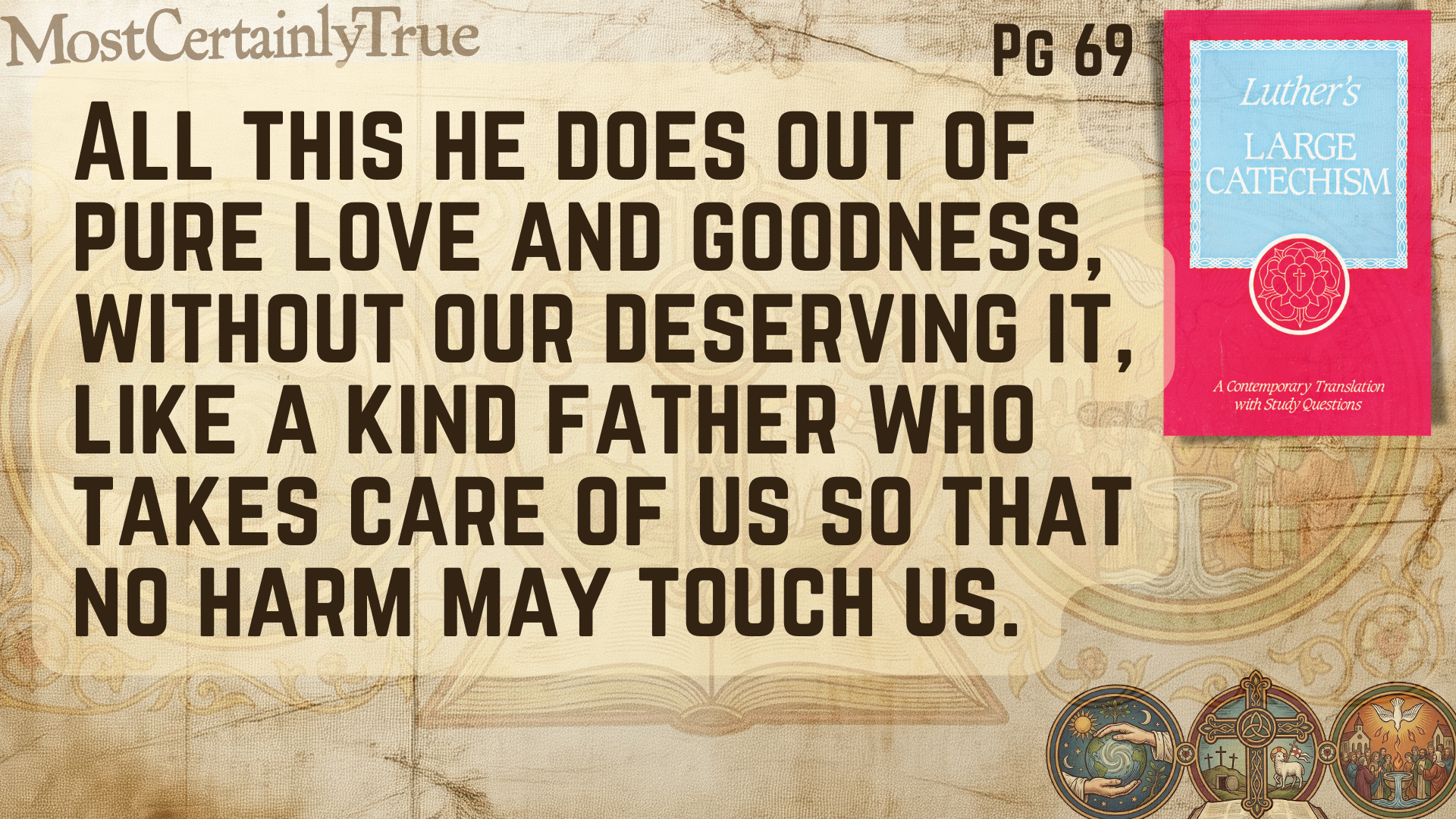

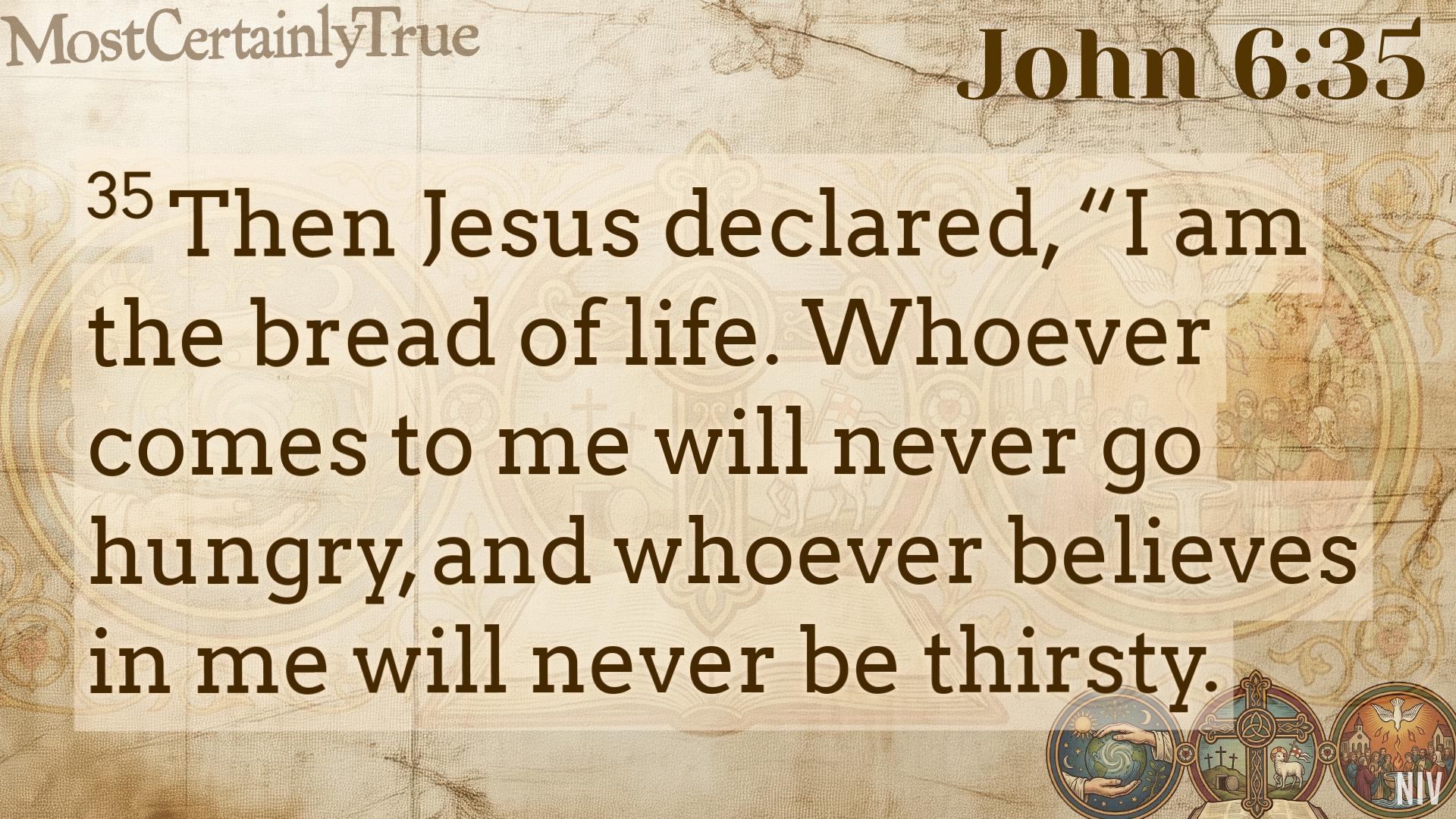

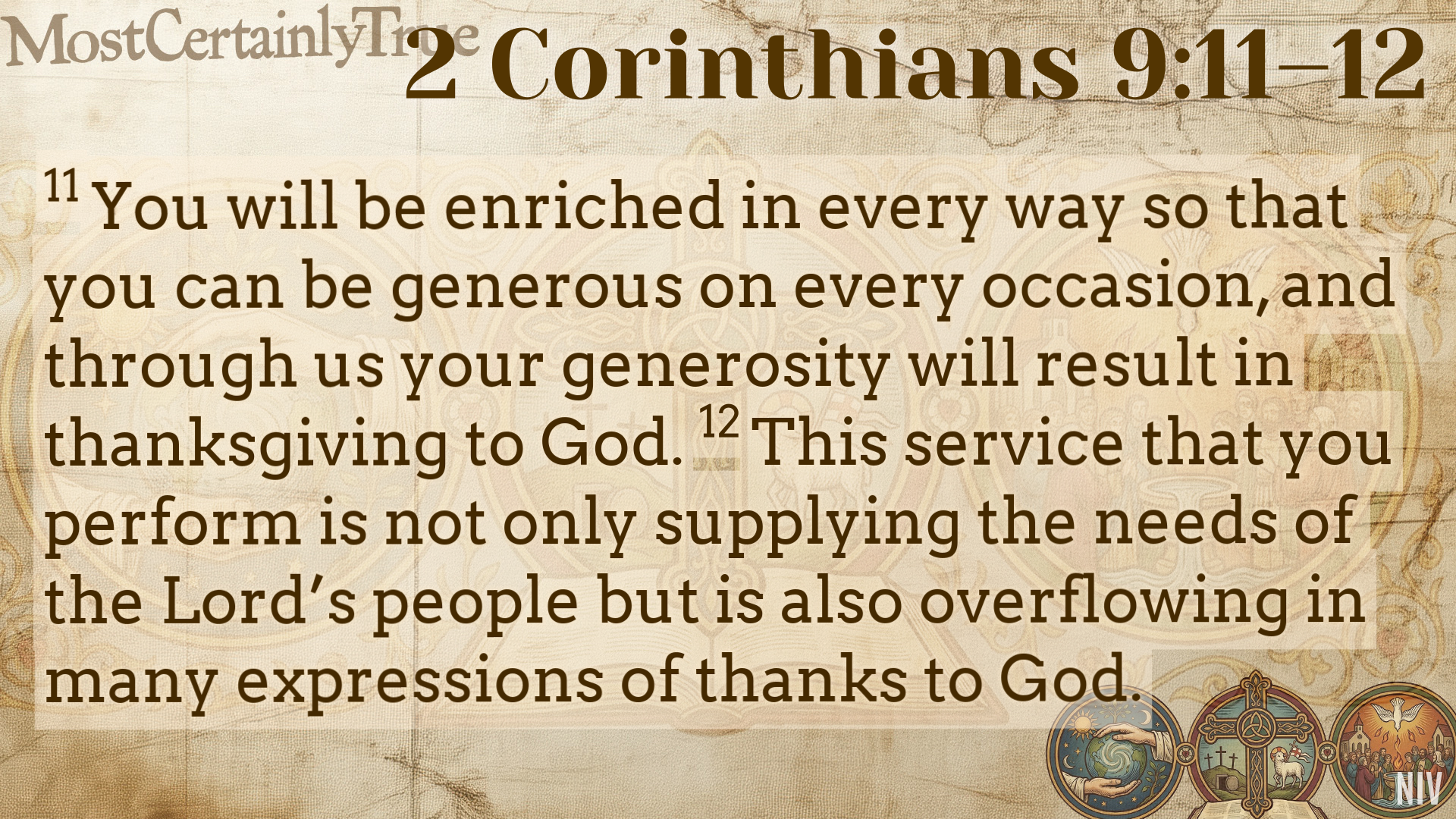

Questions for the Week: Apostles Creed: Creation Sustained
Read Exodus 16:1-8. The Israelites wanted to go back to slavery because they were afraid they wouldn't have enough food. In what areas of your life (finances, relationships, future security) do you find yourself "grumbling" or panicking about not having enough, rather than trusting God’s daily provision?
Think about something you used today (like your lunch or your clothes). How many different people did God use to get that item to you? How does that change the way you think about "ordinary" jobs?
God works through us to provide for others. In your current role (as a student, a parent, a worker, or a friend), how is God using your hands to provide "daily bread" or help to someone else?
What Had happened at Grace this week.
2nd Sunday School in January
Having fun time outside
The Kids began the new year by talking more about David and enjoying just some fun times together.
Joel Chapters 1-2:27 - Bible Study
This week in our study of Joel, we explored chapters 1 and 2, discussing how the prophet uses the imagery of a devastating locust plague to represent a coming judgment, call God's people to heartfelt repentance, and promise profound restoration and the outpouring of His Spirit.
Joel Chapters 1-2:27
This is our 2nd class on Joel
This is an AI Recap of the class.
Some things may be incorrect.
Short Summary of the Class
Our class dove into the first two chapters of the book of Joel, beginning with the vivid and destructive imagery of a locust plague. We discussed how this natural disaster served as a metaphor for the spiritual state of Israel, whose turning away from God resulted in a loss of fruitfulness reminiscent of the Fall in Eden. The locusts were then re-imagined as a terrifying, unstoppable army in chapter two, symbolizing the "Day of the Lord"—a time of divine judgment against Israel for emulating the corrupt empires around them, like Assyria and Babylon. The group explored the themes of creation's suffering, the futility of human defenses against God's judgment, and the profound call to sincere, heartfelt repentance offered by God, who is gracious and merciful, promising complete restoration and the ultimate outpouring of His Spirit.
Detailed Class Summary
Section 1: The Plague of Locusts and Echoes of the Past (Joel Chapter 1)
Our discussion began by reading through Joel chapter 1, which opens with a dramatic and urgent call to witness an unprecedented disaster—a complete devastation of the land by waves of locusts. We concluded that the "farmers" and "vinedressers" (v. 11) are symbolic of God's people, Israel, whose failure to live out the word has led to a spiritual "drought." The imagery of desolation, with vines wasted and fig trees stripped bare (v. 7), was seen as a "death of Eden."
We connected this to the grand narrative of the Bible, starting with the fruitful creation in the Garden of Eden. Sin brought death and a loss of that fruitfulness, a pattern repeated at the Tower of Babel. A cycle was identified where God's people, after being rescued, chase after "Babylon"—a term we used for corrupt, power-hungry empires—which leads them back into desolation. The strong connection to the book of Exodus was also noted; the locust plague in Joel serves as a direct reminder of the eighth plague God sent upon Egypt, framing this event not as a random catastrophe but as an act of divine judgment. The devastation was so complete that the priests could no longer make their daily grain sacrifices, showing a complete breakdown in their relationship with God and causing suffering for all creation. A key point was raised from verse 3: "Tell your children about it... and their children another generation." This disaster is meant to be a lasting lesson to break the cycle of forgetting God, embracing sin, and facing judgment.
Summary of Section 1: In this section, we interpreted the locust plague in Joel 1 as a metaphor for the spiritual death and desolation Israel experienced by turning away from God. This act of chasing after worldly empires ("Babylon") reversed the fruitfulness of Eden, causing all of creation to suffer and serving as a divine judgment reminiscent of the plagues in Egypt. The event was meant to be a lesson passed down through generations.
Bible Verses Mentioned: Joel 1 (entire chapter), especially Joel 1:3, 7, 11
Stories Mentioned: The 10 Plagues of Egypt, The Garden of Eden (Creation), The Tower of Babel, The Israelites wandering in the wilderness.
Section 2: The Day of the Lord and the Invading Army (Joel Chapters 1 & 2)
We then focused on the concept of the "Day of the Lord," mentioned in Joel 1:15. This was defined as a great and glorious day of reckoning or judgment from God, now directed at Israel itself. The reason, as one member put it, was that "they were trying to be Babylon so bad themselves." God was allowing them to be overcome by the very corrupt empires they desired to emulate. The invading nation mentioned in Joel 1:6 was identified as Assyria, acting as a "Babylon-type" empire in this context.
Moving into chapter 2, we observed a shift in the imagery. The locusts are now described as a terrifying and unstoppable army of soldiers (Joel 2:4-9). The class noted the sheer terror this would inspire, as the army scales walls like ninjas, enters homes like thieves, and cannot be stopped by weapons. This brought up a point about complacency: the people trusted in their man-made walls rather than in God. The imagery emphasizes the overwhelming nature of God's judgment; no human defense could stand against the "army" He was sending. Verse 11 makes it explicit: "The Lord gives voice before His army... For strong is the one who executes his word." The destruction was coming from God Himself, a terrifying description also linked to the future tribulation in the book of Revelation.
Summary of Section 2: This part of our study defined the "Day of the Lord" as a time of divine judgment now aimed at Israel for emulating corrupt empires like Assyria. In chapter 2, the locusts are re-imagined as a terrifying, supernatural army sent by God, highlighting the futility of human defenses against His judgment.
Bible Verses Mentioned: Joel 1:6, 1:15; Joel 2:4-9, 11
Bible Characters Mentioned: Jeremiah, Daniel
Stories Mentioned: The Plagues of Egypt, The Crossing of the Red Sea, The Book of Revelation (Tribulation).
Section 3: The Call to Genuine Repentance (Joel Chapter 2:12-17)
At the height of this despair, the tone of the text dramatically shifts. Beginning in verse 12, God offers a way out with a desperate call for genuine repentance: "Turn to me with all your heart, with fasting, with weeping, and with mourning." The key instruction is to "rend your heart, and not your garments" (v. 13), which the class interpreted as a critique of performative, outward expressions of righteousness. God calls for a deep, internal change, not just going through the expected motions.
The discussion highlighted that Joel 2:13 ("for he is gracious and merciful, slow to anger, and abounding in steadfast love") is a direct quotation from Exodus 34:6. This quote originally appeared after the golden calf incident, another time Israel had turned from God. Its repetition throughout the Old Testament serves as a constant reminder of God's fundamental character, offering hope even in the darkest times. The call to repentance is for the entire nation, from elders to children, to assemble and cry out to God to spare them, based on the hope found in His merciful nature.
Summary of Section 3: Amid the terrifying prophecy of judgment, God extends a profound invitation to heartfelt, genuine repentance. The command to "rend your heart, not your garments" signifies a call for deep, internal change over empty, outward rituals. The hope for this repentance is grounded in God's own character, described as gracious and merciful, echoing His words from Exodus.
Bible Verses Mentioned: Joel 2:12-17; Exodus 34:6
Stories Mentioned: The Golden Calf Incident.
Section 4: The Promise of Restoration and the Spirit (Joel Chapter 2:18-32)
The final part of our discussion focused on God's response to this repentance. The Lord becomes "zealous for his land and pitied his people" (Joel 2:18) and promises total restoration. He will not only remove the invading "northern army" but also restore the land's fruitfulness. The promise, "I will restore to you the years that the swarming locust has eaten" (v. 25), is a powerful declaration that God will reverse the destruction and bring back abundance, like a restoration of Eden. The "stench" of the defeated army (v. 20) was seen as a revelation of evil for what it truly is.
This restoration is not just physical but also spiritual. The climax of this promise is found in verses 28-29: "I will pour out my spirit on all flesh." This radical promise, immediately identified as the event of Pentecost in Acts 2, means God’s Spirit would no longer be limited but would be given to everyone—sons and daughters, old and young, male and female, servant and free. This outpouring precedes the "great and awesome day of the Lord," and a final promise is given: "whoever calls on the name of the Lord shall be saved" (v. 32). The ultimate fulfillment of this restoration was connected to the crucifixion and resurrection of Jesus, who endures the "day of the Lord" on our behalf, making the outpouring of the Spirit possible.
Summary of Section 4: This section covered God's promised response to true repentance: complete restoration. He vows to heal the land, reverse the damage done by the "locust army," and restore the honor of His people. More profoundly, He promises a future outpouring of His Spirit on all people, which finds its fulfillment at Pentecost and culminates in the ultimate promise of salvation for all who call on His name.
Bible Verses Mentioned: Joel 2:18-32, especially 2:18, 20, 25, 28-29, 32; Acts 2
Stories Mentioned: The Crucifixion and Resurrection of Jesus, The event of Pentecost.
Medium-Length Summary
Our Bible study delved into the profound shift within Joel chapters 1 and 2, moving from a depiction of utter devastation to a powerful message of mercy and restoration. We began by understanding the plague of locusts as a vivid metaphor for the consequences of Israel's sin and, more specifically, the invading Assyrian army—a force so overwhelming it brought all aspects of life, including religious observance, to a halt. This desolation was framed as a "death of Eden" and a divine judgment reminiscent of the plagues of Egypt. The class then pivoted to the heart of chapter 2: God's call to "rend your heart, and not your garments." This was interpreted as a divine plea for authentic, deep-seated repentance over hollow, performative acts of piety.
We highlighted how the description of God as "gracious and merciful, slow to anger" is a direct quote from Exodus, reminding the people of God's unchanging character. The discussion then moved to the promise of full restoration, where God pledges to "restore to you the years that the swarming locust has eaten," painting a picture of a renewed, Eden-like abundance. A significant portion of the class was dedicated to connecting the prophecy of God pouring out His Spirit on all flesh (Joel 2:28-29) to the New Testament event of Pentecost. This act was seen as the ultimate fulfillment of God's restorative plan, made possible through the work of Christ. The class concluded by affirming that the crucifixion and resurrection of Jesus represent the ultimate answer to the devastation, as He endures the "day of the Lord" on our behalf, allowing His death and resurrection to become ours and enabling the promised outpouring of the Spirit.
Main Points
The locust plague in Joel 1 symbolizes the spiritual death, divine judgment, and loss of fruitfulness that results from turning away from God.
Israel's desire to be like worldly empires ("Babylon" or "Assyria") invited God's judgment upon them in the form of the "Day of the Lord."
The locusts are re-imagined as a terrifying army in Joel 2 to show that no human defense can withstand God's judgment.
The call to "rend your heart, not your garments" is a critique of performative religion, demanding genuine, heartfelt repentance.
God's primary desire is not destruction but repentance, based on His unchanging character as gracious and merciful.
God promises complete restoration—physically and spiritually—to those who repent, repaying the "years the locust has eaten."
The ultimate promise is the outpouring of the Holy Spirit on all people and salvation for all who call on God's name, fulfilled at Pentecost and through the work of Christ.
Scriptures and Stories Mentioned
Bible Scriptures:
Joel Chapter 1 (entire chapter)
Joel Chapter 2 (entire chapter)
Exodus 34:6
Acts 2
Revelation (the "Grapes of Wrath" imagery)
Stories/Concepts:
The 10 Plagues of Egypt
Creation and the Garden of Eden
The Tower of Babel
The Israelites in the Wilderness Complaining
The Golden Calf Incident
The Assyrian Invasion
The Ministries of Jeremiah and Daniel
The Crucifixion and Resurrection of Jesus
The event of Pentecost
The Tribulation (from the Book of Revelation)
The Lord of the Rings (analogy of orcs)
[Sunday] Good Creation Most Certainly True
The Creed cuts through the noise of our own unworthiness to name us as 'good' creatures, loved by a God who honors our flesh and blood enough to redeem it, not just replace it.
The Creed cuts through the noise of our own unworthiness to name us as 'good' creatures, loved by a God who honors our flesh and blood enough to redeem it, not just replace it.
Sermon Video and Slides
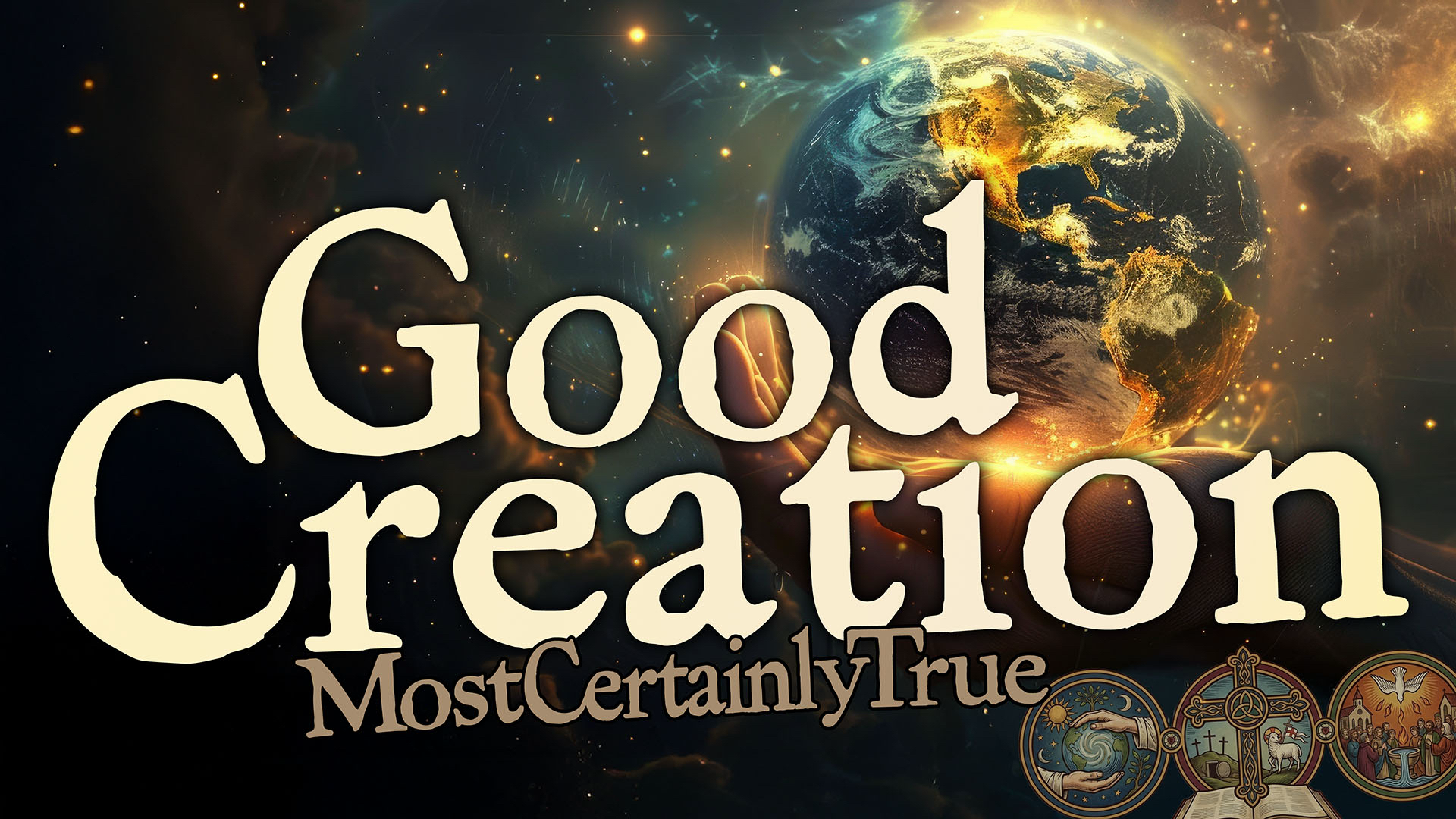
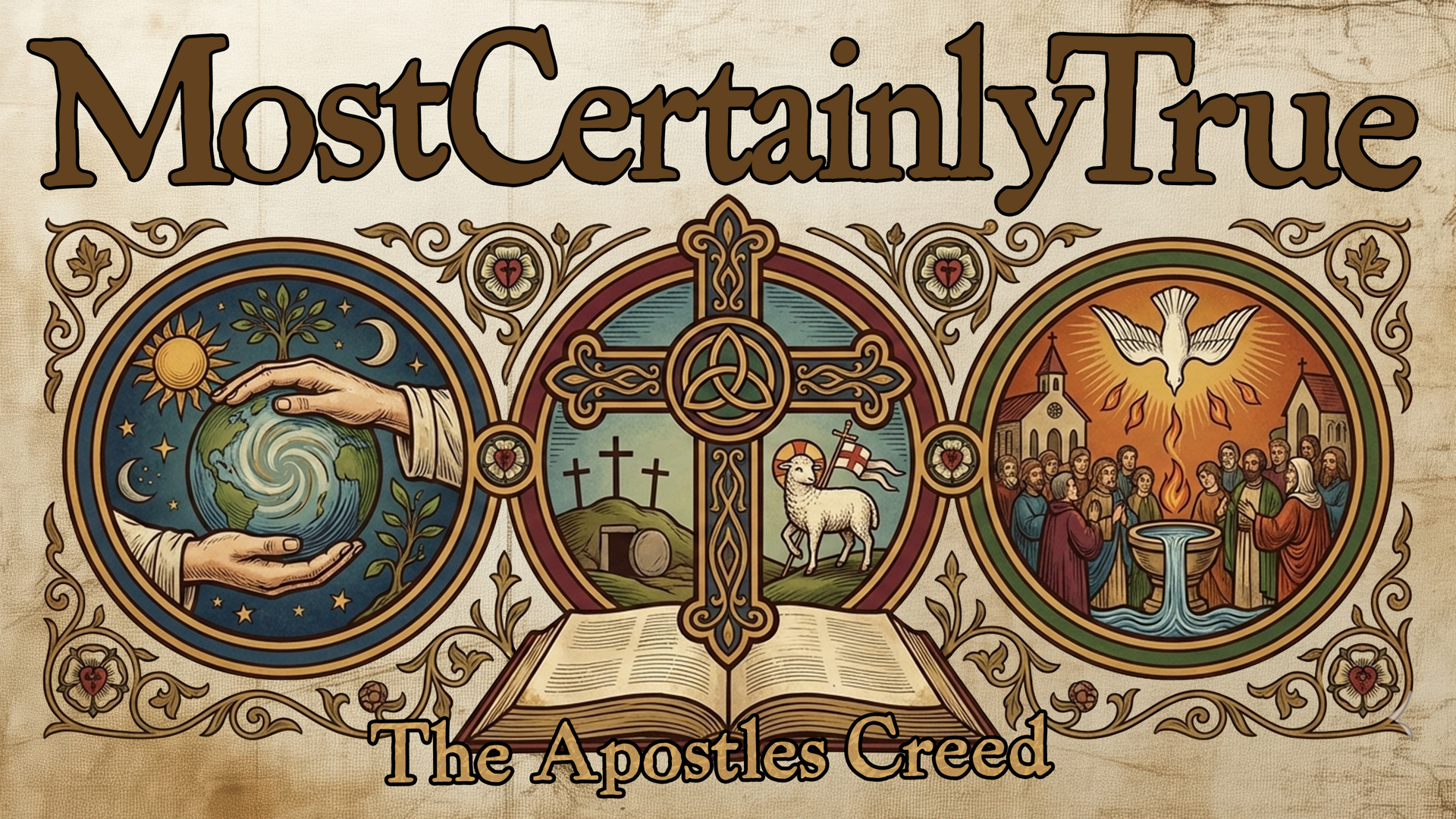
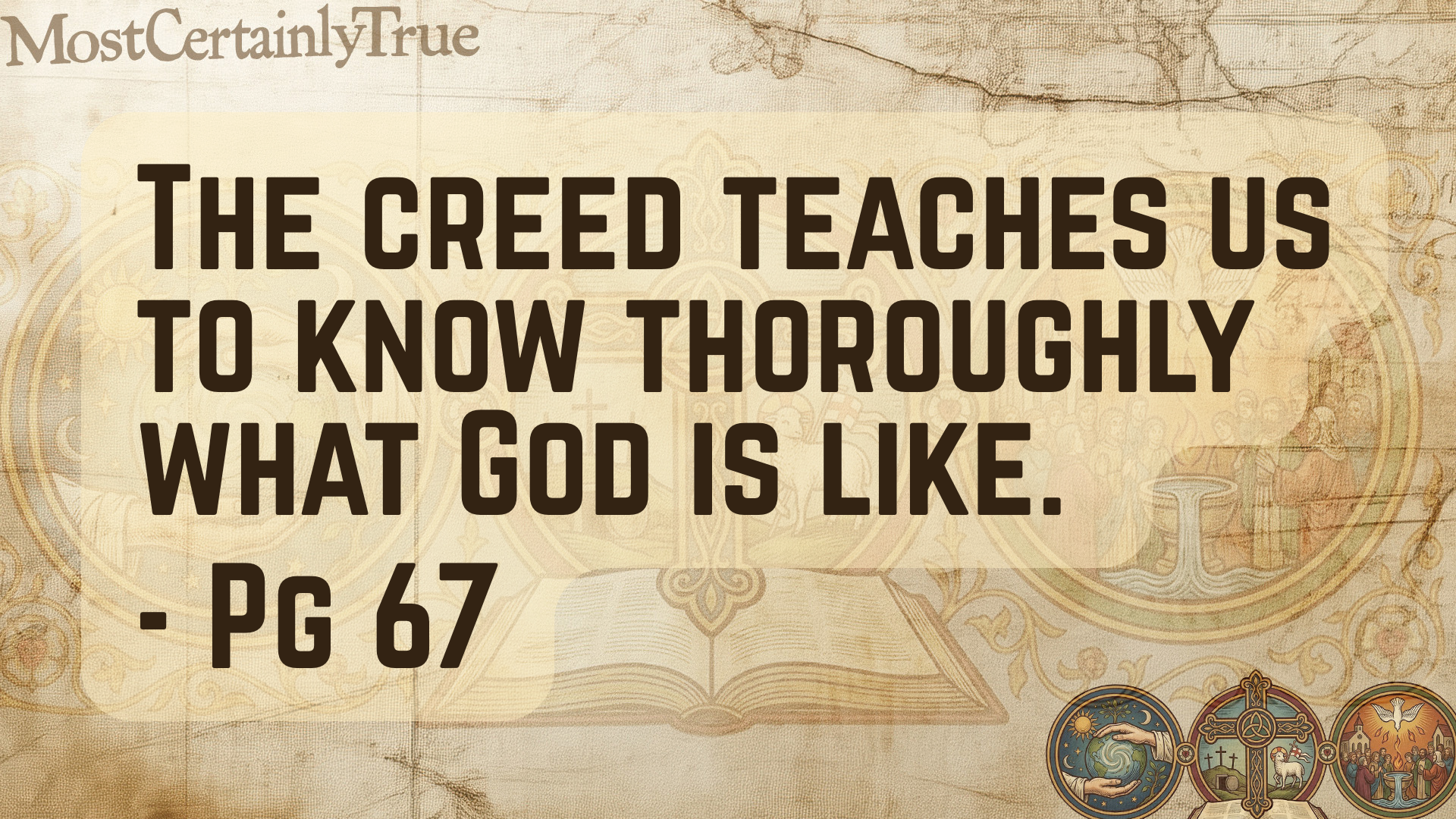
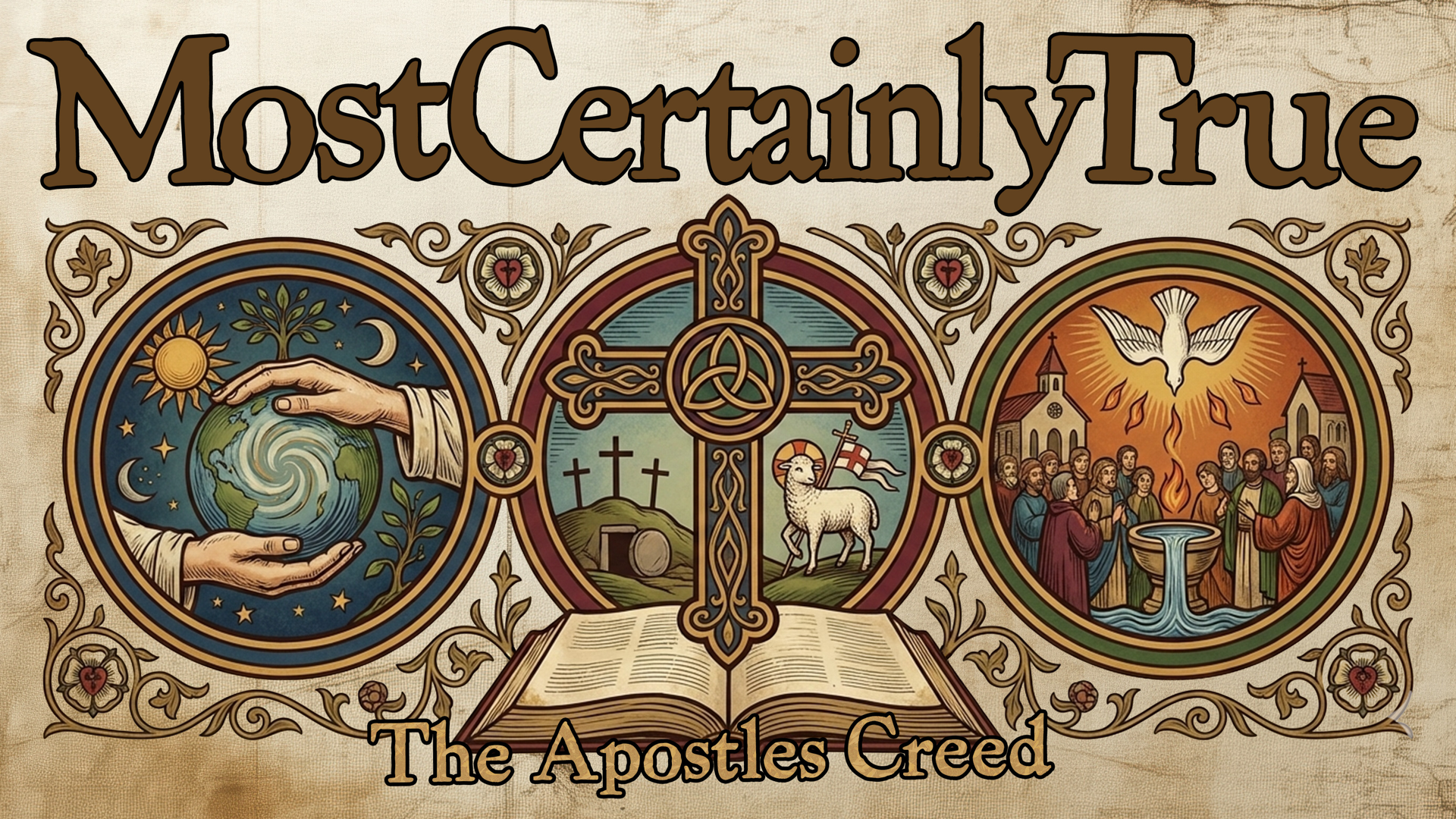
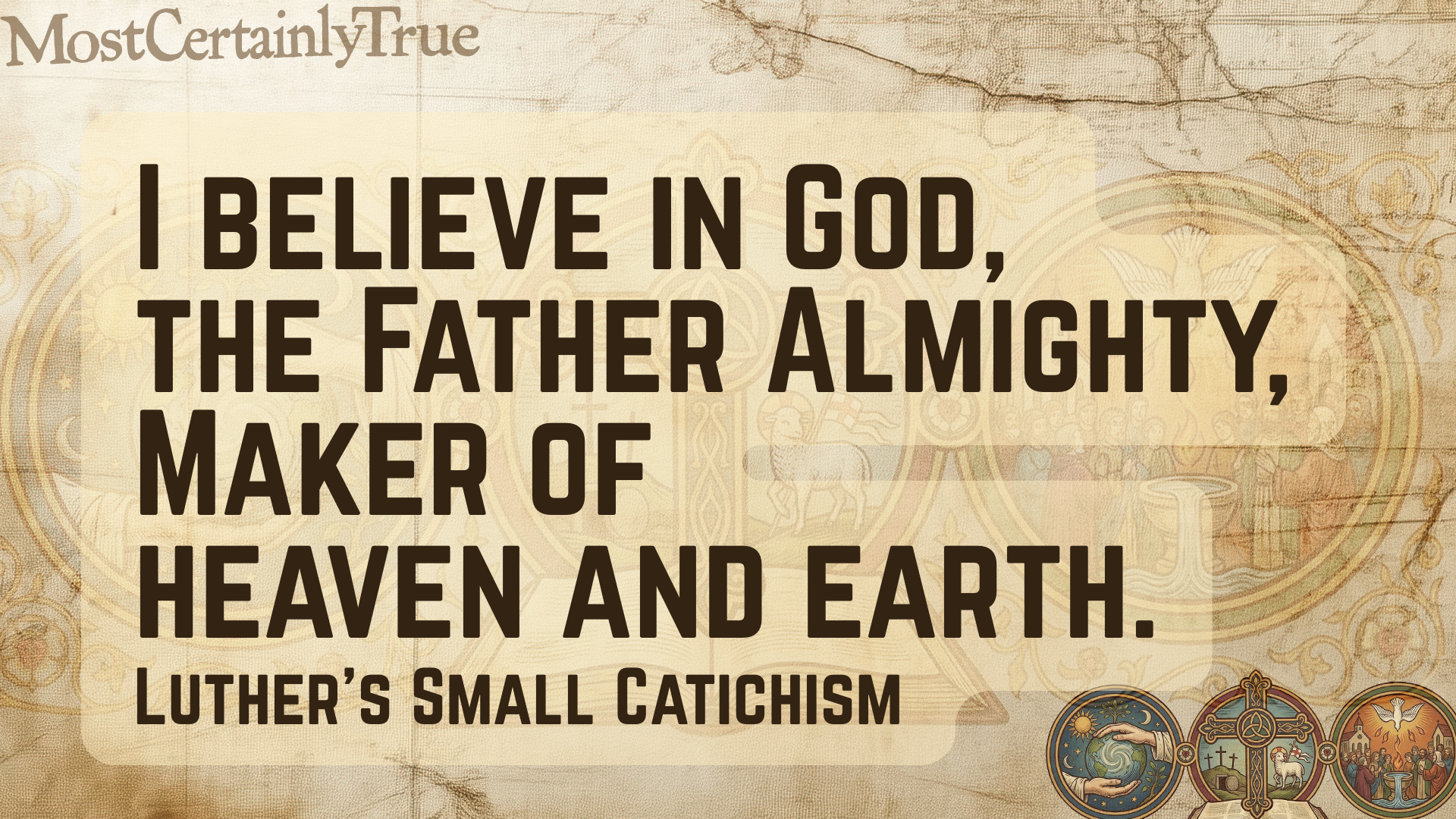
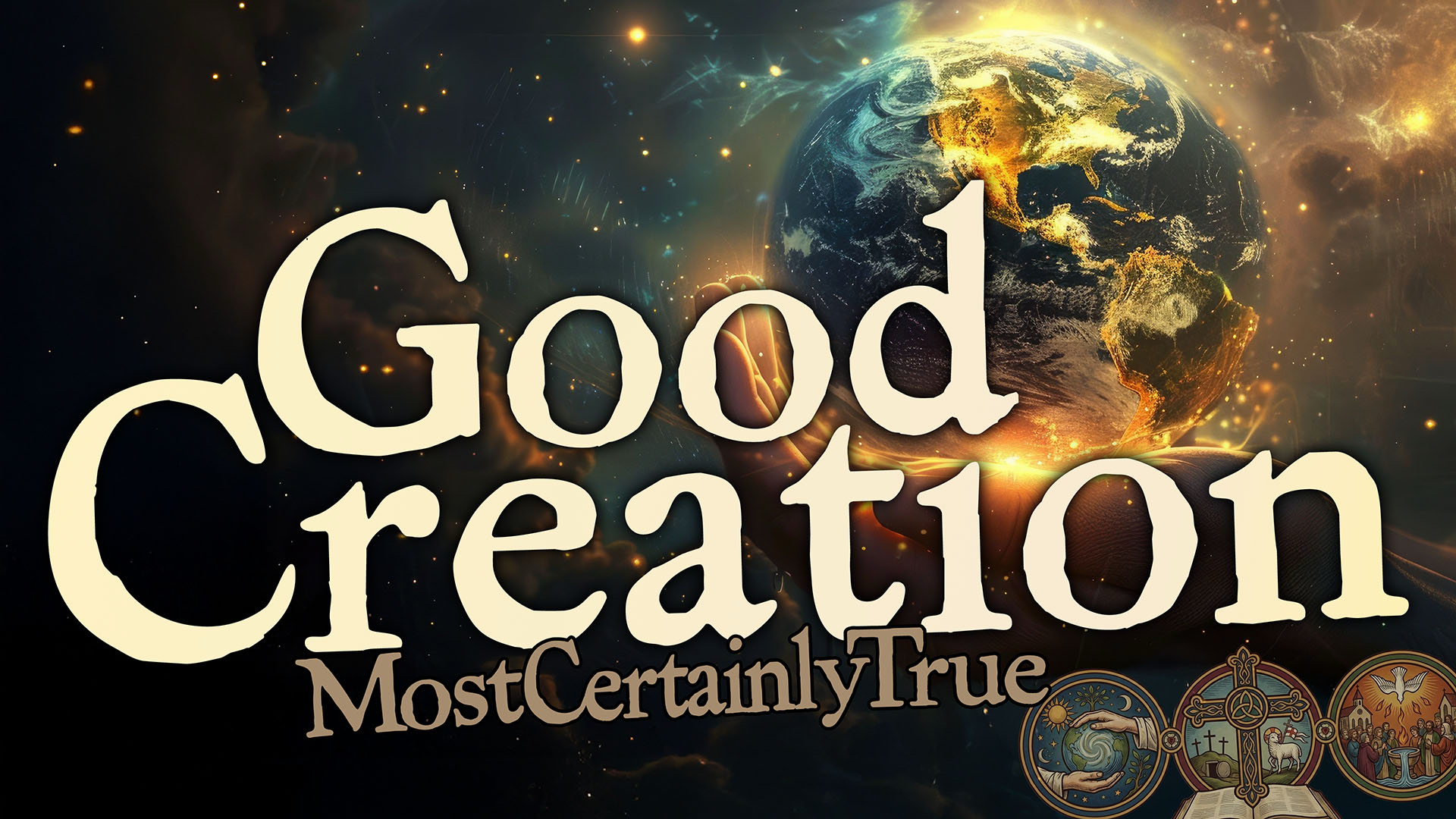
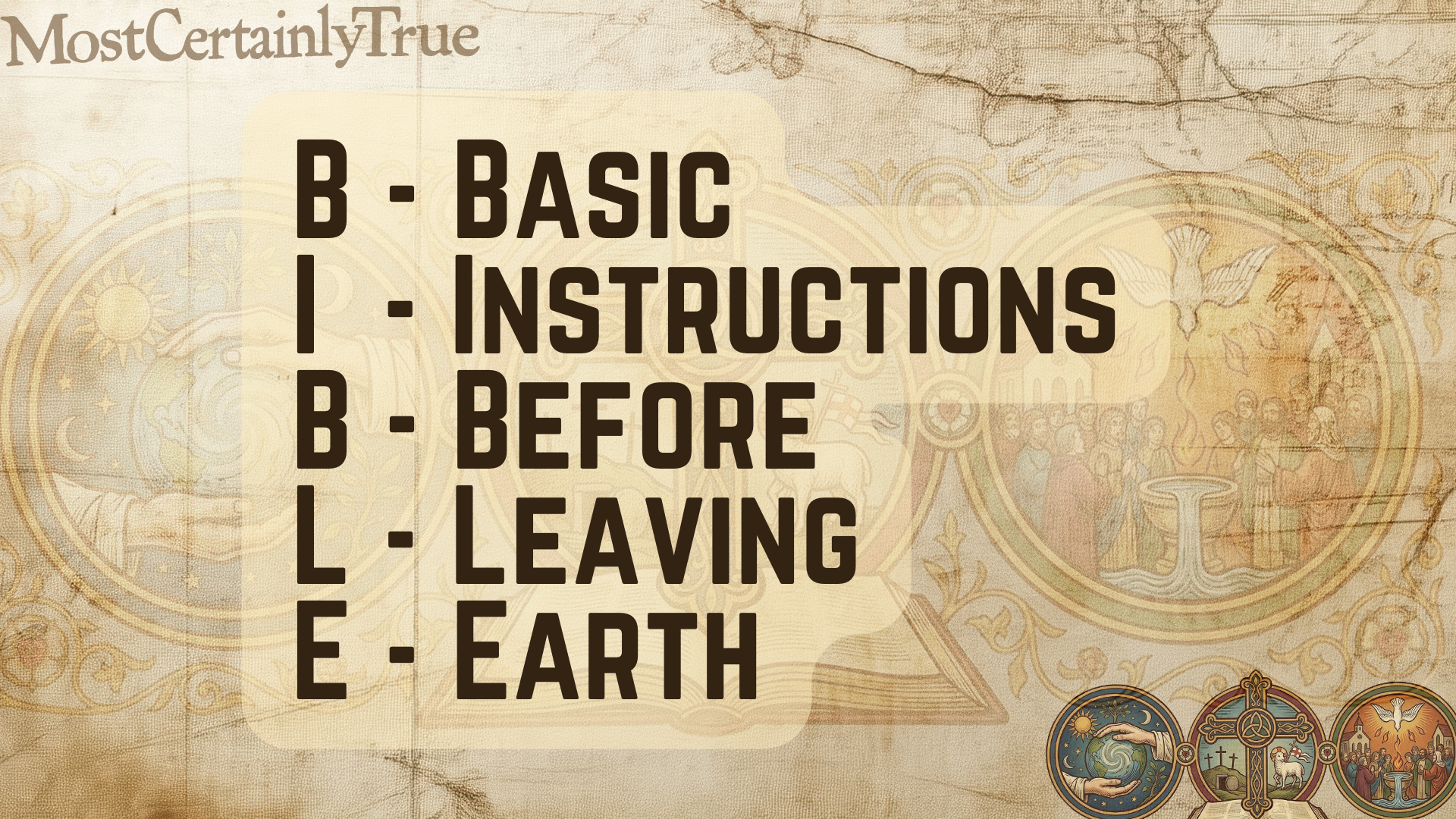

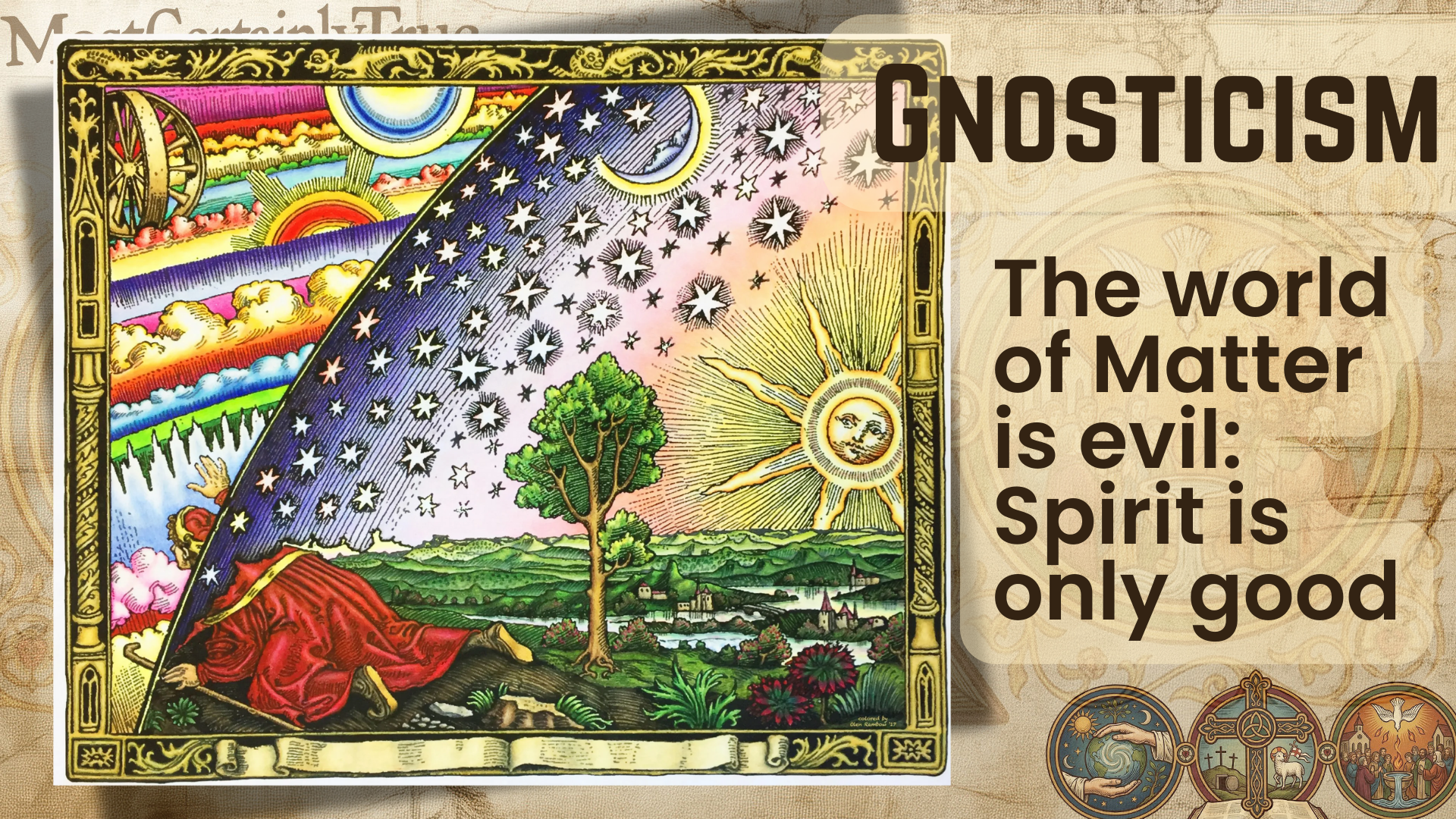
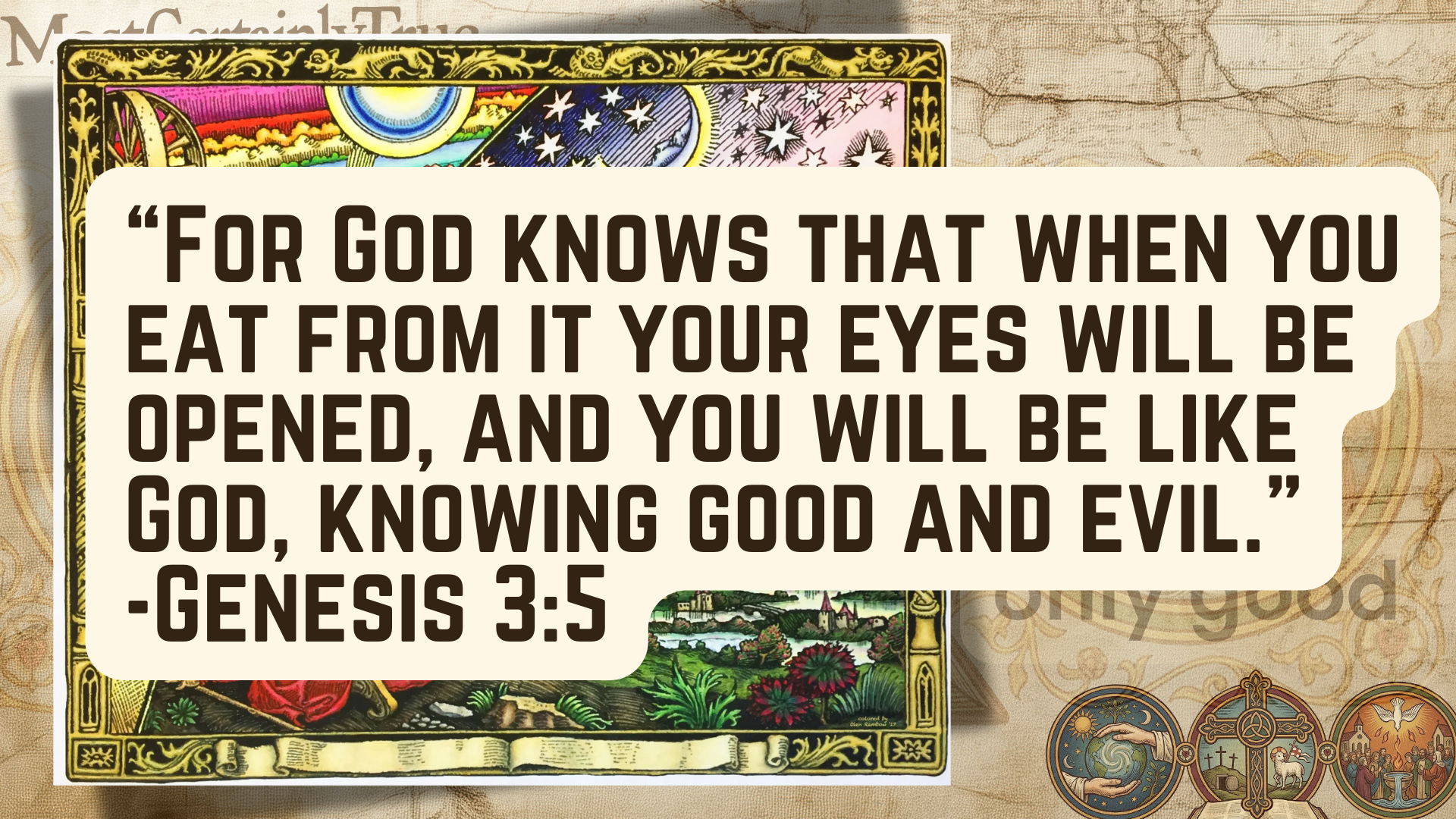

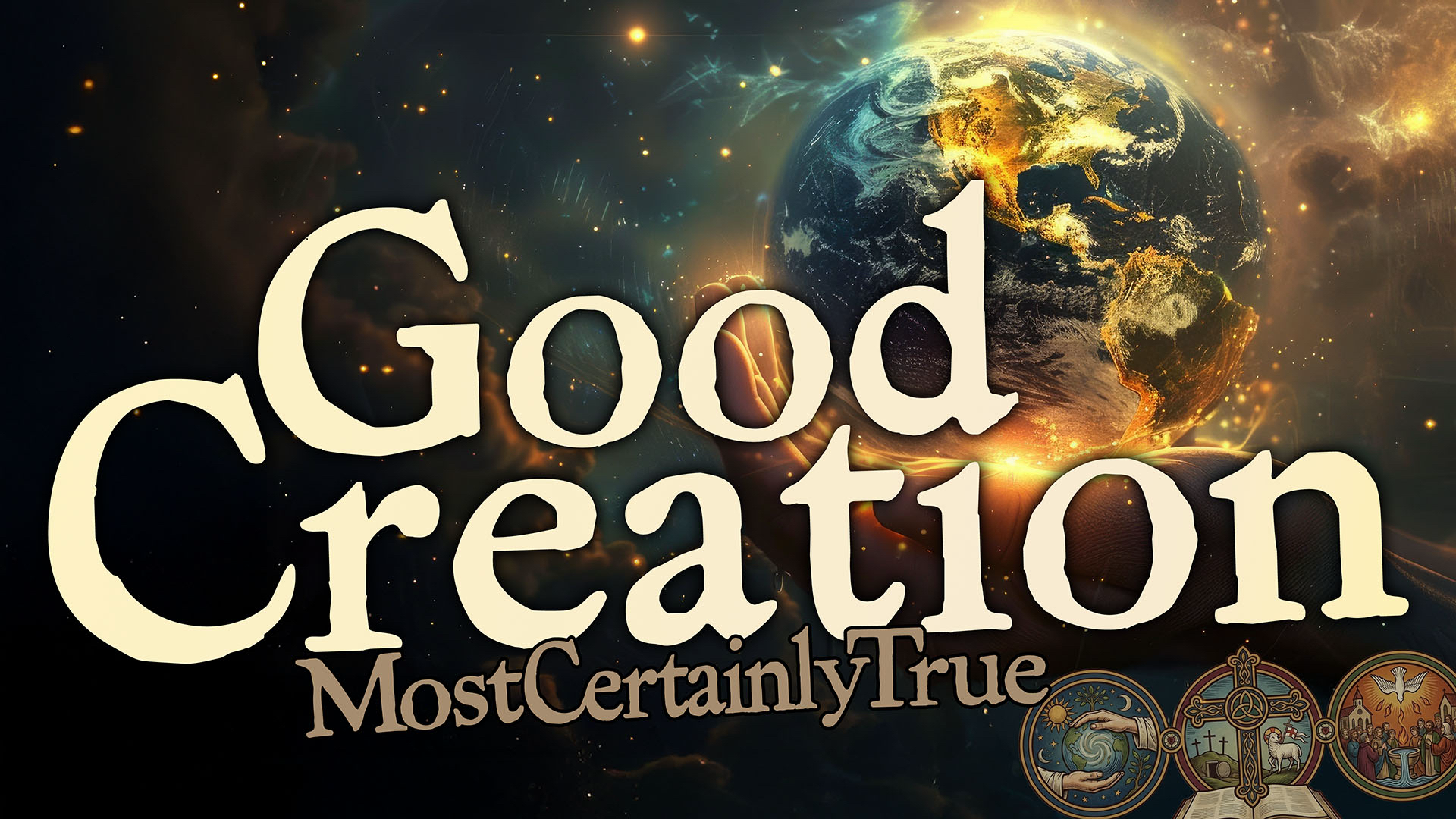
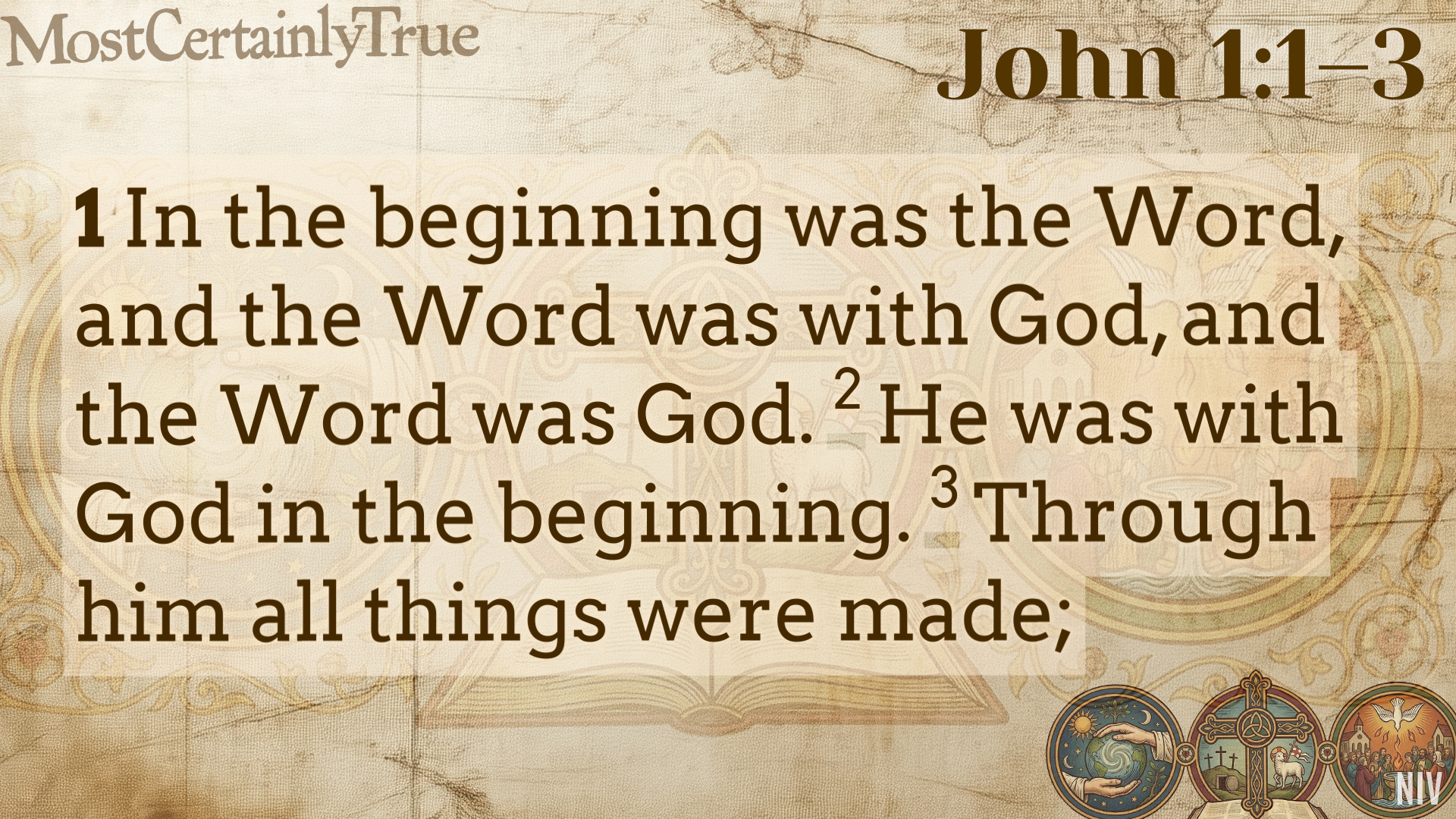
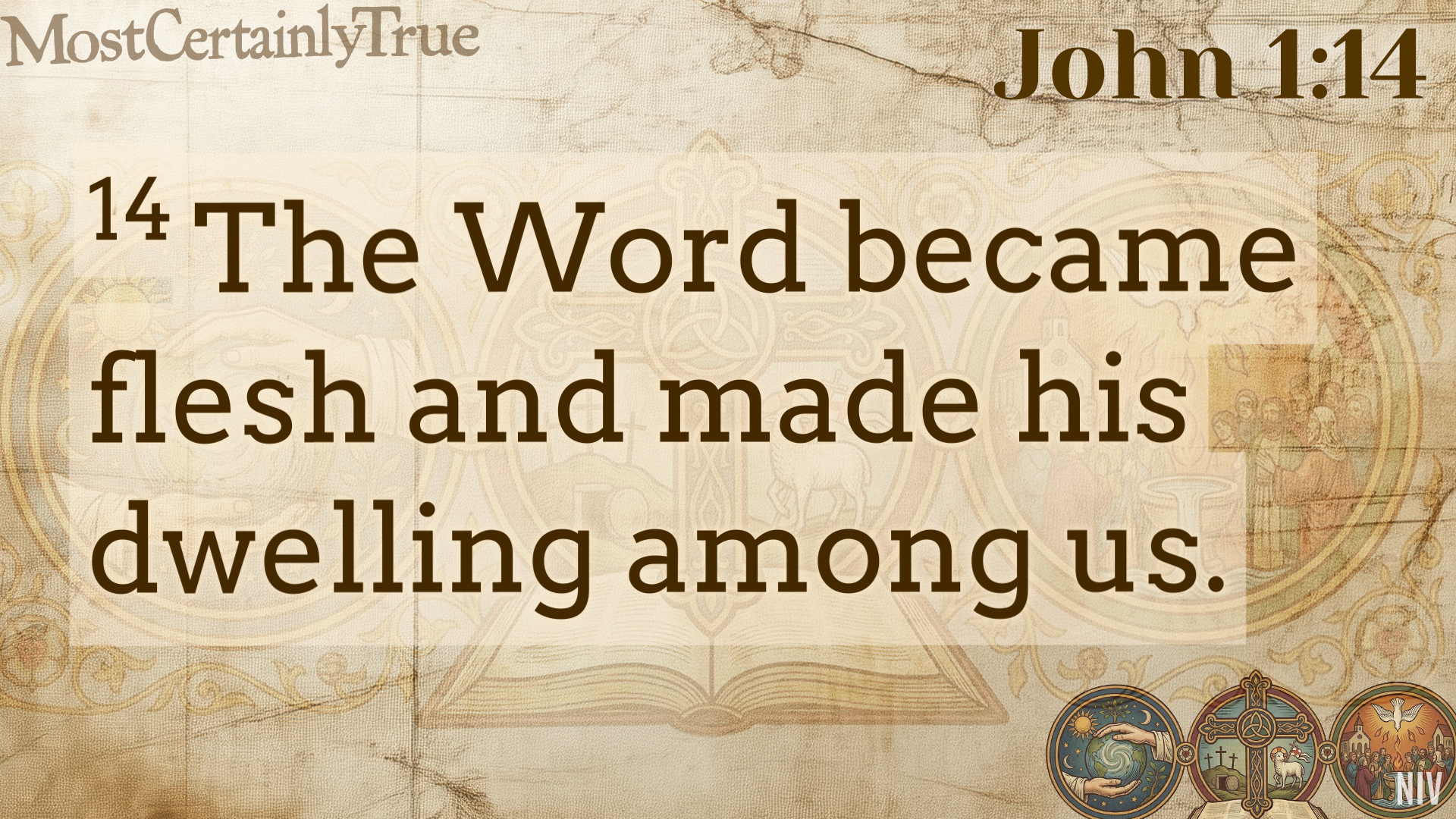
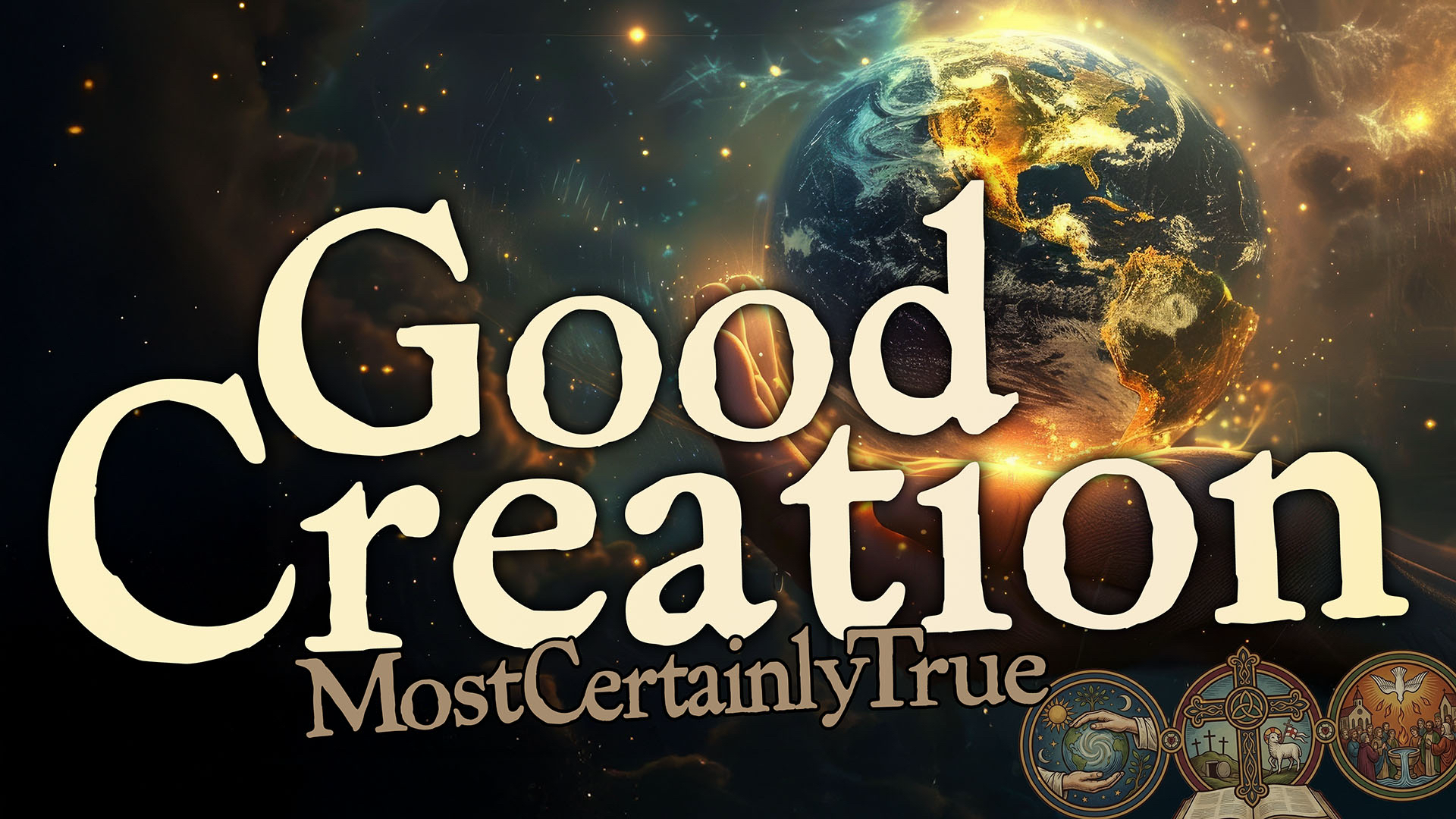
Questions for the Week: Apostles Creed: Good Creation
If anyone were to ask you to describe God, what might you answer to begin with?
Read Genesis 1. Do you naturally tend to see yourself as a "beloved creature" or a "broken sinner"? How does that shape your daily life?
Read John 1:1-14. John 1 tells us that God did not escape creation but entered it in Jesus. Where have you seen God’s presence show up in ordinary, messy, or painful moments in your life or family?
Jesus rose from the dead still bearing His scars. What does it mean to you that God remembers our pain and wounds, and how might that help you show patience, grace, or care toward others this week?
What Had happened at Grace this week.
Most Certainly True - Apostles Creed | Teaching Series
We are dusting off the Catechism to discover that the Creed is not just a list of principles to memorize, but a testimony of a God who created, redeemed, and sanctified you.
We are dusting off the Catechism to discover that the Creed is not just a list of principles to memorize, but a testimony of a God who created, redeemed, and sanctified you.
Read with the Sermon Series
The Large Catechism and the Small
I recommend the Pink Large Catechism.
This one is more enjoyable to read.
The Small Catechism
The Classic
Reading Plan
Read around the readings for Sunday
1/11/26- Creator
Genesis 1:1-2:4
John 1:1-5
1/18/26 - Sustainer
Exodus 16:2-8
2 Cor 9:6-15
John 6:35-40
1/25/26 - Jesus Life
Isaiah 53:1-12
Philippians 2:5-11
Mark 1:1, 9-15
2/1/26 - Jesus Redemption and Resurrection
Psalm 16:5-11
Romans 4:16-25
Mark 16:1-8
2/8/26 - calls, gathers, enlightens sanctifies
Joel 2:28-32
Ephesians 4:11-16
John 3:1-17
2/15/26 - Forgiveness of sins and everlasting life
Isaiah 25:6-91
John 1:5-10
Matthew 18:21-35
Children’s Ministry in the New Year [Photos]
We celebrated Epiphany with gift bow games and a family gathering where we participated in a “regift” exchange. It was a fun way to close out the Christmas season together.
We celebrated Epiphany with gift bow games and a family gathering where we participated in a “regift” exchange. It was a fun way to close out the Christmas season together.
Guys Night at the Thirsty Turtle
Guys night at the Thirsty Turtle
About 15 Grace Guys had fun and talked at the thirsty Turtle on January 8th 2026
Joel Overview - Bible Study
This week, we began our study of the book of Joel, exploring its major themes of judgment, genuine repentance, and God's ultimate promise of restoration and the outpouring of His Spirit.
Joel Overview
This is our First class on Joel
This is an AI Recap of the class.
Some things may be incorrect.
Short Summary of the Whole Class
In our study of the book of Joel, we began with a high-level overview using a Bible Project video and then read through the entire book. We discussed its structure, which parallels a past "Day of the Lord" (a devastating locust plague) with a future one, highlighting God's call to genuine repentance. The class noted the book's deep connections to other scriptures, particularly Genesis and Exodus, and explored its central message: God is gracious and compassionate, and His judgment ultimately gives way to hope, restoration, and the outpouring of His Spirit, drawing parallels to themes in Revelation and its connection to the New Testament.
Detailed Class Summary
Introduction to the Study of Joel
We started our new Bible study series on the book of Joel, choosing this short but key prophetic book, which is also a reading for Ash Wednesday. The plan was to get a broad overview by watching the Bible Project video on Joel before reading through the entire book. We acknowledged that Joel is a unique and fascinating book, and its pictorial outline would be helpful in understanding its structure and message. The study is expected to last two or three weeks.
Summary of this Section: The class began a new study on the book of Joel, planning to use the Bible Project video as an introduction before reading the entire book to understand its overall themes and structure.
Bible Project Video and Initial Reactions
We watched the Bible Project video, which highlighted several unique features of Joel. It was noted that the book's date is likely post-exilic, during the time of Ezra and Nehemiah, as it mentions the temple but no king. Joel is also deeply familiar with other scriptures, quoting or alluding to prophets like Isaiah, Amos, and Ezekiel, and referencing foundational texts like Exodus. A key point was that Joel doesn't name Israel's specific sins, assuming his audience is already familiar with their history of rebellion from other prophetic works.
The video explained that the book is structured around the "Day of the Lord," a major prophetic theme.
Chapters 1-2: These chapters present two parallel poems. Chapter 1 describes a past Day of the Lord—a devastating locust swarm. Chapter 2 describes a future Day of the Lord, using military and cosmic imagery to portray the locusts as God's approaching army. In both instances, Joel calls for genuine repentance, urging the people to "rend your hearts, not your garments." This call is based on God's character as described in Exodus: "gracious and compassionate, slow to anger and...full of love."
God's Response: Following the people's repentance, God responds with a three-part promise: He will defeat the invaders, restore the ravaged land, and bring His divine presence.
Future Hope: The final section expands these promises. The promise of God's presence becomes the outpouring of His Spirit on all people. The defeat of the locusts becomes a picture of God confronting evil among all nations, and the restoration of the land points to the renewal of all creation.
Summary of this Section: The Bible Project video outlined Joel's structure, focusing on the "Day of the Lord" as both a past judgment (locust plague) and a future event. It emphasized God's call to sincere repentance, based on His merciful nature, which leads to promises of restoration, the outpouring of His Spirit, and the renewal of all creation.
Bible Verses Mentioned: Exodus 10, Exodus 34:6 (implied)
A Land in Devastation and a Call to Repentance
Reading through Joel, we started with the grim picture of an unprecedented disaster in Chapter 1: a multi-wave locust plague that has completely decimated the land, destroying all sources of joy and sustenance. The devastation affects every level of society, leading the prophet to call for national mourning, recognizing this event as a sign that "the day of the Lord is at hand."
Chapter 2 opens with an alarm signaling an even greater threat. The "Day of the Lord" is described as a day of darkness, with an approaching army likened to the locusts but more terrifying. In the face of this judgment, God offers mercy, calling His people to return to Him "with all your heart." The call is for genuine, internal change—to "rend your heart, and not your garments," based on God's nature as gracious and merciful. The chapter repeats the call for a sacred assembly, gathering everyone from elders to infants to collectively seek God's mercy.
Summary of this Section: We read about a catastrophic locust invasion that served as a powerful metaphor for spiritual emptiness and a sign of the approaching Day of the Lord. Amid this dire warning, a message of hope emerges as God calls for sincere, heartfelt repentance, emphasizing His desire to show grace and mercy.
Bible Verses Mentioned: Joel Chapter 1, Joel 2:1-17
Stories/Imagery: The four types of locusts destroying the land; a virgin mourning her husband; the "Northern Army" that runs like mighty men; the call to "rend your heart, and not your garments."
Restoration, Judgment, and Final Hope
Responding to the people's repentance, the tone shifts dramatically to restoration. The Lord promises to restore the land abundantly, sending grain, new wine, and oil. He will "restore the years that the locusts have eaten," removing their shame. This physical restoration leads to an even greater spiritual promise: "I will pour out my Spirit on all flesh." This radical prophecy declares that the Spirit will be given to all people—sons and daughters, old and young—and culminates in the promise that "whoever calls on the name of the Lord shall be saved."
The final chapter moves to the ultimate "Day of the Lord," where God judges the nations in the "Valley of Jehoshaphat" for their mistreatment of Israel. In a striking reversal of Isaiah's prophecy, the nations are told to "Beat your plowshares into swords" to gather for judgment. The imagery is of a harvest, where the wickedness of the nations is "ripe." In contrast, the Lord will be a refuge for His people, and the book concludes with the promise of an eternally holy Jerusalem where "the Lord dwells in Zion."
Summary of this Section: We read God's compassionate response, promising to restore what was lost and more. This leads to the significant prophecy of the outpouring of the Spirit on all people and salvation for all who call on God. The book concludes with a final judgment of the nations and the eternal security of God's people.
Bible Verses Mentioned: Joel 2:18-32, Joel Chapter 3, Isaiah 2:4, Micah 4:3
Stories/Imagery: God restoring the years the locusts have eaten; the outpouring of the Spirit on all flesh; the judgment of nations in the "Valley of Decision"; the reversal of "beat your plowshares into swords."
Class Discussion and Reflections
The class discussed the connections between Joel and other parts of the Bible.
We explored the changing voices in Joel, a common feature of prophetic writing where the prophet speaks on God's behalf.
A major theme was the recurring human temptation to build our own "Tower of Babylon"—a metaphor for seeking power on our own terms. Joel's call to "rend your hearts" is a direct command to abandon this path for genuine repentance.
The themes of judgment and hope reminded the group of the book of Revelation. Both books, while containing stark warnings, are ultimately uplifting because they end with restoration. The imagery of the "Day of the Lord" as a final, battle-less battle strongly parallels Revelation.
We noted that Joel is frequently quoted in the New Testament, particularly in the Gospel of Matthew. The outpouring of the Spirit is a foundational prophecy fulfilled at Pentecost.
Summary of this Section: The class connected Joel's themes to the broader biblical narrative, discussing the "Tower of Babylon" temptation, the call to authentic repentance, and the shared pattern of judgment followed by uplifting hope found in both Joel and Revelation.
Final Summary of the Class
Today’s class served as an introduction to our study on the book of Joel. We began with an overview from a Bible Project video and then read through the book, exploring its powerful prophetic message. We examined how Joel uses a recent disaster—a plague of locusts—as both a tangible symbol of judgment and a template for understanding the future "Day of the Lord." Central to the book is the call for sincere repentance ("rend your hearts, not your garments"), grounded in the knowledge of God's immense mercy and compassion as revealed in Exodus.
In our discussion, we noted Joel's deep connections to the Pentateuch, especially Genesis and Exodus, re-contextualizing events like the plagues and the Garden of Eden. We drew parallels between Joel and the book of Revelation, recognizing a common narrative of judgment that ultimately leads to an uplifting message of hope. The book's arc moves from desolation and "uncreation" to God's glorious promises of restoration. This includes not only reversing the material disaster but also the pinnacle promise of the outpouring of the Holy Spirit on all people, making salvation available to all who call on the name of the Lord. The study concluded by looking ahead to the final judgment of nations and the ultimate, eternal security of God's people in a purified Jerusalem where He dwells with them forever.
Main Points
We are beginning a new Bible study on the book of Joel, a short but powerful prophetic work.
Joel uses a devastating locust plague as a wake-up call to address the people's spiritual state and the coming "Day of the Lord."
A central theme is the rejection of humanity's self-serving quest for power (the "Tower of Babylon") in favor of genuine humility and repentance.
Joel calls for sincere repentance ("rend your hearts"), based on God's character as merciful and gracious.
God's response to repentance is a promise of total restoration, making up for lost time and opportunity.
The book's ultimate hope is the outpouring of the Holy Spirit on all flesh and the promise that salvation is for all who call on God's name.
Joel shares thematic similarities with Revelation, depicting a final judgment of worldly powers that gives way to a restored, Eden-like paradise for God's people.
Scriptures and Stories Mentioned
Bible Scriptures:
The Book of Joel (Chapters 1, 2, and 3)
Exodus 10 (Plague of Locusts)
Exodus 34:6 (God's character as gracious and compassionate)
Isaiah 2:4, Micah 4:3 (Beat swords into plowshares)
Prophets alluded to by Joel: Isaiah, Amos, Zephaniah, Nahum, Obadiah, Ezekiel, Malachi
Matthew (quotes Joel)
Bible Stories and Concepts:
The Ten Plagues of Egypt (specifically the locust plague)
The Tower of Babel (Babylon)
Israel making the Golden Calf (the context for God revealing His mercy)
David and Bathsheba
The Garden of Eden
The Battle of Armageddon (from Revelation)
The concept of tohu va'vohu (formless and void/wild and waste) from Genesis
The Cross of Jesus (described as the ultimate "Day of the Lord" where God takes judgment on Himself)

![[Sunday] Resurrect Forgiveness, Most Certainly True](https://images.squarespace-cdn.com/content/v1/5852f18a20099e30cd2c01dc/1770948018220-IKTBHUHDVH0WYOVX6QFI/Certainly+True+6a.jpg)
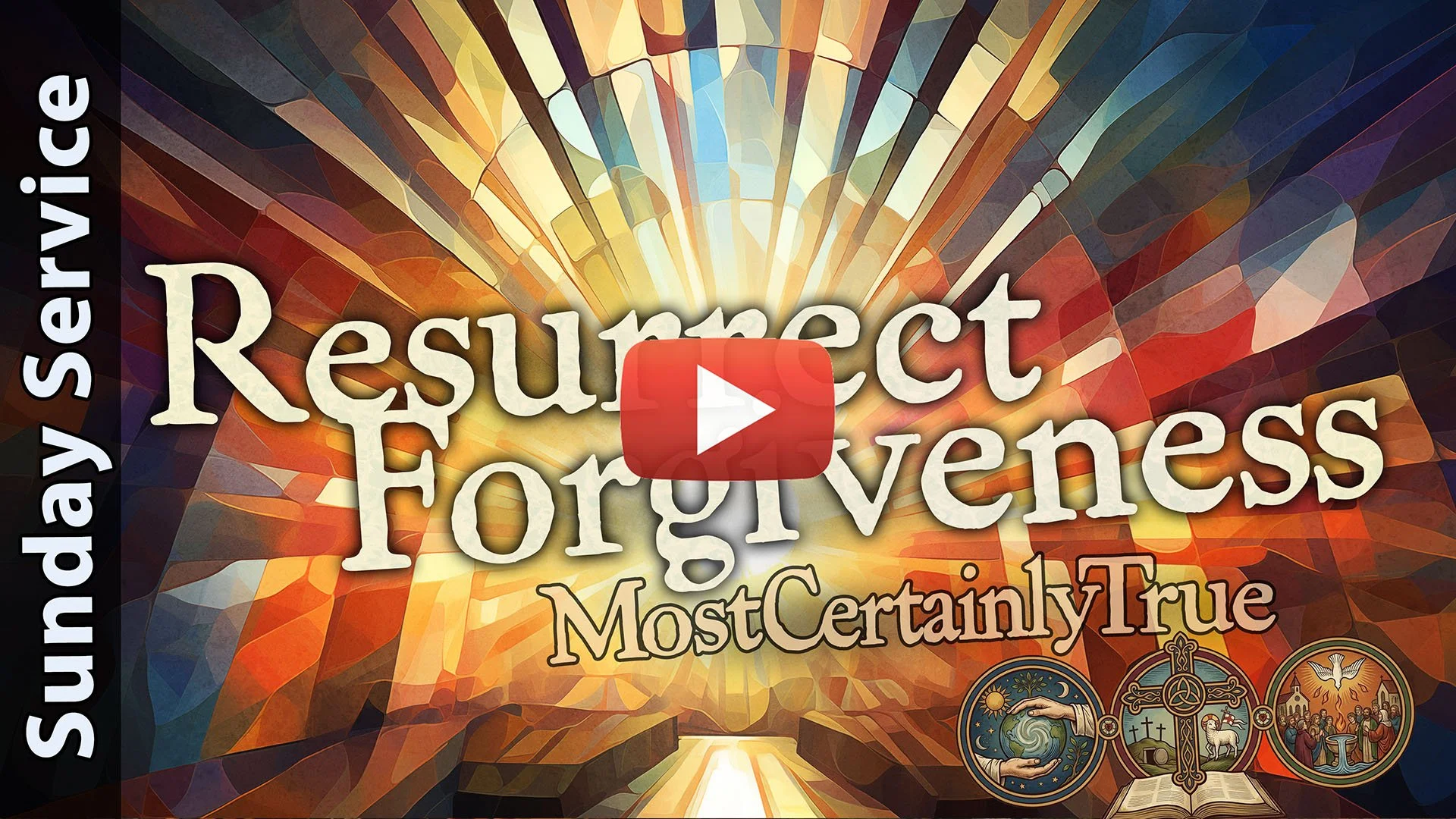



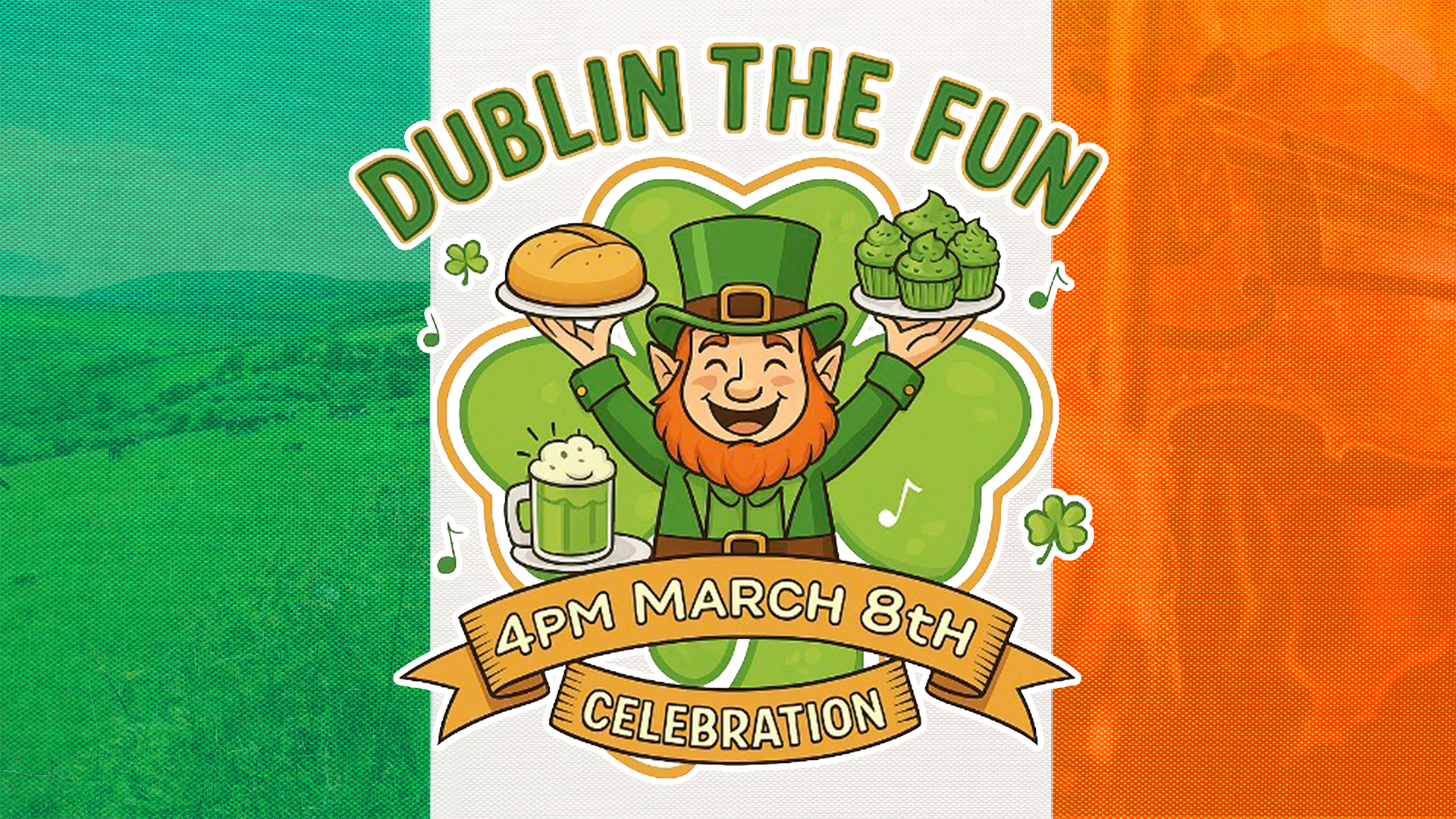
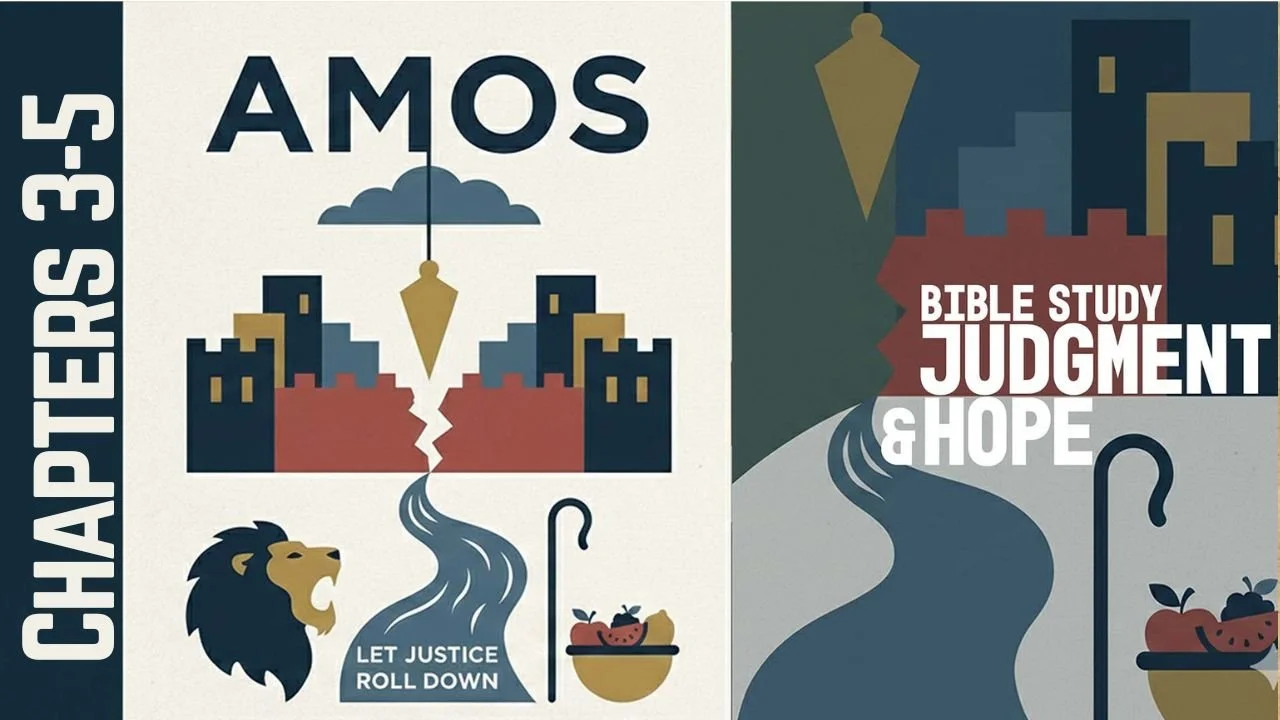
![[Sunday] Gathered Christ, Most Certainly True](https://images.squarespace-cdn.com/content/v1/5852f18a20099e30cd2c01dc/1770395526468-R3EMN6BOOEGKPEO9EGYB/Certainly+True+5aaaaa.jpg)
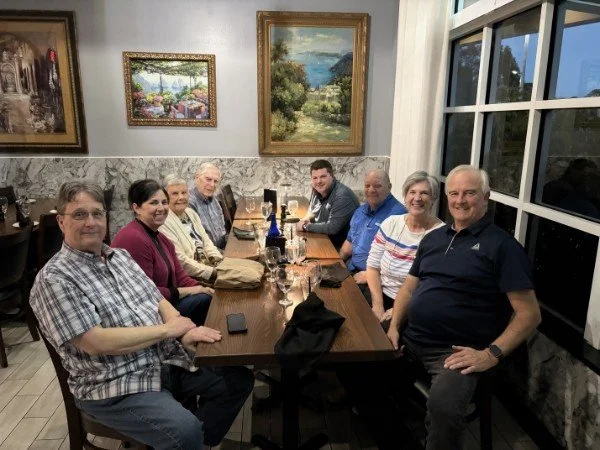
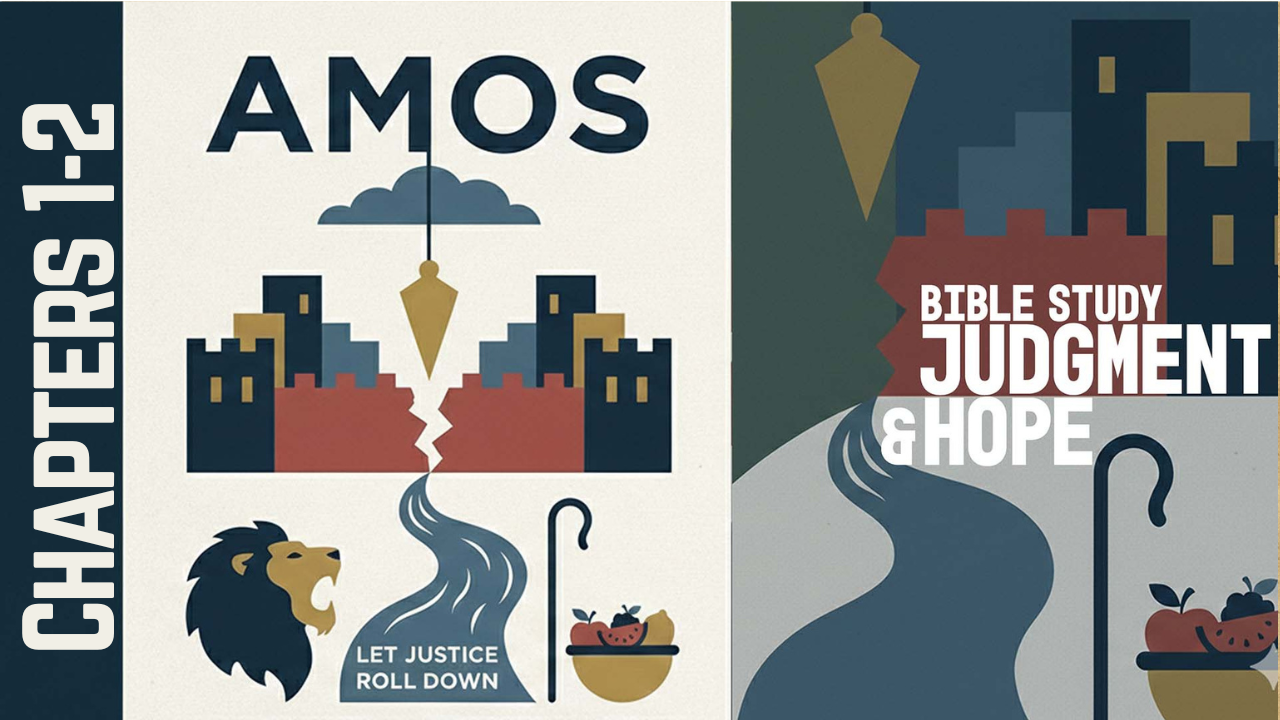
![[Sunday] My Lord, Most Certainly True](https://images.squarespace-cdn.com/content/v1/5852f18a20099e30cd2c01dc/1769749486882-XDH3E1LD02BB1NFR07NC/Certainly+True+4a.jpg)

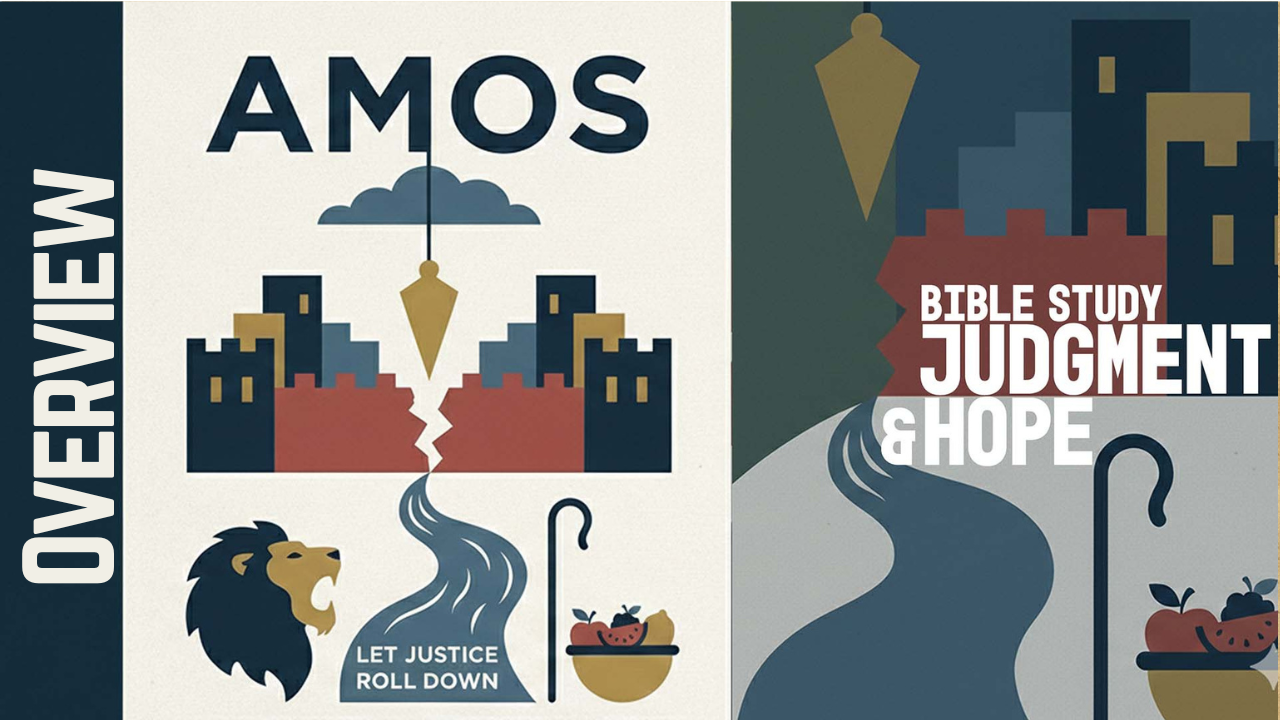

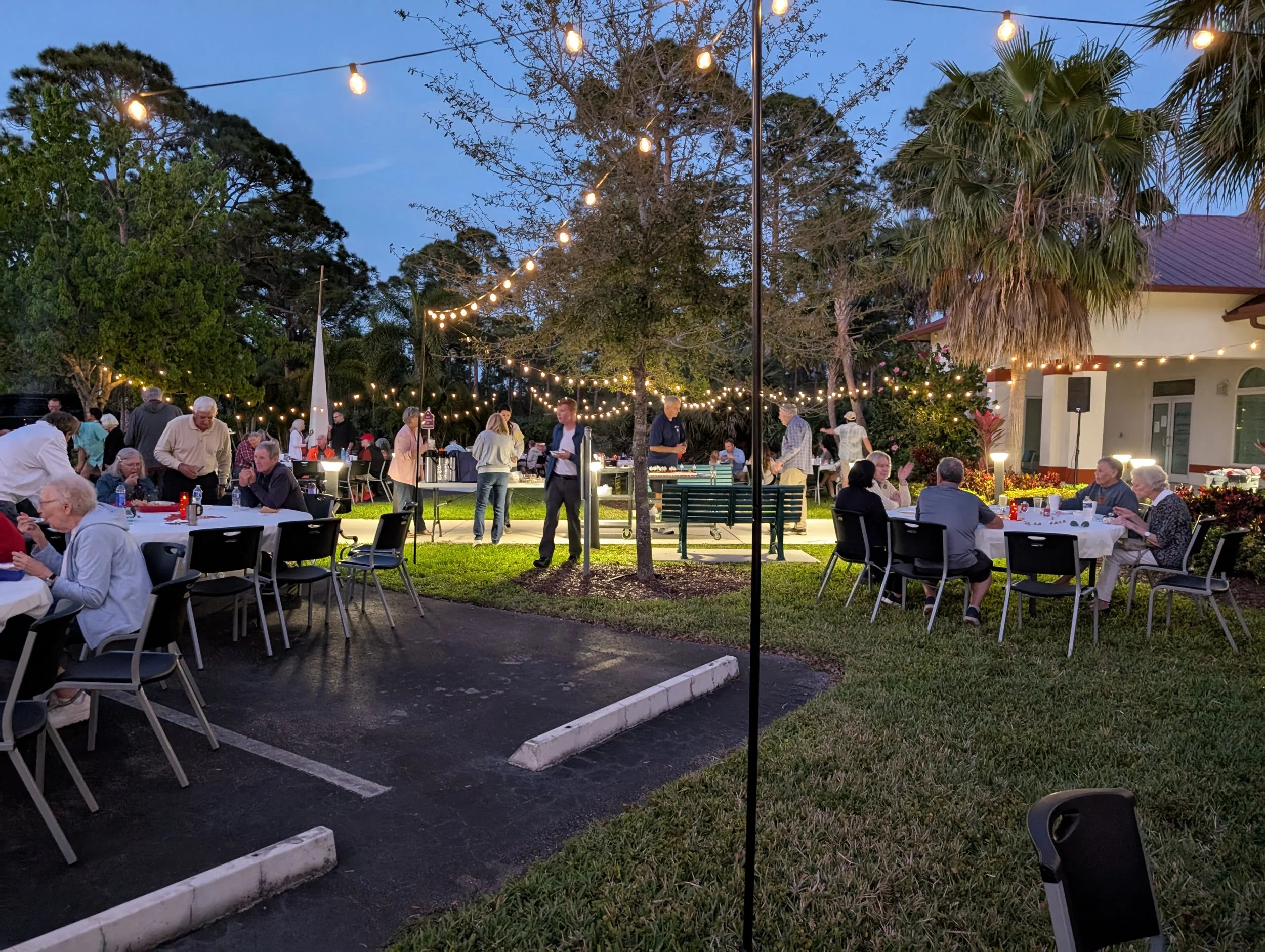
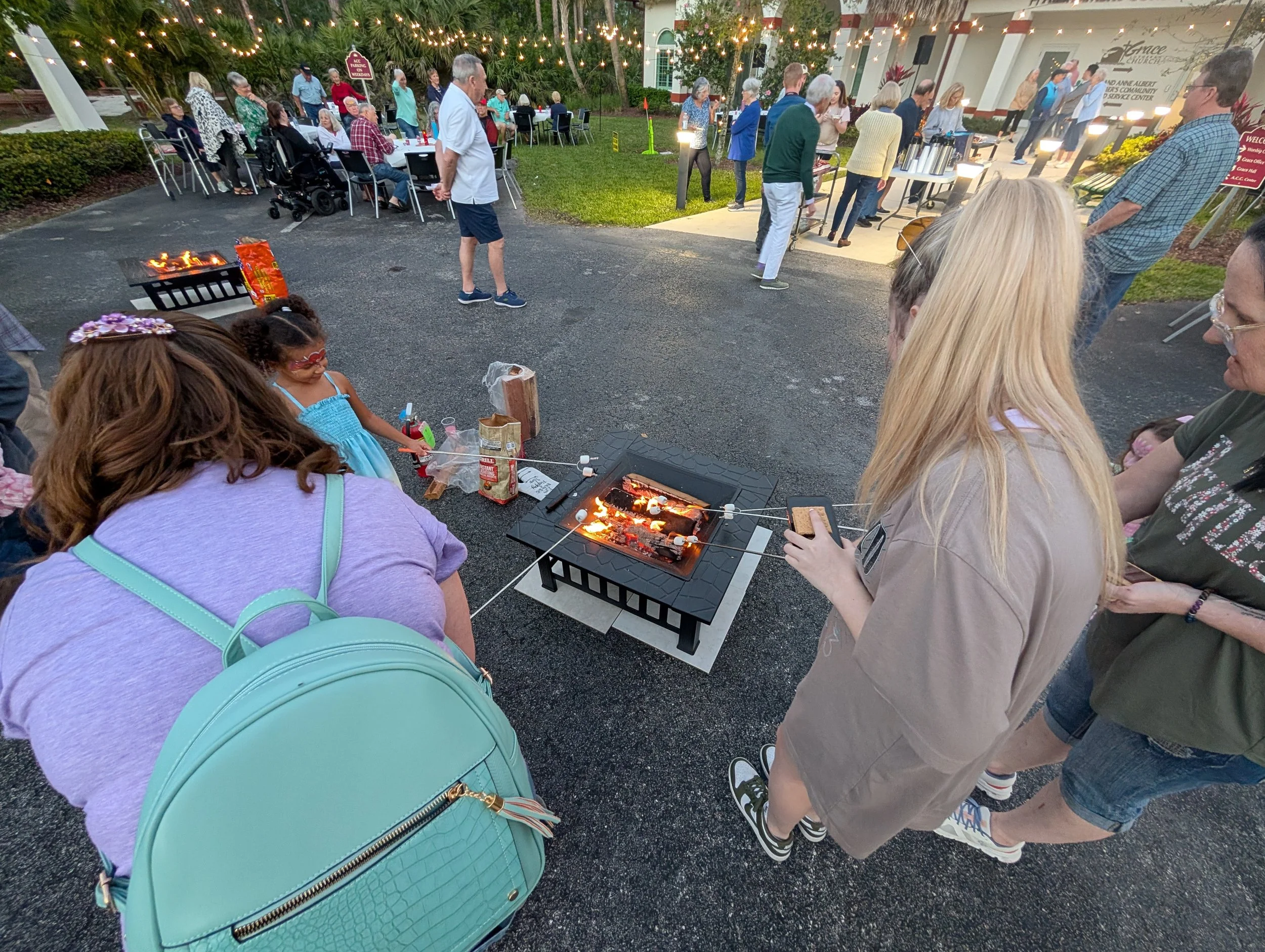
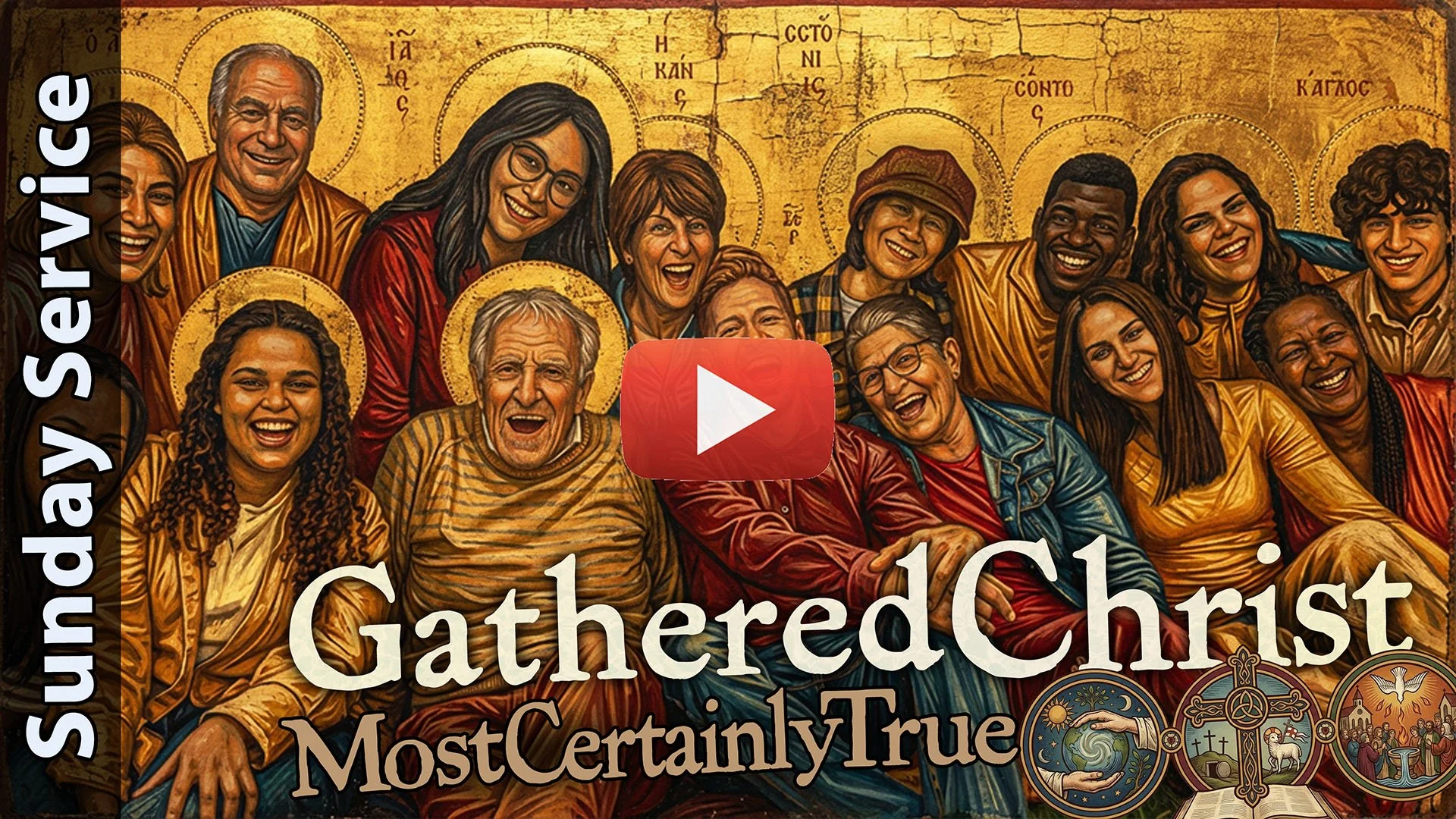
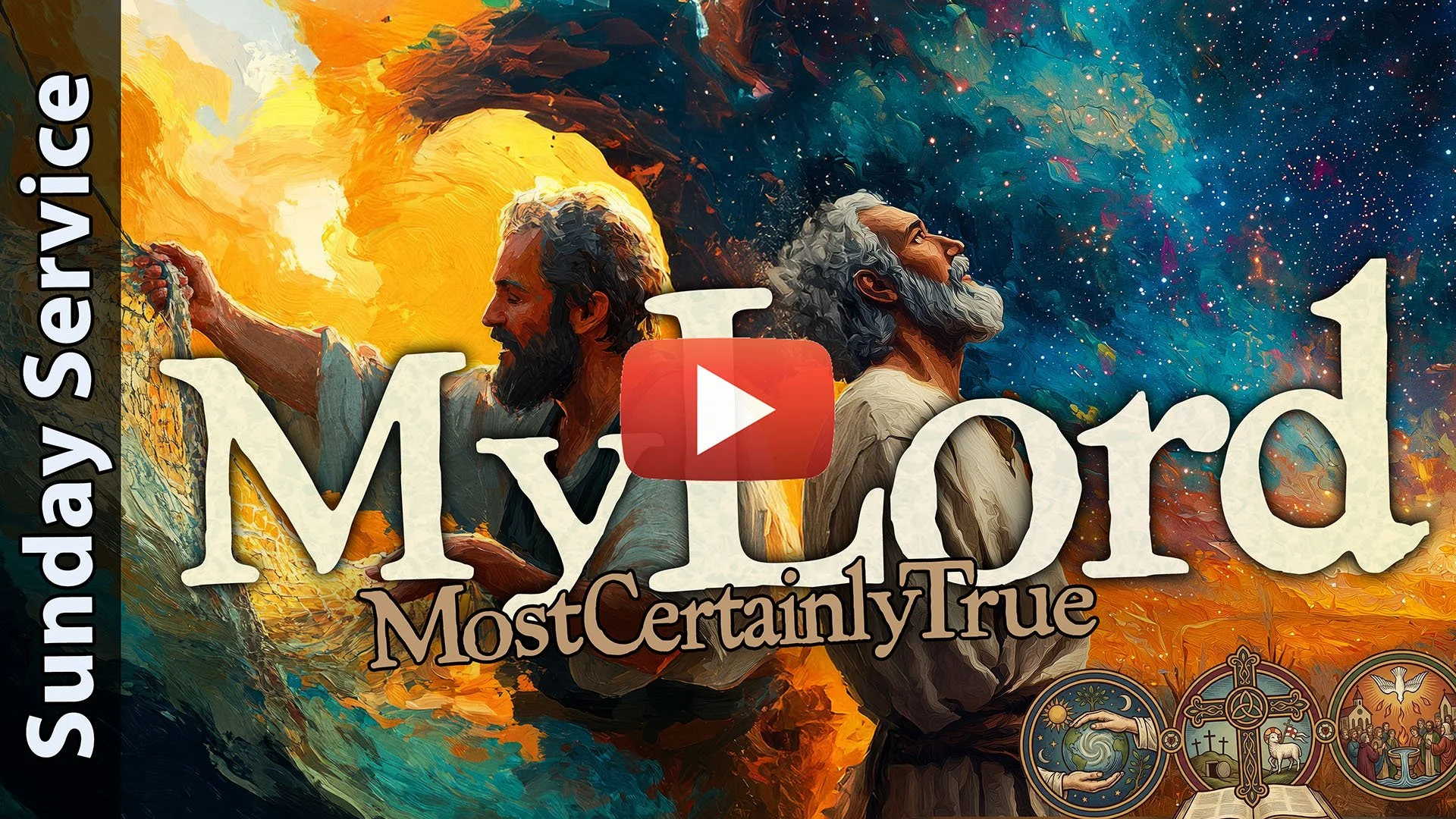
![[Sunday] The Son, Most Certainly True](https://images.squarespace-cdn.com/content/v1/5852f18a20099e30cd2c01dc/1769135346417-Z6OMGMMHFU95T4W5KDV8/Certainly+True+3a.jpg)
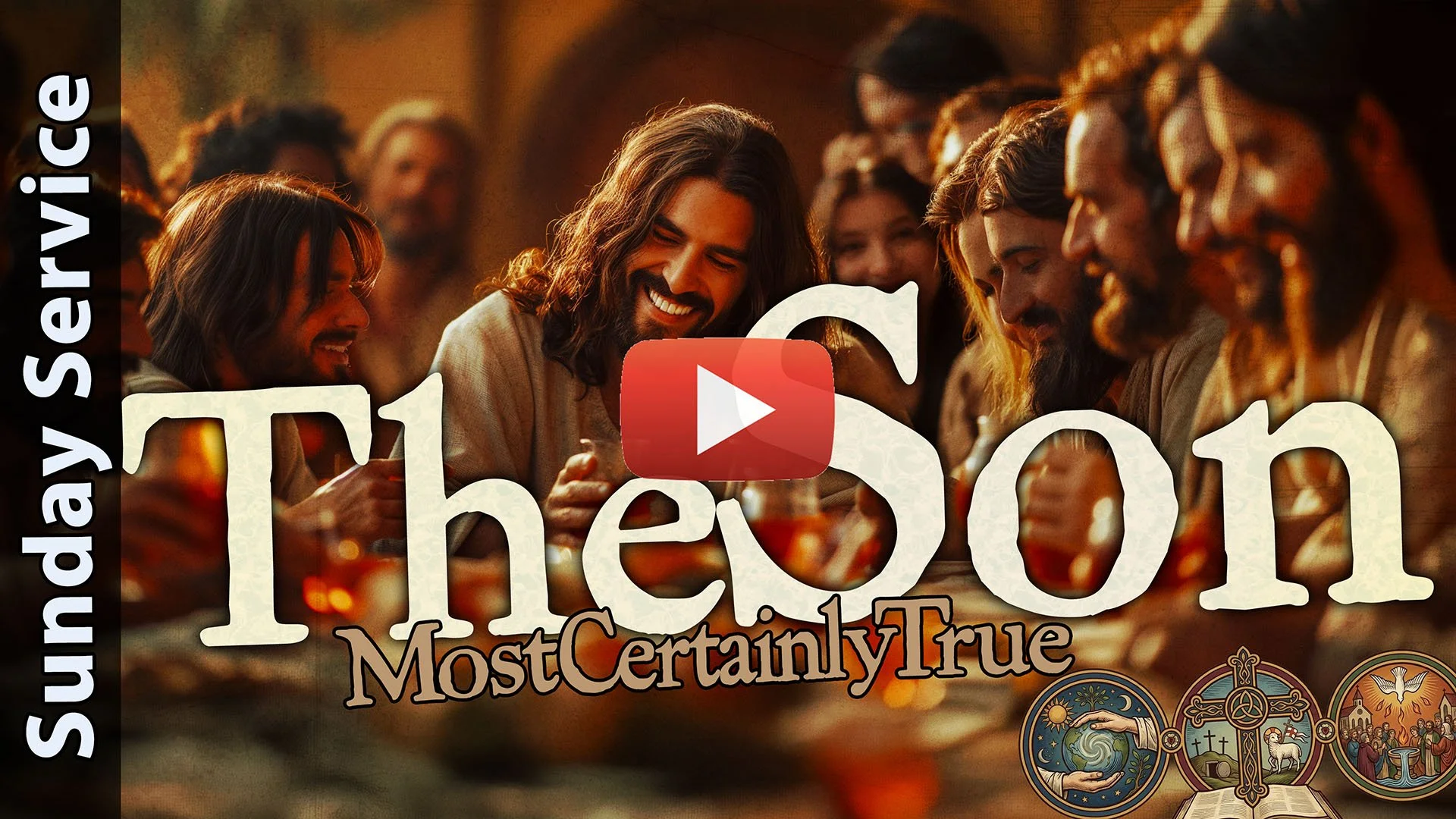
















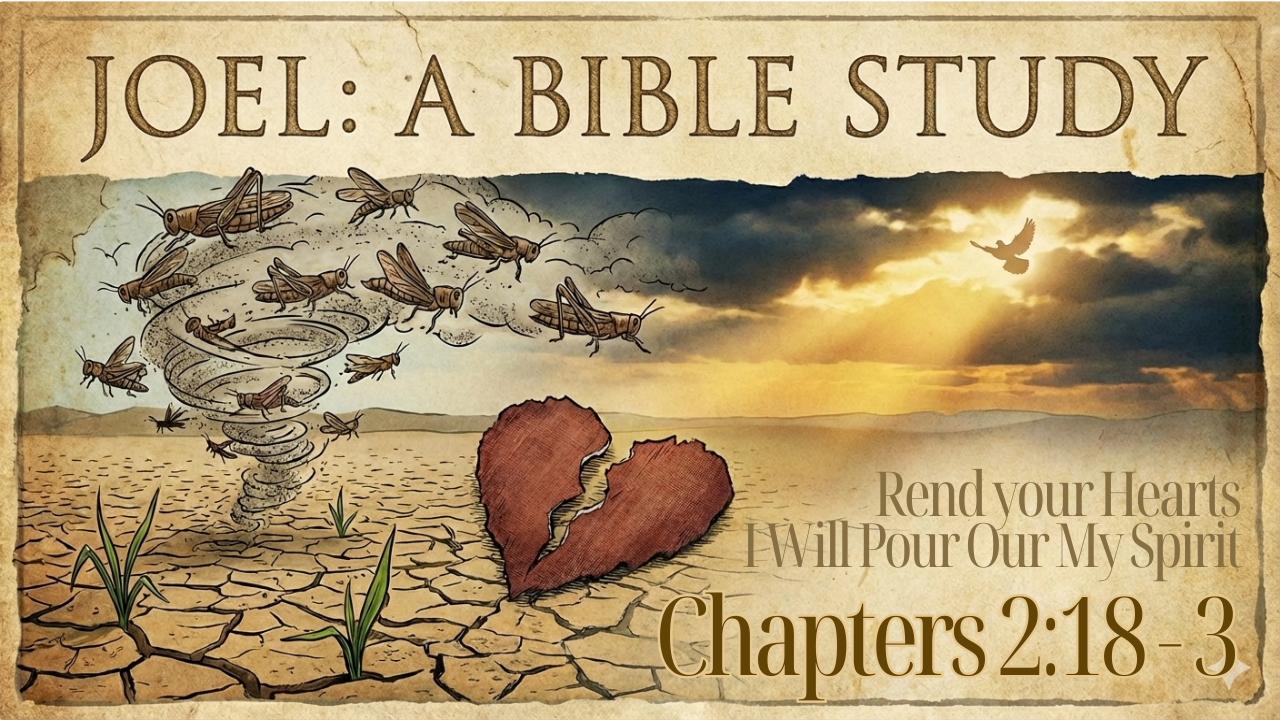
![[Sunday] Creation Sustained Most Certainly True](https://images.squarespace-cdn.com/content/v1/5852f18a20099e30cd2c01dc/1768530963354-TSOEU855UMIOFGEUKRCL/Certainly+True+2a.jpg)
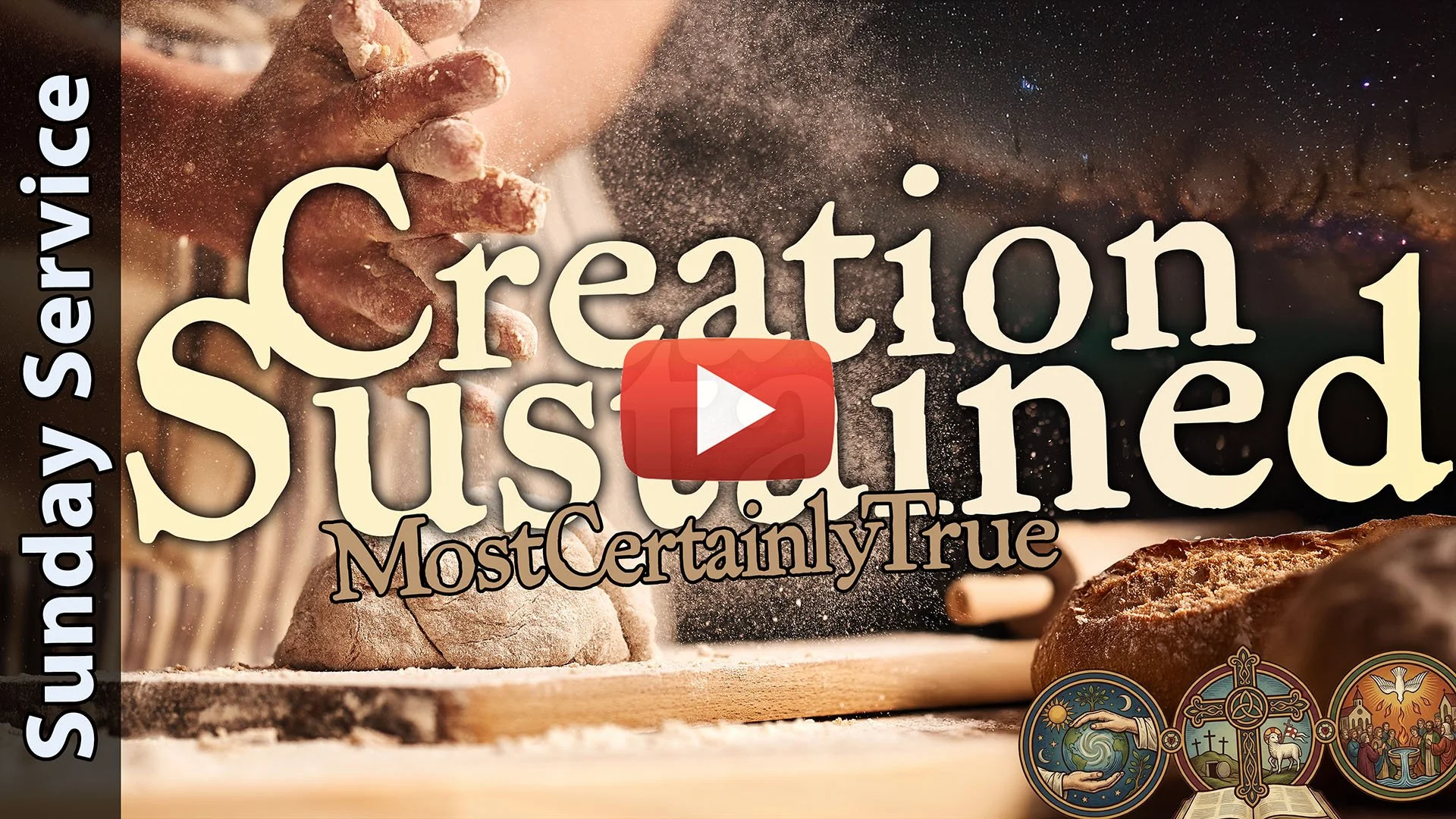
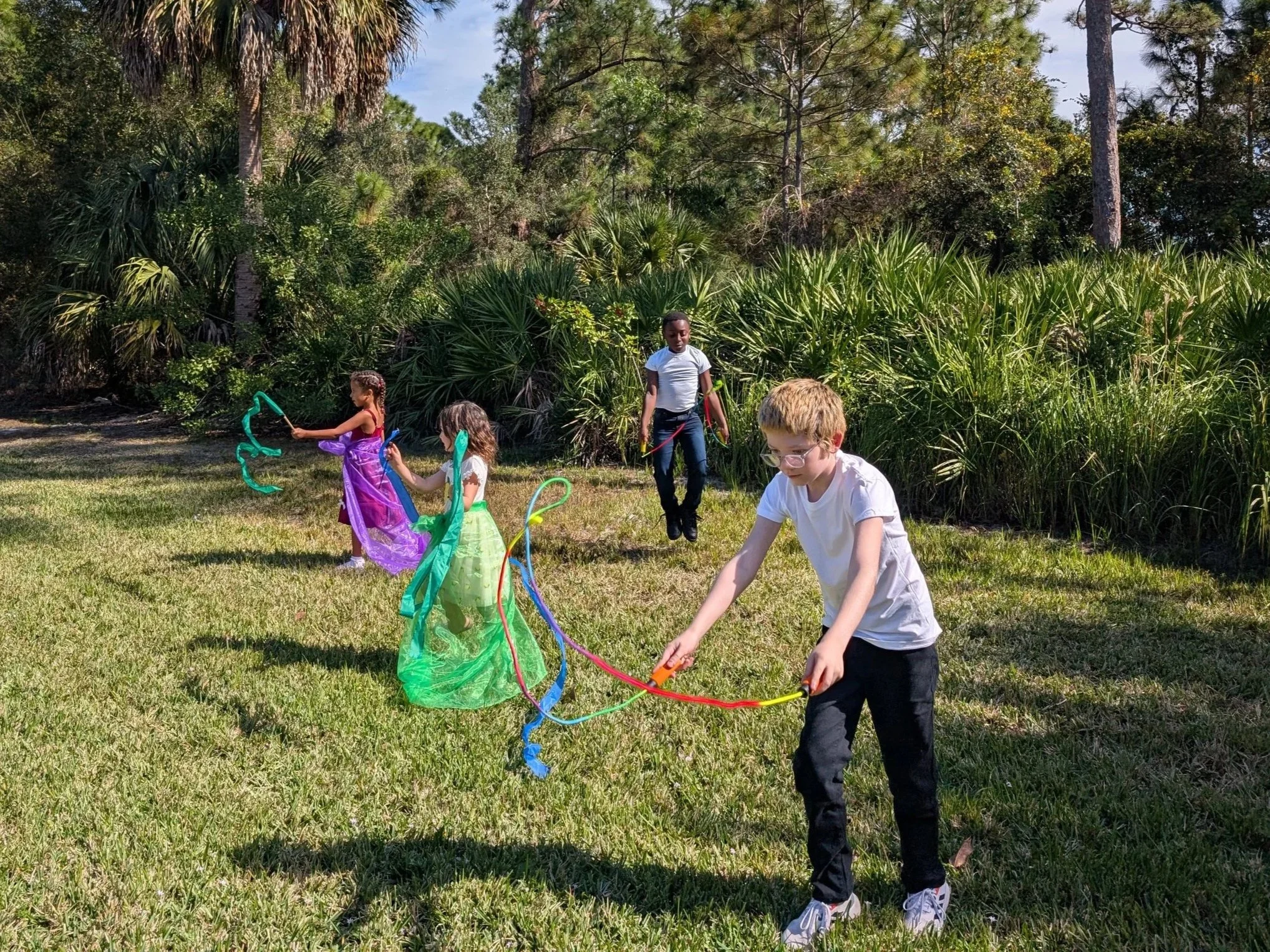

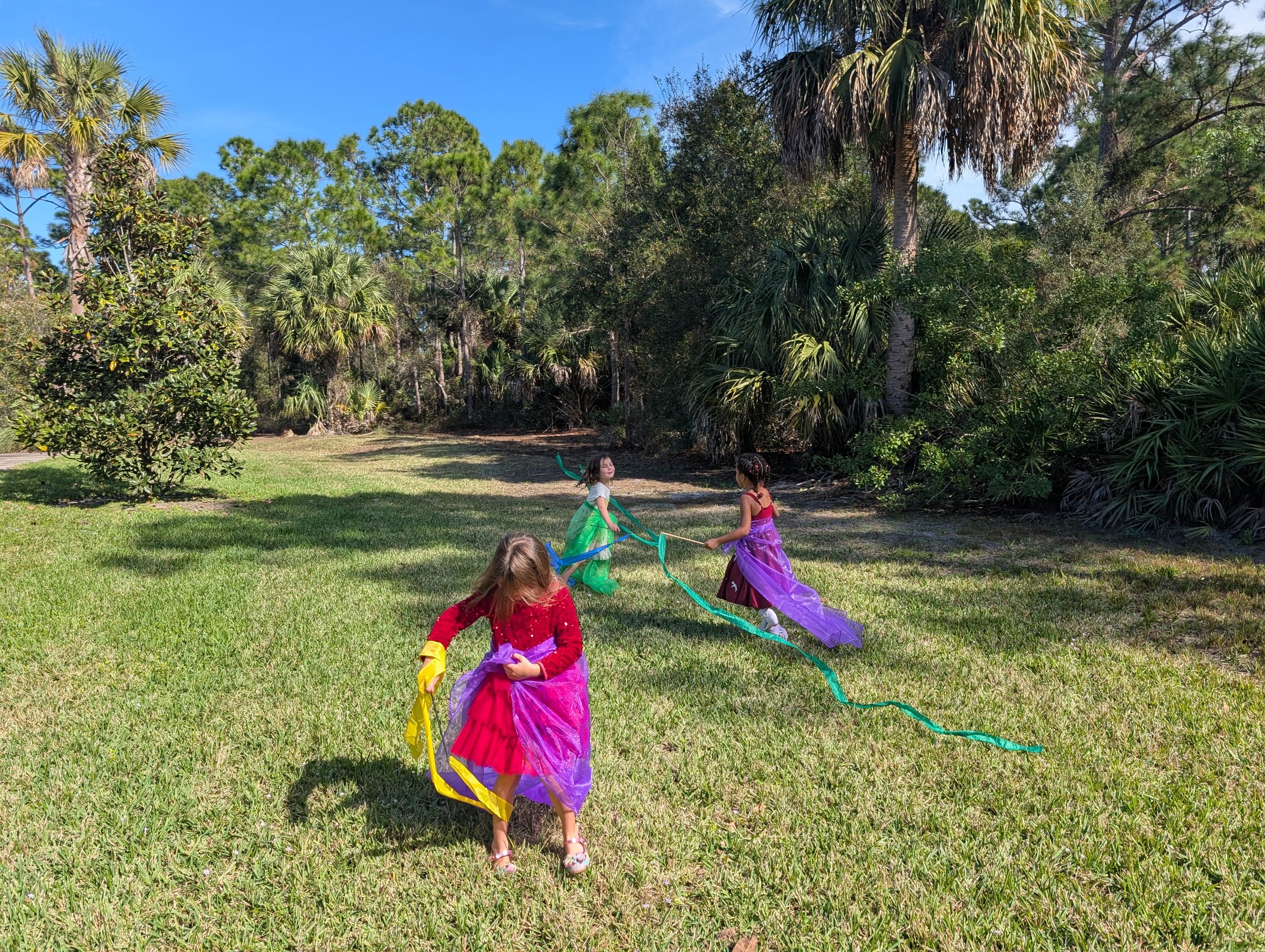




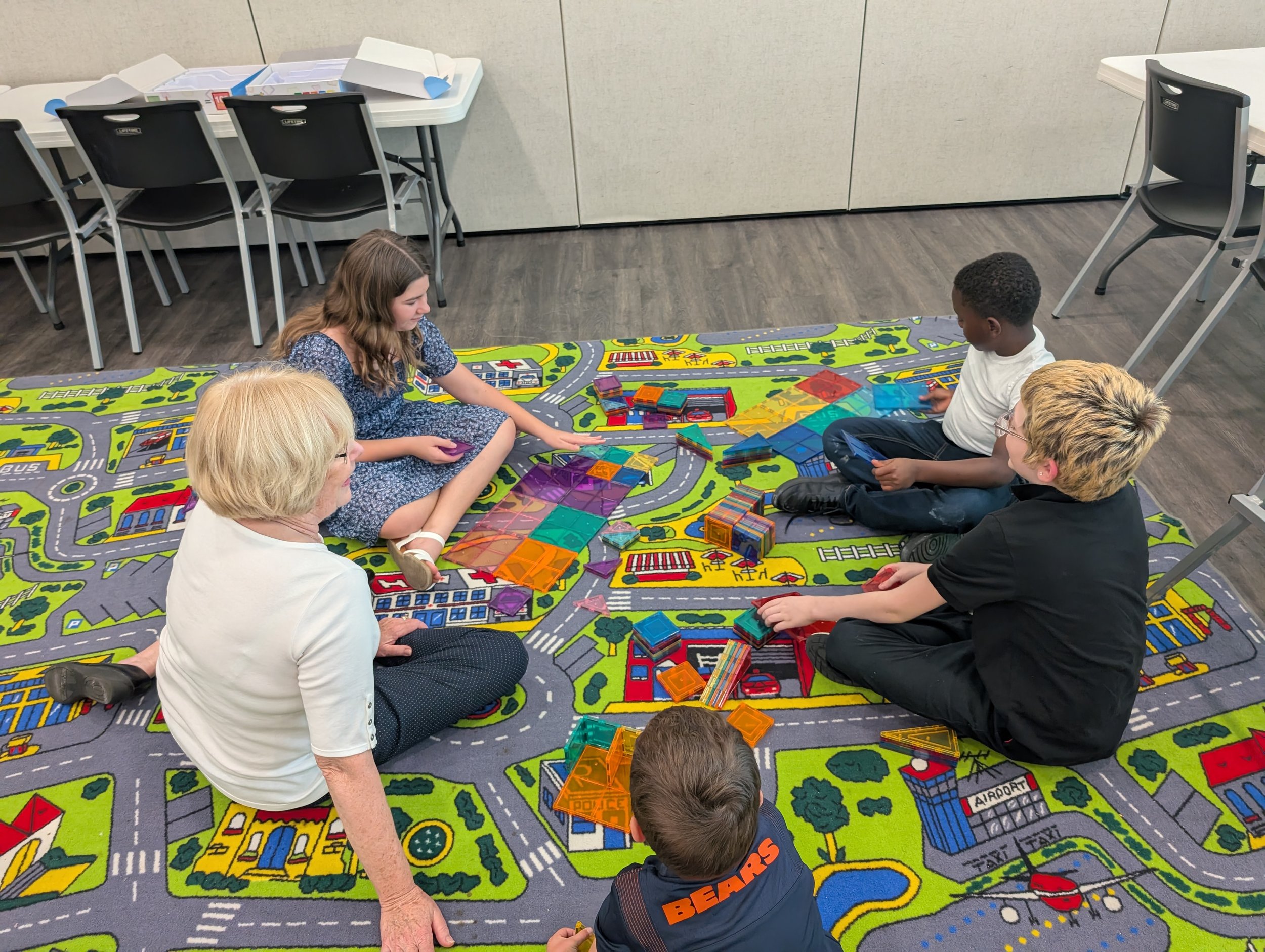
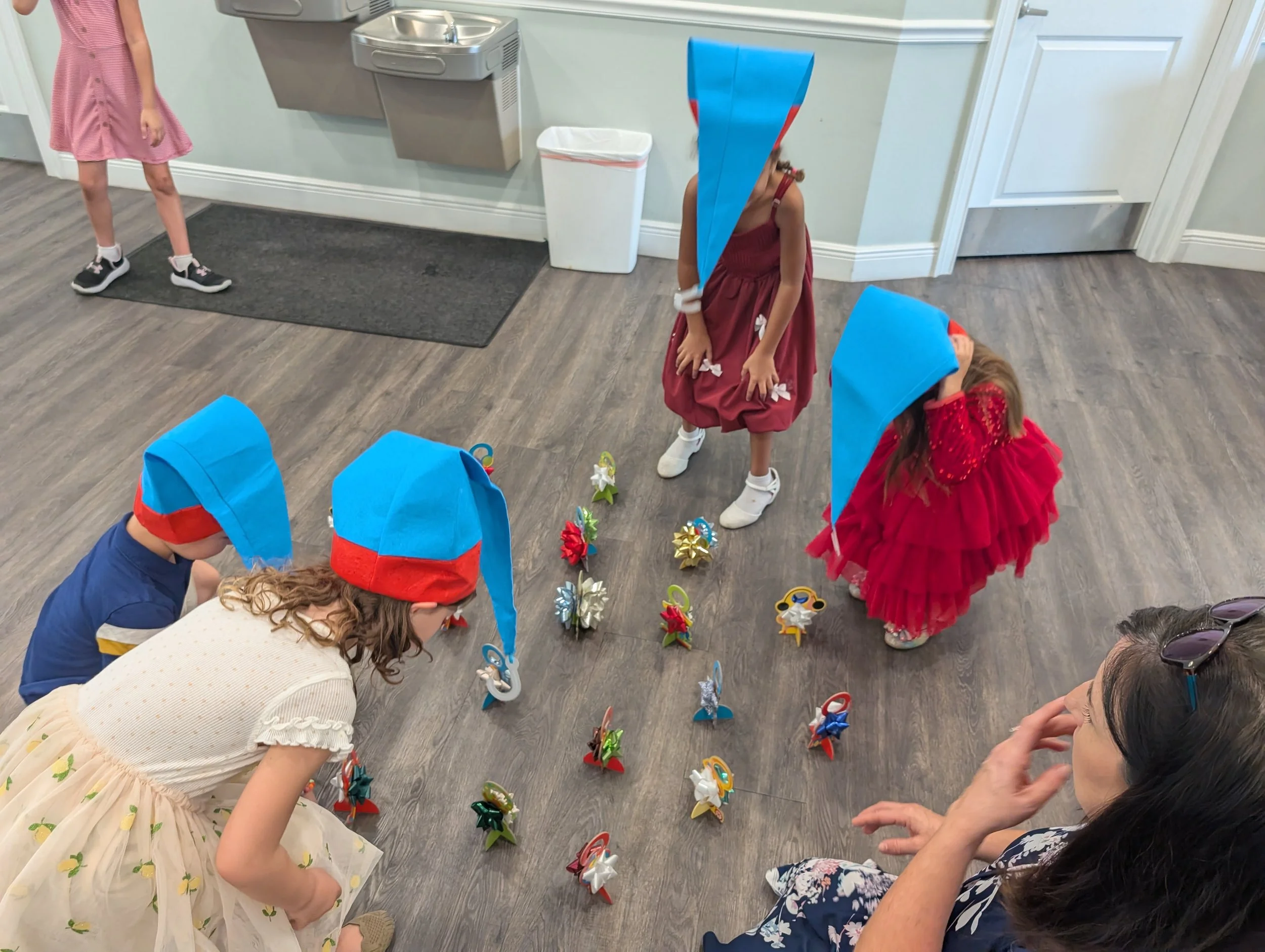
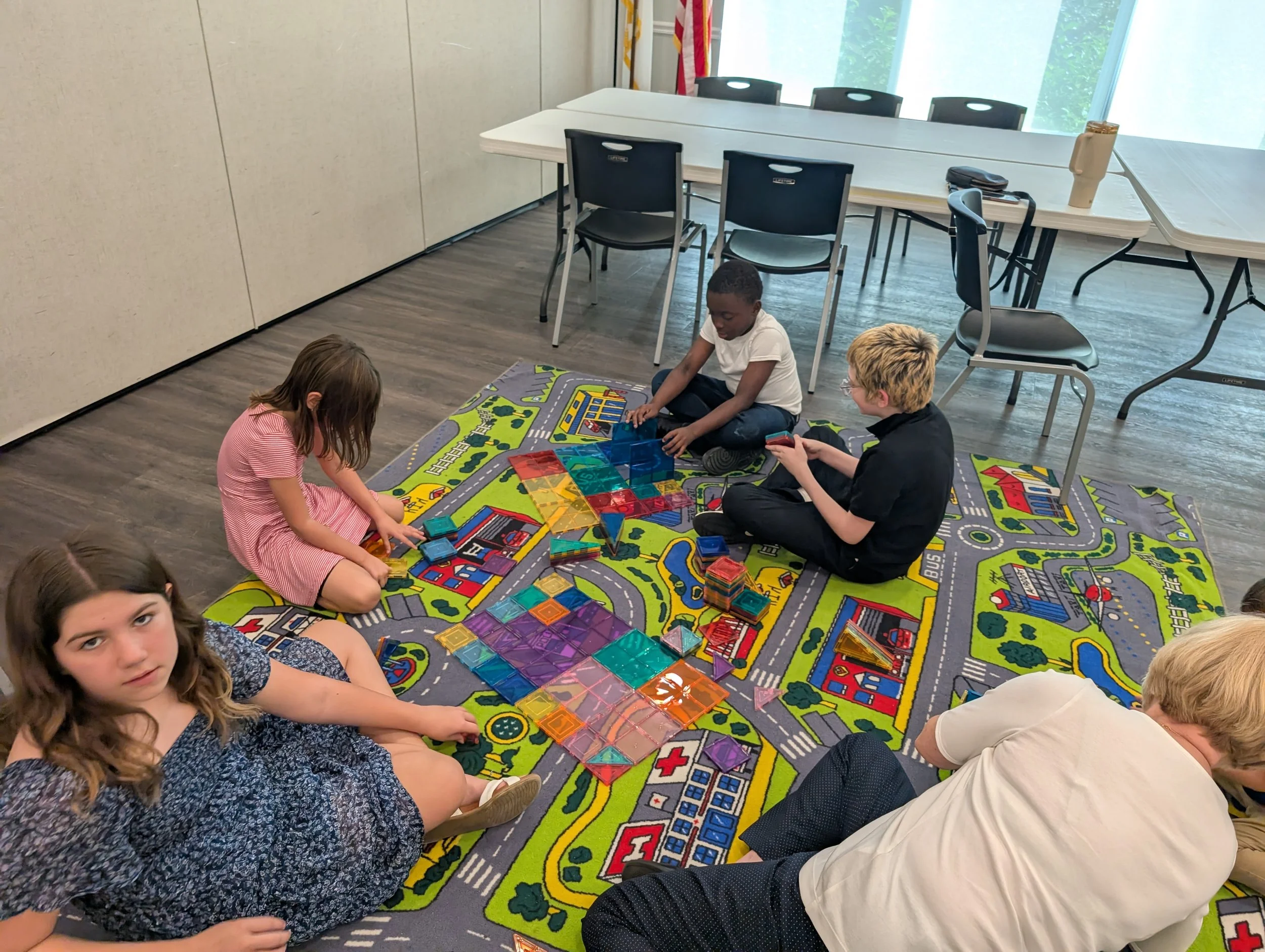
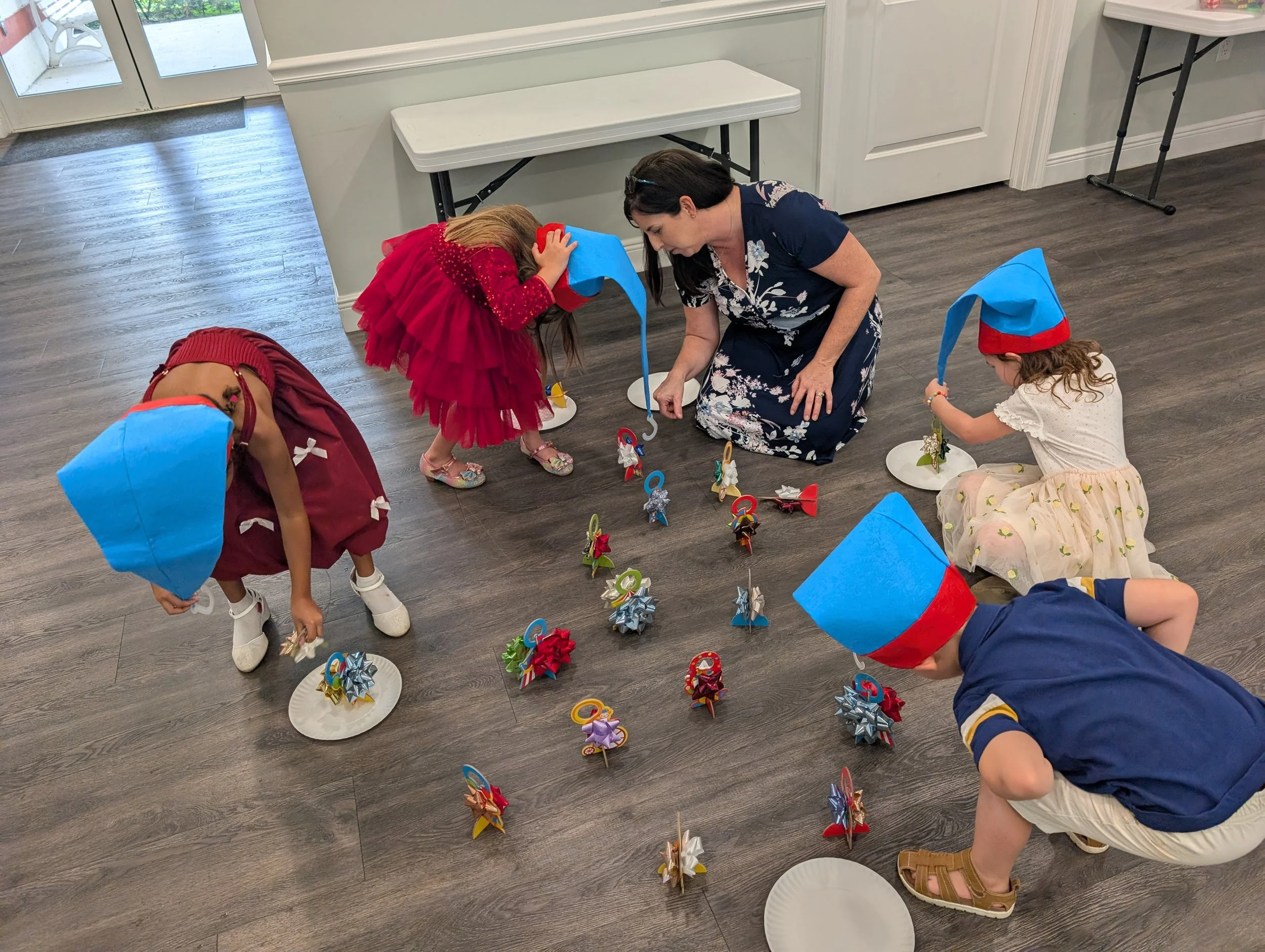
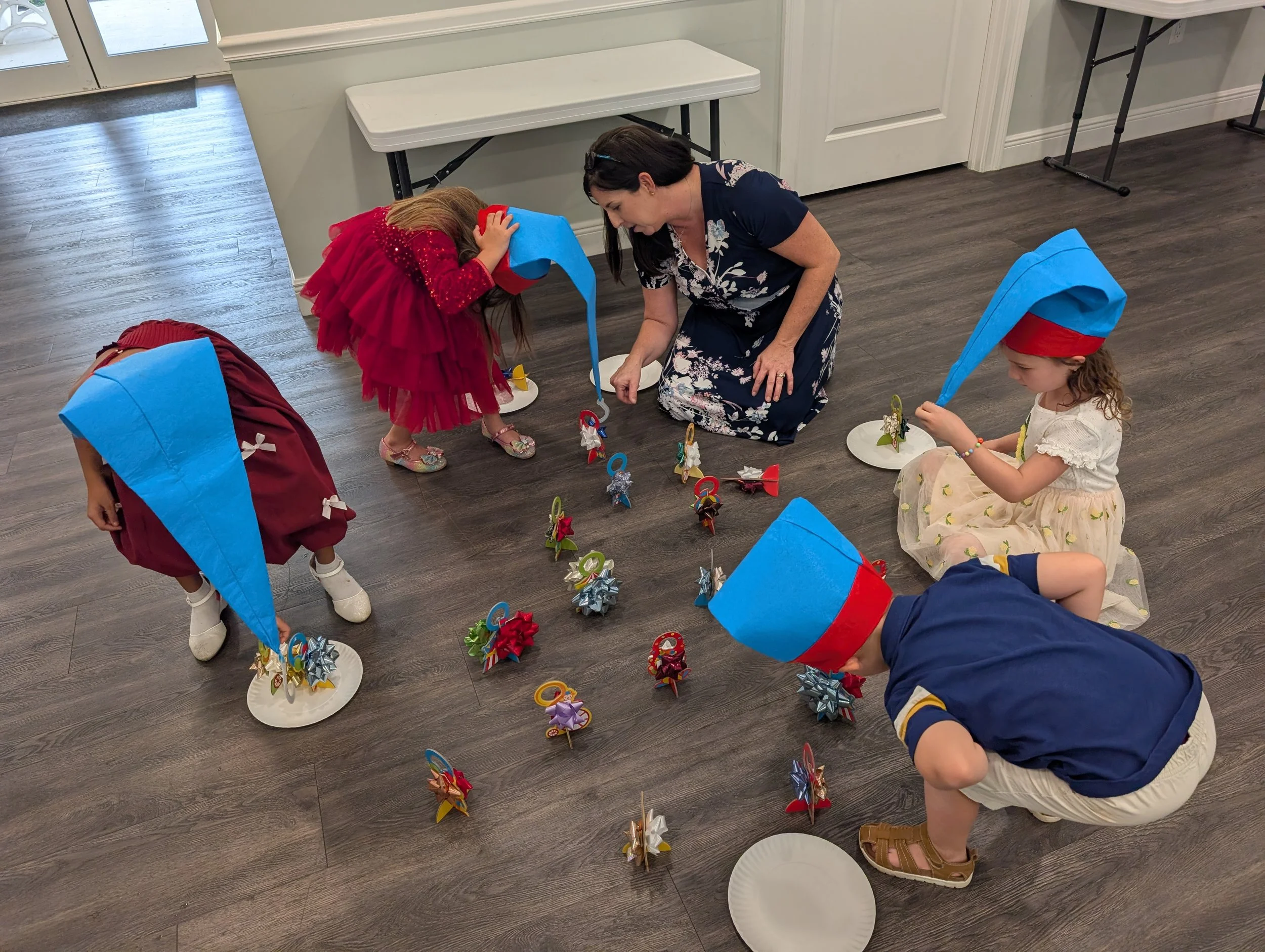






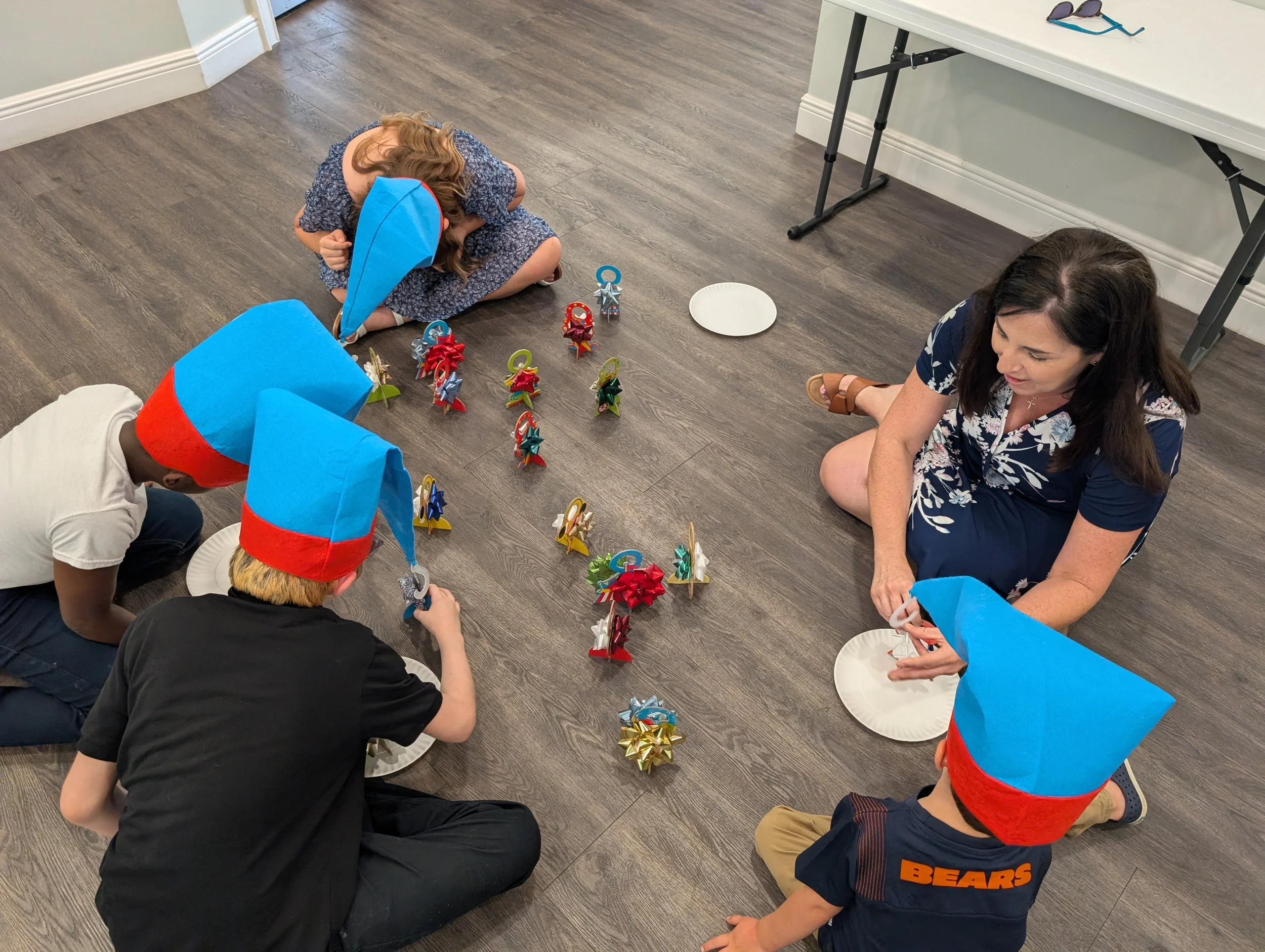
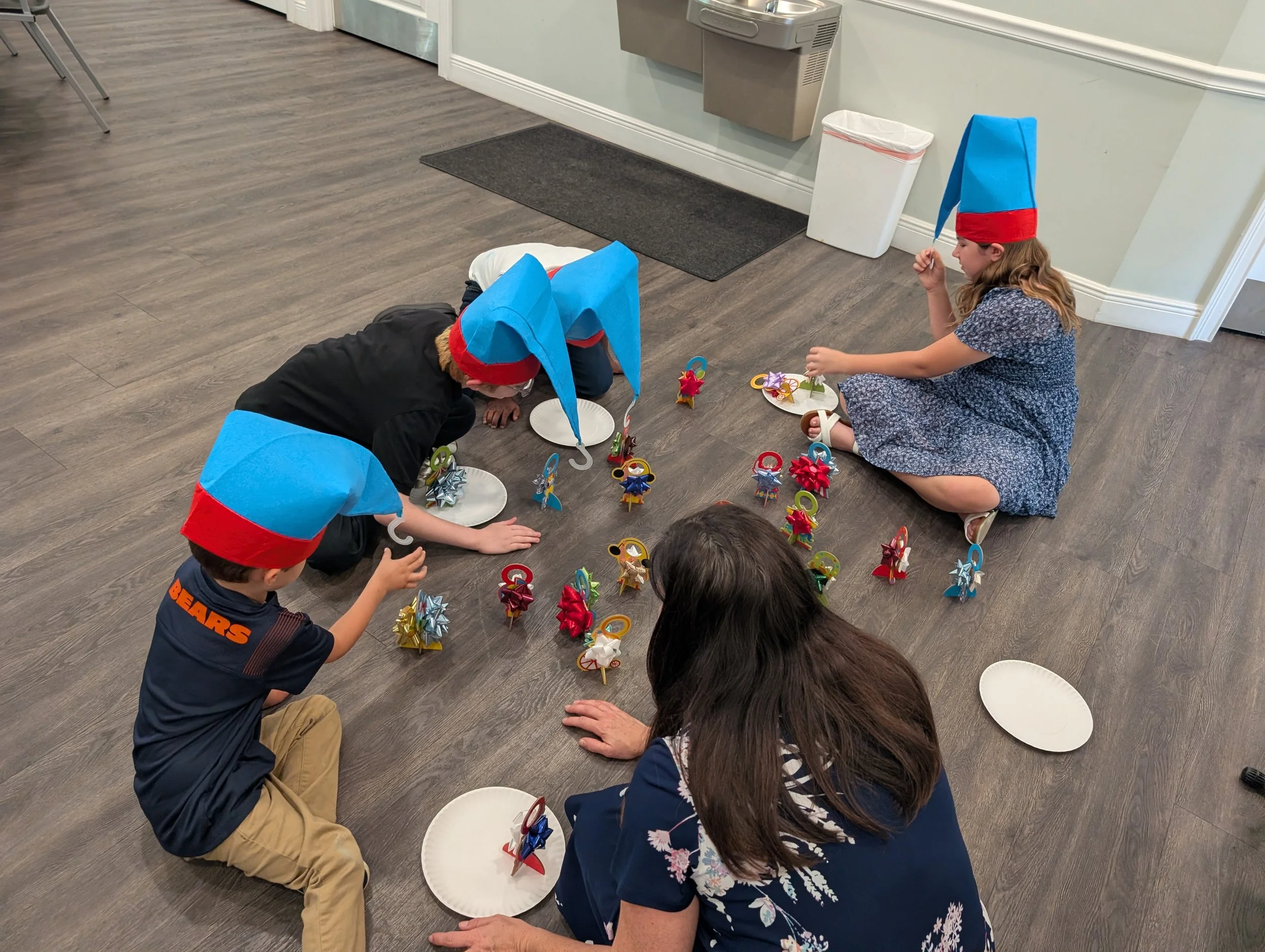


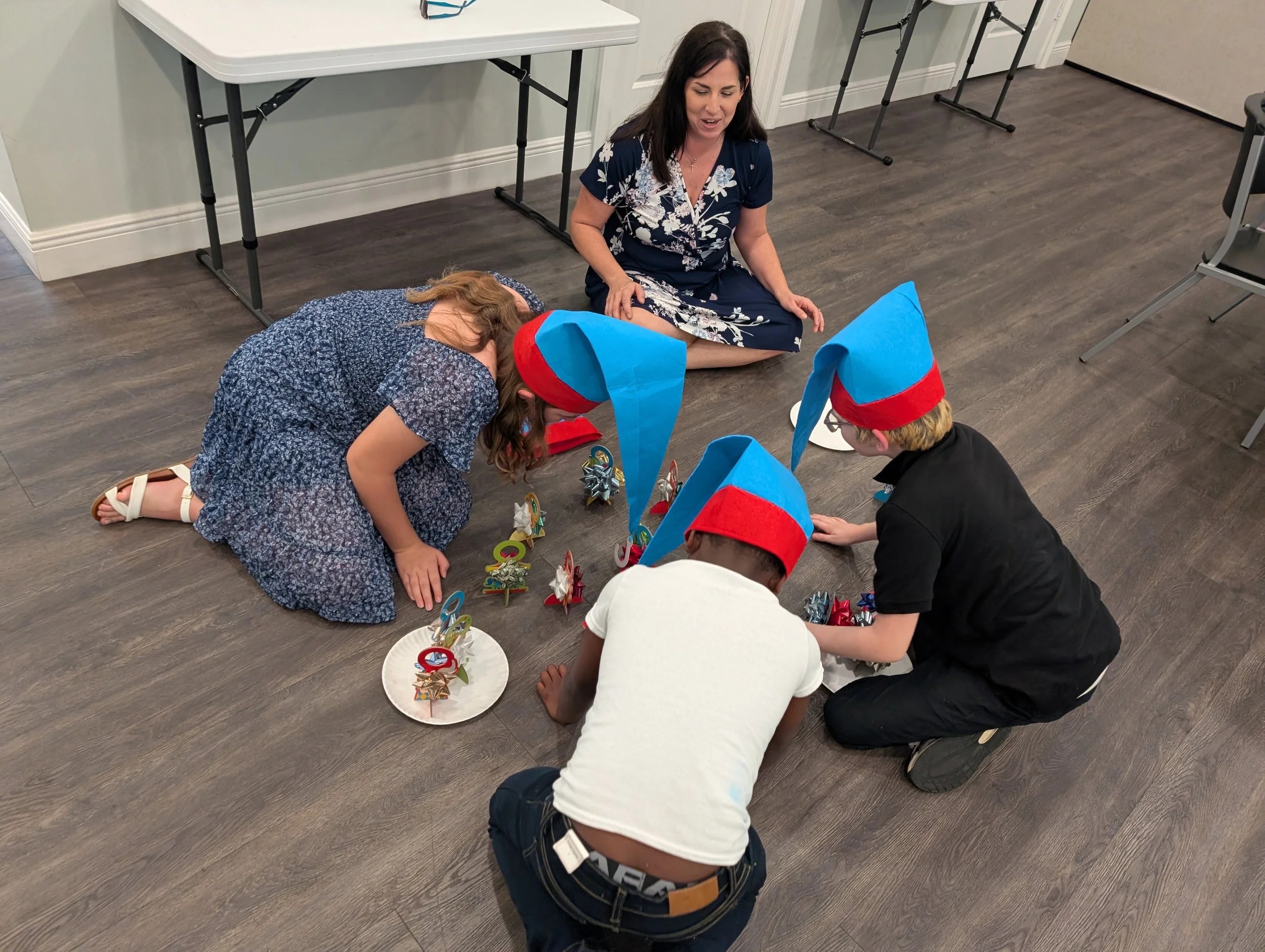
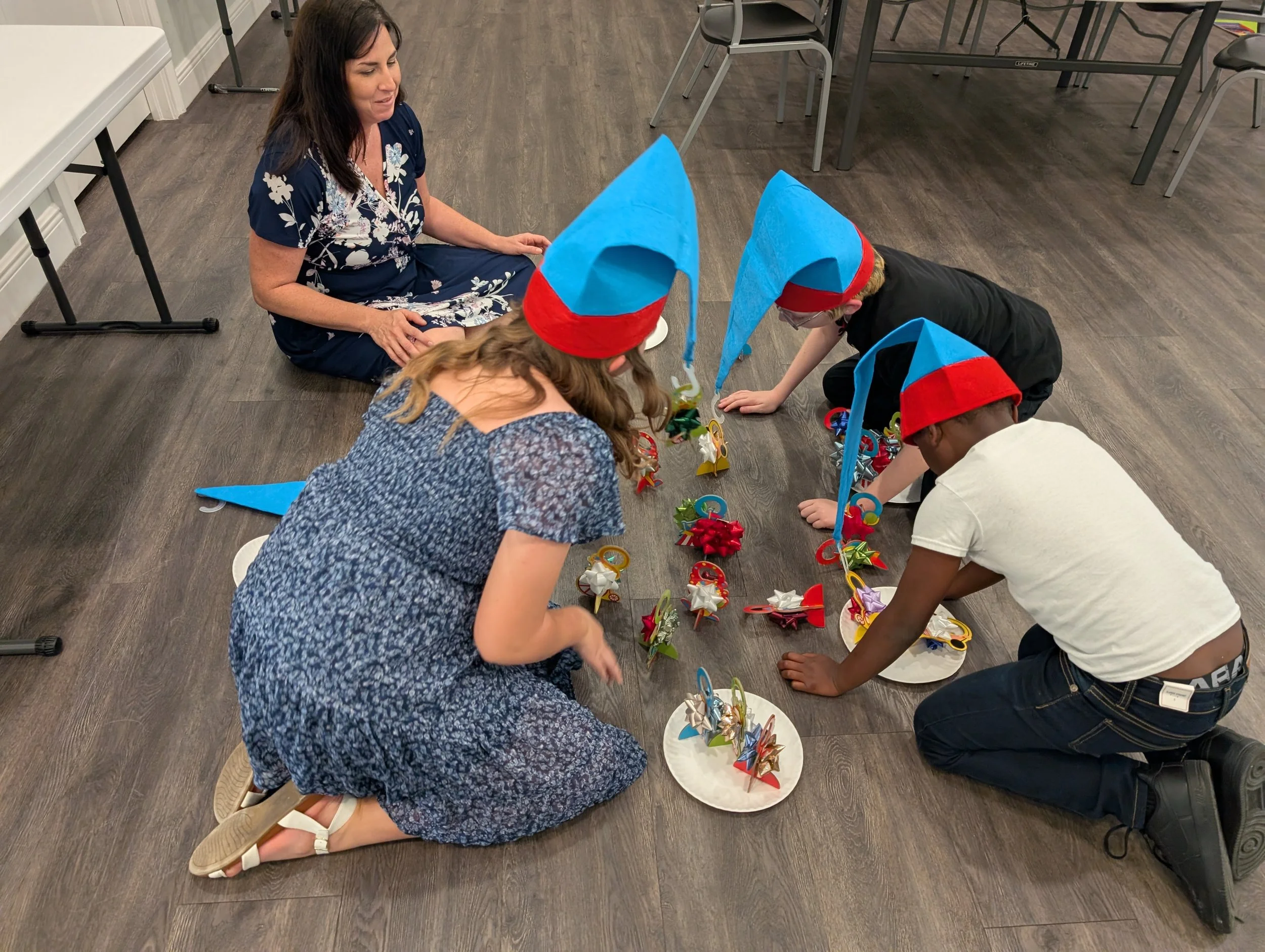
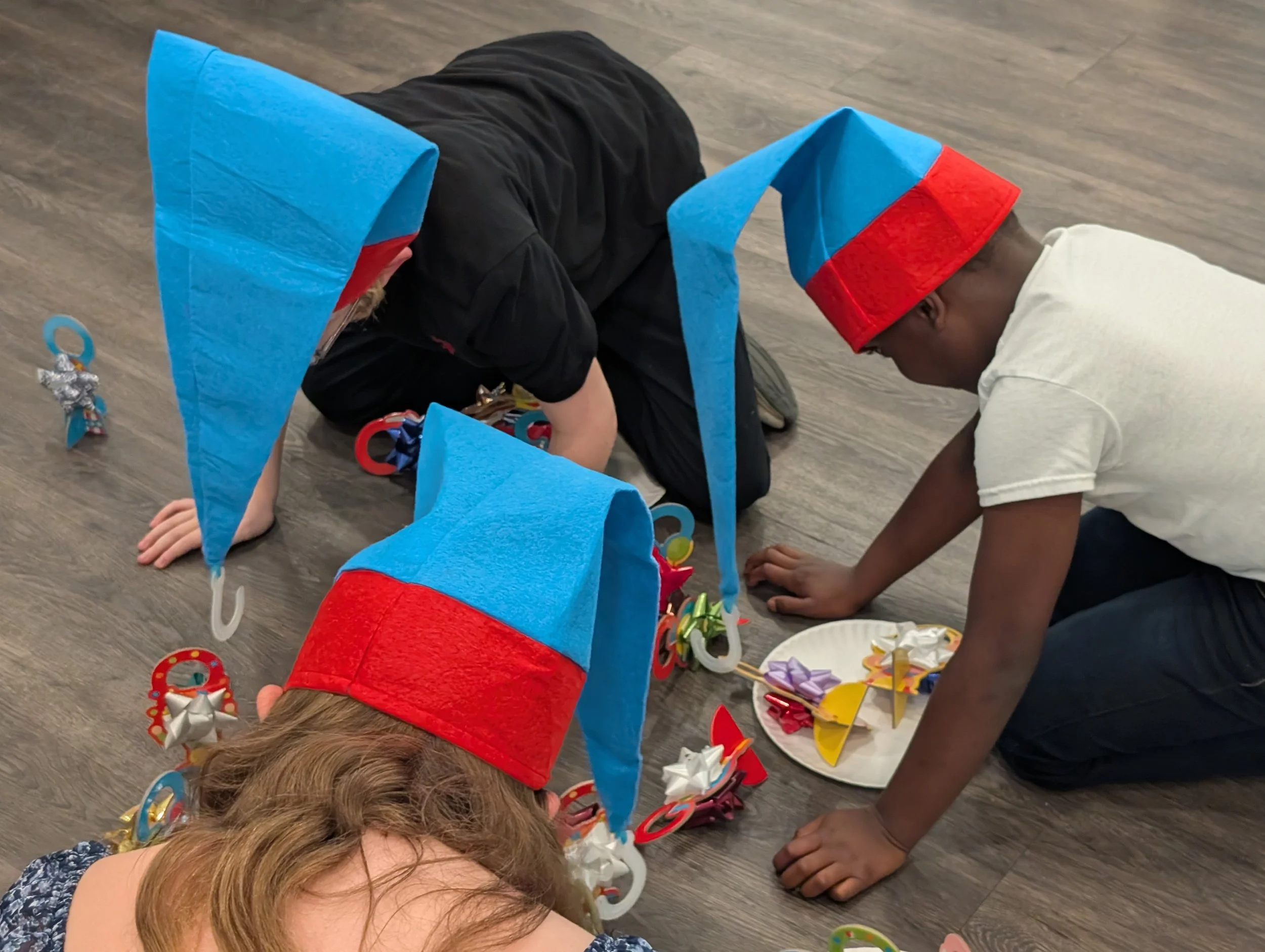
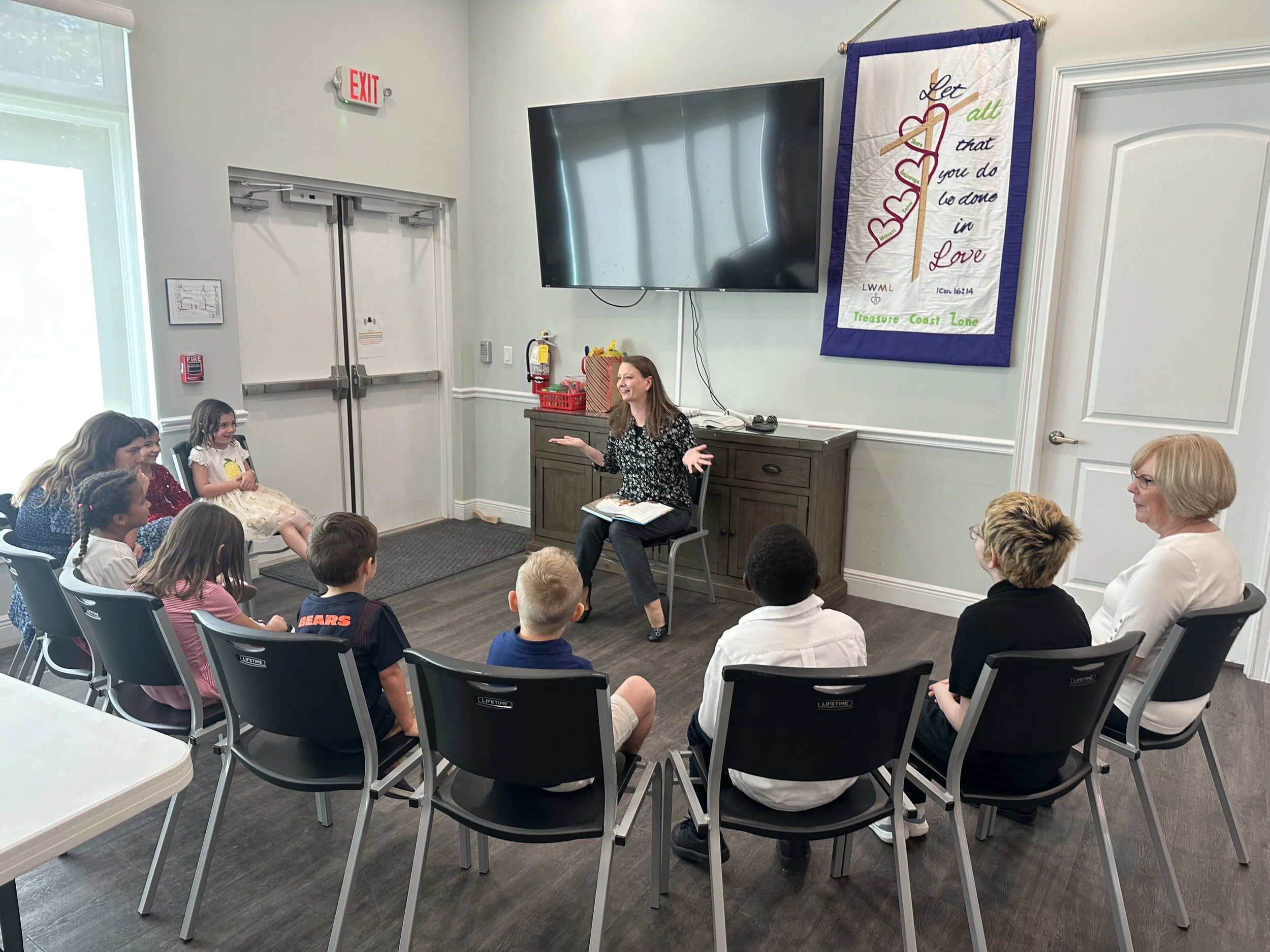

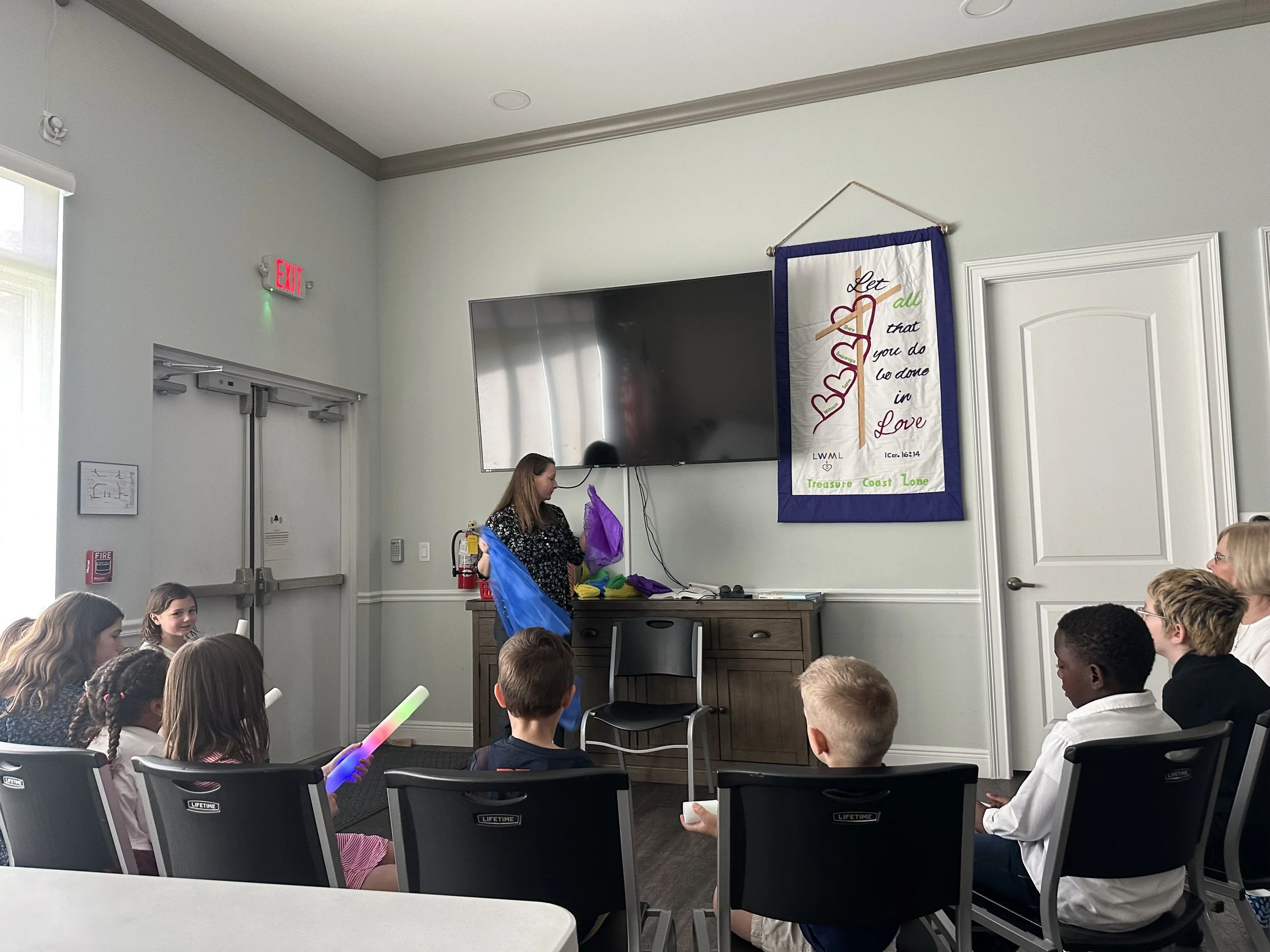




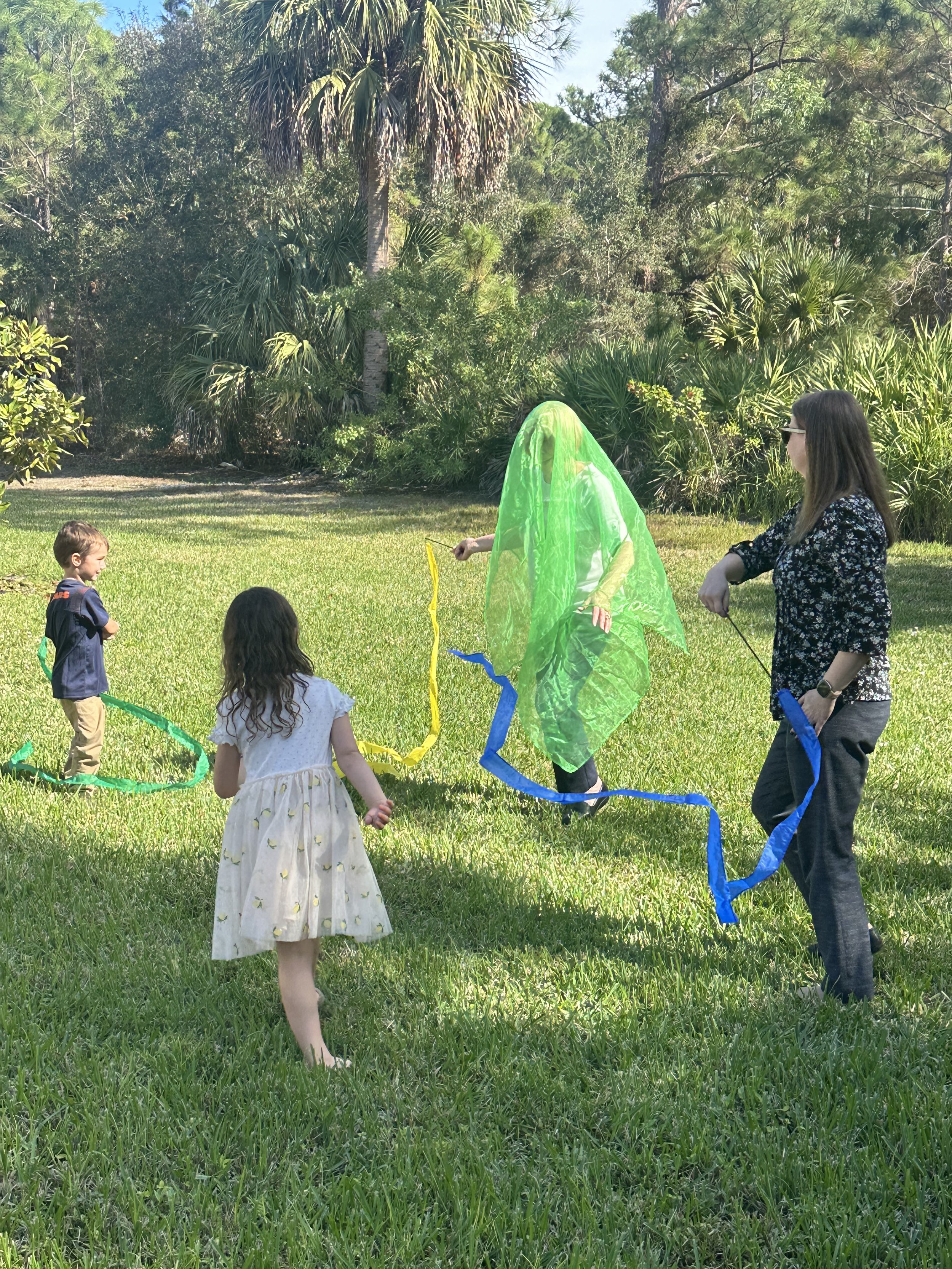





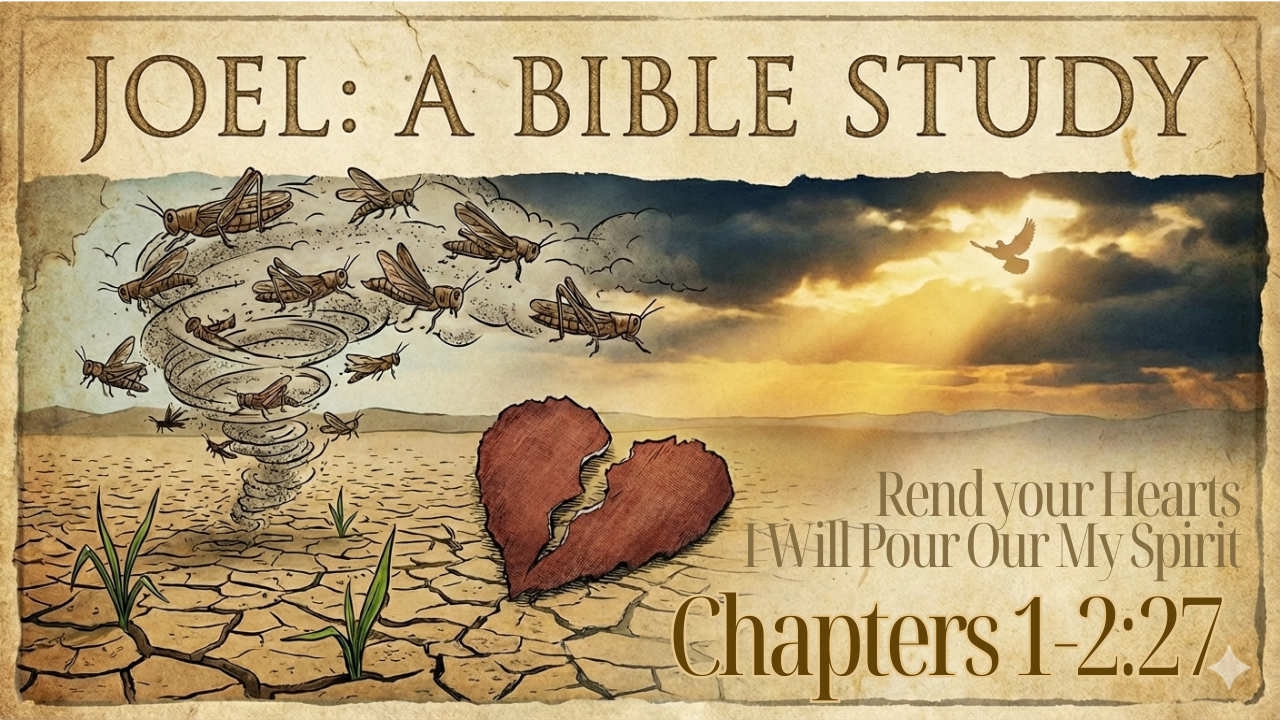
![[Sunday] Good Creation Most Certainly True](https://images.squarespace-cdn.com/content/v1/5852f18a20099e30cd2c01dc/1767931204162-S0EG3ZJDEUVLBCHI284L/Certainly+True+1a.jpg)
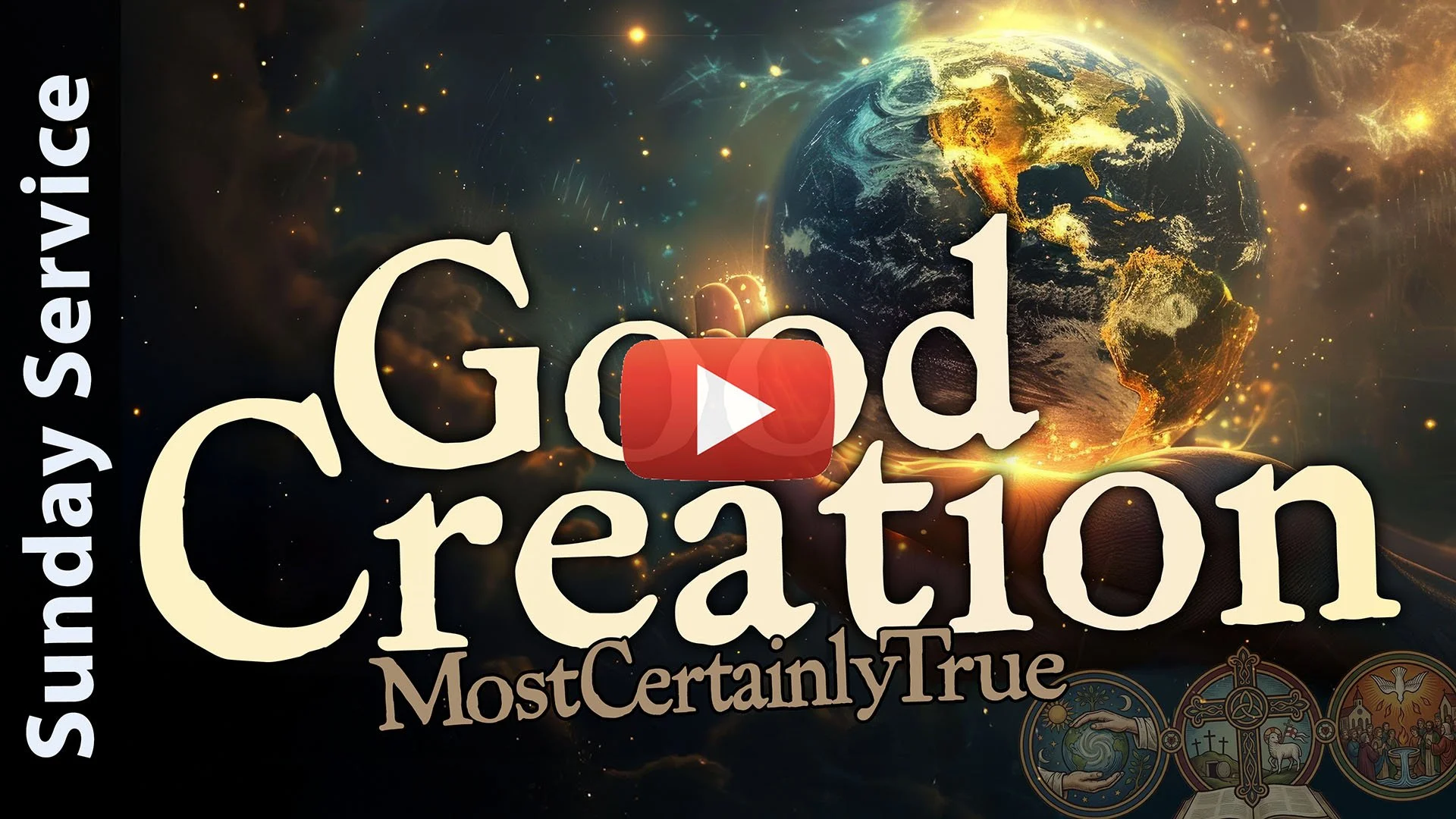
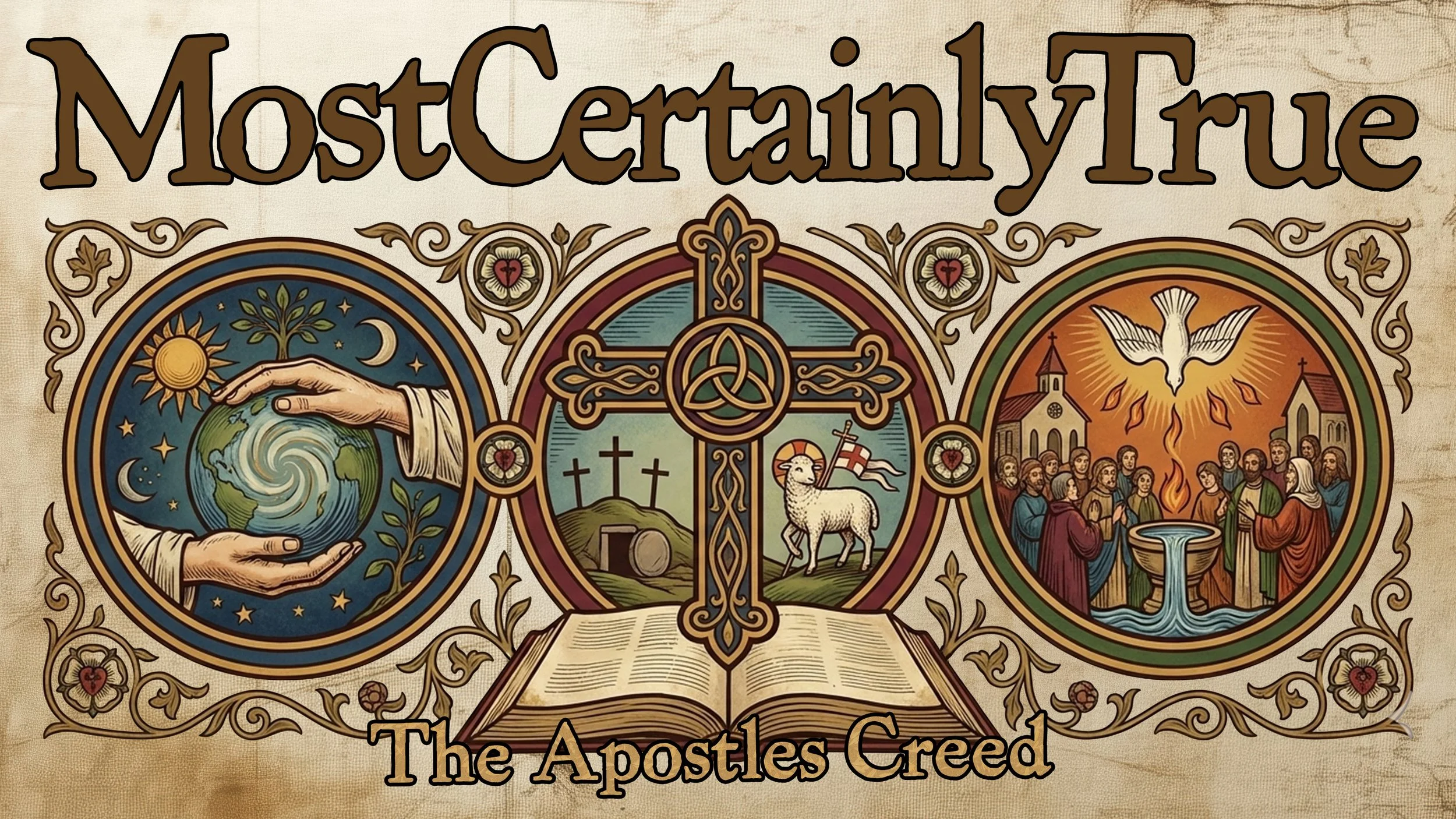


![Children’s Ministry in the New Year [Photos]](https://images.squarespace-cdn.com/content/v1/5852f18a20099e30cd2c01dc/1767924772825-5SW6XCAIOSBT9TJN4HWZ/PXL_20260104_222951109.jpg)
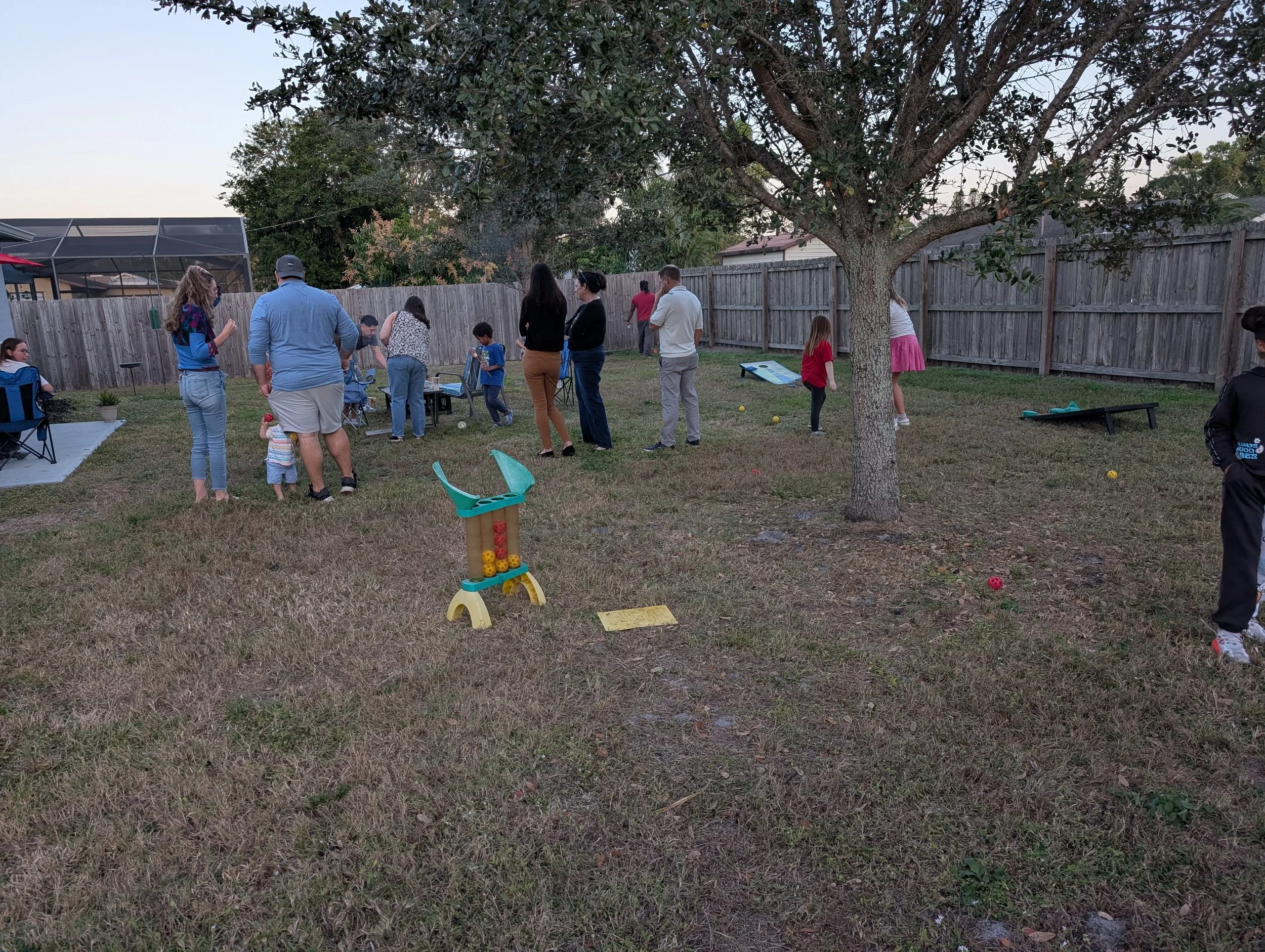
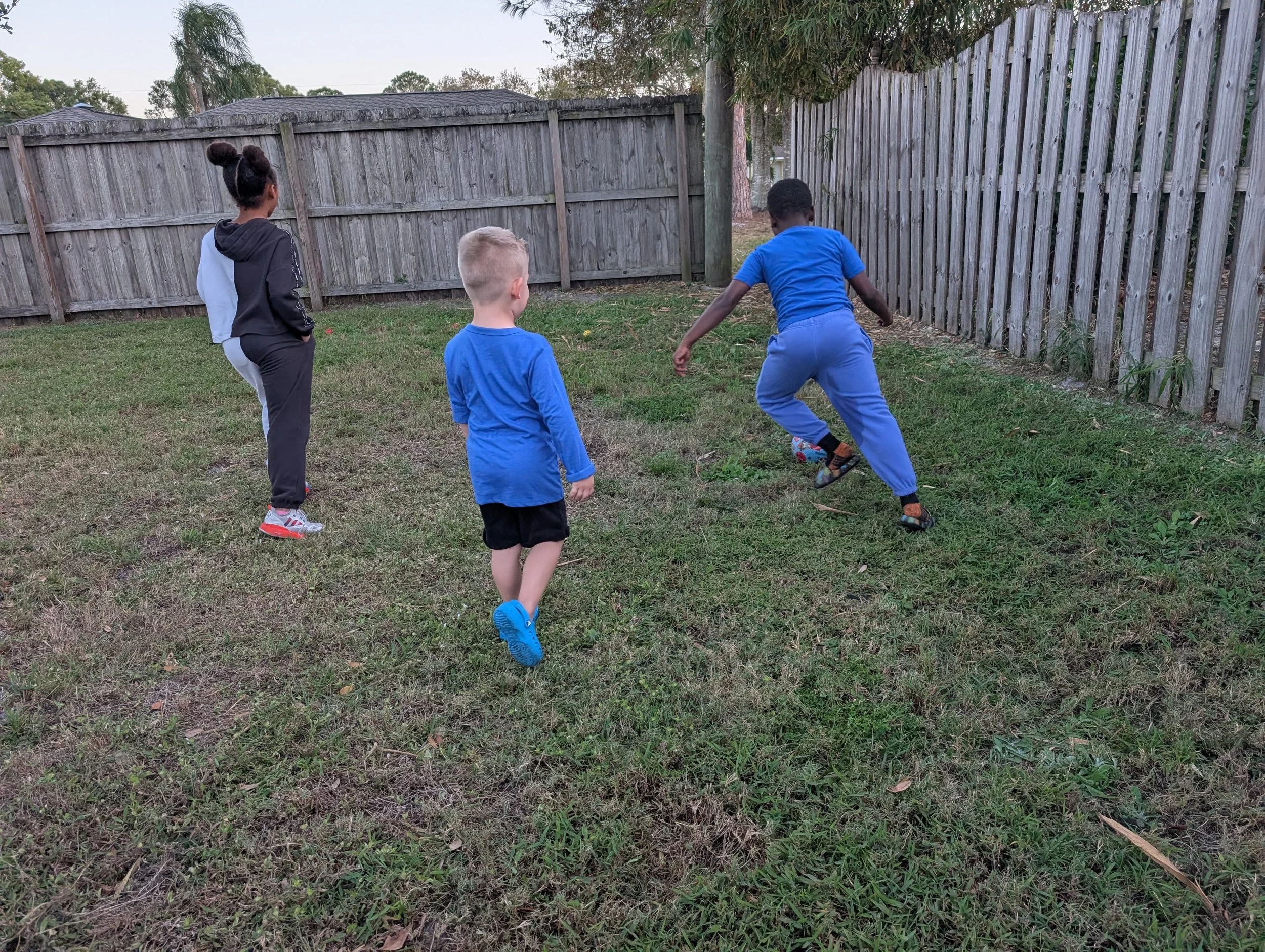


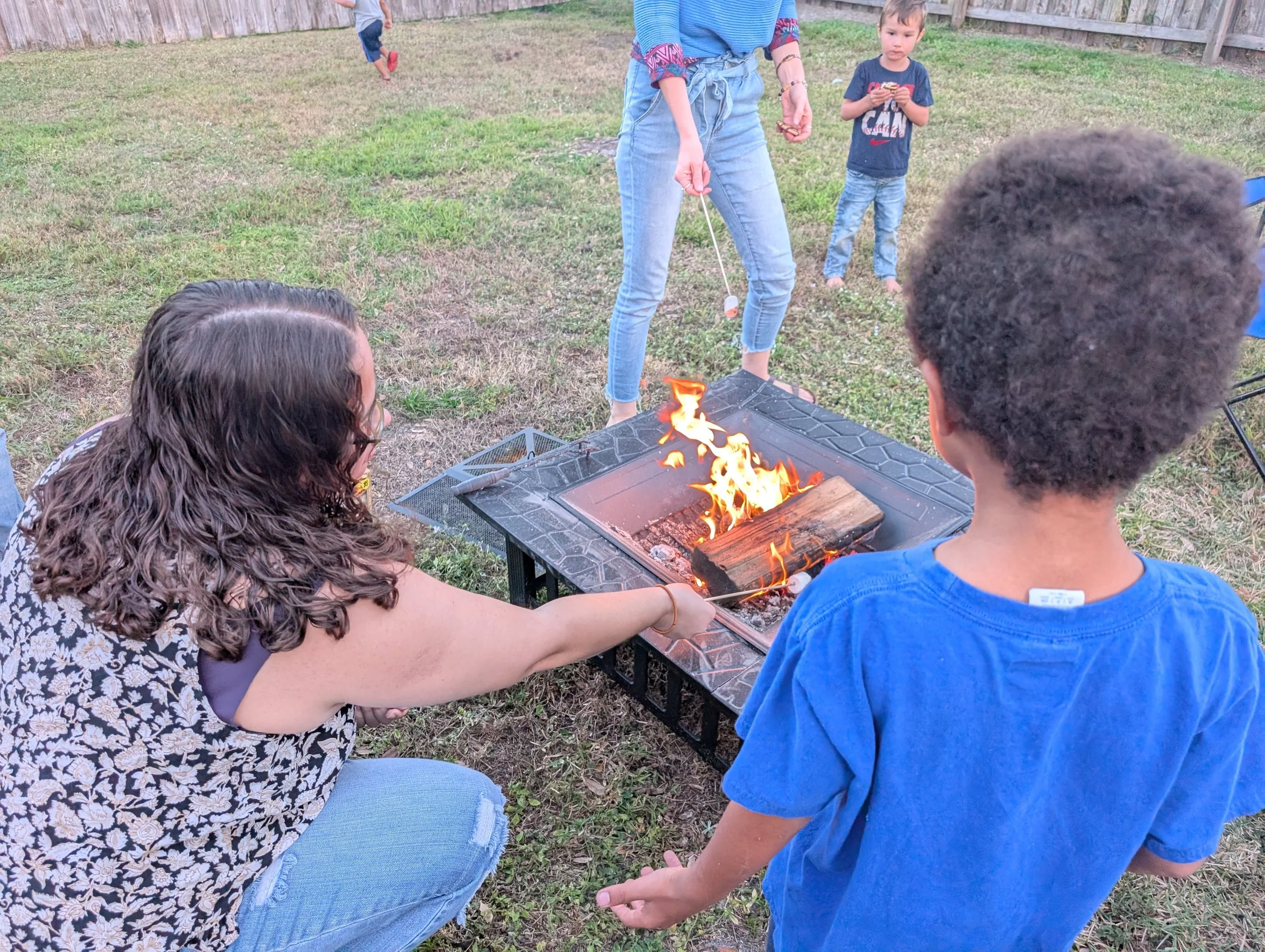
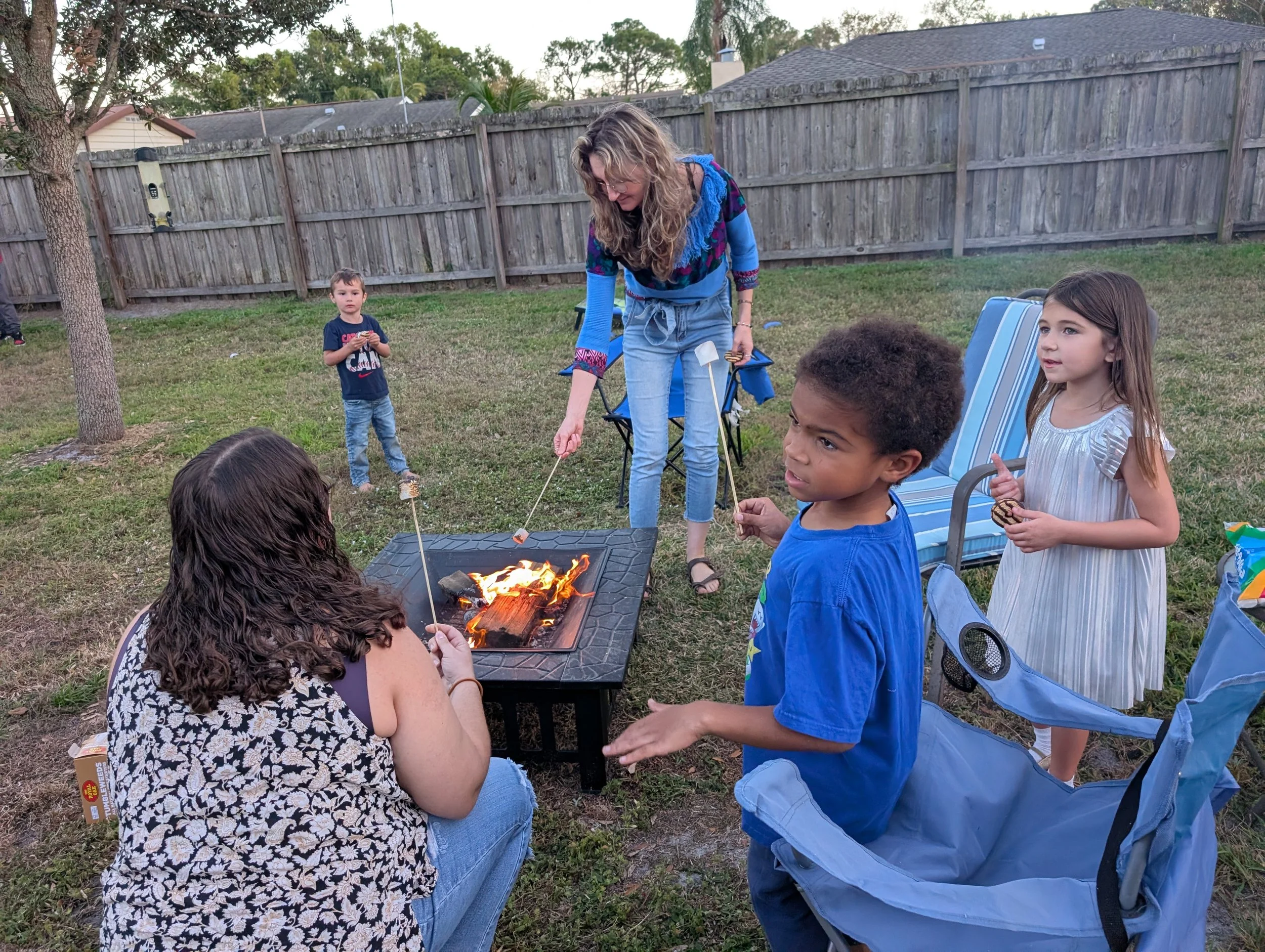
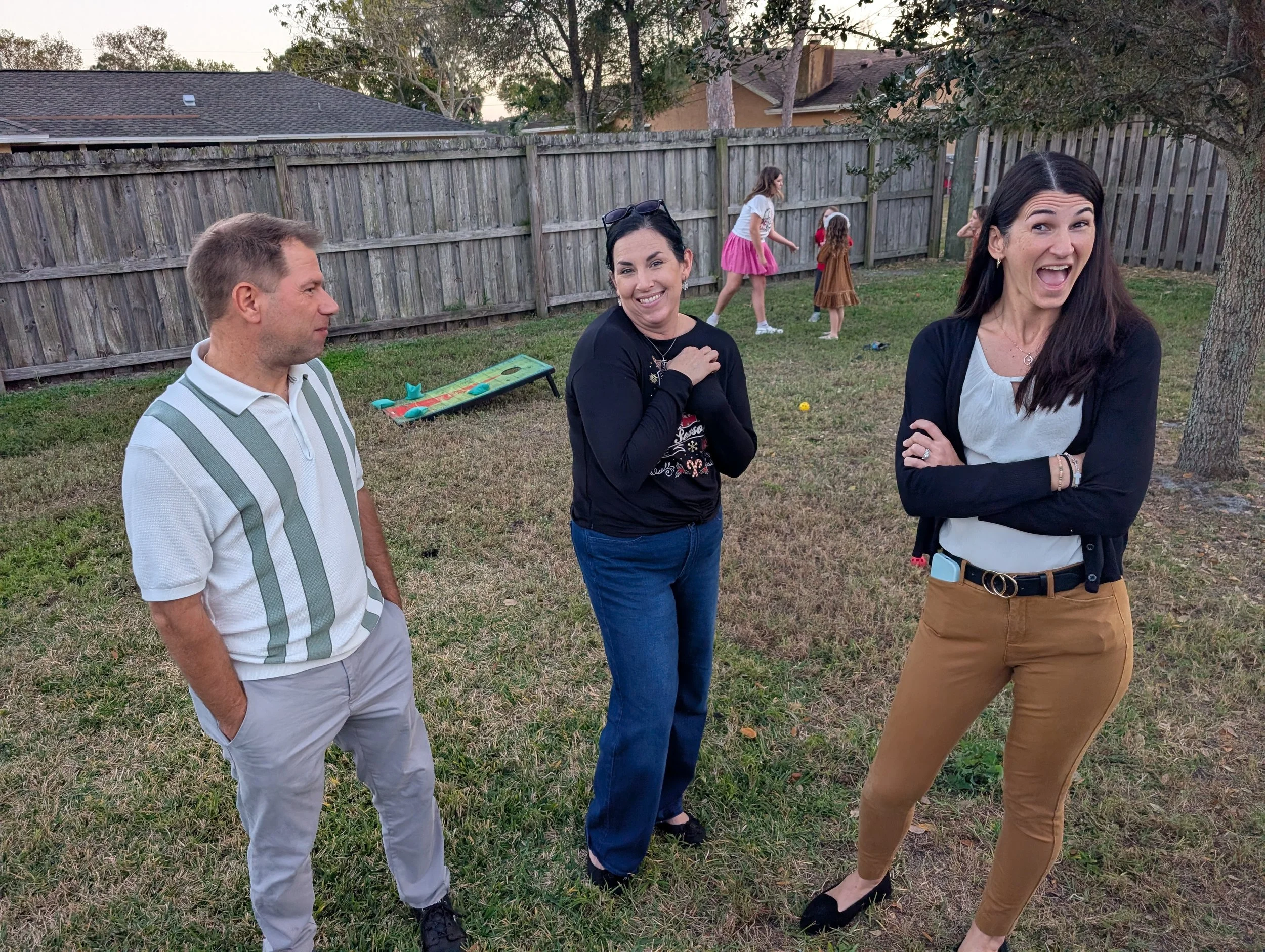

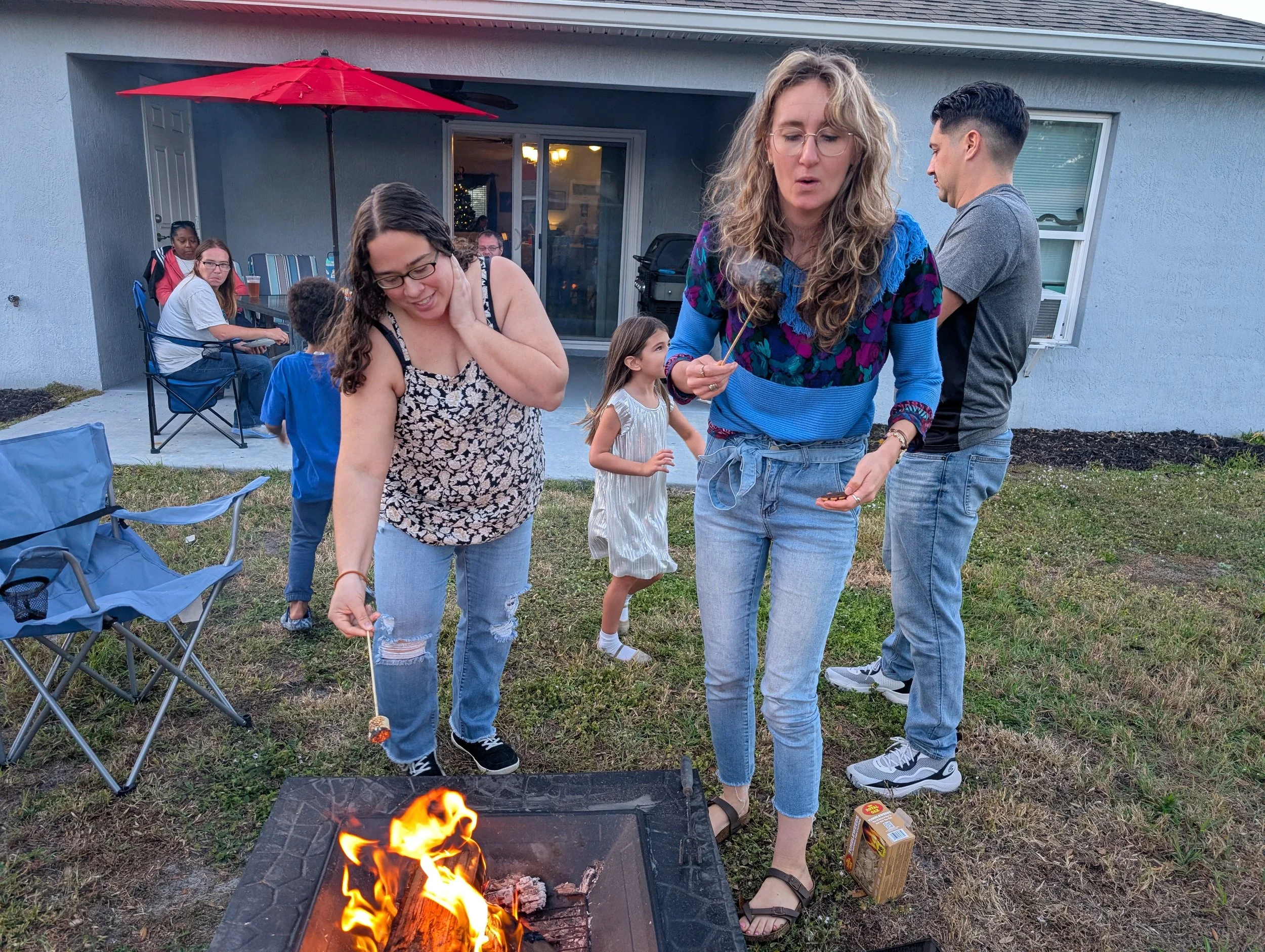
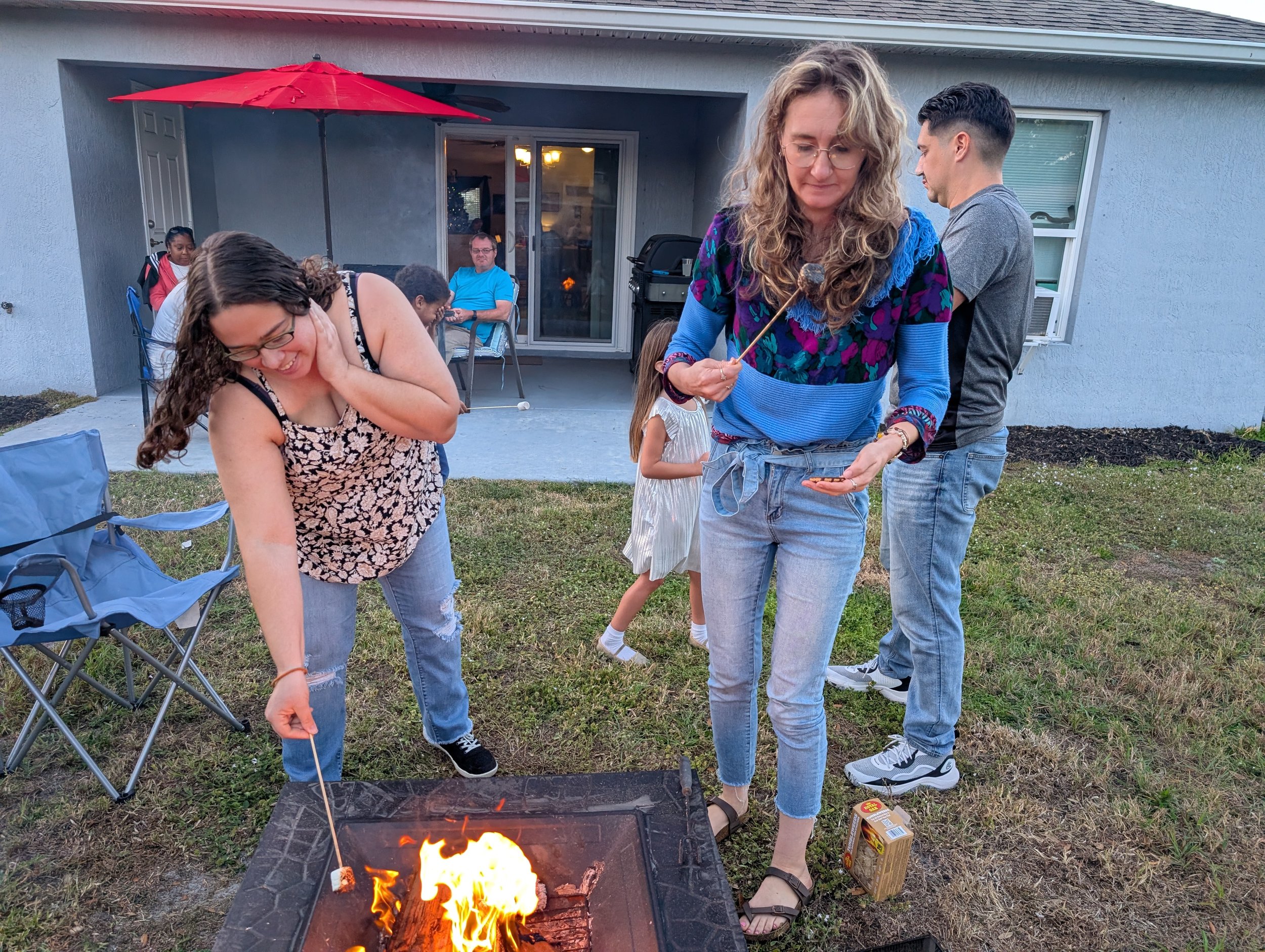


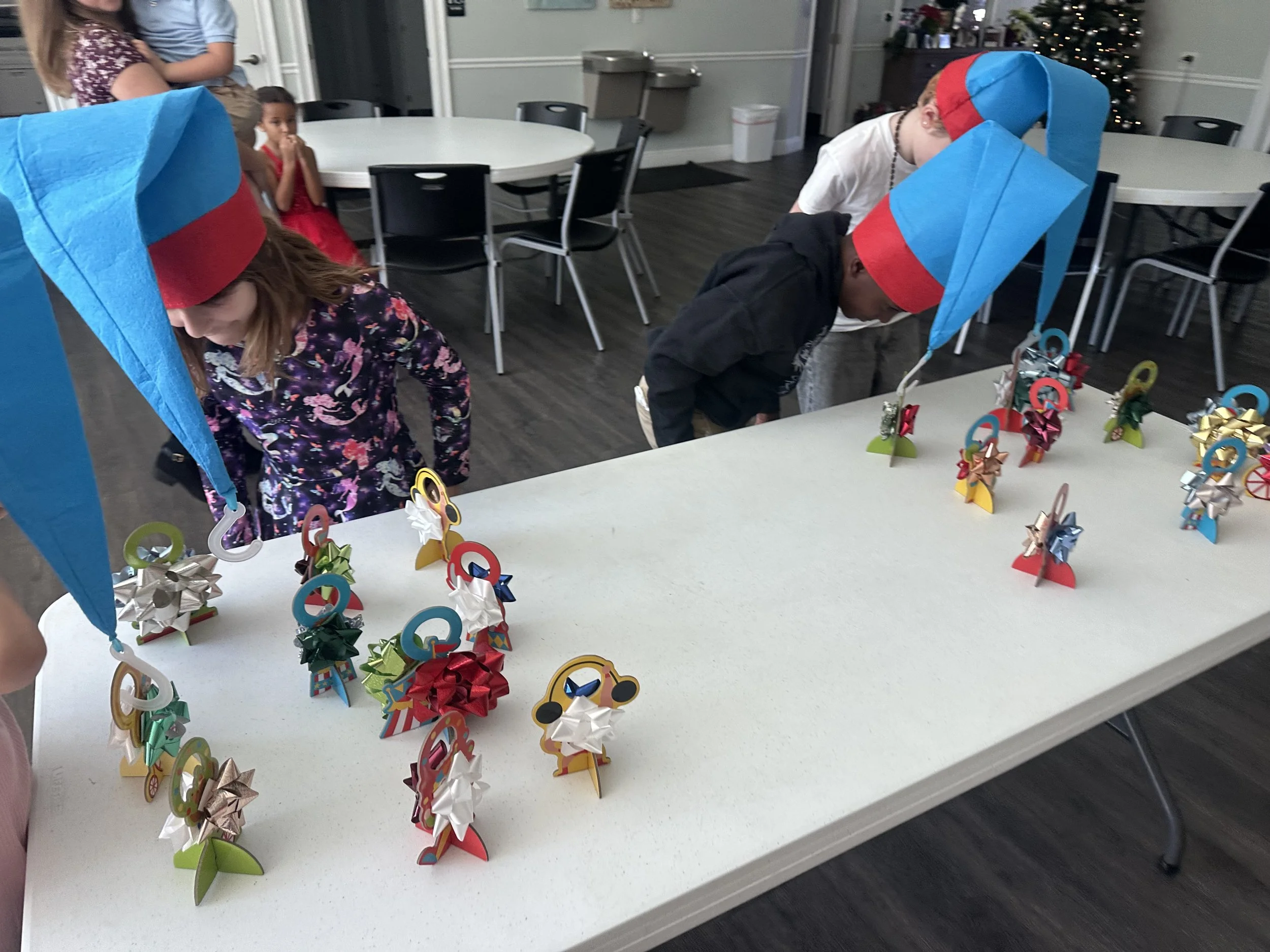

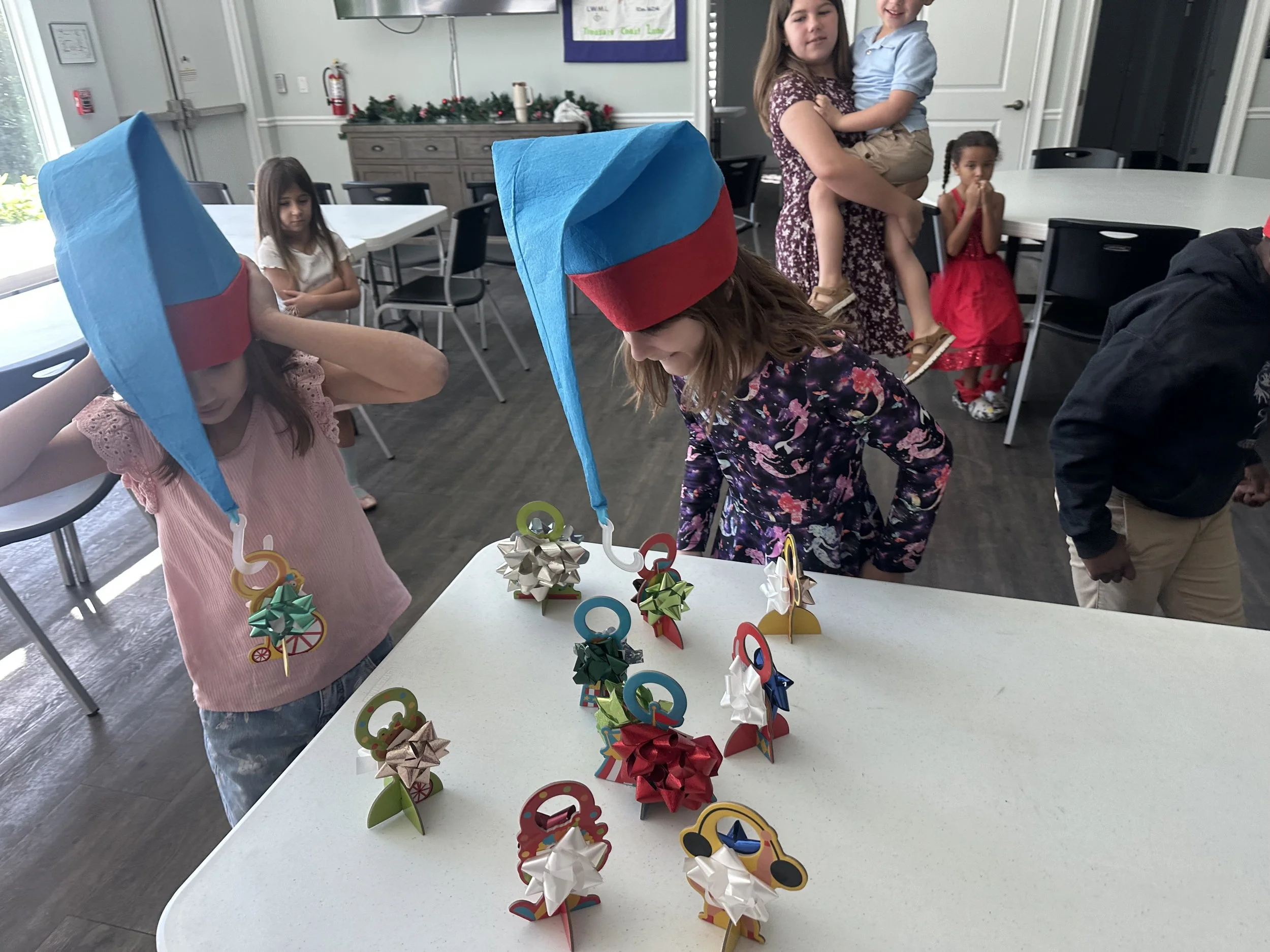
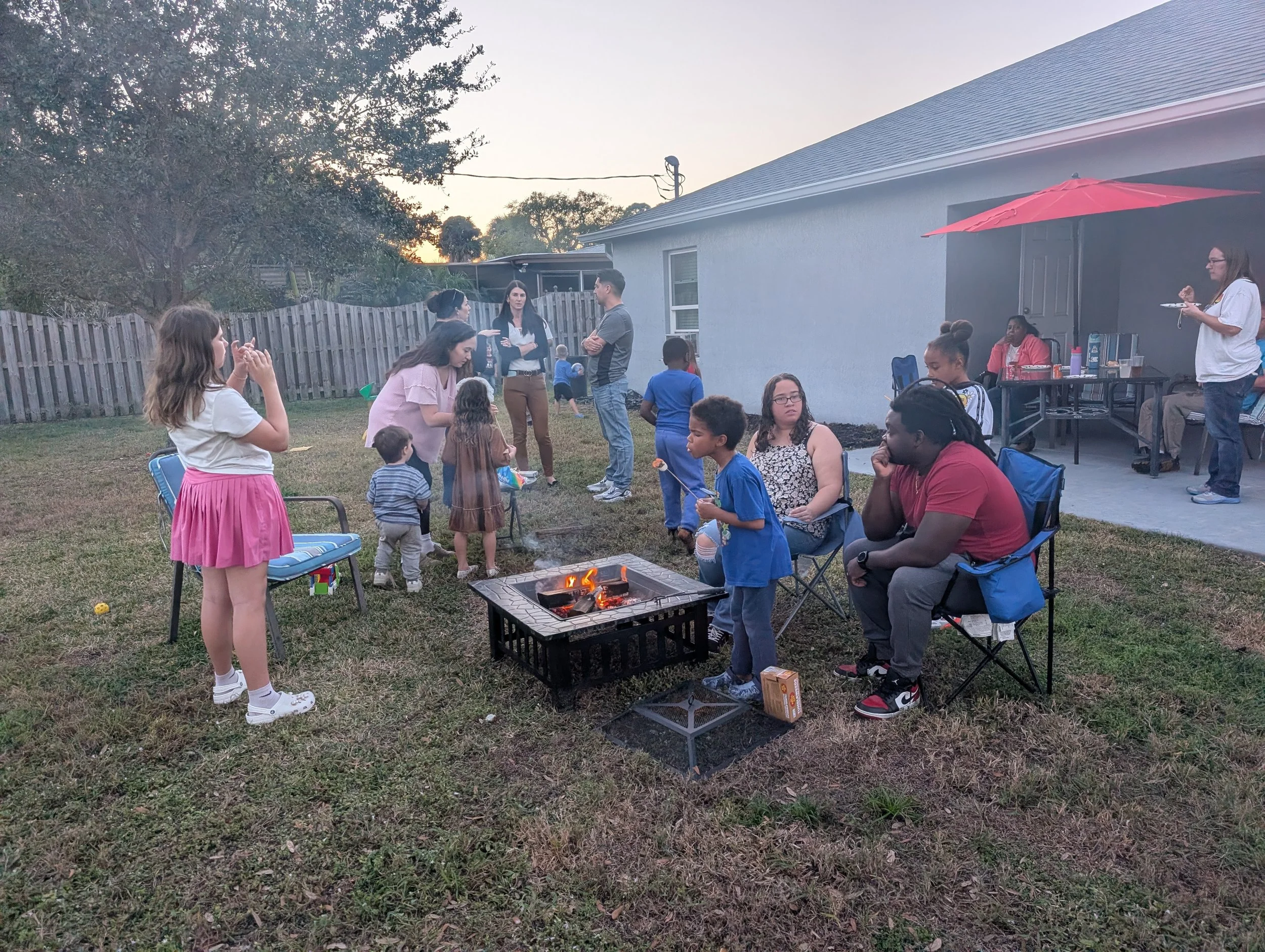
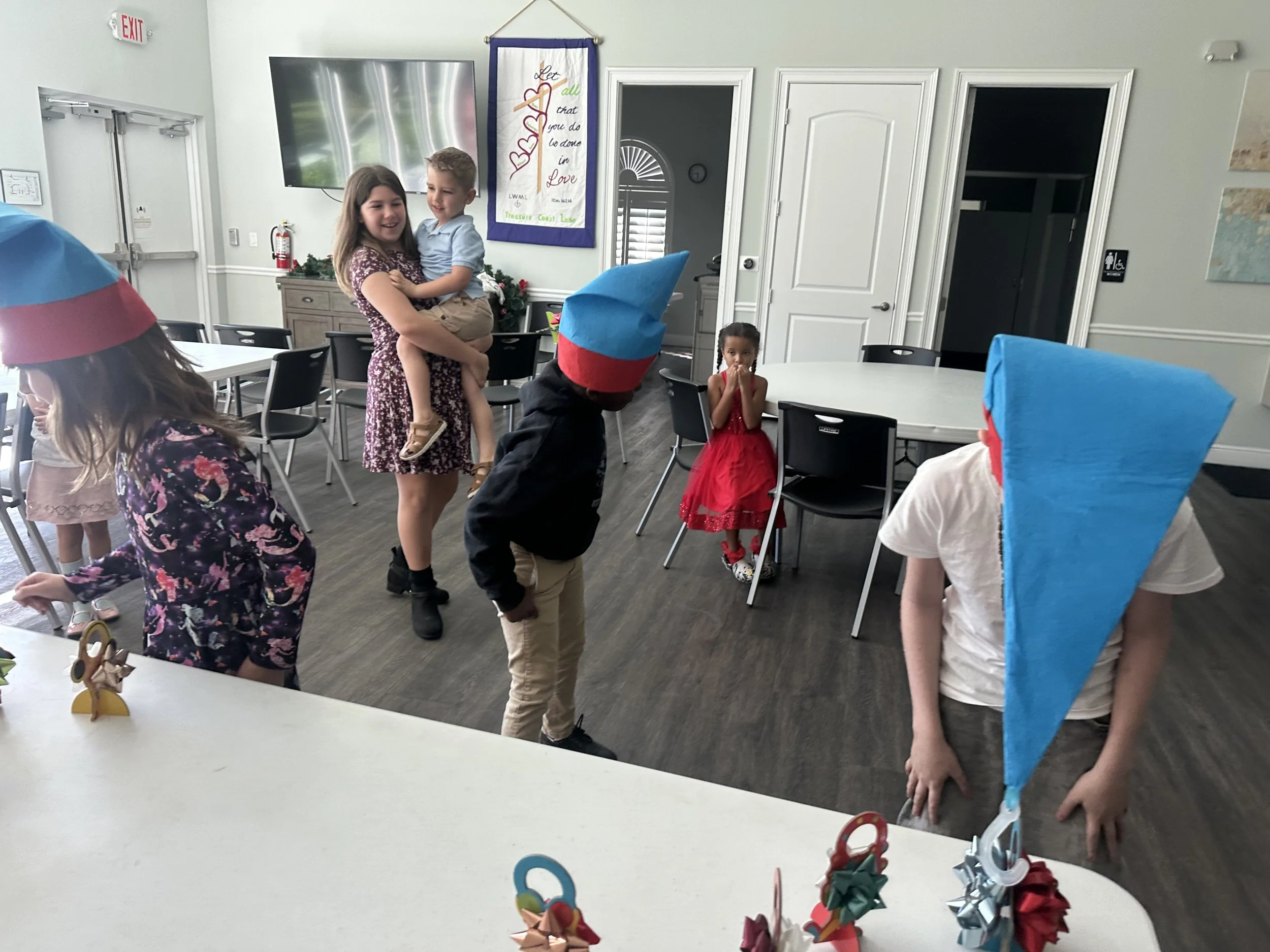

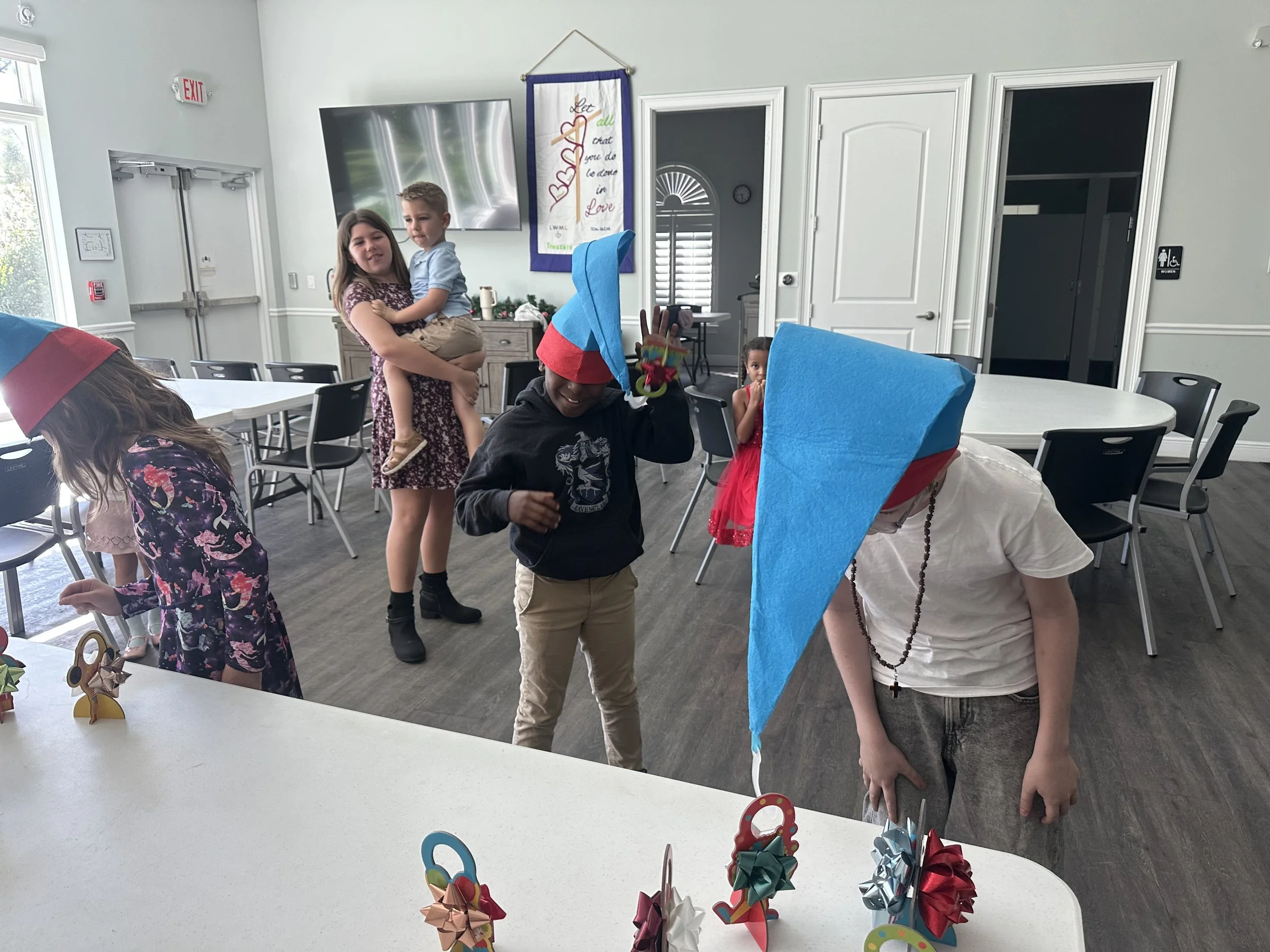

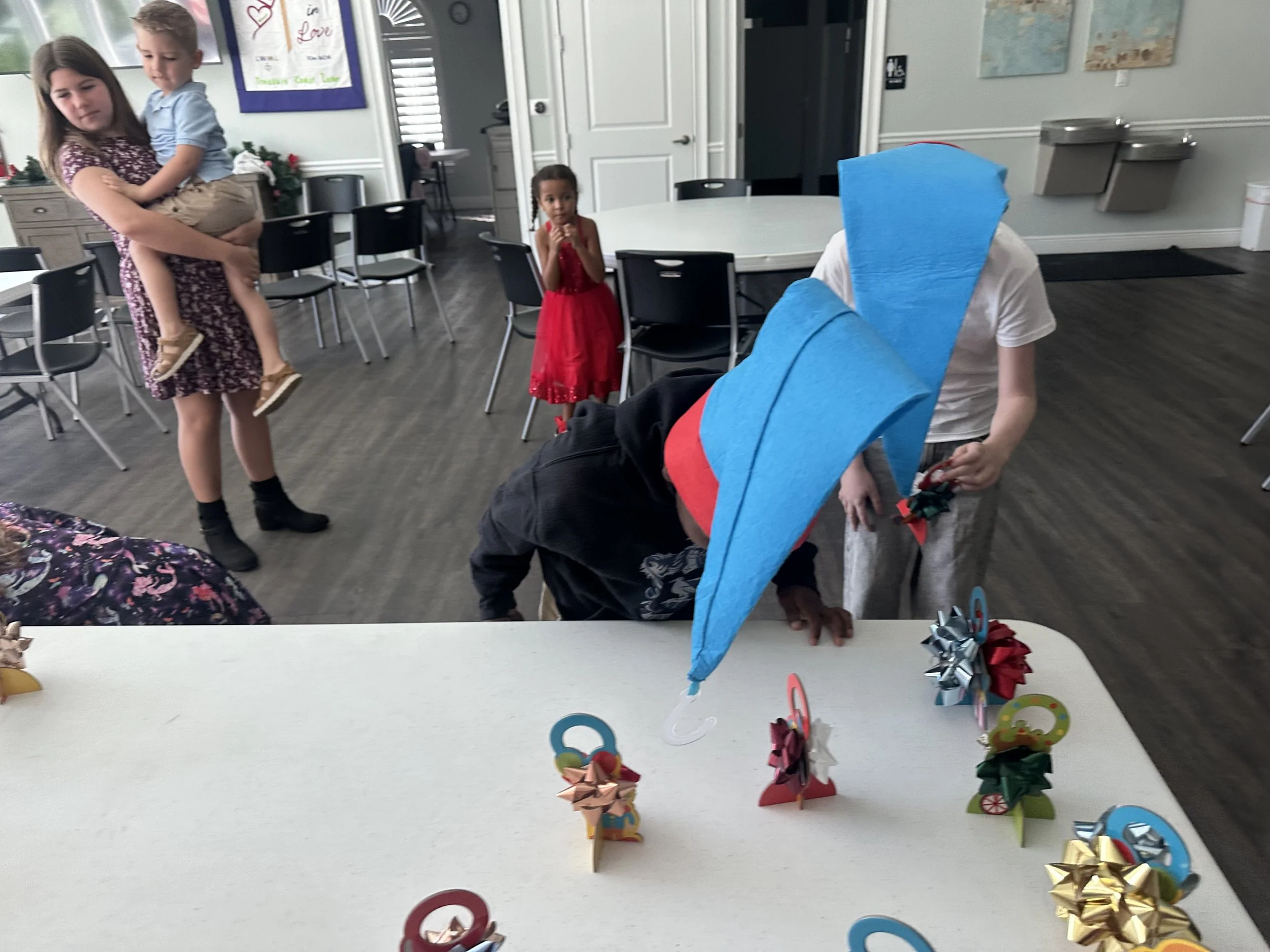

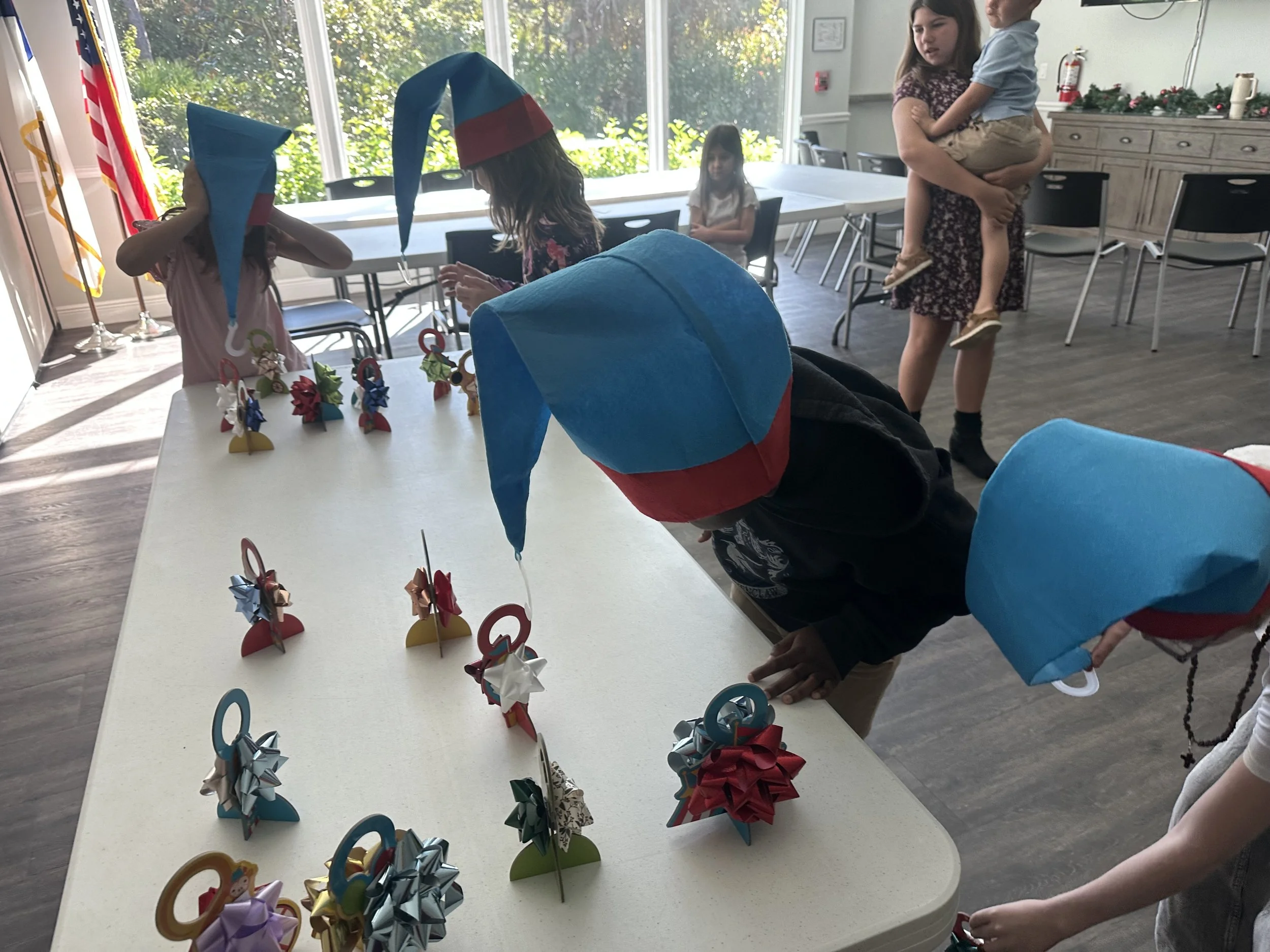

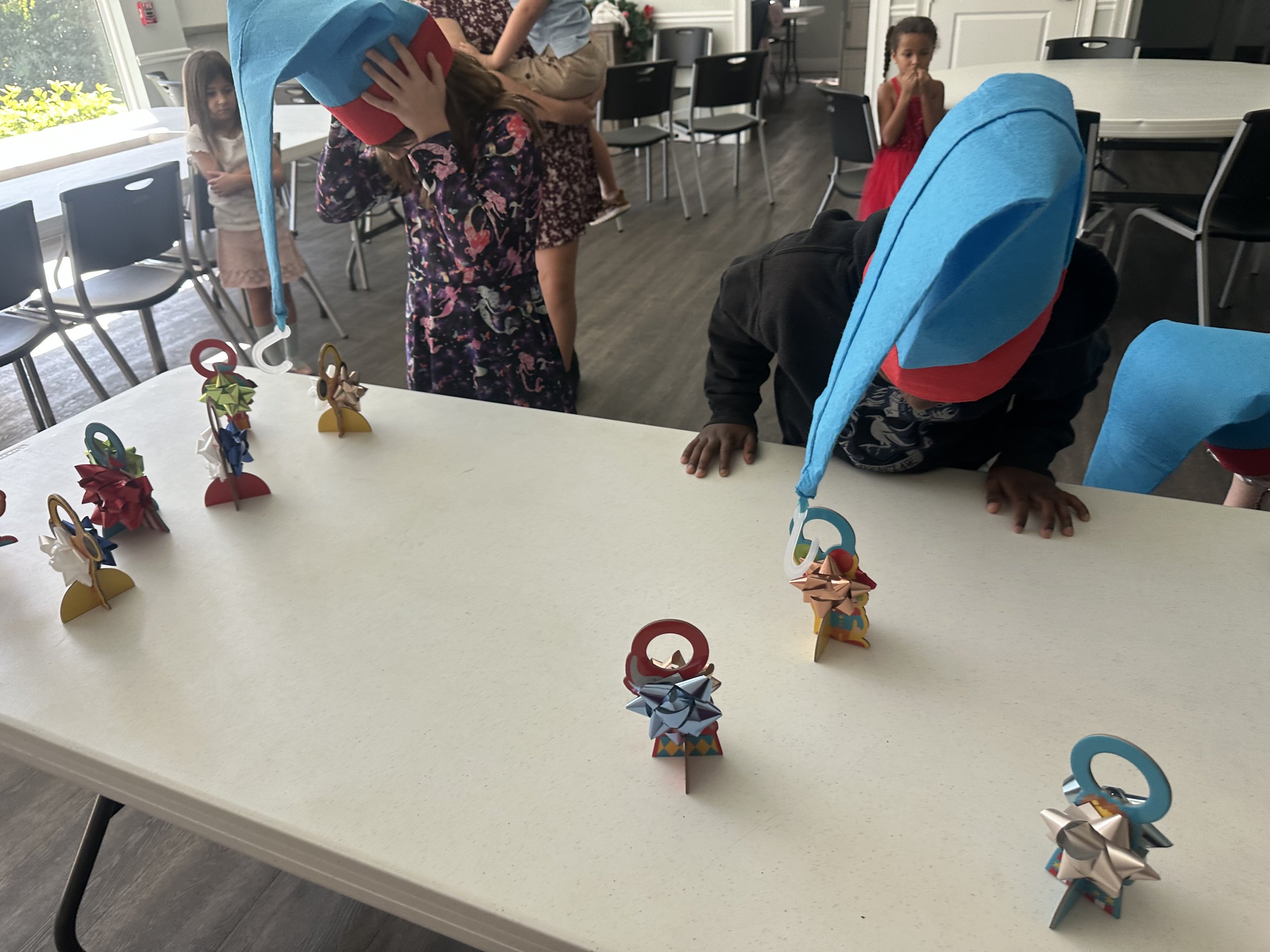




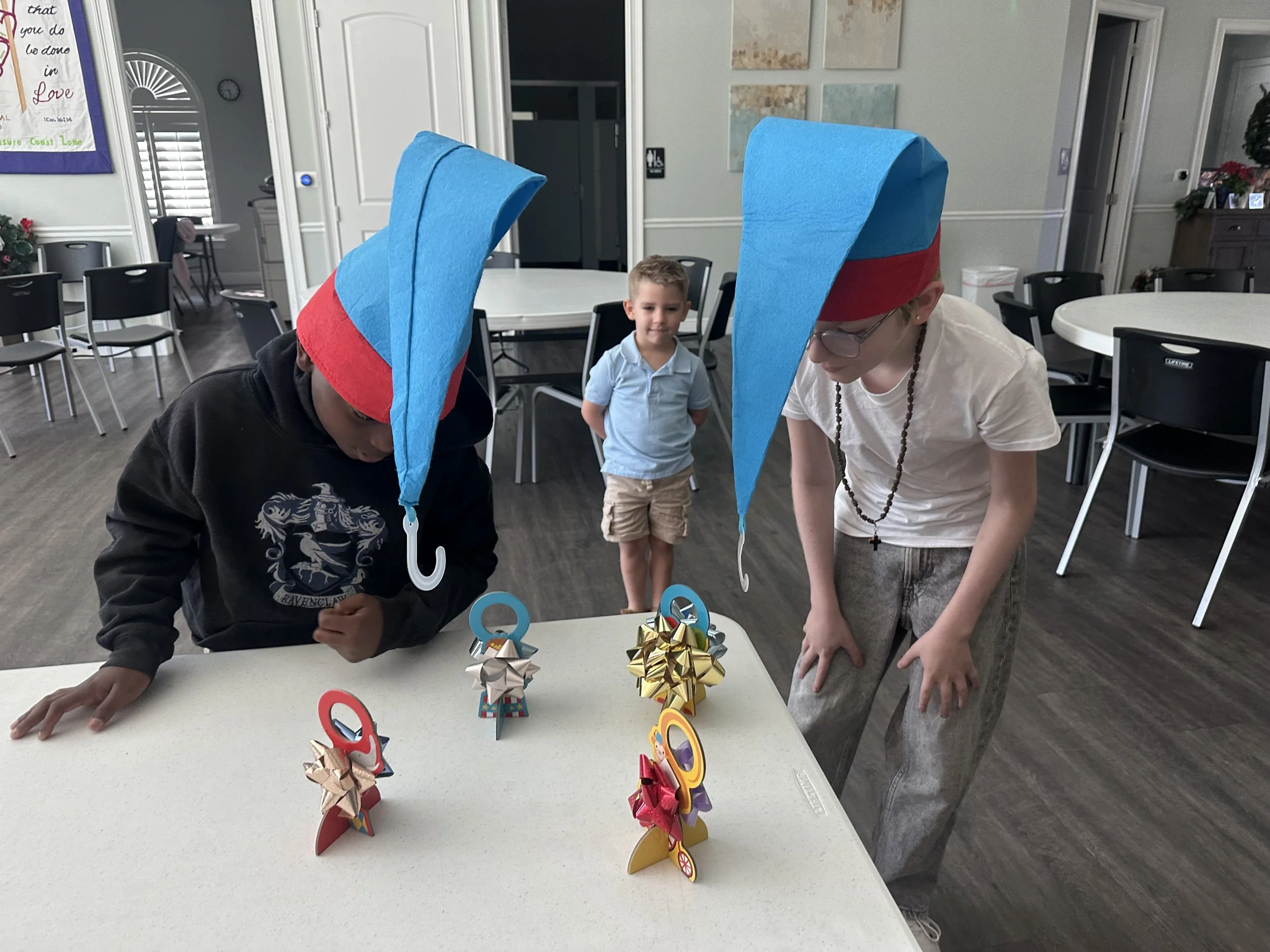
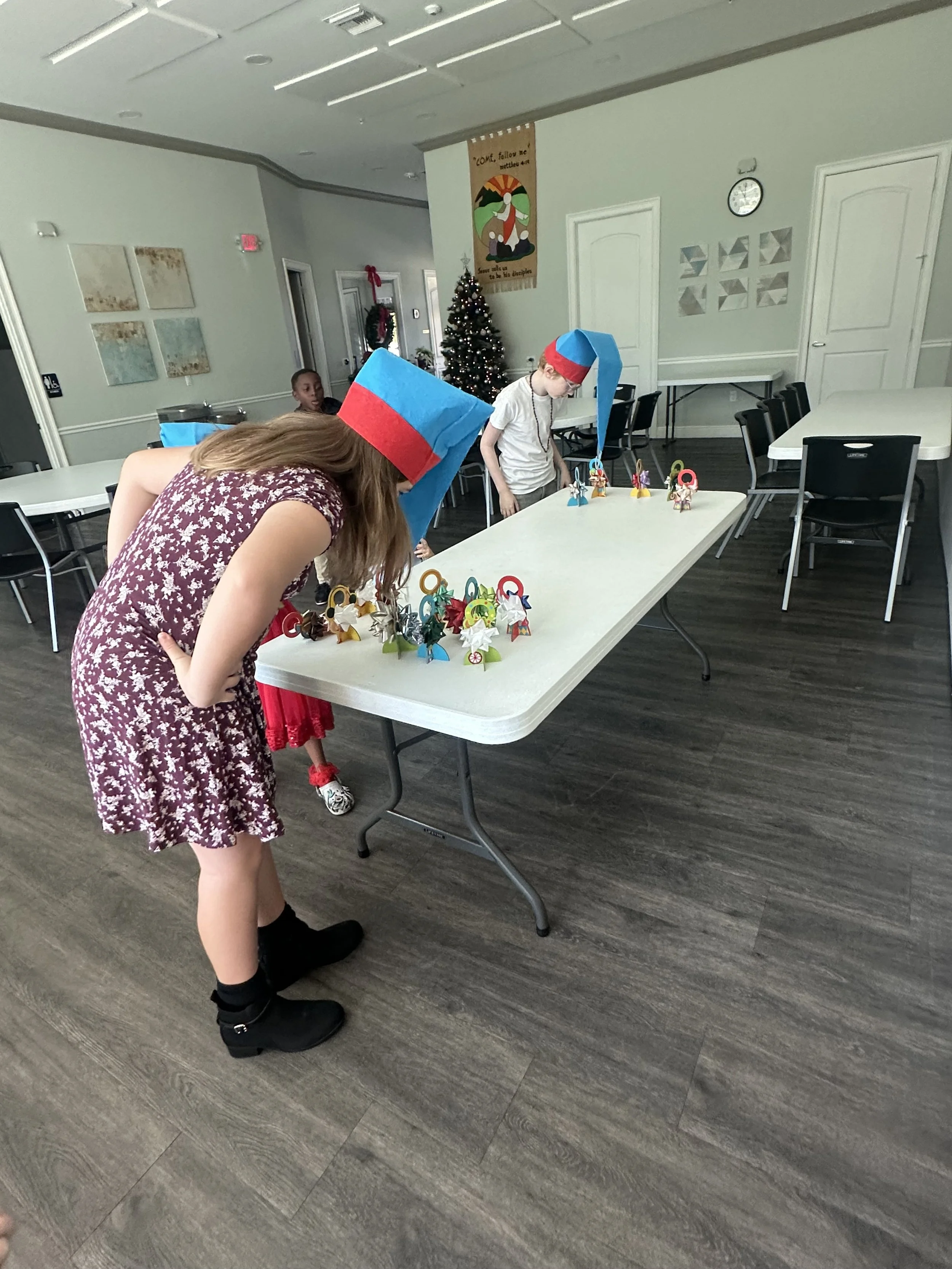
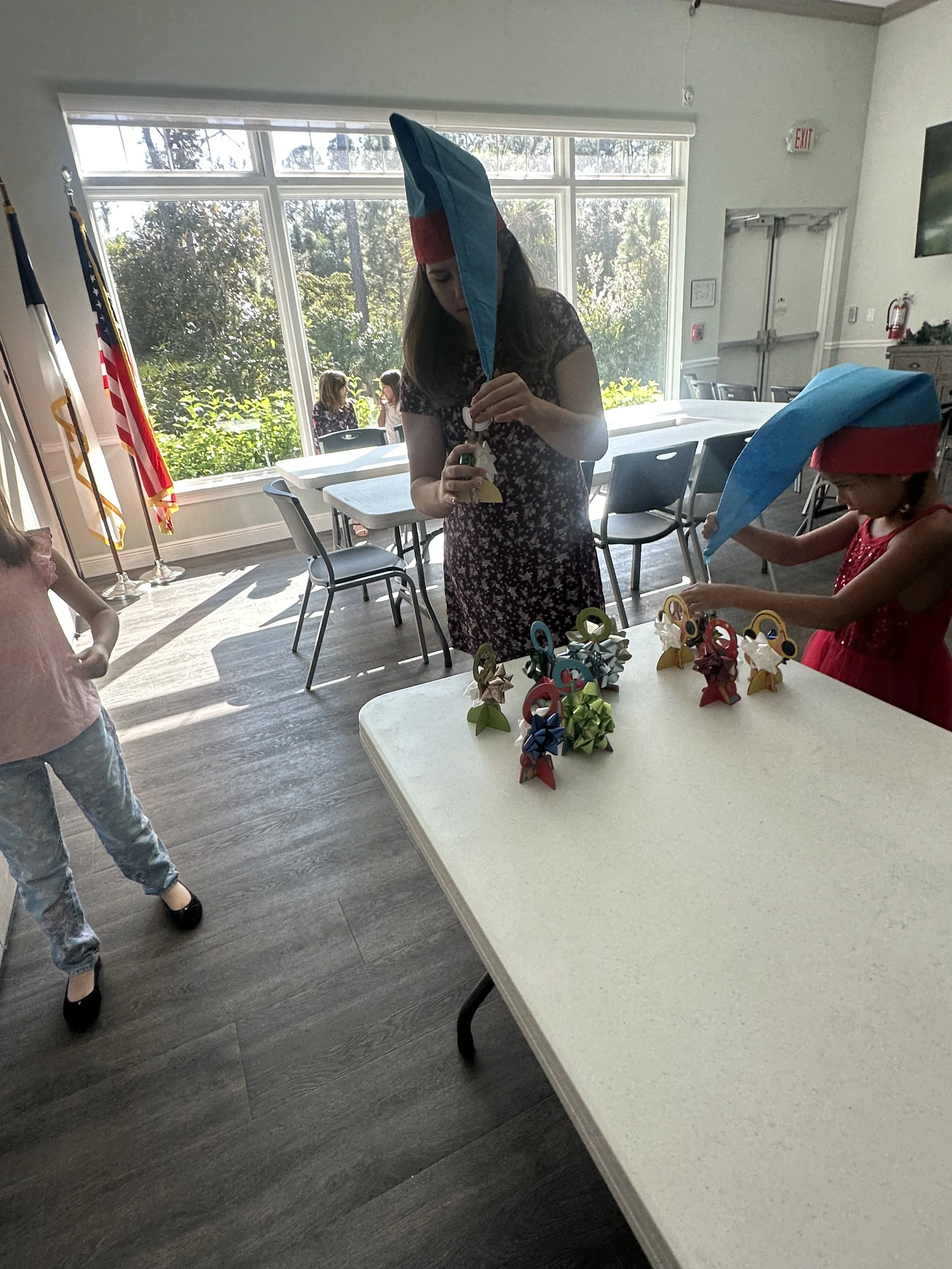
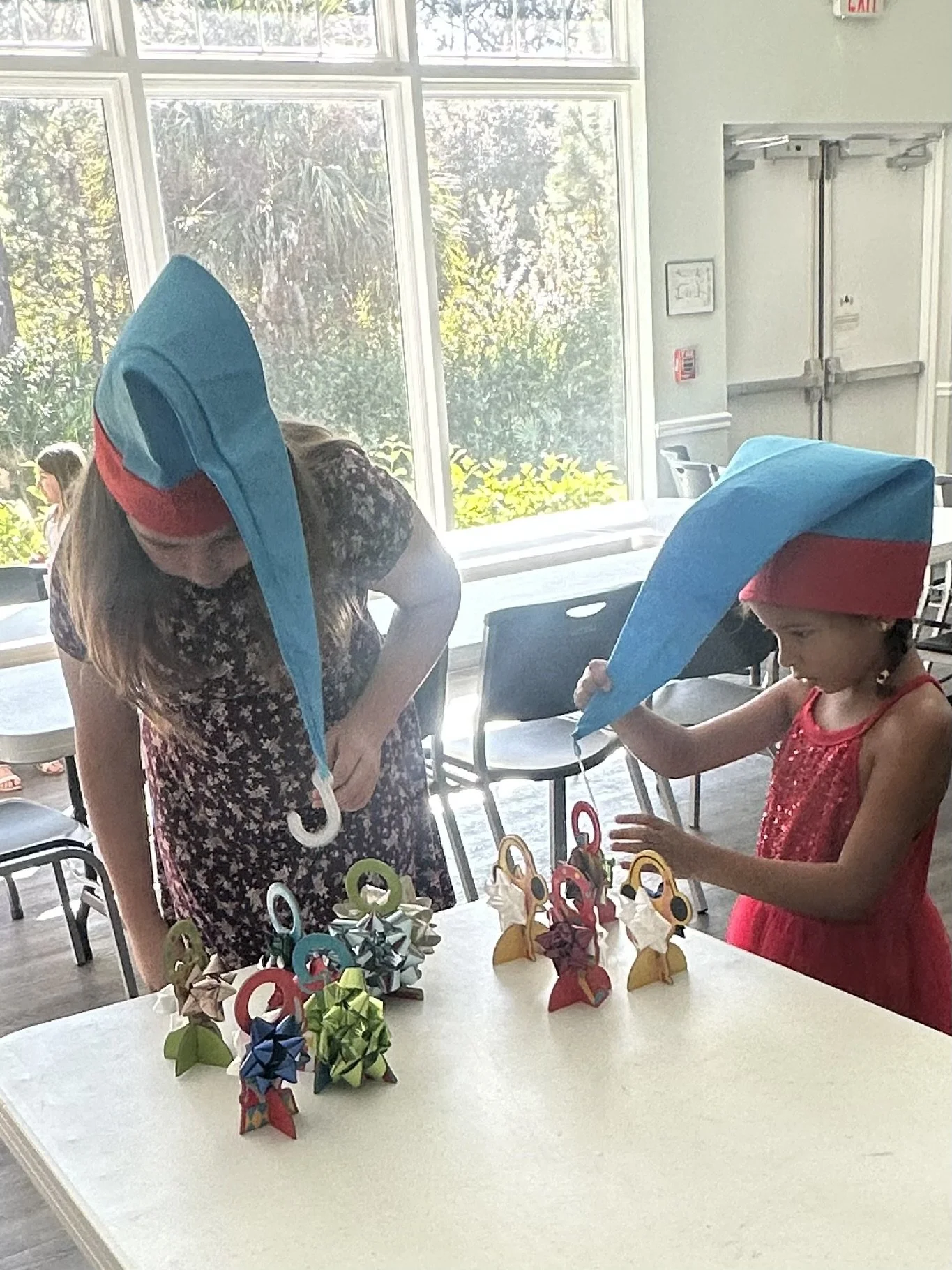





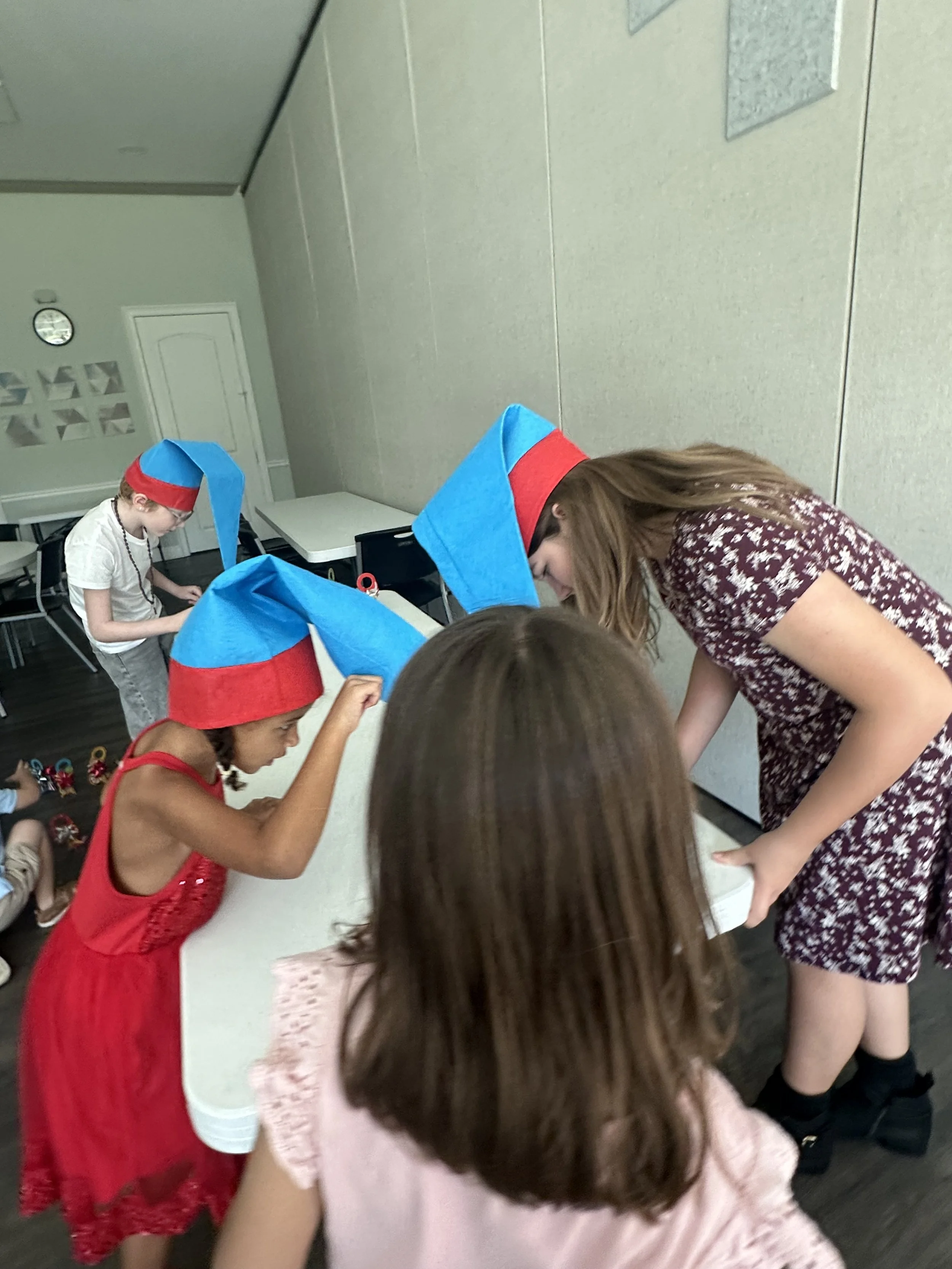










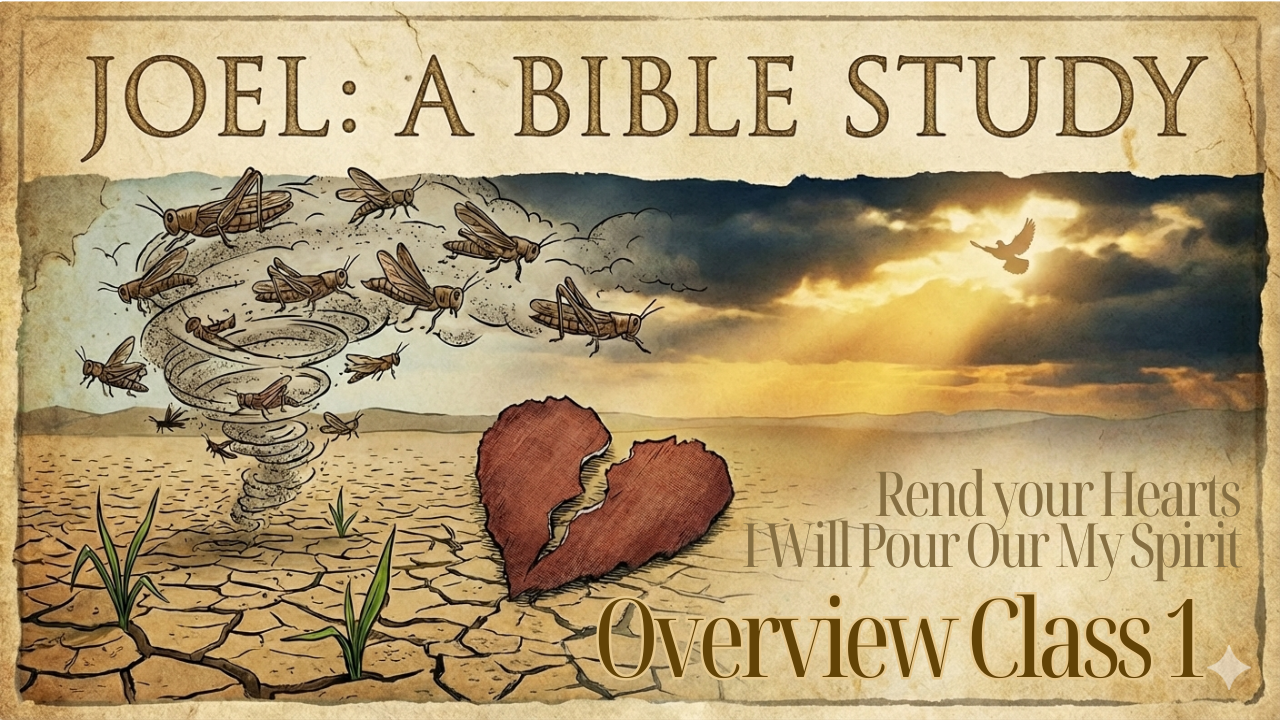
The Creed reveals the Church’s heartbeat is the forgiveness of sins, a gift which replaces our darkness with God's light and leads us to the ultimate feast of the resurrection.